










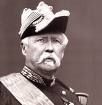












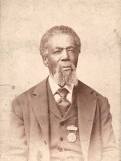




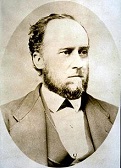












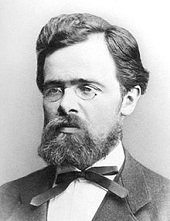
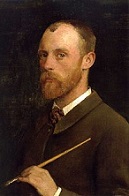


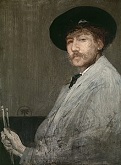









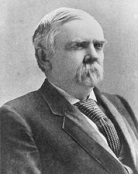


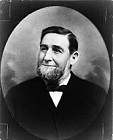
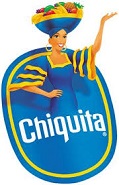


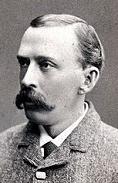










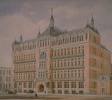





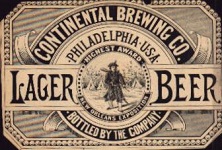
1870 Pop.: Germany: 41M; France: 36M; Japan: 33M; Italy: 26.8M; Britain: 26M; Ireland: 5.4M (2.6M less than in 1841). The Ninth (9th) U.S. Census (first with detailed info. on African-Ams.) reports the total pop. as 39,555,983 (86.2% white), a 22.62% increase (8.5M) since 1860, despite the war, although the increase is below 30% for the first time ever; pop. density is 13.4 per sq. mi.; New York City: 942K. Beginning this year large numbers of Hungarians begin immigrating to the U.S. German-immigrant-packed Chicago, Ill. has 17 candy manufacturers, growing to 65 in 1900, becoming the Candy Capital of the U.S. after candy consumption zooms from 2.2 lbs./person in 1880 to 5.6 lbs/person in 1914, and 13.1 lbs./person in 1919. All seceded U.S. states return to the Union by the end of this year. Sweden has the highest per-capita income growth in the world, which ends in 1970 after they go Socialist. In this decade the ratio of the incomes of the richest and poorest countries begins to massively diverge, increasing 6x in the 20th cent.; Americans of Irish descent send $10M back to relatives in Ireland in this decade, causing a nat. dependence on the "Letter from America", particularly in the W. In this decade the New Imperialism sees the Euro powers, U.S., and Japan begin pursuing overseas territorial acquisitions, using their advanced technology as a club; in 1914-17 WWI ends it in flames. On Jan. 10 10-y.-o. white boy Adolph Korn (b. 1859) is kidnapped by the Apaches, and traded to the Comanches, becoming one of their top warriors until he is forcibly returned to his parents in 1873, after which he never adjusts to white civilized life and spends his last years as a troglodyte. On Jan. 10 John Davison "J.D." Rockefeller (1839-1937) and grain merchant Henry Morrison Flagler (1830-1913) incorporate Standard Oil in Cleveland, Ohio to run an oil refinery, with Flager coming up with the killer idea of giving a 15 cent per barrel refund, ramping them up to 10K barrels a day by 1872; in 1874 oil refiner Charles Pratt (1830-91), known for Astral Oil ("The holy lamps of Tibet are primed with Astral Oil") merges with Standard Oil; in 1877 they move the HQ to New York City; in the 1880s Flager moves to Fla., going on to build up St. Augustine and West Palm Beach, becoming the father of Miami. On Jan. 15 the Dem. Party is represented as a donkey for the first time in a cartoon by Thomas Nast in Harper's Weekly; he originally intended it to stand for the Copperhead Press kicking at recently deceased Edwin M. Stanton; meanwhile the reaction against the incompetence and corruption in Pres. Grant's admin. incites mutiny within the Repub. ranks, causing a split into pro-Grant Stalwarts (Conklingites) who favor machine politics, incl. Chester A. Arthur and Thomas C. Platt, led by U.S. Sen. "Lord" Roscoe Conkling (1829-88), who controls patronage at the New York Customs House, and moderate anti-Grant Half-Breeds (incl. Rutherford B. Hayes and James A. Garfield), who support civil service reform. On Jan. 26 Ole Virginny (Virginia) rejoins the Union; on Oct. 12 their demigod Robert E. Lee (b. 1807) dies in Lexington, Va. - happy or sad? The last of three amendments to the formerly white-men-only U.S. Constitution is complete? On Feb. 3 after Repubs. vote 141-0 and Dems. vote 0-39-7 in Congress, the Fifteenth (15th) (XV) Amendment to the U.S. Constitution is ratified by the states, extending suffrage to male African-Ams. (blacks) (Negroes) (jungle bunnies, porch monkeys, Ubangi night-fighters?); the Am. Anti-Slavery Society is finally disbanded; #13=set them free, #14=guarantees due process to keep them from slavery disguised as law enforcement, #15=gives them the vote if they can dodge the ropes on the way to the voting station and can pass literacy tests, pay poll taxes, and pass the grandfather clause (prove that their fathers had the right to vote)? - amendment number what guarantees justice to somebody in court other than the police? On Feb. 9 the U.S. Weather Bureau is established, and on Nov. 1 it makes its first official meteorological observations; the first systematized synchronous meteorological report is taken in the U.S. and transmitted by telegraph. On Feb. 18 Somers, Conn.-born Yale U. grad William Strong (1808-95) becomes U.S. Supreme Court justice #40 (until Dec. 14, 1880) to replace Robert C. Grier (1846-70), and on Feb. 7 Pres. Grant nominates Berne, N.Y.-born Rutgers U. grad Joseph Philo Bradley (1813-92) for a new seat to become U.S. Supreme Court justice #41 (until Jan. 22, 1892), and he is confirmed by the Senate on Mar. 21 (until Jan. 22, 1892), giving the court nine members again. On Feb. 23 Repub. Hiram Rhodes Revels (1827-1901) of Miss. becomes the first black U.S. Sen., serving only one year (until Mar. 4, 1871) - after running out of bananas and chandeliers? In Feb. Egyptian troops led by British Gen. Sir Samuel White Baker (1821-93) fight their way from Khartoum up the White Nile, capturing Gondokoro (750 mi. S of Khartoum) by next June, establishing a few military posts along the way in country dominated by Arab warlords who have turned 90% of the black pop. from Darkest Africa into money-making slaves. On Mar. 1 Paraguayan pres. Francisco Solano Lopez (b. 1826) and a handful of survivors of his army are defeated at the Battle of Cerro Cora (Corá) on the Aquidaban River in N Paraguay E of the Paraguay River by two detachments of Brazilian troops, and Solano is killed, ending the War of the Triple Alliance (begun 1865); Paraguay becomes much pared-away after having lost much of its territory to Brazil, Uruguay, and Argentina; a Brazilian-backed constitutional convention meets, and on Dec. 10 provisional pres. (Solano opponent) Cirilo Antonio Rivarola Acosta (1836-79) becomes pres. of Paraguay (until Dec. 10, 1871); since only 13% of the remaining pop. are adult males, he takes measures to attract immigrants while forcing the rural pop. into labor on the large estates. On Mar. 14 William J. Canby, grandson of Betsy Ross reads a paper before the Historical Society of Penn. claiming that she made the first Stars and Stripes flag, becoming the first public claim. On Mar. 15 the Lotos Club for gentlemen is founded in New York City by a group of writers and critics, with members incl. Mark Twain, who calls it the "Ace of Clubs"; the name is taken from the poem "The Lotos-Eaters" by Alfred, Lord Tennyson, which supplies the motto: "In the afternoon they came unto a land/ in which it seemed always afternoon"; in 1893 it holds its first State Dinner, which goes on to honor Gilbert and Sullivan, George M. Cohan, Moss Hart, Rodgers and Hammerstein, Saul Bellow, Arthur Miller, and Terrence McNally; in ? it begins issuing the Lotos Club Medal of Merit; in 1977 it admits women. On Mar. 17 the Mass. legislature authorizes the incorporation of Wellesley Female Seminary (Wellesley College on Mar. 7, 1873), becoming a member of the Seven Sisters, going on to graduate Madeleine Albright and Hillary Clinton. On Mar. 24 Syracuse U. is founded in Syracuse, N.Y. is founded by the Methodist Episcopal Church after splitting off from Genesee Wesleyan Seminary. On Mar. 30 Texas is readmitted to the Union. On Mar. 31 Thomas Peterson Mundy (1824-1904) becomes the first black to vote in the U.S. following ratification of the 15th Amendment, casting a ballot in a municipal election in perky Perth Amboy, N.J. In Mar. after obeying Horace Greeley's 1865 exhortation to "Go West, young man" and arriving in Colo. in Oct. 1869, Ohio-born Nathanial "Nathan" Cook Meeker (1817-79) founds the utopian Union Colony, which on Apr. 6, 1886 becomes Greeley, Colo. (modern-day pop. 103K), known for its frequent stench from a slaughterhouse; each of 300 families pays $155 to be part of the initial "joint stock venture"; meanwhile on Dec. 1 after the Colo. Central Railroad lays tracks through it to link Golden, Colo. with Jersey Junction 5 mi. N of Denver, N.Y.-born On Apr. 13 the Metropolitan Museum of Art (MoMa) (eventually at 1000 Fifth Ave.) is founded in New York City by Hudson River School artist John Frederick Kensett (1816-72) and printing tycoon and rare book collector Robert Hoe III (1839-1909), and opens in 1871 with a collection of 174 European paintings temporarily hung on the walls of a dancing school. In Apr. Eustorgio Salgar (1831-85) becomes pres. of Colombia (until Apr. 1872). On May 12 to deal with the pesky Metis, the Manitoba Act creates the Canadian province of Manitoba; on July 15 the British territories of Rupert's Land and the North-Western Territory are absorbed into Canada; on Aug. 20 after a military expedition under Col. Garnet Wolseley arrives at the Red River, the Red River Rebellion of Metis in NW Canada led by Louis Riel (begun 1869) is crushed, resulting in Riel fleeing to St. Joseph's Mission in Dakota Territory, and Manitoba entering the Canadian Confederation as a province; Hudson's Bay Co. transfers the Northwest Territories into the Canadian Confederation. On June 9 Pres. Grant meets with Sioux chief Red Cloud in the White House in Washington, D.C. On June 21 the Tianjin Massacre sees 13 French and three Russians killed by an angry Chinese mob after the French consul shoots a Chinese; 16 Chinese are executed, reparations are paid, and next year a mission sails to France to apologize. On June 22 the U.S. Congress creates the U.S. Dept. of Justice. On June 26 after the first road is built from the mainland to Atlantic City, N.J., the first Boardwalk (12-ft.-wide and resting directly on the sand) opens after hotel owners complain about sand blowing into their lobbies; photos showing the hideously overdressed Victorian prudes strolling along carrying umbrellas to keep from getting suntans, or riding in covered 3-wheeled handcars (the very name Boardwalk makes one think of bathroom odors?); it is eventually extended 4.12 mi. long and 60 ft. wide, stretching from Ventnor and Margate into Longport, and reinforced with steel and concrete; with the Ventnor Boardwalk the combined length is 5.75 mi., the world's longest. In June the First Spanish Internat. Congress in Barcelona, attended by delegates from 150 workers' assocs. rejects the Spanish repub. govt. Frankly my dear, I don't give a damn? On July 11 Jaw-Jaw (Ga.) becomes the last Confederate state to be readmitted to the Union; on ? three white "scalawag" Repubs. are murdered by the KKK in Ga.; on ? an armed mob of KKK klansmen assault a Repub. political rally in Ala., killing four blacks and wounding 54. Tweedle-Dee, Tweedle-Dum, Get Ready, Cuz Here I Cum? On July 13 the Ems Telegram (Dispatch) is sent by Corsican-born French diplomat Vincent, Count Benedetti (1817-1900) to the king of Prussia at Ems, demanding him to order German prince Leopold of Hohenzollern to withdraw his candidacy for the Spanish throne and never renew it; seeing his chance, Prussian chancellor Otto Eduard Leopold von Bismarck (1815-98) leaks it (after modifying it to be more provocative), with the implication that the Frog has insulted the king, which is taken by the French as proof that the king has insulted their minister, causing diplomatic relations to become kaput; on July 19 (Tues.) after Bismarck dares them to make the first move, France declares war on Prussia, beginning the Franco-Prussian (Franco-German) War (ends May 10, 1871), the last 19th cent. war between the Euro powers, in which the Prussians followed by the French first use dynamite; the Germans issue the first Hundemarken (dogtags); Prussia then eagerly invades France, with regiments from Bavaria, Saxony, and Wurttemberg, the Prussian armies led by field marshal (chief of the German Gen. Staff in Jan. 18, 1871 - Aug. 10, 1888) Helmuth Karl Bernhard Graf von Moltke (1800-91); in Paris U.S. minister (1869-77) Elihu Benjamin Washburne (1816-87) protects the delegations of the German states with the U.S. flag; meanwhile on Aug. 4 the prancing Prussians defeat the French at the Battle of Weissenburg, the Battle of Spicheren Heights near Saarbrucken on Aug. 5-6, and the (Second) Battle of Worth (Wörth) on Aug. 6, separating the N and S flanks of the French army, after which the incompetence and defeatism of marshal (since 1864) Francois Achille Bazaine (1811-88) seals their fate starting on Aug. 14 with the Battle of Colombey-Nouilly, where the Prussians attack the French rearguard as they try to withdraw from Metz, followed on Aug. 16 by the Battle of Mars-La-Tour (Vionville) in NE France, the one chance the French had of gaining a V, when their entire 120K-man French army is stumbled upon by two lousy Prussian corps (66K men) and held for a whole day, allowing the rest of the Germans to close in and cut off their withdrawal route from Metz; on Aug. 18 the Battle of Gravelotte (Gravellot-St. Privat) in Lorraine 7 mi. W of Metz between Metz and the French-German frontier, the largest battle of the war sees 113K retreating French under Insane Bazaine cornered by 188K Germans under field marshal Helmuth von Moltke, then win a tactical V at the cost of 12K casualties (vs. 20K for the Germans), but instead of counterattacking and breaking out of the hole they're in after all that bloodshed, they turn tail and retreat back to Metz, where they give up after a 2-mo. siege, proving to be the strategic D and achilles heel of the whole francois bazaine war; on Aug. 30 the Battle of Beaumont sees a 120K-man French army under Napoleon III and his field marshal Marie Edme Patrice Maurice de MacMahon, 1st Duke of Magenta (1808-93) caught and defeated by 200K Germans while en route to relieve Metz, causing them to retreat to the once formidable Sedan Fortress, only to be encircled then defeated on Sept. 1-2 at the Battle of Sedan, surrendering 85K French troops and 39 gens. plus Napoleon III himself, who is deposed by the legislature at the urging of Jules Favre, with only Normandy remaining loyal; on Sept. 2 an armed force of rev. workers led by Louis Auguste Blanqui (1805-81) (who spent 1839-48, 1848-59, and 1861-5 in prison for rev. activities) topples the French Second Repub., and on Sept. 4 the French Third (3rd) Repub. (ends 1940) is proclaimed from the Hotel de Ville by Leon Gambetta (1838-82) who becomes pres. #1, with Jules Favre as vice-pres. and minister of foreign affairs, conducting peace negotiations with Germany; too bad, Bismarck refuses to recognize it, and the Huns, er, Prussians begin the Siege of Paris on Sept. 19 (ends Jan. 28, 1871), destroying the Tuilieries (royal palace) by cannon fire; in Sept. Gambetta escapes from Paris in a balloon built and piloted by Gaston Tissandier (1843-99), and establishes HQ in Tours, attempting to reorg. the French army and becoming dictator of France for 5 mo.; on Oct. 30 revolutionaries break into the Hotel de Ville (City Hall) in Paris and capture the govt. of national defense, making demands for a communard govt. until soldiers entering through a secret underground tunnel (built in 1807) rescue them; in early Nov. Verdun on the Meuse River, the strongest fortified town in E France falls after a 6-week siege; on Nov. 27 the Germans defeat the French at the Battle of Amiens, and the citadel surrenders on Nov. 30; Orleans is occupied by the Krauts, er, foreign invaders from Oct. 11-Nov. 9, then from Dec. 5 to the end of the war; Metz (sieged Aug. 19-Oct. 29) and Strasbourg (sieged Aug. 15-Sept. 28) surrender, and Gambetta calls marshal (since 1864) Francois Achille Bazaine a traitor for surrendering Metz, pissing him off enough to resign, and in 1873 he is convicted of capitulation and sentenced to death, commuted to 20 years in Ile St.-Marguerite, but he escapes to Genoa in 1873, then spends the rest of his wound-racked life in Madrid; during the siege of Paris the Pigeon Post of Paris gets mail into the city; U.S. Civil War nurse Clara Barton (1821-1912) works with the new Internat. Red Cross Society to help wounded soldiers; in Nov. aeronaut Wilfrid de Fonvielle (1824-1914) escapes Paris in a balloon and lands in London, giving a series of lectures on how great the Third Repub. is; French chef Alexandre Etienne Choron (1837-1924) of the Voisin Restaurant in Paris, inventor of Choron Sauce (Bernaise Sauce with tomato concentrate) satisfies his starving patrons by serving animals from the local zoo, incl. elephant, antelope, camel, kangaroo, bear, wolf, and donkey, finally stooping to horse and cat with rat, embellishing them with Mouton-Rothschild 1846, Romanee-Conti 1858, and Chateau Palmer 1864; on Dec. 25 and Dec. 31 he introduces trompe d'elephant in sauce chasseur and elephant bourguignon; scientist Louis Pasteur (b. 1822) tries to volunteer for military service but the authorities tell him he can best serve them in the lab? On Aug. 14 David Glasgow Farragut (b. 1801) dies, and his Civil War mortar flotilla cmdr. David Dixon Porter (1813-91) succeeds him as Adm. of the U.S. Navy. The original Everybody Hates Chris, the most important year in history to anti-Catholics? On Sept. 20 after France withdraws its troops from Rome to fight the Prussians, and Giuseppe Garibaldi (1807-82) ignores Italian public opinion in favor of the Prussians and joins the new Third Repub. of France to reuinite Italy, uttering the soundbyte: "Yesterday I said to you, war to the death to Bonaparte; today I say to you, rescue the French Republic by every means", the Bersaglieri Corps breaches the Aurelian Wall at Porta Pia and captures Rome sans Garibaldi's assistance, ending centuries of papal rule, and making it their capital city; Rome ceases to be governed by the popes, becoming the new capital of a united Italy, and the Papal States are kaput; Italia Irredenta (Unredeemed Italy), a few small districts on the other side of the Adriatic on the N (Trieste, Pola, Fiume, Gorz) remains outside the new kingdom of Italy; Fiume is detached from Croatia and given autonomy within the Hungarian kingdom; meanwhile Pope Pius IX has himself declared the beneficiary of official Papal Infallibility in matters of faith and morals in Vatican I (First Vatican Council) (Dec. 8, 1869-Oct. 20, 1870), and declares himself a prisoner of the new Italian govt.; when the govt. announces plans to make free mandatory public education available to all, the pope writes the king urging him to oppose it, describing it as a "plague" aimed at "totally destroying Catholic schools" - all they need is a few statues, crucifixes, and holy relics, and the pissed-off Church now tells its faithful to emigrate to the U.S. and take it over? On Sept. 23 the phrase "a man's best friend" in reference to a dog is coined by atty. George Graham Vest (1830-1904) in the case of Burden v. Hornsby in the Johnson County Courthouse in Warrensburg, Mo. after foxhound Old Drug is killed by sheep farmer Leonidas Hornsby on Oct. 18, 1869, and Vest gives a touching closing argument that gets the owner awarded the maximum amount of $50 damages. On Oct. 10 RWTH Aachen U. in Aachen, North Rhine-Westphalia, Germany opens for lectures with 32 teachers and 223 engineering students mainly training for the mining industry in the Ruhr Valley, going on to become the largest technical univ. in Germany. On Oct. 24 the Cremieux Decrees grant French citizenship to all Jews in Algeria. On Nov. 8 the city of Modesto, Calif. on the Tuolumne River 25 mi. SE of Stockton (modern-day pop. 201K/504K) is founded as a stop on the railroad between Los Angeles and Sacramento, allegedly named Modesto was too modest to let his name be used; it is incorporated on Aug. 6, 1884; too bad, Ralston commits suicide on Aug. 27, 1875 after his financial empire collapses. On Nov. 16 after the Spanish Cortes elects him, Amadeo of Savoy, 2nd son of Victor Emmanuel II of Italy is proclaimed king Amadeo (Amedeo) I (1845-90) of Spain (until Feb. 11, 1873); meanwhile pretender Don Carlos Maria de los Dolores, Duke of Madrid (1848-1909) asserts his claims as Don Carlos VII, while his Carlists wait in the wings. On Dec. 12 Joseph Hayne Rainey (1832-87) of S.C. becomes the first black lawmaker sworn into the U.S. House of Reps., and goes on to be reelected 4x, serving until 1879. On Dec. 14 after becoming the first woman in the U.S. to earn a degree (M.A.) in chemistry at Vassar College, Ellen Henrietta Swallow Richards (1842-1911) is admitted to MIT, becoming the first U.S. woman admitted to a U.S. school of science and technology, receiving a B.S. degree in 1873; after she is about to earn the first M.S. degree in MIT history, the board balks and doesn't grant one until 1886, to a man; she goes on to found the science of Home Economics and become a feminist. On Dec. 16 the Colored Methodist Episcopal Church is founded in Jackson, Tenn. On Dec. 31 Benjamin Franklin Goodrich (1841-88), who reached a licensing agreement with Charles Goodyear after the U.S. Civil War founds the B.F. Goodrich Co. (originally Goodrich, Tew & Co.) in Akron, Ohio; an advertising employee designs the first radial tire. The three U.S. Enforcement Acts are passed in 1870-1 in response to the Fourteenth Amendment, banning the use of terror, force, or bribery to prevent someone from voting because of their race, protecting the right of blacks to vote, hold office, sit on juries, and receive equal protection of laws, allowing the federal govt. to intervene when states fail to protect these rights. Baden joins the North German Confederation. The Indian independence movement gets off the ground. John Forrest leads an expedition which traces the W shore line of Australia from Perth to Adelaide, and Western Australia is granted representative govt. After returning to Africa and exploring the equatorial region, German explorer Georg August Schweinfurth discovers the Uele River, a tributary of the Ubangi River, along with the Akka Pygmies (dwarfs), making him a big man in Europe with this confirmation of white is right and size mattters? The Ottoman Civil Code (Mejelle) of 1,815 articles, written under the dir. of vizier Ahmed Cevdet Pasha (Pasa) (1822-95) is promulgated (1870-6), sticking to Islamic law and disappointing secular reformers. The British First Irish Land Act guarantees the principle of secure tenure in Ireland. Wichita, Kan. on the Chisholm Trail on the Arkansas River is founded, becoming the largest city in Kan. After acquiring the Pribilof Islands in the Bering Sea from Russia in 1867, the U.S. limits the number of fur seals that can be killed annually, leasing sealing rights to only one co.; too bad, the 3-mi. limit allows other countries to take female seals anyway, causing the U.S. to claim authority over the entire Bering Sea; when Britain protests, an internat. tribunal rules in 1891 that the U.S. cannot control these waters, but placing limitations on sealing; is founded the U.S., Russia, Britain, and Japan sign an agreement to protect the fur seals, but Japan pulls out in 1941; in 1957 another agreement is signed by the U.S., Soviet Union, Japan, and Canada, which expires in 1984 - seals don't like Canadian Club? Philly-born Richard Theodore Greener (1844-1922) becomes the first African-Am. to graduate from Harvard U.; he goes on to become dean of Howard U. Law School in 1878-80. Jewish reform movement leader Abraham Geiger (1810-74) is called from Frankfurt-am-Main to become chief rabbi in Berlin. Victor Marie Hugo returns to France after the collapse of the Second Empire and is elected to the nat. assembly, becoming one of France's great men. Wellfleet, Mass.-born ship capt. Lorenzo Dow Baker (1840-1908) sails from Orinoco to Jamaica, purchases 160 bunches of bananas, then returns to Philly and and sells them in Jersey City, N.J. 11 days later (even though they're spoiled?), returning next year with green bananas that sell like you know what, with the first commercial banana farm established near Silver Lake, Fla. in 1876, going on to launch the modern U.S. banana importing industry with the Boston Fruit Co. in 1885, which in 1899 becomes the United Fruit Co., which in 1984 becomes Chiquita Brands Internat.; Hawaii becomes the largest banana producer in the U.S., followed by Fla.; meanwhile the business success causes Wellfleet to become a summer resort. In this decade the U.S. Repub. Party becomes known as the Grand Old Party (GOP). In this decade the legendary Age of the Frontier Gambler in the Am. West begins (ends 1890). In this decade lawns begin to catch on for the privileged. Farmers in the U.S. become a minority for the first time (47.4%). In this decade Scottish immigrant Andrew Carnegie (1835-1919) founds Carnegie Steel Co., which grows into the biggest and most profitable co. in the world by the 1890s. In this decade U.S. industrial logging moves W from Maine to Mich., Wisc., and Minn., helped by the invention of the band saw this year; by 1890 Minn. has 2.2K mills cutting 4.2M board-ft. a year. In this decade the Neoclassical Economics Rev. (term coined in 1900 by Thorstein Veblen) begins, led by Carl Menger, founder of the Austrian School of Economics, Leon Walras and Vilfredo Pareto, founders of the Lausanne School of Economics, and William Stanley Jevons and John Bates Clark, founders of the Cambridge School of Economics, emphasizing individual decisions based on full relevant info. and rational preferences to maximize utility, with firms attempting to maximize profits, which dominates microeconomic thought, causing a reaction with disparate groups lumped together as Heterodox Economics, incl. Georgism, Technocracy, Institutional Economics, Evolutionary Economics, and Social Economics. Baron Nils Adolf Eric Nordenskjold (Nordenskiöld) (1832-1901) of Sweden explores the interior of not-really-green Greenland; in 1878-80 he leads the Vega Expedition, becoming the first Arctic expedition to navigate through the Northeast Passage, and first to circumnavigate Eurasia. Russian explorer Nikolai Mikhaylovich Przhevalski (1839-88) becomes the first to cross from Khakhta across the Gobi Desert to the Upper Yangtze River, then over the Humboldt Mts. into Tibet, becoming the first to describe the wild Przewalski's horse; in 1879-80 he crosses the Tian Shan into Tibet, he but never reaches his goal of Lhasa, begin stopped 160 mi. away by Tibetan officials; in 1883-5 he makes his last trip to the E Tian Shan Mts., turning back at the Yangtze River. The black pop. of French-held Reunion Island is granted full French citizenship. In this decade regular visits to the hairdresser become the fashion in Paris. U. of Basel philology prof. Friedrich Wilhelm Nietzsche (1844-1900), meets German composer Richard Wagner (1813-83) at his villa on Lake Lucerne, and becomes a big fan; too bad, in 1874 they violently quarrel and become enemies, after which Nietzsche claims to believe that his music is effete and decadent - he wouldn't let me suck his what? The Swiss Socialist Party is founded in Zurich after the Second Internat. collapses, with a platform of govt. centralization and a progressive income tax. Reach out and touch faith? Beginning about this time the far Christian right fears that America is beginning to "abandon God" in favor of Socialism and unlimited government thanks to the theories of evolution and hedonistic utilitarianism - and they're right on? In this decade a fungus kills the coffee trees in Sri Lanka, causing them to be replaced with tea bushes (Camellia japonicus). The Church of the Transfiguration at 1 E. 29th St. in New York City (built in 1849) becomes famous as "the Little Church Around the Corner" when the minister of another church refuses to conduct funeral services for an actor, suggesting it by that expression; it eventually installs stained glass windows dedicated to New York actors. Following Horace Greeley's advice, Ohio-born agricultural expert Matthias D. Day founds Daytona Beach, Fla. for up-and-coming northerners on the Atlantic at the mouth of the Halifax River; in 1874 he builds Palmetto House, which ends up as a house for the homeless in modern times. Former Ind. gov. (1861-7) and U.S. Sen. (1867-77) Oliver Hazard Perry Morton, a co-founder of the Repub. Party in 1856 declines Pres. Grant's invitation to become U.S. minister to Britain. After settlers buy 1-acre plots from the State of Calif. for $1, and the 105-ton steamer The Vaquero captained by Samuel S. Dunnells ignores posted warnings and safely steers through Lower Newport Bay and Upper Newport Bay, the city of Newport Beach, Calif. is named by County Down, Ireland-born James Irvine (1827-86) of San Francisco; in 1905 the Pacific Electric Railway connects it with downtown Los Angeles; on Sept. 1, 1906 the 206 citizens incorporate it as a city, going on to become a favorite beach resort and home of wealthy celebs incl. John Wayne, Humphrey Bogart and Lauren Bacall, George Burns, Buddy Ebsen, Shirley Temple, Mamie Van Doren, Dean Koontz, Kelly McGillis, Chuck Norris, and Nicolas Cage, hosting the annual Christmas Boat Parade starting in 1908; in 1878 James Irvine acquires the 110K-acre Irvine Ranch stretching from the Pacific Ocean to the Santa Ana River, becoming home to the Marine Corps Air Station El Toro in 1942-99, and the Irving campus of the U. of Calif. in 1959, and incorporating as the city of Irvine, Calif. (modern-day pop. 266K) on Dec. 28, 1971; in 2003 Irvine annexes the closed 7.3 sq. mi. El Toro Marine Corps Air Station. La. issues Baby Bonds (featuring a picture of a cute baby in a bonnet) to get around the federal tax on private currency? The Quirinal Palace on the highest of the Seven Hills of Rome becomes the Italian royal residence (later the pres. residence) (until 1946); a statue of two groups of horse tamers stands in front. The Portuguese build a barrier gate at the border of China and Macau. The city of San Antonio, Tex. is now 50% German - the men all look like Hoss Cartwright or professional wrestler JBL? Foot and mouth disease is first reported in the U.S. - by foot or by mouth? Indian line steamship City of Boston leaves New York Harbor with 117 passengers, and is never heard from again. The Salt Lake Tribune (originally the Mormon Tribune until 1871) is founded in Salt Lake City, Utah by ex-LDS Church members William Godbe, Elias L.T. Harrison, and Edward W. Tullidge; in 1873 Kan. businessmen Frederic Lockley, George F. Prescott, and A.M. Hamilton acquire it and turn it into an anti-Mormon newspaper backing the local Liberal Party and regularly dissing Brigham Young as "illiterate and he has made frequent boast that he never saw the inside of a school house". In this decade Australians spread tall tales about Crooked Mick, a super sheep-shearer on the super-big Speewah sheep station in the wild outback beyond the Black Stump between Gunbar and Crow's Nest Tank in New South Wales. Traveller's Insurance begins using the umbrella logo. Loyola U. (originally St. Ignatuius College until 1909) is founded on June 30 in Chicago, Ill. (pop. 300K) by Jesuits Father Arnold Damen; in 1912 it moves to Lake Shore. Classical Greek scholar Benjamin Jowett (1817-93), known for his heretical views on religion becomes master of Balliol College at Oxford U., where he schools a bunch of future prominent English statesmen incl. Robert Lowe, 1st viscount Sherbrooke, becoming known as "the Great Tutor". French choreographer Marius Petipa (1818-1910) (who moved to Russia in 1847) becomes ballet master for the Russian Imperial Ballet of St. Petersburg (ends 1903), turning the city into the world center of ballet by the end of the cent., producing dancers Vaslav Nijinsky, Anna Pavlova et al. The U.S. Congress votes ex-First Lady Mary Todd Lincoln a pension of $3K/year. Mark Twain marries New York City-born Olivia Langdon (1845-1904), with the soundbyte "She said she never would or could love me, but she set herself the task of making a Christian of me"; they go on to have daughters Olivia Susan "Suzy" Clemens (1872-96), Clara Langhorne Clements (1874-1962), and Jane Lampton "Jean" Clemens (1880-1909), only of one of which survives them; after moving to Buffalo, N.Y., where Twain is ed. and part owner of the newspaper, he sees the house across the street on fire, and crosses the street, uttering the soundbyte: "We ought to have called on you before, and I beg your pardon for intruding now in this informal way, but your house is on fire"; next year they move into the 19-room Victorian Mark Twain House in Hartford, Conn. (until 1891), where he writes Tom Sawyer, Huckleberry Finn et al., and later comments: "To us, our house... had a heart, and a soul, and eyes to see us with." Paul Cezanne skips out on the Franco-Prussian War by moving to L'Estaque 18 mi. from Aix-en-Provence with his mistress. Ada Harriet Miser Kepley (1847-1925) of the U.S. becomes the first female law school graduate at Union College of Law in Chicago, Ill., going on to become a leader in the temperance and women's suffrage movements. The last Photo of Gen. George Armstrong Custer (1839-76) is taken this year? Burgholzli Asylum in Austria is rebuilt, becoming famous for diffusing Sigmund Freud's psychoanalysis in 1904-13. About this year the Golden Retriever dog breed is developed at his Guisachan estate in Glen Affric, Scotland by Dudley Coutts Marjoribanks, 1st Baron Tweedmouth (1820-94) from the Russian tracker sheepdog (shepherd dog) and the water spaniel to have a soft mouth grip for retrieving fowl. In this decade British painters incl. George Clausen (1852-1944), William Quiller Orchardson (1832-1910), James (Jacques Joseph) Tissot (1836-1902), and James Abbott McNeill Whistler (1834-1903) begin adopting French approaches to the human figure and gay modern city life. The Societe Nationale de Musique in France is founded by Romain Bussine and Camille Saint-Saens to fight the tendency to favor focal and operatic music over orchestral music, and to promote French over German music; they hold their first concert on Nov. 17, 1871; too bad, a war starts over the issue of promoting foreign music, with the conservative side led by Saint-Saens. Keble College at Oxford U. is founded. In this decade Harvard Law School in Mass. pioneers the case method of teaching law. Hennessey X.O. Cognac begins to be produced for the lucky rich. The shipping firm Mitsubishi Co. (Jap. "mitsu" + "hishi" = three + water chestnut or caltrop = rhombus) in Tokyo, Japan is founded by Iwasaki Yataro (1835-85), going on to expand into shipbuilding, coal mining, banking, insurance, aircraft and automobile manfacturing et al. Continental Brewing Co. (Joseph Smyth Brewery until 1874, then J. Gardiner & Co. Brewery until 1883) is founded in Philly, reaching 80K barrels/year until Prohibition shuts it down permanently. Sports: The first Rugby Internat. is played between Scotland and England. W.G. Grace and his brothers found the Gloucester Cricket Club. In this decade the British begin building lavish cricket-playing schools in Pakistan, incl. Rajkumar College in Rajkot (1870), Mayo College in Ajmer (1875), Aitchison College in Lahore (1886), and Daly College in Indore (1882), helping to make good Brits out of Pakistanis, who are known for marrying their first and second cousins. Monmouth Park Racetrack in Long Branch, N.J. is opened for Thoroughbred horseracing; too bad, it is sold for back taxes in 1894, but is reopened on June 19, 1946 in Oceanport, hosting the first 1-1/8 mi. Haskell Invitational Handicap in 1968 for 3-y.-o. horses, becoming a major race between the U.S. Triple Crown and the Breeders' Cup, with a $1M purse. Pimlico Race Course (AKA Old Hilltop) in Baltimore, Md. opens in the fall, with the colt Preakness winning the first Dinner Party (Dixie) Stakes, causing the Preakness Stakes to be named in his honor in 1873; the course is named after 1660s Olde Ben Pimlico's Tavern in London. Architecture: The Vanemuine Theater is built in Tartu, Estonia, becoming its first nat. theater. The 7-story 142-ft. (40m) Equitable Life Assurance Society Bldg. (begun 1868) in New York City, designed by George Browne Post (1837-1913) is built, becoming the first office bldg. designed to use steam-powered passenger elevators (two of them), made by Vt.-born Elisha Graves Otis (1811-61); it burns down in 1912. Richard Morris Hunt designs the Lenox Library (1870-7) in New York City, bequeathed by James Lenox (1800-80). From Boston Massacre to Boston Museum in one century? The Museum of Fine Arts (MFA) in Boston, Mass. is founded, becoming the 2nd largest art museum in the U.S. after the Metropolitan in New York City. Queen Victoria's Sandringham House in Norfolk, England (begun 1861) is finished. The first bridge over the Brazos River is built near Waco, Tex. After the transcontinental railroad bypasses Denver, Colo. for Cheyenne, Wyo., a bond issue is passed to bring a 106-mi. (171km) rail spur from Cheyenne, which terminates in the Central Platte Valley adjacent to LoDo (Lower Downtown) in Denver, making it the first part of the city travelers see; in the 1870s it becomes Denver's Chinatown (Hop Alley) until race riots demolish it in 1880; by the 1950s it becomes Denver's Skid Row until the city demolishes many of the eyesore bldgs. in the 1960s-1970s then enacts a zoning ordinance on Mar. 1988 naming it the Lower Downtown Historic District, encouraging historic preservation of 127 structures; meanwhile the Denver & Rio Grande Western Railroad is founded by U.S. Civil War Union Gen. William Jackson Palmer (1836-1909), pioneering narrow gauge tracks and coal-burning engines (based on his earlier trip to Britain), with the mottos "Through the Rockies, not around them" and "Main line through the Rockies", connecting Denver with Salt Lake City, Utah, becoming the highest mainline railway in the U.S. at 10,240-ft. Tennessee Pass in Colo., the mountain portion of the route known for breathtaking scenery, later going through the Moffatt Tunnel and the Royal Gorge; it goes on to operate the Rio Grande Zephyr in 1970-83 (last privately operated intercity passenger train in the U.S.); in 1988 it merges with the Southern Pacific. Inventions: In this decade the 4-string Ukulele (Hawaiian "jumping flea", "the gift that came here") plucked lute, invented by Manuel Nunez of Portugal is introduced to the Hawaiian Islands, catching on with fat easy-going poi-eating Hawaiians. In this decade the Wyandotte chicken breed, named after the Wyandot Indians is developed in the U.S., becoming known for its brown eggs and yellow-skinned meat. German engineer Carl Paul Gottfried von Linde (1842-1934) invents the first commercially viable refrigeration equipment, completing the first working model of an ammonia cold machine in 1873 before founding a co. in 1878, patenting it on June 1, 1880, and selling 747 machines by 1890, helping the growth of the beermaking, meatpacking and other industries, shifting drinking patterns away from whiskey and filling cities with saloons, pissing-off temperance activists; the first Linde ice machine is installed in 1875 in the Spaten Brewery in Munich, Germany; the first Linde ice machine imported to the U.S. is purchased in Switzerland in 1885 by Schlitz Brewing Co. William Lyman of West Meriden, Conn. patents the first safe can opener - thank you for nothing says how many thousand severed fingers? English engineer Patrick Stirling (1820-95) designs the Stirling Single steam locomotive, with 8-ft. driving wheels; 53 are produced by 1895. Am. architect William Robert Ware (1832-1915) invents the Instant-Running Voting System, which is adopted in several English-speaking countries. The Middling Purifier, with a roller processor to separate bran from flour is invented in Minneapolis, Minn., producing superior flour. The Navel Orange is developed in Riverside, Calif. from a pair of Brazilian saplings. In this decade steel blades are developed for windmills in the U.S., increasing their efficiency; between 1850 and 1970 over 6M windmill machines are installed in the U.S. Baked porcelain inlays come into use for filling large cavities. Science: On Feb. 2 the Cardiff Giant, discovered in Cardiff, N.Y. on Oct. 16, 1869 and believed by experts to be a petrified human is revealed to a carved gypsum hoaxy hoax ha ha ha hoax, carved in 1868 from gypsum beds in Ft. Dodge, Iowa on the Des Moines River by tobacconist George Hull, an atheist who got into an argument with a Bible-thumper over Gen. 6:4 ("There were giants in the Earth in those days"); he invests $2.6K to make it and gets $37.5K from Syracuse businessmen to exhibit it. French surgeon Alphonse Francois Marie Guerin (Guérin) (1816-95) introduces the practice of using cotton-wool (cotton wadding) bandages for the prevention of wound infections. The teachings of Sir Joseph Lister begin ending outbreaks of septicemia (puerperal fever) in hospitals. Nonfiction: Edwin Abbott (1838-1926), Shakespearian Grammar. Thomas Archer, The Terrible Sights of London. Roberto Ardigo (1828-1920), Psychology as a Positive Science; considers thought more important than matter, dominating in every action and the result of every action until a state of gen. corruption. Alfred Austin (1835-1913), The Poetry of the Period; satirizes Tennyson, Browning, Matthew Arnold (1822-88), and Algernon Charles Swinburne. Louis Blanc (1811-82), History of the Revolution of 1848 (2 vols.) (1870-80). Georg Morris Brandes (1842-1927), Criticisms and Portraits. Robert Williams Buchanan (1841-1901), The Book of Orm: A Prelude to the Epic; study in mysticism. Moncure D. Conway (1832-1907), The Earthward Pilgrimage. Andrew Jackson Davis (1826-1910), The Fountain with Jets of New Meanings. Millicent Fawcett (1847-1929), Political Economy for Beginners; big hit. Frank Fossett, Colorado: A Historical, Descriptive and Statistical Work on the Rocky Mountain Gold and Silver Mining Region (Denver). Nathaniel Hawthorne (1804-64), English Notebooks (2 vols.) (posth.); ed. by Sophia Hawthorne. Thomas Wentworth Higginson (1823-1911), Army Life in a Black Regiment. Thomas Henry Huxley (1825-95), Biogenesis and Abiogenesis; Lay Sermons, Addresses and Reviews. Camille Jordan (1838-1922), Traité des substitutions et des équations algébriques. John William Kaye (1814-76), Essays of an Optimist. George Kennan (1845-1924), Tent Life in Siberia: Adventures Among the Koraks and Other Tribes in Kamtchatka and Northern Asia. Sir John Lubbock, Baron Avebury (1834-1913), The Origin of Civilization and the Primitive Condition of Man. William Morris (1834-96) (tr.), The Volsung Saga (English tr.). Louis Pasteur (1822-95), Etudes sur la Maladie des Vers a Soie. Francesco de Sanctis (1817-83), Storia della Letteratura Italiana (History of Italian Lit.). Philip Stanhope, 5th earl Stanhope (1805-75), The Reign of Queen Anne until the Peace of Utrecht, 1701-1713 (2 vols.). David Friedrich Strauss (1808-71), Lectures on Voltaire. Abbe Henri Torne-Chavigny (1826-80), Lettres du Grand Prophete; interpretations of Nostradamus' quatrains predicting the restoration of the Bourbon line to the French throne, and claiming that in the next big war France will be invaded via Switzerland (based on Quatrain 80 in Century IV); French war minister Andre Maginot later believes him and orders the building of the Maginot Line?; followed by Nouvelles Lettres du Grande Prophete (1874). Music: Leo Delibes (1836-91), Coppelia (ballet). Peter Tchaikovsky (1840-93), Romeo and Juliet: Overture-Fantasy (overture) (Mar. 16) (Moscow); the debut is disrupted by a demonstration caused by a sensational court case involving conductor Nikolai Rubinstein and a female student, causing Tchaikovsky to rewrite the ending in 1880. Richard Wagner (1813-83), Die Walkure (The Valkyries) (opera) (Munich); incl. Ride of the Valyries. Charles Dudley Warner (1829-1900), My Summer in a Garden; classic of Am. garden writing. Samuel Wilberforce (1805-73), Heroes of Hebrew History. Art: Albert Bierstadt (1830-1902), The Emerald Pool. Jean-Baptiste-Camille Corot (1796-1875), La Femme a La Perle (The Woman with Pearls); who says he only paints landscapes? George Inness (1825-94), The Catskill Mountains. Ignace Fantine-Latour (1836-1904), Un Atelier a Batignolles. Illman Brothers, George Washington at the Battle of Trenton. Jules Joseph Lefebre (1836-1911), La Verite; Girl with a Mandolin; Portrait du Prince Imperial (1856-79). Dadabhai Naoroji (1825-1917), The Wants and Means of India. William Page (1811-85), Head of Jesus Christ; controversial. Camille Pissarro (1830-1903), The Stage Coach at Louveciennes. James Fuller Queen, Washington as Master Mason. Vinnie Ream (1848-), Statue of Abraham Lincoln (Madison, Wisc. state capitol); first woman commissioned by Congress to create a work of sculpture. Marie Spartali Stillman (1844-1927), La Pensierosa. James Joseph Sylvester (1814-97), The Laws of Verse. Plays: Karl Anzengruber, Der Pfarrer von Kirchfeld. Hehry Becque (1837-99), Michel Pauper. Sir William Schwenck Gilbert (1836-1911), The Palace of Truth (comedy). Robert Hamerling (1830-89), Danton und Robespierre. Bronson Crocker Howard (1842-1908), Saratoga (New York, Fifth Ave. Theater); produced by John Augustin Daly (1838-99); first native U.S. drama to achieve serious recognition from theatrical producers in England; a big hit, but conservative Howard stays with newspaper work. Lydia Koidula's Saaremaa Cousin debuts, becoming the first original Estonian comedy. Thomas William Robertson (1829-71), M.P. George Sand (1804-76) and Sarah Bernhardt (1844-1923), L'Autre. Poetry: Adam Lindsay Gordon (1833-70), Bush Ballads and Galloping Rhymes (June 23); poems about how cool the sporting life is; when it flops, and he goes bankrupt shoots himself, and it later becomes a big Australian hit; incl. How We Beat the Favourite; "But none can outlast her, and few travel faster,/ She strides in her work clean away from The Drag;/ You hold her and sit her, she couldn't be fitter,/ Whenever you hit her she'll spring like a stag"; "'Keep back in the yellow! Come up on Othello!/ Hold hard on the chestnut! Turn round on The Drag!/ Keep back there on Spartan! Back you, sir in tartan!/ So, steady there, easy!' and down went the flag"; "She passed like an arrow Kildare and Cock Sparrow,/ And Mantrap and Mermaid refused the stone wall;/ And Giles on The Greyling came down at the paling,/ And I was left sailing in front of them all." George Heath (1844-69), Poems. Helen Hunt Jackson (1830-85), Verses. Comte de Lautreamont (1846-70), Poesies (Poésies); announces "I will leave no memoirs", engaging in plagiarism of the works of famous authors incl. Blaise Pascal, Dante, Kant, La Fontaine, and La Rochefoucauld, inverting and correcting as he thinks fit. Bayard Taylor (1825-70), Goethe's Faust (2 vols.) (1870-1) (Boston). Novels: Louisa May Alcott (1832-88), An Old-Fashioned Girl. Thomas Bailey Aldrich (1836-1907), Story of a Bad Boy; his boyhood experiences in Portsmouth, N.H. Edward Bulwer-Lytton (1803-73), Vril: The Power of the Coming Race; a subterranean humanoid race get mental powers from the Vril energy fluid; inspires science fiction and Nazi mysticism?; later used in the name of the beef extract Bovril. Wilkie Collins (1824-89), Man and Wife. Benjamin Disraeli (1804-81), Lothair. Fyodor Dostoyevsky (1821-81), The Eternal Husband. Edward Everett Hale (1822-1909), Ten Times One is Ten; Harry Wadsworth; "Look up and not down, look forward and not back, look out and not in, and lend a hand". Bret Harte (1836-1902), The Luck of Roaring Camp and Other Sketches (short stories); "There was commotion in Roaring Camp. It could not have been a fight, for in 1850 that was not novel enough to have called together the entire settlement." Nikolai Leskov (1831-95), At Daggers Drawn. Laurence Oliphant (1829-88), Piccadilly; big hit. Jose Maria Eca de Queiroz (1845-1900) and Ramalho Ortigao, The Mystery of the Cintra Road. Charles Reade (1814-84), Put Yourself in his Place; the terrorism of trade unions. Leopold von Sacher-Masoch (1836-95), The Divorced Woman; Venus in Furs (vol. 1 of "Legacy of Cain"); his love for and/or need for dominating women dressed in you know what; the first masochistic novel? Jules Sandeau (1811-83), La Roche aux Mouettes. Bayard Taylor (1825-78), Joseph and His Friend: A Story of Pennsylvania; first gay novel in the U.S.? Jules Verne (1828-1905), 20,000 Leagues Under the Sea: An Underwater Tour of the World; the linear distance traveled is 69,060 mi.; narrated by Prof. Pierre Aronnax; Capt. Nemo (Lat. "No One") and the Nautilus battle a giant squid; followed by "The Mysterious Island" (1874). Births: German Expressionist sculptor-poet Ernst Barlach (d. 1938) on Jan. 2 in Wedel, Holstein. Australian "The Fortunes of Richard Mahony" novelist Henry Handel Richardson (Ethel Florence Lindesay Richardson Robertson) (d. 1946) on Jan. 3 in East Melbourne, Victoria. Am. baseball shortstop (Chicago Colts) (New York Giants) William Frederick "Bad Bill" Dahlen (d. 1950) on Jan. 5 in Nelliston, N.Y. German Social Dem. chancellor (1919-20) Gustav Adolf Bauer (d. 1944) on Jan. 6 in Darkehmen (near Konigsberg), East Prussia. Spanish dictator (1923-30) gen. Don Miguel Primo de Rivera y Orbaneja, 2nd Marquis of Estella, 22nd Count of Sobremonte, Knight of Calatrava (d. 1930) on Jan. 8 in Jerez de la Frontera; father of Jose Antonio Primo de Rivera (1903-36). Canadian celeb Marie Evelyn Byng (nee Moreton), Viscountess Byng of Vimy (d. 1949) on Jan. 11 in London, England; wife (1902-) of Lord Julian Byng (1862-1935). Am. "Mrs. Wiggs of the Cabbage Patch" novelist Alice Caldwell Hegan Rice (d. 1942) on Jan. 11 in Shelbyville, Ky.; niece of Frances Little (1863-1941); wife of Cale Young Rice (1872-1943). Austrian social philosopher (Jewish) (Marxist) Max Adler (d. 1937) on Jan. 15 in Vienna; brother of Oskar Adler (1875-1955); educated at the U. of Vienna; founder of Austromarxism, predecessor of Eurocommunism. Am. volleyball inventor William George Morgan (d. 1942) on Jan. 23 in Lockport, N.Y. Russian Marxist-turned-anti-Communist political economist-philosopher Peter (Pyotr) Berngardovich Struve (d. 1944) on Jan. 26 in Perm. Austrian "inferiority complex" psychoanalyst (Jewish) Alfred Adler (d. 1937) on Feb. 7 in Vienna; Hungarian Jewish parents; educated at the U. of Vienna. English "Oh! Mr. Porter", "I Sits Among the Cabbages and Pees" music hall star Marie Lloyd (Matilda Alice Victoria Wood) (d. 1922) on Feb. 12 in Hoxton, London; known for singing songs with double-entendre. Polish-Am. pianist-composer (Jewish) Leopold Godowsky (Godowski) (d. 1938) on Feb. 13 in Zosle (near Wilno), Lithuania; father of Dagmar Godowsky (1897-1975) and Leopold Godowsky Jr. (1900-83); friend of Albert Einstein. English philosopher-historian Edwyn Robert Bevan (d. 1943) on Feb. 15 in London. English Roman Catholic priest Thomas Roussel Davids Byles (d. 1912) on Feb. 26 in Leeds, Yorkshire; educated at Balliol College, Oxford U. Am. "McTeague", "The Octopus" novelist-journalist Benjamin Franklin "Frank" Norris Jr. (d. 1902) on Mar. 5 in Chicago, Ill; brother of Charles Gilman Norris (1881-1945); educated at the U. of Calif., and Harvard U. Austrian "The Chocolate Soldier", "A Waltz Dream" operetta composer Oscar (Oskar) Nathan Straus (Strauss) (d. 1954) on Mar. 6 in Vienna; son of Johann Strauss (1825-99) not, although he follows his advice to forget waltzes in favor of theater; pupil of Max Bruch. Am. entertainment entrepreneur and U.S. Rep. (D-N.Y.) (1921-49) (Jewish) (Zionist) ("the Music Man") Solomon "Sol" Bloom (d. 1949) on Mar. 9 in Pekin, Ill.; Polish Jewish immigrant parents; coiner of the term "belly dancing". Am. art benefactor Archer Milton Huntington (d. 1955) on Mar. 10; son of Arabella Huntington (1850-1924); husband (1904-) of Anna Hyatt Huntington (1876-1973). French Browning Motion mathematician Louis Jean-Baptiste Alphonse Bachelier (d. 1946) on Mar. 11 in Le Havre. Am. realist artist (co-founder of the Ashcan School) William James Glackens (d. 1938) on Mar. 13 in Philadelphia, Penn.; brother of Louis Glackens (1866-1933); member of The Eight. Swiss TB physician Arnold C. Klebs (d. 1943) on Mar. 17 in Berne; son of Edwin Klebs (1834-1913); educated at the U. of Basel. German Gen. ("the Lion of Africa") Paul Emil von Lettow-Vorbeck (d. 1964) on Mar. 20 in Saarlouis. Am. newspaper pub. and Dem. gov. #46 and #48 of Ohio (1913-15, 1917-21) James Middleton Cox (d. 1957) on Mar. 31 in Jacksonburg, Ohio. Am. Hollywood pioneer film dir. Francis Winter Boggs (d. 1911) in Mar. in Santa Rosa, Calif. Am. Mormon pres. #8 (1945-51) George Albert Smith (d. 1951) on Apr. 4 in Salt Lake City, Utah. English automobile-aircraft engine manufacturer Montague Stanley Napier (d. 1931) on Apr. 14; grandson of David Napier (1785-1873). Am. atty. and art patron John Quinn (d. 1924) on Apr. 14 in Tiffin, Ohio; educated at the U. of Mich., Georgetown U., and Harvard U. Am. "Woodrow Wilson", "Adventures in Contentment" journalist-historian-writer Ray Stannard Baker (d. 1946) (AKA David Grayson) Apr. 17 in Lansing, Mich.; educated at Mich. State U., and U. of Mich. Am. "The Great Train Robbery" dir. (film pioneer) Edwin Stanton (Stratton?) Porter (d. 1941) on Apr. 21 in Connellsville, Penn. Am. naturalist ("Father of Rocky Mountain Nat. Park") Enos Abijah Mills (d. 1922) on Apr. 22 in Pleasanton, Kan.; grows up in Colo. German Gen. Friedrich Freiherr Kress von Kressenstein (d. 1948) on Apr. 24 in Nuremberg; son of Georg Kress von Kressenstein (1840-1911). Austrian "The Merry Widow" operetta composer Franz Lehar (Lehár Ferenc) (d. 1948) on Apr. 30 in Komarom (Komárom); of Hungarian descent. Am. film producer (Jewish) Lewis J. Selznick (Zeleznik) (d. 1933) on May 2 in Kiev, Ukraine; emigrates to the U.S. in ?; father of David O. Selznick (1902-65). Am. Pentecostal evangelist (black) William Joseph Seymour (d. 1922) on May 2 in Centerville, La.; son of ex-slaves. Russian pop star, saint, and political leader (founder of the Russian Communist Party) Vladimir (Nikolai) Ilyich Ulyanov Lenin (d. 1924) on May 4 (Apr. 22 Old Style) in Simbirsk (Ulyanovsk) on the Volga River 555 mi. ESE of Moscow and 100 mi. NW of Kuibyshev; his birthday makes May Day a 4-day weekend? Am. San Francisco banking king (Bank of America founder) Amadeo Peter (Pietro) Giannini (d. 1949) on May 6 in San Jose, Calif.; son of Italian (Sardinian) immigrant fruit-veggie dealers. Am. movie theater mogul (Jewish) Marcus Loew (d. 1927) on May 7 in New York City; Austrian father, German mother. British "Vardon Grip" golfer Harry Vardon (d. 1937) on May 9 in Grouville, Jersey, Channel Islands. Am. typographer and book designer Albert Bruce Rogers (d. 1957) on May 14 in Lindwood, Ind.; educated at Purdue U. Am. Washington D.C. atty. John Spalding Flannery (d. 1954) on May 16. Am. serial killer, child molester, and cannibal ("Gray Man") ("Werewolf of Wysteria") ("Brooklyn Vampire") Albert Hamilton Fish (d. 1936) on May 19 in Washington, D.C. German physicist (Jewish) Arthur Korn (d. 1945) on May 20 in Breslau; inventor of the fax machine. Am. "Maj. Amberson in The Manificent Ambersons" actor Richard Bennett (d. 1944) on May 21 in Deacon's Mills, Ind.; husband (1903-25) of Adrienne Morrison (1883-1940); father of Constance Bennett (1904-65), Barbara Bennett (1906-58), and Joan Bennett (1910-90); grandfather of Morton Downey Jr. (1932-2001). Irish suffragist poet-dramatist Eva Selina Laura Gore-Booth (d. 1926) on May 22 in Lissadell House, County Sligo; sister of Constance Markiewiecz (1868-1927); born wealthhy but decides to help the poor. U.S. liberal New Deal Supreme Court justice #76 (1932-8) (Jewish) Benjamin Nathan Cardozo (d. 1938) on May 24 in New York City; educated at Columbia U.; parents are descended from 1740s-50s Portuguese Jewish immigrants. South African PM (1919-24, 1939-48) field marshal Jan Christiaan Smuts (d. 1950) on May 24 in Bovenplaats (near Malmesbury); highly religious upbringing; educated at Christ's College, Cambridge U., where he writes a book on Walt Whitman (1819-92), and is called their most outstanding student since John Milton and Charles Darwin - gives apartheid a smutty but religious and learned name? Belgian pathologist-bacteriologist Jules Jean Baptiste Vincent Bordet (d. 1961) on June 13 in Soignies; educated at the U. of Brussels. German chemist Clara Immerwahr (d. 1915) on June 21; wife (1901-) of Fritz Haber (1868-1934). British writer and Irish nationalist (Protestant) Robert Erskine Childers (d. 1922) on June 25 in London; son of Robert Caesar Childers (1838-76) (English) and an Irish mother; cousin of Hugh Childers (1827-96) and Robert Childers Barton (1881-1975); father of Erskine Hamilton Childers (1905-74); orphaned then raised by an uncle in County Wicklow; educated at Trinity College, Cambridge U. Canadian Conservative PM (1930-5) Richard Bedford Bennett, 1st Viscount Bennett (d. 1947) on July 3 in Hopewell, N.B.; educated at Dalhousie U.; created viscount in 1941. French gen. Francois Leon Prosper Jouinot-Gambetta (d. 1923) on July 6 in Paris; nephew of Leon Gambetta (1838-82). Irish Biblical archeologist Robert Alexander Stewart Macalister (d. 1950) on July 8 in Dublin; educasted at Cambridge U. Am. historian (of Spanish-Am.) Herbert Eugene Bolton (d. 1953) on July 20 in Wilton, Wisc.; educated at the U. of Penn. British diplomat Sir Ronald William Graham (d. 1949) on July 24 in London; educated at Eton College. Am. "The Dinky Bird" illustrator Maxfield Parrish (d. 1966) on July 25 in Philadelphia, Penn.; cousin of John Haven Emerson (1906-97); known for androgynous figures. Spanish Basque painter Ignacio Zuloaga y Zabaleta (d. 1945) on July 26 in Eibar. Anglo-French "Bad Child's Book of Beasts" novelist-poet-writer and MP (1906-10) (Roman Catholic) Joseph Hilaire Pierre Rene Belloc (d. 1953) on July 27 in La Celle, Saint-Cloud (near Paris); of French and English parentage; Cardinal Henry Edward manning converted his mother to Roman Catholicism; educated at Balliol College, Oxford U.; serves in the French army, then becomes a naturalized British subject in 1902. Am. radiochemist Bertram Borden Boltwood (d. 1927) on July 27 in Amherst, Mass.; educated at Yale U. Russian archbishop martyr Andronik (Andronic) (Vladimir Alexandrovich Nikolsky) (d. 1918) on Aug. 1 in Povodnevo, Yaroslavl; feast day: July 7. Scottish comic singer-songwriter (music hall star) Sir Henry McLennan "Harry" Lauder (d. 1950) on Aug. 4 in Portobello (near Edinburgh); knighted in 1919; known for his twisted walking sticks. German corrupt Krupp head Gustav von Bohlen und Halbach (d. 1950) on Aug. 7 in The Hague; marries heiress Bertha Krupp (1886-), takes over the Krupp munitions firm in Essen, and changes his name to Krupp von Bohlen und Halbach; father of Alfred Krupp (1907-67). British ambassador (Finland, 1919-20) Richard Maximilian Lyon-Dalberg-Acton, 2nd Baron Acton (d. 1924) on Aug. 7 in Bavaria; son of John Dalberg-Action, 1st baron Acton (1835-1902); father of John Lyon-Dalberg-Acton, 3rd baron Acton (1907-89). educated at Magdalen College, Oxford U. Am. well-kissed naval officer, Spanish-Am. War hero, U.S. Rep. (D-Ala.) (1907-15) and Prohibitionist Richmond Pearson Hobson (d. 1937) on Aug. 17 in Greensboro, Ala. Russian Maj. Gen. Lavr Georgiyevich Kornilov (d. 1918) on Aug. 18 in Ust-Kamenogorsk. Am. financier and pres. "Brain Trust" adviser (Jewish) Bernard Mannes Baruch (d. 1965) on Aug. 19 in Camden, S.C.; German Jewish immigrant father, Sephardic Jewish mother; educated at CCNY; coins the term "Cold War" (1947). Mexican Modernismo poet Amado Nervo (Juan Crisostomo Ruiz de Nervo) (d. 1919) on Aug. 27 in Tepic, Nayarit. Italian educator-physician (Roman Catholic) Maria Montessori (d. 1952) on Aug. 31 in Chiaravalle, Ancona; first woman to graduate from U. of Rome La Sapienza Medical School; inventor of the Montessori "spontaneous self-development" Method for teaching small children. French historian (Protestant) Elie Halevy (Élie Halévy) (d. 1937) on Sept. 6 in Etretat, Seine-Maritime, Normandy; son of Ludovic Halevy (1834-1908); brother of Daniel Halevy (1872-1962); assimilated Jewish parents; mother fled to Normandy as the Germany army marched on Paris in 1870. Russian "Moloch" short story writer (alcoholic) ("The Russian Kipling" - Vladimir Nabokov) Alexander Ivanovich Kuprin (d. 1938) on Sept. 7 (Aug. 26 Old Style) in Narovchat, Penza Oblast; son of a bankrupt Tartar princess; lives in Paris in 1919-37. Am. Ralston-Purina Co. founder William J. Danforth (d. 1955) on Sept. 10 in Mississippi County, Mo.; grandfather of John Danforth (1936-); educated at Berea College. Am. anthropologist (expert on Am. Indians) Clark Wissler (d. 1947) on Sept. 18 near Hagerstown, Ind.; educated at Columbia U. English tennis player Charlotte Reinagle Cooper (d. 1966) on Sept. 22 in Ealing, Middlesex. French chemist-physicist-engineer (neon light inventor) Georges Claude (d. 1960) on Sept. 24 in Paris. Danish 6'6" king (1912-47) Christian X (d. 1947) on Sept. 26 in Charlottenlund Palace near Copenhagen; eldest son of Frederik VIII (1843-1912) and Louise of Hesse (1817-98); brother of Haakon VII (1872-1957). French "La Tragedie de Salome" composer Florent Schmitt (d. 1958) on Sept. 28 in Blamont, Meurthe et Moselle. French physicist Jean Baptiste Perrin (d. 1942) on Sept. 30 in Lille; father of Francis Perrin (1901-92). Russian "Light Breathing", "Dark Avenues" novelist-poet Ivan Alekseyevich Bunin (d. 1953) on Oct. 22 (Oct. 10 Old Style) in Voronezh; moves to France in 1920; first Russian to win the Nobel Lit. Prize. Am. "Memoirs of a Superfluous Man" libertarian anti-New Deal writer Albert Jay Nock (d. 1945) on Oct. 13 in Scranton, Penn.; educated at Bard College. Japanese Zen Buddhist writer Daisetz Teitaro Suzuki (d. 1966) on Oct. 18 in Honda-Machi, Kanazawa, Ishikawa Prefecture. Am. "sociological jurisprudence" educator and legal scholar Roscoe Pound (d. 1964) on Oct. 27 in Lincoln, Neb.; brother of poet Ezra Pound (1885-1972); educated at Harvard U. Am. electrical engineer Robert Bowie "Bobby" Owens (d. 1940) on Oct. 29.; educated at John Hopkins U., and Columbia U.; discoverer of alpha rays. British Liberal politician-diplomat (secular Jewish) Herbert Louis Samuel, 1st Viscount Samuel (d. 1963) on Nov. 6 in Liverpool; educated at Balliol College, Oxford U. Am. historian Mikhail (Michael) Ivanovich Rostovtzev (Rostovtseff) (d. 1952) on Nov. 10 (Oct. 29 Old Style) in Zhitomir, Ukraine; emigrates to the U.S. in 1918. Spanish last king of Naples Don Carlos Maria Francesco d'Assisi Pasquale de Borbon (Borbón), Infante de Espana (España) (d. 1949) on Nov. 10 in Gries (near Borzen); grandson of Francis II; marries the sister of Alfonso XIII of Spain in 1901; the last Don Carlos, who never becomes a pretender to the Spanish throne, being happy with a position as inspector gen. of the Spanish army (1930-1). British Liberal politician Walter Runciman, 1st Viscount Runciman of Doxford (d. 1949) on Nov. 19; son of Walter Runciman, 1st baron Runciman (1847-1937); educated at Trinity College, Cambridge U.; created viscount in 1937. Am. "To Have and To Hold" women's rights novelist Mary Johnston (d. 1936) on Nov. 21 in Buchanan, Va. French Les Nabis Symbolist painter-writer Maurice Denis (d. 1943) on Nov. 25 in Granville, Normandy. U.S. rep. (R-N.Y.) (1915-39) Bertrand Hollis Snell (d. 1958) on Dec. 9 in Colton, N.Y.; educated at Amherst College. Czech "Ornament and Crime" architect Adolf Loos (d. 1933) on Dec. 10 in Brno, Moravia; becomes sterile from syphilis by age 21. French "Songs of Bilitis" poet-novelist Pierre Louys (Pierre Félix Louis) (d. 1925) on Dec. 10 in Ghent, Belgium; friend of Andre Gide and Oscar Wilde; changes his name in the 1890s to Louys, with the final s pronounced, and y known as the Greek i, expressing his love of Greek culture; likes to write erotic lit. about lesbians. Austrian pres. #4 (1945-50) and chancellor (1918-20) Karl Renner (d. 1950) on Dec. 14 in Untertannowitz, Moravia. Austrian Vienna Secession architect Josef Hoffmann (d. 1956) on Dec. 15 in Pirnitz, Moravia (Bretnice, Czech Repub.). Ashanti king (1888-1931) (black) Prempeh I (d. 1931) on Dec. 18 in Kumasi. Scottish "Reginald", "Chronicles of Clovis" writer Saki (Hector Hugh Munro) (d. 1916) on Dec. 18 in Burma. British businessman and Conservative MP (1924-45) Sir John Cecil Power, 1st Baronet (d. 1950) on Dec. 21 in Eldon, County Down, Ireland; moves to London at age 10; father of Ivan McLannahan Cecil Power; created baronet in 1924. Am. modernist painter John Marin (d. 1953) on Dec. 23 in Rutherford, N.J. Polish-Am. 4'10" cosmetics queen (Jewish) Madame Helena (Chaja) Rubenstein (d. 1965) on Dec. 25 in Crakow; cousin of Martin Buber (1878-1965); emigrates to Australia in 1902, London in 1908, and New York City in 1915. Indonesian world's oldest human of all time Mbath Gotho on Dec. 31 in Sragen, Java. Am. "Keep the Home-Fires Burning" lyricist Lena Gilbert Brown Ford (d. ?) in Venango County, Penn.; educated at Elmira College. Am. "Babes in Toyland" lyricist Glen MacDonough (d. 1924) in Brooklyn, N.Y. Russian Soviet politician Leonid Borisovich Krasin (Krassin) (d. 1926). Am. historian Allen Johnson (d. 1931) in Lowell, Mass. Dutch poet Pieter Cornelis Boutens (d. 1943). Am. alleged hamburger inventor Charles "Hamburger Charlie" Nagreen (d. 1951) in Hortonville, Wisc. Am. historian Evarts Boutell Greene (d. 1947) in Kobe, Japan; missionary parents; educated at Harvard U., and U. of Ill.; teacher of Allan Nevins (1890-1971). Am. writer-biographer Burton Jesse Hendrick (d. 1949) in New Haven, Conn.; educated at Yale U. Deaths: Am. educator Emma Hart Willard (b. 1787) on Apr. 15 in Troy, N.Y. Am. inventor Seth Boyden (b. 1788) on Mar. 31 in Hilton (Maplewood), N.J. Scottish theologian Thomas Erskine (b. 1788) on Mar. 20 in Linlathen; last words: "Lord Jesus". U.S. Gen. James Wolfe Ripley (b. 1794) on Mar. 16 in Hartford, Conn. Am. novelist John P. Kennedy (b. 1795). French mathematician Gabriel Lame (b. 1795) on May 1. Am. writer-politician John Pendleton Kennedy (b. 1795) on Aug. 18 in Newport, R.I. Am. philanthropist Sophia Smith (b. 1796) on June 2 in Mass. Russian explorer Baron F. von Wrangell (b. 1796). Italian Tuscan grand duke (last) (1824-59) Leopold II (b. 1797) on Jan. 29 in Rome. Am. theologian Albert Barnes (b. 1798) on Dec. 24 in Philadelphia, Penn.: "There is no power out of the church that could sustain slavery an hour, if it were not sustained in it." German engineer Adolf Brix (b. 1798) on Feb. 14 in Charlottenburg. German statesman Hermann von Beckerath (b. 1801) on May 12 in Krefeld. Am. Union Civil War Adm. David Glasgow Farragut (b. 1801) on Aug. 14 in Portsmouth, N.H. German physicist-astronomer Carl August von Steinheil (b. 1801) on Sept. 14 in Munich. Argentine gen.-politician Justo Jose Urquiza (b. 1801) on Apr. 11 in San Jose (near Concepcion); assassinated on his estate by political enemies. Belgian violinist Charles Auguste de Beriot (b. 1802) on Apr. 8 in Leuven. French archeologist Paul Emile Botta (b. 1802) on Mar. 29 in Acheres. French "The Three Musketeers" novelist Alexandre Dumas pere (b. 1802) on Dec. 5 in Puys (near Dieppe); dies soon after having a scandalous affair with an Am. circus girl; pub. 1.2K vols. under his name using a fiction factory with hired writers which he supervised to create his plot lines and incidents, although he writes the final mss.; dies in poverty despite a large income because of his extravagant lifestyle at his Monte-Cristo estate, money-losing theater, and horde of parasites incl. 40 mistresses; in 1995 his lost novel The Last Cavalier, about Count Hector de Sainte-Hermine and how he shot British Adm. Horatio Nelson at Trafalgar is found in the archives of the Nat. Library in Paris: "My father was a mulatto, my grandfather was a Negro, and my great-grandfather a monkey. You see, Sir, my family starts where yours ends." - the original French Mike Tyson? Am. fur trader Certain St. Brain (b. 1802) on Oct. 28 in Mora, N.M. Am. Tex. rancher Samuel Maverick (b. 1803) on Sept. 2 in San Antonio, Tex.; known for leaving his "maverick" cattle unbranded. French "Carmen" writer Prosper Merimee (b. 1803) on Sept. 23 in Cannes. Dutch-Belgian painter Petrus van Schendel (b. 1806) on Dec. 28 in Brussels, Belgium. German rev. leader Gustav Struve (b. 1805) on Aug. 21 in Vienna. Am. Southern poet William Gilmore Simms (b. 1806). Am. Confederate Gen. Robert E. Lee (b. 1807) on Oct. 12 in Lexington, Va. Irish operatic composer-singer Michael William Balfe (b. 1808) on Oct. 20 in Hertfordshire, England. Am. naval ordnance designer John Adolphus Bernard Dahlgren (b. 1809) on July 12. French liberal Catholic writer Charles de Montalembert (b. 1810) on Mar. 13 in Paris. Czech poet-historian Karel Jaromir Erben (b. 1811) on Nov. 21 in Prague (TB). Scottish chloroform physician Sir James Young Simpson (b. 1811) on May 6 in Edinburgh; his coat of arms reads "Victo Dolore" (pain conquered). English "Great Expectations" novelist Charles Dickens (b. 1812) on June 9 in Gad's Place Hill, Higham, Kent; last words: "Upon the ground"; leaves 38 major works and 10K pub. letters, along with the unfinished novel The Mystery of Edwin Drood, stopping in the middle of Ch. 23 "The Dawn Again" (Ch. 1 is "The Dawn"), about Edwin Drood, whose opium-addicted choirmaster uncle John Jasper is in love with his pupil Rosa Bud, Drood's fiance, after which Drood is found missing, and mutual admirer Neville Landless (who arrived from Ceylon with his twin sister Helena) is suspected, although Jasper really did it?; on June 14 he is buried in Poet's Corner in Westminster Abbey; last Dec. his 30-lb. turkey scheduled for Xmas dinner was burned in a railroad fire. Russian writer Alexander Herzen (b. 1812) on Jan. 21 in Paris. German socialist labor leader Karl Schapper (b. 1812) on Apr. 28 in London. Spanish PM #38 (1869-70) Gen. Juan Prim (b. 1814) on Dec. 30 in Madrid: "Looking for a democratic monarch in Europe is like trying to find an atheist in heaven." Am. Civil War Union Gen. George Henry Thomas (b. 1816) on Mar. 28 in San Francisco, Calif. Norwegian writer Aasmund Olafsson Vinje (b. 1818). Am. diplomat Anson Burlingame (b. 1820) on Feb. 23 in St. Petersburg, Russia. Argentine painter Prilidiano Pueryrredon (b. 1823) on Nov. 3 in San Isidro, Buenos Aires. Spanish painter Eugenio Lucas y Padilla (b. 1824) in Madrid. Paraguayan pres. (1862-70) Francisco Solano Lopez (b. 1826) on Mar. 1 on the Aquidaban River (KIA). Turkish journalist-reformer Ibrahim Shinasi (b. 1826) on Sept. 13. Austrian composer Josef Strauss (b. 1827) on July 22 in Vienna. Welsh poet Glasynys (b. 1828). French literary brother Jules de Goncourt (b. 1830); leaves his big brother Edmond (1822-96). Australian poet-politician-jockey Adam Lindsay Gordon (b. 1833) on June 24 in Melbourne (suicide): "Kindness in another's trouble, courage in one's own." Spanish poet Gustavo Adolfo Becquer (b. 1836) on Dec. 22 in Madrid. Am. "The Hasheesh Eater" journalist Fitz Hugh Ludlow (b. 1836) on Sept. 12 in Geneva, Switzerland (TB): "Over the opium-eater’s coffin at least, thank God! a wife and a sister can stop weeping and say, 'He's free.'" French poet Comte de Lautreamont (b. 1846) on Nov. 24 in Paris; dies at 8:00 a.m. in his hotel.
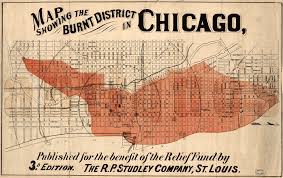
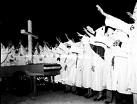


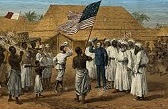



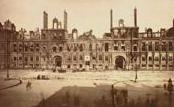






















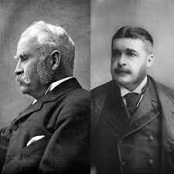
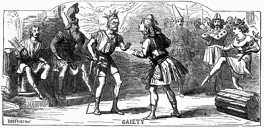









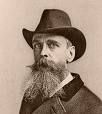
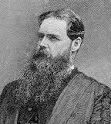













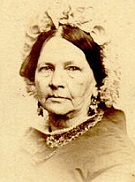



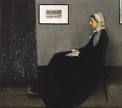
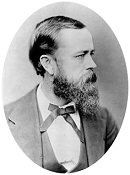
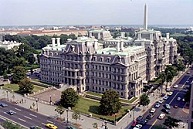

1871 On Jan. 15 Gen. Manuel Mariano Melgarejo Valencia (b. 1818) is overthrown, ending the Sexenio (6-year ordeal) (begun 1864), and Gen. Augustin Morales Hernandez (1808-72) becomes pres. of Bolivia (until Nov. 27, 1872), setting out to become a dictator until one of his letters is pub. in a newspaper, exposing him as virtually illiterate, causing him to mellow and call congress, asking them to decide if he should be replaced; too bad, his violent temper soon gets him killed by his own people. Nobody remembers you when you're strange? The Might Makes Right Non-Democratic German Empire puts its restless leg syndrome to rest? On Jan. 18 (Wed.) (Kaiser Day?) after the S German states (incl. Strassburg or Strasbourg) consent to join the German Confederation, the German Empire AKA the German Second Reich (First Reich in 800-1806) of 25 German states (incl. the grand duchy of Hesse-Darmstadt) is founded (ends Nov. 9, 1918), becoming the most powerful nation in Europe; Prussian king Wilhelm (William) I (1797-1888) is proclaimed German Kaiser (caesar, tsar, emperor) (not "emperor of the Germans", because that would have been a claim to Austria, Switzerland, and Luxembourg also) in Versailles, France; the Hohenzollern family, which has ruled Brandenburg since 1415 and Prussia since 1701 now rules Germany too (until 1918); the black-red-gold flag is replaced with a black-white-red flag (until 1919), with black-white representing dominant Prussia, and red the other German states; Wroclaw, Poland becomes Breslau, Germany (until 1945); British PM Benjamin Disraeli gives a speech in the House of Commons, with the soundbyte: "The balance of power has been completely destroyed, and the country which suffers the most from this and feels the effect of this change most strongly, is England"; deputy PM Robert Peel utters the soundbyte that Germany has been united under a "despotism". On Jan. 18 crowds gather outside the Hotel de Ville in Paris, HQ of the Paris Commune to protest rumors of a French surrender to the kraut-eating sausage-stuffing Prussians, and after soldiers shoot into the crowd, Commune extremists set fire to the building, destroying it and destroying virtually all public records from the French Rev. period; the building is later rebuilt with the same exterior but all-new improved interior. In Jan. Paris surrenders, and France signs an armistice, agreeing to a new election to please Bismarck; the French Nat. Assembly, consisting of 200 repubs. and 400 royalists meets in Bordeaux, and the Paris rev. repubs. refuse to recognize it; German calary Lt. (later gen.) Friedrich von Bernhardi (1849-1930) gets to be the first German to ride through the Arc de Triomphe as the Germans enter Paris, becoming a celeb; a preliminary peace is followed on May 10 by the Treaty (Peace) of Frankfurt, signed by Otto von Bismarck at the Swan Hotel in Frankfurt-am-Main (to which guns are fired in celebration in German-occupied Metz), by which France cedes Alsace-Lorraine (between the Metz and Vosges Rivers) (German Lorraine) (which Germany controls until 1919, and again in 1940-4), and pays an indemnity of 5B francs, which becomes the basis of an imperial military reserve fund of $30M in gold stored in the citadel Spandau Prison 9 mi. WNW of Berlin (built in 1876); the kingdom of Saxony is absorbed into the new German Empire; grumbling over the loss of Alsace-Lorraine, Leon Gambetta utters the soundbyte "Think of it always, speak of it never"; the statue of Strasbourg in the Place de la Concorde is draped in crape and mourning garlands; the Franco-Prussian War (begun 1870) ends with 299K dead and wounded; Jules Favre is criticized for yielding too much territory, and resigns as foreign minister, but stays in the chamber of deputies until being elected to the senate in 1876-80; Berlin (founded in the 13th cent.) (modern pop. 3.5M) becomes the capital of Germany (until 1945, and again in 1990), and the German Empire is now the most powerful state in jackboot Europe; the war results in masses of opium and morphine addicts; the glory of the Bonaparte family is almost kaput; Johannes Brahms composes Triumphlied (Song of Triumph), Op. 55 to celebrate the German V. In Jan. diamond seekers swarm the farm of South African farmer Adrian van Wyk in Griqualand West between the Orange and Vaal Rivers, and he ends up selling it for £2K; nearby another farm owned by the two De Beer brothers becomes the basis of De Beers Consolidated Mines, founding the city of Kimberley near the Big Hole (Kimberley Mine) (Groot Gat), the biggest hole ever dug with human hands, removing 25M tons of soil and extracting three tons of diamonds worth £47M by the time it closes in 1914; on Sept. 2, 1882 Kimberley becomes the 2nd city after Philly to install electric street lights; in Apr. Britain annexes the diamond region of Griqualand West, incl. Kimberley, and Cecil Rhodes moves there from Natal; in 1884 Basutoland (S and E of the Orange River) becomes part of Cape Colony; the white pop. of South Africa swells from 225K in 1870 to 1M in 1904. On Feb. 17 historian Louis Adolphe Thiers (1797-1877), who had in his youth been a radical, but turned into a conservative anti-clerical bourgeois old fart, and who had been against the war with Prussia, was accused of lack of patriotism, then vindicated when France lost, becomes head of the provisional govt. of France, then convinces the chamber of deputies to vote for peace on Mar. 1 by a 5-1 margin. In Feb. Socialist leader Louis Blanc returns to France from exile and is elected a member of the nat. assembly, pushing state Socialism while opposing the more extreme measures of the Paris Commune, pissing them off; Leon Gambetta is elected deputy by 9 depts., founding the influential newspaper La Republique Francaise; the exiled Legitimist pretender (1844-83) and "Miracle Child of 1820" Henri Charles Ferdinand Marie Dieudonne d'Artois, Count of Chambord, Duke of Bourdeaux (1820-83) and his rival for the throne, the Comte de Paris (Duke of Orleans) are finally reconciled when the latter is also exiled from France by the new repub. In Feb. 500 masked KKK klansmen assault the Union County Jail in S.C., take out 10 black militiamen accused of the murder of white wagoner George Muttison Stevens last Dec. 31 over some whiskey, then lynch six, shoot two, and "lose" the rest; on Apr. 28 Henry Cannon and Taylor Palmer are executed for it. On Mar. 13 the Treaty of London is a V for Russia, which gets the Euro powers to force the Ottomans to allow Russia to have a Black Sea fleet; on Oct. 31 Russia officially unilaterally repudiates the neutrality of the Black Sea established in the 1856 Treaty of Paris. Don't don't don't you forget about me? On Mar. 18 after French pres. Louis Adolphe Thiers orders the confiscation of several hundred cannon from the nat. guard a revolt begins, causing Thiers to evacuate his govt. from Paris to Versailles, after which on Mar. 26 the Paris Commune is formed by working class Communard radicals; on May 21 after 2 mo. of fighting the govt. breaks through the defenses, beginning the Bloody Week, with fighting more savage than in the French Rev. (not equalled till the 1917 Russian Rev.), killing or executing 20K and arresting 38K before recapturing Paris on May 28, then putting 12K through special courts martial, resulting in 23 executions and 4K transported to NewCaledonia, some till 1890; 3-time loser Louis Auguste Blanqui receives another life sentence (released in 1879); on Aug. 30 Thiers becomes provisional pres. of a new unnamed temporary repub. until a king can be chosen. On Mar. 29 John Maynard Woodworth (1837-79), Gen. William Tecumseh Sherman's surgeon in his March to the Sea is appointed as the first supervising surgeon of the U.S. Marine Hospital Service (founded 1798) (the first U.S. surgeon gen.) (until Mar. 14, 1979), designing its seal, consisting of a fouled anchor and Mercury's caduceus. On Apr. 20 the U.S. Second Enforcement (Civil Rights) (Ku Klux Klan) Act of 1871 is passed, outlawing many activities of the KKK, incl. the wearing of disguises; in Oct. Pres. Grant suspends habeus corpus in nine counties in upcountry S.C., and pursues mass prosecutions, bringing a halt to KKK actions; Section 1983 permits citizens to sue public officials for violating their rights, which the courts proceed to gut in favor of absolute prosecutorial immunity; a Congressional committee gathers 12 vols. of testimony on KKK activity; the new U.S. Justice Dept. carries out further prosecution, substantially reducing Klan activity; too bad, it doesn't stop state officials until the Feb. 20, 1961 U.S. Supreme Court case Monroe v. Pape. On Apr. 30 the Camp Grant Massacre in Ariz. Territory sees a group of whites and Mexican Ams. plus some Tohono O'odham Indians sneak into a planned Apache Rez in Aravaipa Canyon in Ariz. (60 mi. NE of Tucson) and massacre 150 Apaches, mostly women and children. In the spring undefeated Comanche chief Quanah Parker (1845-1911) (whose mother was a part-white woman) raids Texas, drawing allied Indian bands along, causing the U.S. 41st Black Infantry to go after them, only to see the Kiowa almost capture Gen. Tecumseh Sherman then disappear into the Llano Estacado (Staked Plain) or into Indian Territory, knowing that U.S. policy prohibits the U.S. military from entering without permission of the Indian Agent; the soldiers finally capture Kiowa chiefs Satank (Satanta) (Set-tainte) (1810-79) (an old guy) and his cousin Big Tree (1847-1929) after they brazenly come to Ft. Sill and brag to Gen. William T. Sherman that they had attacked a wagon train on May 18 and scalped seven freighters; after Satank attempts an escape and is killed, the rest are turned over to Texas authorities at Ft. Richardson, convicted of murder on July 5-6, and sentenced to hang, but on Aug. 2 Tex. Gov. Edmund J. Davis commutes their sentences to life imprisonment at the Texas State Prison at Huntsville, and after they grow ill Set-tainte and Big Tree are paroled on Aug. 19, 1873, after which Big Tree becomes a Baptist deacon, while Set-tainte lies low until the 1874 Red River War. On May 13 the Italian Law of Guarantees abrogates the temporal power of the pope, and confines the territory of the papacy to the Vatican and Lateran Palaces and villa of Castel Gandolfo; Pope Pius IX refuses to recognize this arrangement - oh for the hilarious days of my Holy Roman Empire, let's do it again? On May 16 the Yankee Disturbance of 1871 sees U.S. Marines under Capt. Robert Wilson Shufeldt (1822-95), backed by U.S. minister to Peking (former Calif. gov. #9 in 1863-7) Frederick Ferdinand Low (1828-94) attempt to pull a Commodore Perry on Korea, landing on Kanghwa Island at the mouth of the Han River; too bad, after getting their white butts kicked by the Taewon-gun, they are forced to withdraw. On May 24 French Roman Catholic archbishop of Paris Georges Darboy (b. 1813) is executed by the Paris Commune as it is about to be overthrown. On June 1 the city of Birmingham, Ala. (modern-day pop. 217K/1.1M) is founded at the planned crossing of the Alabama & Chattanooga and South & North Alabama Railroads from three farm towns by the Elyton Land Co., named after Birmingham, England to emphasize its industrial goals; in the early 1900s it becomes known as "the Magic City" and "the Pittsburgh of the South" for its rapid growth, mainly Irish and Italian non-union laborers along with African-Ams. from rural Ala., rivaling Atlanta, Ga. as a Deep South railroading hub and banking center; in 1902-12 four skyscrapers are built in downtown, becoming known as "the Heaviest Corner on Earth". On June 29 the British North Am. Act permits Canada to establish provinces; on July 20 British Columbia becomes a Canadian province; next year Frederick Hamilton-Temple-Blackwood, 1st Marquess of Dufferin and Ava (1826-1902) becomes gov.-gen. of Canada (until 1878), going on to convince British Columbia not to withdraw from Canada over a delay in establishing railroad service, and convincing Prince Edward Island to become part of Canada; future Liberal Party leader (1880-7) Edward Blake (1833-1912) becomes PM of Ontario (until 1872). On July 27 the German Brewers' Union is founded in Dresden, Germany, moving its HQ to Frankfurt am Main and growing to 636 members. On July 30 (1:30 p.m.) Staten Island ferry steamer Westfield suffers a boiler explosion while sitting at South Ferry, killing 85+ and injuring hundreds, causing owner Jacob Vanderbilt to be tried and acquitted of murder. In July in Bismarck begins his 14-year Kulturkampf (Ger. "struggle for civilization") with the Roman Catholic Church in Prussia (ends 1887), a war of state control over education, civil marriage, church appointments, etc., resulting in mass Catholic emigration. In Aug. the 41st Black Infantry campaigns against Southern Cheyenne Dog Soldiers. On Sept. 18 Federico Errazuriz Zanartu (Errázuriz Zañartu) (1825-77) becomes pres. of Chile (until Sept. 18, 1976), going on to consolidate liberal influence. On Sept. 22-24 the first Congress of Old Catholics meets in Munich to combat the dogma of papal infallibility. On Oct. 8 (night) the Peshtigo Fire N of Green Bay in NE Wisc. and Minn. begins, becoming the worst natural disaster in the U.S. (until ?), killing 1,152 and burning 2B trees. On Oct. 8-10 (Sun.-Tue.) the Great Chicago Fire of 1871 burns 17,450 bldgs., kills 250-300, destroys 3.3 sq. mi. of city territory, and leaves 100K+ homeless; the Chicago Daily Journal (founded 1844) starts the rumor about it being started by Mrs. O'Leary's cow, owned by Catherine "Cate" O'Leary (1827-95), whose barn at 137 DeKoven St. burns down; several breweries burn down, incl. Doyle & Co., Huck, Jerusalem, Lull & Diversey, Metz, Mueller, Sands, and K.G. Schmidt; Schlitz Beer Co. (founded 1849) makes Milwaukee famous when it ships them several kegs of brewsky; U.S. Fire Prevention Week is later set as the week that incl. Oct. 9; the Great Chicago Fire destroys the church bldg. owned by Northfield, Mass.-born fundamentalist Christian evangelist Dwight Lyman Moody (1837-99), after which wealthy John V. Farwell finances a bigger better church there, going on to go on a tour of the U.K. in spring 1872, preaching to audiences of 2K-30K along with hymnodist ("the Sweet Singer of Methodism") Ira David Sankey (1840-1908), causing him to make fans of U.S. pres. Grant, who attends his meeting on Jan. 19, 1876 after he returns to the U.S. and goes on tour, preaching hyis last sermon on Nov. 16, 1899 in Kansas City, Mo. after founding the Chicago (Moody) Bible Inst. in Chicago, Ill. for training missionaries for foreign lands, funded by John Wanamaker et al.; it goes on to offer a Bachelor of er, Science degree in Biblical Studies. Livingstone, I presume? Stanley, I presume? On Nov. 10 Welsh-born U.S. journalist Sir Henry Morton Stanley (John Rowlands) (1841-1904) (fresh from covering Am. Indians in the SW U.S.) finds missing Scotch missionary explorer David Livingstone (1813-73) in Ujiji (Kavele) (a Robin Williams boxed game?) due W of Zanzibar on the E shore of Lake Tanganyika in Africa, where Livingston had just returned from a journey W into cannibal territory, and his lip-smacking report to the New York Herald titled How I Found Livingstone captures the imagination of the world; Stanley then becomes an explorer himself, accompanying Livingstone N of Tanganyika, then going solo, visiting the fabled Mountains of the Moon in the Ruwenzori Mts. in EC Africa (highest peak 16,762 ft. Mount Stanley), which support glaciers that are the source of the Nile River, going on to pub. Through the Dark Continent: The Sources of the Nile Around the Great Lakes of Equatorial Africa and Down the Livingstone River to the Atlantic Ocean (2 vols.) in 1878, coining the term "dark continent" for Africa; in 1874 Livingstone begins a posth. nat. hero, causing several missionary initiatives into C Africa to be founded. On Nov. 17 after Union vets find that soldiers lack proficiency in you know what, the Nat. Rifle Assoc. (NRA) is incorporated in the U.S. In Dec. Paiwan aborigines murder 54 sailors from Ryukyu Island, causing Japan to claim control of the Ryukyu Islands (Okinawa) next year, then in May 1874 invade Taiwan to punish the murderers, withdrawing in return for an indemnity; Mitsubishi Co. supplies the ships for the punitive expedition, after which the govt. gives them back in gratitude; Japan annexes Okinawa in 1879, ignoring commercial development for military fortifications. A liberal rev. in Guatemala deposes Vicente Cerna and brings Gen. Justino Rufino Barrios (1835-85) to power (until 1885); he knocks the Church down a few pegs by disentailing Church properties, abolishes the merchants guilds to promote economic liberalism, and gets the support of big and small landowners by backing forced Indian labor on coffee plantations, causing exports to triple by 1885, while Indian communal lands are stolen, er, absorbed into more efficient configurations? - watch, triple reverse kukulatch, I can eat bananas now? Conservative Jose Vicente Cuadra becomes pres. of law-and-order pass-the-sugar Nicaragua (until 1875). The Treaty of Washington (London), negotiated by U.S. secy. of state Hamilton Fish (1808-93) finally settles U.S. claims against Britain for damage to Union shipping during the Civil War by Confederate cruisers built by Britain, namely, the Alabama, Shenandoah, and Florida, throwing them into an internat. tribunal for arbitration, which next year awards the U.S. $15.5M. The Trade Union Act secures the legality of unions in Britain. The U.S. District of Columbia Organic Act of 1871 creates a new city govt. for the entire District of Columbia, merging the separate municipalities of Washington, D.C. and Georgetown along with the county of Washington, with a gov. appointed by the U.S. pres., and an elected assembly; in 1874 Congress establishes a local govt. made up of three commissioners appointed by the U.S. pres., making Washington, D.C. the only U.S. city whose pop. doesn't elect its officials; it's really a conspiracy to create a 2nd secret U.S. Constitution, making Washington, D.C. into a city-state that's part of the Empire of the City incl. London and the Vatican? After Mexican pres. Benito Juarez was reelected for six more years in Dec. 1867, liberal losing candidate Gen. Porfirio Diaz stages an unsuccessful revolt - another crowd pleaser from the great teaser? The British dependency of the Federal Colony of the Leeward Islands is formed (until 1956), incl. St. Kitts and Nevis (until 1979), Antigua (until 1981), Barbuda (until 1967), Montserrat (until 1958), Anguilla (until ?), Dominica (until 1940) and the British Virgin Islands (until 1967). The city of Ivanovo 160 mi. NE of Moscow (modern-day pop. 408K) is founded by merging the 16th cent. village of Ivanova with the new digs of Voznesensk; until 1932 it is called Ivanovo-Boznesensk. The city of Spokane, Wash. on the Spokane River on the former site of the Spokane "children of the sun" people (modern-day pop. 209K/710K) is settled by cattle ranchers J.J. Downing and S.R. Scranton; on June 20, 1881 the railroad reaches the city, bringing Euro settlement, and it is incorporated on Nov. 29 with 1K pop.; in 1883 gold, silver, and lead are discovered in the Coeur d'Alene region of N Idaho, causing Spokane to become a mining-smelting town until the Great Fire on Aug. 4, 1889 burns down 32 blocks of downtown, which doesn't stop it from being rebuilt and reincorporated in 1891, becoming known as "the Lilac City". After testimony by Jewish Cambridge U. senior wrangler Numa Edward Hartog (1846-71), the Universities Tests Act of 1871 opens Oxford and Cambridge to members of all religions, ditching the Anglican religious test - like Harold Abrahams? The U. of Ark (UA) (originally Ark. Industrial U. until 1899) is founded in Fayetteville, Ark. at the foot of the Ozark Mts., holding its first classes next Jan. 22, becoming the state's flagship univ., with six main campuses incl. Pine Bluff (1873), Monticello (1910), Little Rock (1927), and Fort Smith (1928); U. of Ark. sports teams are called the Razorbacks. Newnham College is founded, becoming the 2nd oldest college for women at Cambridge U. In Japan an imperial decree abolishes all fiefs; a ministry of education is set up to provide universal education. The Anarchist Congress of Valencia in Spain proclaims that women should not be required to work, and begins fomenting risings in Andalusia throughout this decade. Princeton-educated poet George Henry Boker (1823-90) becomes U.S. minister to Turkey until 1875, followed by Russia (1875-9). After decades of being treated as a renegade in Scotland, aging "everybody is saved" Scottish minister John McLeod Campbell (1800-72) is presented with a testimonal and address by reps. of almost every religious denomination in Scotland - just in case he's right? After being kicked out of Afghanistan in 1868, moving to Egypt and founding the Masonic Lodge of Cairo and being kicked out of the Scottish Masonic Lodge for atheism, then becoming grand master of the French Grand Orient, pan-Islamic Shiite activist Jamal al-Din al-Afghani (1839-97) moves to Egypt (until 1879), going on pretend to be an Afghani in order to mix with Sunnis in a life devoted to waking Muslims to the Euro (esp. British) threat until he is exiled, then preaching solidarity in Turkey, London, Paris, Moscow, St. Petersburg, and Munich before being invited in 1890 to come to Iran by Shah Nasser al-Din, who has him arrested after 7 mo. and exiled after agitating against him for selling out to Europeans, then moving to Istanbul in 1892 after an invitation from Sultan Abdulhamid II, living there until his death from throat cancer on Mar. 9, 1897. The Protestant Episcopal Church of Ireland is disestablished and separated from the Church of England, and becomes an independent body governed by a gen. synod, with most of its members in Northern Ireland. The Anglo-Jewish Assoc. is founded in Britain for the "promotion of social, moral, and intellectual progress among the jews, and the obtaining of protection for those who may suffer in consequence of being Jews"; members incl. Jacob Behrens and Lucien Wolf. The city of Longmont, Colo. 31 mi. NNW of Denver, named after Long's Peak is founded by settlers from Chicago, Ill. German explorer Carl (Karl) Gottlieb Mauch (1837-75) reaches Zimbabwe and finds the ruins of Great Zimbabwe. Ft. Kearny along the Platte River in Neb. (founded 1848) is abandoned. Vt.-born Repub. New York City atty. Chester A. Arthur (b. 1830) is appointed collector of the Port of New York by Pres. Grant, where he is in control of considerable patronage and fights the urge to become corrupt; in 1877 Pres. Hayes calls for an investigation, and in 1878 he is suspended. Am. explorer Charles Hall becomes the first to explore above 82 deg. N lat. English-born Am. artist Thomas Moran (1837-1926) explores the Yellowstone region, followed by the Colo. River in 1873, producing landscapes that end up in the U.S. Capitol. The Bank Holidays Act of 1871 establishes the first bank holidays in the U.K. on Easter Mon., Whit Mon., First Mon. in Aug., and Boxing Day in England and Wales, or St. Stephen's Day in Ireland; repealed in 1971. Underwater cables are laid from Vladivostok to Nagasaki to Shanghai, Hong Kong, and Singapore. Alcorn State U. is founded near Lorman, Claiborne County, Miss. (80 mi. SW of Jackson, Miss.) by the Miss. legislature, becoming the first black land grant college in the U.S.; sports teams are nicknamed the Braves; alumni incl. civil rights hero Medgar Evers. The New York Times backs a progressive drive to criminalize abortion in New York City, which up till now was legal in the U.S. and considered a private matter; in the 1890s the Progressive Era arrives (ends), combining with the eugenics movement to turn abortion into a political football to force white women to become breed mares fighting to keep the pure white race from being outbred by inferior races, calling women going into higher education "infertiles", and women opting for a career "prostitutes". The Austin American-Statesman (originally "Democratic Statesman") tri-weekly newspaper is founded by the Tex. Dem. Party; in 1914 it merges with the Austin Tribune, becoming the Austin Statesman and Tribune; in 1916 it becomes the Austin Evening Statesman; in 1919 Charles E. Marsh and E.S. Fentress acquire it and merge it with the rival Austin American (founded 1914), pub. the morning and evening newspapers separately during the week and combining them on Sun. until 1973, when they are combined, with four daily eds. The Stockholm-Christiania Railway in Sweden is completed. The steamboat stop city of Fargo, N.D. (originally Centralia) on the Red River (modern-day pop. 105K/238K), named after Wells Fargo founder William Fargo is founded, going on to hook up with the Northern Pacific Railroad and gain the nickname "Gateway to the West", and become the divorce capital of the Midwest in the 1880s because of lenient divorce laws. Smith College for women is founded in Northampton, Mass. in "city in a forest" Pioneer Valley, Mass. by a $375K bequest from Sophia Smith (1796-1870), opening for classes in 1875 with six faculty and 14 students, going on to become the largest member of the Seven Sisters (and a breeding ground for lesbianism?); her will stipulates: "Sensible of what the Christian Religion has done for my sex, and believing that all education should be for the glory of God, and the good of man, I direct that the Holy Scriptures be daily and systematically read and studied in said College, and without giving preference to any sect or denomination, all the education and all the discipline shall be pervaded by the Spirit of Evangelical Christian Religion"; alumni incl. Julia Child, Betty Friedan, Nancy Reagan, Gloria Steinem, Sylvia Plath, Piper Kerman, and Grace Metallious. The New Currency Act establishes the Yen (Jap. "round") as Japan's official currency, defined as 1.5g oz. of gold or 24.26g of silver; in 1882 the Bank of Japan is founded, with a monopoly on the money supply; the yen goes on to fuel Japan's industrial expansion and become the world's 3rd most-traded currency. Phineas T. (P.T.) Barnum (1810-91) opens Barnum's Circus, "the Greatest Show on Earth" in Brooklyn, N.Y. Baroness Angela Georgina Burdett-Coutts (1814-1906) becomes the first woman in England to receive a peerage, and next year becomes the first woman to have the freedom of the city of London conferred upon her for her philanthropic activities. Ohio atty. William McKinley (b. 1843) marries Ida Saxton (1847-1907); they have no sons and 2 daughters; her epilepsy is artfully covered up when she becomes First Lady in 1897-1901. Johannes Brahms begins conducting the Gesellschaft der Musikfreunde (founded 1812) in Vienna (until 1874). English playwright-librettist Sir William Schwenck Gilbert (1836-1911) (knighted in 1907) and English composer Sir Arthur Seymour Sullivan (1842-1900) (knighted in 1883) begin their collaboration (ends 1896), producing 14 comic operettas, produced by Richard D'Oyly Carte (1844-1901) at the Savoy Theatre in London (1881-). London-born Clement Scott (1841-1904) becomes theater critic for the London Daily Telegraph (until 1898), going on to set the standard of attending first night performances; in 1883 he calls the N Norfolk coast "Poppyland", causing the theater set to buy homes there. Am.-born English singer-actress Kate Santley (1837-1923) debuts on Broadway, becoming a hit in the U.S. and England, and going on to become mgr. of the Royalty Theatre in 1877. French opera composer Ambroise Thomas (1811-96) becomes dir. of the Conservatoire de Paris (until 1896). Judge R.B. Ord of Santa Barbara, Calif. plants the first avocado trees in Calif., imported from Mexico; in 1879 an avocado tree is planted on the campus of the U. of Calif. in Berkeley, Calif. Buckinghamshire girl Ellen Sadler (b. 1859) falls asleep, not waking for nine years, becoming known as the Sleeping Girl of Turville. The Fruit of the Loom (founded 1851) brand is trademarked (#418) by textile mill owner Robert Knight (1826-1912) of R.I., taking advantage of the new 1870 U.S. trademark laws; the logo doesn't appear on men's underwear until 1938. Architecture: In 1871-88 the French Empire style Eisenhower Executive Office Bldg. (originally the State, War, and Navy Bldg.), located just W of the White House at 17th St., N.W. between Pennsylvania Ave., State Place, and West Executive Dr. in Washington, D.C. is commissioned by Pres. Grant on the site of the 1800 Old State, War, and Navy Bldg and the White House stables, becoming the world's largest office bldg. (until ?), with 566 rooms and 10 acres of floor space; too bad, the architectural style clases with the neoclassical style of the other federal bldgs. in the city, causing public ridicule, with Mark Twain calling it "The ugliest building in America", and historian Henry Adams calling it an "architectural infant asylum", causing Taunton, England-born architect Alfred Buit Mullett (1834-90) to commit suicide on Oct. 20, 1890. Grand Central Terminal in midtown Manhattan, N.Y. at 42nd St. and Park Ave. opens, built by the New York Central and Hudson River Railroad, containing 44 platforms (most on Earth), all below ground, serving 30 tracks on the upper level and 26 on the lower level, and 100+ total tracks; it is rebuilt in 1913, and 1994-2000; the nearby U.S. post office at 450 Lexington Ave. is called Grand Central Station. Royal Albert Hall in London, England opens; by 2007 an 861-year lease on a half-box of five seats on the Grand Tier goes for $753K plus $880 annual service charge plus plus - how many whats does it take to fill it? Mt. Cenis Tunnel opens. Sports: The F.A. (Football Assoc.) Cup is established, becoming the first soccer trophy to be awarded. The Nat. Assoc. of Prof. Baseball Players in New York City is founded (until 1876). Inventions: The first Electronic (Telegraph) Money Transfers become available from Western Union. After ex-Mexican pres. Gen. Santa Anna arrives in N.J. in 1869 with a ton of Mexican chicle, Thomas Adams of Staten Island, N.Y. is issued a patent for a chewing gum-making machine; in 1884 his Am. Chicle Co. introduces Black Jack brand licorice (aniseed)-flavored chewing gum, becoming the first to be sold in sticks. Otto Baur of dry mile-hi Denver, Colo. invents the Ice Cream Soda (Float) (Spider); really invented in 1874 by Robert McCay Green of Philly, his employee George Guy, Fred Sanders, or Philip Mohr? Simon Ingersoll (1818-94) of the U.S. invents the Pneumatic Rock Drill (Drifter); in 1905 his Ingersoll Rock Drill Co. merges with the Rand Drill Co. to form Ingersoll-Rand - finally immigrant Chinese have something to do besides cook and wash and hook? James Beall Morrison patents the first mechanized dental drill. Francis Herbert Wenham (1824-1908) of the U.S. invents the Wind Tunnel. Zeth Wheeler patents rolled-perforated wrapping paper. Science: St. Petersburg, Russia-born German mathematician Georg Ferdinand Ludwig Philipp Cantor (1845-1918) founds the Theory of Point Sets, then next year becomes a prof. at the U. of Halle, going on to develop the Theory of Transfinite Numbers, which are larger than all finite numbers, but not necessarily absolutely infinite. Charles Darwin writes a Letter to Sir Joseph Dalton Hooker on Feb. 1, with the soundbyte: "It is often said that all the conditions for the first production of a living organism are now present, which could ever have been present. But if (and oh! what a big if!) we could conceive in some warm little pond, with all sorts of ammonia and phosphoric salts, light, heat, electricity, &c., present, that a protein compound was chemically formed ready to undergo still more complex changes, at the present day such matter would be instantly absorbed, which would not have been the case before living creatures were found." German economist Ernst Louis Etienne Laspeyres (1834-1913) pub. an article proposing the Laspeyres Price Index, which has an index of 1 when a person can afford to buy the same bundle in the current period that they consumed in the previous period if their income remains the same; meanwhile in 1877 German economist Hermann Paasche (1851-1925) proposes the Paasche Price Index, which has an index of 1 when a person could consume the same bundle in the base period that they are consuming in the current period if their income remains the same - that's the same cat and also not? Obscure German physicist Julius Robert von Mayer (1814-78) finally gains recognition for discovering the Law of Conservation of Energy in 1842 after a lecture by chemist Justus von Leibig (1803-73), and receives the Copley Medal. Nonfiction: David Brown (1803-97), Robert Jamieson (1802-80), and Andrew Fausset (1821-1910), The Jamieson-Fausset-Brown Bible Commentary; "A humble effort to make the Scripture expound itself." Robert Williams Buchanan (1841-1901), The Land of Lome (2 vols.); yachting on the W coast of Scotland. John Burroughs (1837-1921), Wake Robin. Paul du Chaillu (1835-1903), The Country of the Dwarfs. Sir William Crookes (1832-1919), Select Methods of Chemical Analysis. Charles Darwin (1809-82), The Descent of Man, and Selection in Relation to Sex (Feb. 24); applies his theory of evolution to humans; "The Simidae then branched off into two great stems, the New World and the Old World monkeys; and from the latter at a remote period, Man, the wonder and glory of the universe, proceeded"; "We civilized men... do our utmost to check the process of elimination; we build asylums for the imbecile, the maimed, and the sick; we institute poor laws; and our medical men exert their utmost skill to save the life of everyone to the last moment... Thus the weak members of civilized societies propagate their kind. No one who has attended to the breeding of domestic animals will doubt that this must be highly injurious to the race of man. It is surprising how soon a want of care, or care wrongly directed, leads to the degeneration of a domestic race; but excepting in the case of man himself, hardly anyone is so ignorant as to allow his worst animals to breed"; attempts to scientifically establish white racial supremacy, with the soundbytes: "Western nations of Europe immeasurably surpass their former savage progenitors and stand at the summit of civilization"; "American aborigines, Negroes, and Europeans differ as much from each other in mind as any three races that can be named"; "At some future period, not very distant as measured by centuries, the civilised races of man will almost certainly exterminate, and replace, the savage races throughout the world. At the same time the anthropomorphous apes, as Professor Schaaffhausen has remarked, will no doubt be exterminated. The break between man and his nearest allies will then be wider, for it will intervene between man in a more civilised state, as we may hope, even than the Caucasian, and some ape as low as a baboon, instead of as now between the negro or Australian and the gorilla"; "Looking to future generations, there is no cause to fear that the social instincts will grow weaker, and we may expect that virtuous habits will grow stronger, becoming perhaps fixed by inheritance... [so that] virtue will be triumphant"; "It is the most closely allied forms... which, from having nearly the same structure, constitution, and habits, generally come into the severest competition with each other; consequently, each new variety of species, during the progress of its formation, will generally press hardest on its nearest kindred, and tend to exterminate them"; "This is the book that contains the foundation in natural history for our view" (Marx to Engels); this book is later used by Eugenicists to justify euthanasia of misfits, using soundbytes incl. "We civilized men... do our utmost to check the process of elimination; we build asylums for the imbecile, the maimed, and the sick; we institute poor laws; and our medical men exert their utmost skill to save the life of everyone to the last moment... Thus the weak members of civilized societies propagate their kind. No one who has attended to the breeding of domestic animals will doubt that this must be highly injurious to the race of man. It is surprising how soon a want of care, or care wrongly directed, leads to the degeneration of a domestic race; but excepting in the case of man himself, hardly anyone is so ignorant as to allow his worst animals to breed.... All do good service who aid toward this end." Henry Fawcett (1833-84), The Economic Position of the British Labourer. Nathaniel Hawthorne (1804-64), French and Italian Notebooks; ed. by Sophia Hawthorne. Thomas Henry Huxley (1825-95), Manual of the Comparative Anatomy of Vertebrated Animals. William Stanley Jevons (1835-82), The Theory of Political Economy; his magnum opus, popularizing the Final (Utility) Theory of Value, along with the Law of Diminishing Returns. Benjamin Jowett (1817-93) (tr.), Plato's Dialogues (4 vols.); his best work? Cesare Lombroso (1835-1909), Sociological Theories of Deviance; claims that criminals are born not made, their physiognomy giving them away, esp. large jaws, low sloping foreheads, handle-shaped ears, hawk noses, big lips, hard shifty eyes, scanty beard or baldness; females are naturally passive, hence lack the intelligence and initiative to become criminal; blacks were the first humans, who evolved to yellow then us whites; "Only we white people have reached the ultimate symmetry of bodily form." Dmitri Mendeleyev (1834-1907), The Periodic Regularities of the Chemical Elements; boldly predicts that some accepted atomic weights are grossly in error, and other elements yet to be discovered will plug up gaps in his Periodic Table. Carl Menger (1840-1921), Principles of Economics; lays the foundation for the Austrian School of Economics, which challenges the cost-based theories of Adam Smith and David Ricardo with his Theory of Marginal Utility (Marginality), which claims that price is determined at the margin, and the Theory of Imputation, which claims that factor prices are determined by output prices, i.e., that value isn't made up of the factors that made up a good, but of the most valuable use that the last unit of the good could be put to, reversing the Labor Theory of Value of Adam Smith and David Ricardo. George Mivart, Genesis of Species; "The author has been assured that lower races of men appear less keenly sensitive to physical suffering than do more cultivated and refined human beings." Theodor Mommsen (1817-1903), Roman Constitutional Law (1871-6). Lewis Henry Morgan (1818-81), Systems of Consanguinity and Affinity of the Human Family (pub. by the Smithsonian Inst.); his masterwork; attempts to prove the Asian origin of Am. Indians via their kinship systems. Pierre le Play (1806-82), L'Organisation de la Familie. August Rohling, Der Talmudjude; an influential anti-Semitic polemic based on the "Entdecktes Judenthum" (1700) of Johann Andreas Eisenmenger (1654-1704). John Ruskin (1819-1900), Fors Clavigera (1871-87). Sir Leslie Stephen (1832-1904), The Playground of Europe; his Alpine mountaineering fun. Edward Burnett Tylor (1832-1917), Primitive Culture: Researches into the Development of Mythology, Philosophy, Religion, Art, and Custom (2 vols.); founds modern Cultural Anthropology, popularizing the term "animism" as the first phase of religious development, claiming that all cultures manifest a "unanimity", the result of "uniform action of uniform causes", with parallel ethnographic concepts and practices proving the existence of "law of human thought and action", preferring cultural evolution over diffusion. Adolph Wagner, The Social Question. Walt Whitman (1819-92), Democratic Vistas. Rosicrucian Dream Book (Boston, Mass.); contains the meanings of over 3K dreams in alphabetical order; potatoes means someone is poisoning the minds of those who do you good; camels means one's love is far better than he/she looks? Music: Harry Birch and William Gooch, Reuben and Rachel; "Reuben, Reuben, I've been thinking." Johannes Brahms (1833-97), Triumphlied (Song of Triumph); celebrates the German V over the French in Jan. 1871. P. Degeyter and Eugene Pottier, L'Internationale; written in June 1871 by two French workers two weeks after the collapse of the 6-day Paris Commune, and translated into every language where red flags fly; the original French vers. sounds the best? ; "No more tradition's chains shall bind us,/ Arise you slaves no more in thrall./ The Earth shall rise on new foundations/ We have been nought, we shall be all."/ 'Tis the final conflict,/ Let each stand in his place/ The international soviet/ Shall be the human race./ 'Tis the final conflict,/ Let each stand in his place./ The international working class/ Shall be the human race." Zdenek Fibich (1850-1900), The Jew of Prague (overture). Charles-Camille Saint-Saens (1835-1921), Le Rouet d'Omphale, Op. 31 (symphonic poem). Alfred, Lord Tennyson (1809-92) and Sir Arthur Sullivan (1842-1900), The Window; or, The Songs (Loves) of the Wrens. Christmas Eve in Cairo this year is something special? Giuseppe Verdi (1813-1901), Aida (Arab. "reward, present") (opera) (Dec. 24) (Khedivial Opera House, Cairo); libretto by Antonio Ghislanzoni, conducted by Giovanni Bottesini; his #2 masterpiece after 1887's "Otello"?; based on a scenario by French Egyptologist Auguste Mariette; commissioned by Egyptian khedive Ismail Pasha for 150K francs; pharaoh's daughter Amneris loves hunky capt. of the guard Radames, who really loves Ethiopian hot chocolate slave Aida, daughter of king Amonasro, who invades Egypt to rescue her, and is defeated by new Egyptian CIC Radames, who is betrothed to Amneris as his reward, while Amonasro conceals his identity to survive after Radames gets all prisoners except him and Aida freed; too bad, Radames is seduced on his wedding day by Aida on orders of Amonasro into betraying his country by giving up his army's location and letting him and Aida escape after high priest Ramfis blows the whistle, after which he is condemned to being buried alive in a tomb, only to discover Aida waiting for him in the cooler to make some hot fudge sundaes in eternity; not written to celebrate the opening of the Suez Canal because Verdi doesn't write "occasional pieces"; Act 3 opens in front of a temple of Isis on the bank of the Nile. Art: Sir Lawrence Alma-Tadema (1836-1912), A Roman Emperor. Thomas Eakins (1844-1916), Max Schmitt in a Single Scull. Eugene Fromentin (1820-76), Arabs. William Henry Jackson (1843-1942), Yellowstone (photo series); helps convince Congress to make it a nat. park? Frederick Leighton (1830-96), >Hercules Wrestling with Death. John Everett Millais (1829-96), Chill October. Sir Edward Poynter (1836-1919), Visit of the Queen of Sheba (1871-5). Dante Gabriel Rossetti (1828-82), The Dream of Dante. Marie Spartali Stillman (1844-1927), Self-Portrait. James Abbott McNeill Whistler (1834-1903), Arrangement in Grey and Black #1 (Whistler's Mother); an insult to call his mother an arrangement?; only Am. painting in the Louvre; #2 is of Thomas Carlyle - dour and douce? Plays: Sir Francis Burnand (1836-1917), Poll and Partner Joe. Sir William Schwenck Gilbert (1836-1911), Pygmalion and Galatea (comedy); how King Pygmalion of Cyprus falls in love with an ivory statue, and gets Aprhodite to bring it to life, becoming his wife Galatea, who bears daughter Paphos, who loves Apollo and bears daughter Cinyras, founder of Paphos in W Cyprus. Sir William Schwenck Gilbert (1836-1911) and Sir Arthur Sullivan (1842-1900), Thespis, or The Gods Grown Old (comic operetta #1) (Gaiety Theatre, West London) (Dec. 26) (63 perf.); a Christmas entertainment about the aging gods of Mount Olympus, who trade places with an acting troupe led by Thespis, Father of Greek Drama, with the humans messing up so bad that they are sent back to Earth as "eminent tragedians, whom no one ever goes to see." Leopold Lewis, The Bells (Lyceum Theatre, Nov. 25) (150 perf.); based on "Le Juif Polonais"; makes a star of Sir Henry Irving (John Henry Brodribb) (1838-1905) as Mathias, turning the the ailing 2.1K-seat Lyceum Theatre (founded 1765) in Westminster, London around; in 1874 he stars in Shakespeare's "Hamlet" (200 perf.), followed by Macbeth in 1875, Othello in 1876, and Richard III in 1877. Alexander Ostrovsky (1823-86), The Forest. Thomas William Robertson (1829-71), War (last play) (St. James's Theater). Poetry: Giosue Carducci (1835-1907), Decennali. George Eliot (1819-80), Armgart. Renato Fucini (1843-1921), Cento Sonetti in Vernacolo Pisano. Vitezslav Halek (1835-74), In the Manor House and in the Cottage. Mihaly Munkacsy (1844-1900), Pluckmakers. Nikolai Nekrasov (1821-78), Russian Women. August Strindberg (1849-1912), The Outlaw. Algernon Charles Swinburne (1837-1909), Songs Before Sunrise; militant pro-republican Italian smut? Novels: Louisa May Alcott (1832-88), Little Men; Jo and her hubby Prof. Friedrich Bhaer at Plumfield School; #2 in the March Family Trilogy (1868-1886). William Black (1841-98), The Monarch of Mincing Lane; A Daughter of Heth; a French Roman Catholic girl comes to live with her Protestant relatives in Scotland; makes him an instant star. Mary Elizabeth Braddon (1837-1915), Fenton's Quest. Robert Browning (1812-89), Balaustion's Adventure; Prince Hohenstiel-Schwangau, Saviour of Society. Lewis Carroll (1832-98), Through the Looking-Glass and What Alice Found There (Dec.); Alice steps through a parlor mirror and enters the Looking-Glass House, meeting Humpty-Dumpty, Tweedledum, and Tweedledee, and becoming a piece in a chess game; the Red Queen loves to shout "Off with their heads!"; the White Queen lives in backwards time; "Queens never make bargains"; incl. the poems The Walrus and the Carpenter, and Jabberwocky. Dinah Craik (1826-87), Hannah. Fyodor Dostoyevsky (1821-81), The Demons (Possessed); written to counter the nihilism gripping Russia; narrated by Anton Lavrentyevich G., about Pyotr Stepanovich Verkhovensky (based on Sergey Nechayev), who starts a socialist rev. in a provincial town that descends into horros, while mysterious aristocrat Nikolai Stavrogin fights for morality; Pyotr's father Stepan (Stavrogin's teacher) represents the idealistic Western-loving 1840s generation. a suppressed chapter, Stavrogin's Confession is not pub. until the 1922 English trans. George Eliot (1819-80), Middlemarch; small-town English citizens on the eve of the 1832 Reform Bill; progressive Dorothea Brooke marries elderly scholar Casaubon, then falls in love with his young cousin Will Ladislaw; meanwhile idealistic Dr. Tertius Lydgate arrives in Middlemarch with new methods of medicine, getting into a battle with conservatives while falling for young Rosamond Viney; "One of the few English novels written for grown-up people" (Virginia Woolf). Henry James (1843-1916), Watch and Ward (first novel); serialized in "The Atlantic Monthly"; Roger Lawrence adopts 12-y.-o. orphan Nora Lambert, and raises her as his bride to be; James later disowns it and calls "Roderick Hudson" (1875) his first novel. Kurd Lasswitz (1848-1910), To the Zero Point of Existence (Biz sum Nullpunk des Seins); life in the year 2371. George Meredith (1828-1909), The Adventures of Harry Richmond. Margaret Oliphant (1828-97), Squire Arden. Charles Reade (1814-84), A Terrible Temptation. Emile Zola (1840-1902), Les Rougon-Macquart: Natural and Social History of a Family Under the Second Empire, a cycle of 20 novels (1871-93) that follow the lives of members of the two titular branches of a fictional family during the Second French Empire (1852-70), becoming the #1 work of the French naturalism lit. movement, starting with La Fortune des Rougon. Births: French Borel Set mathematician Felix Edouard Justin Emile Borel (d. 1956) on Jan. 7 in Saint-Affrique. Irith Northern Ireland PM #1 (1921-40) James Craig, 1st Viscount Craigavon (d. 1940) on Jan. 8 in Belfast; created baronet in 1918, and viscount in 1927. German Adm. Magnus Otto Bridges von Levetzow (d. 1939) on Jan. 8 in Flensburg. Am. banker (Jewish) Felix Moritz Warburg (d. 1937) on Jan. 14 in Hamburg, Germany; grandson of Moses Marcus Warburg. British Adm. Sir David Beatty, 1st Earl Beatty (d. 1936) on Jan. 17 in HoweBeck (1970-), Cheshire; created earl in 1927. Romanian PM (1931-2) and historian-poet-playwright-critic Nicolae (Nicolai) (Nicolas) (Neculai) (Nicu) Iorga (Jorga) (d. 1940) on Jan. 17 in Botosani. British Maj. Gen. Sir Frederick Barton "Putty Nose" Maurice, 1st Baronet (d. 1951) on Jan. 19 in Dublin. Am. suffragist Maud Wood Park (d. 1955) on Jan. 25 in Boston, Mass.; educated at Radcliffe College. Australian "Chu Chin Chow" actor-writer-dir. John Strange(r) Heiss Oscar Asche (d. 1936) on Jan. 26. British industrialist-politician Sir Arthur Philip Du Cros, 1st Baronet (d. 1955) on Jan. 26 in Dublin, Ireland; created baronet in 1916. Am. "John Carter in Acquitted" actor Wilfred Lucas (d. 1940) on Jan. 30 in Norfolk, Ont.; husband (1917-27) of Bess Meredyth (1890-1969); father of John Meredyth Lucas (1919-2002); educated at McGill U.; emigrates to the U.S in 1889. German Social Dem. leader, chancellor #9 (1918-19) and pres. #1 (1919-25) Friedrich "Friz" Ebert Sr. (d. 1925) on Feb. 4 in Heidelberg; father of Fritz Ebert Jr. (1894-1979). Japanese bacteriologist (discoverer of the dysentery bacillus) Kiyoshi Shiga (d. 1957) on Feb. 7 in Sendai, Miyagi Prefecture; namesake of Gram-negative rod-shaped Shigella bacillus. British Liberal MP (1908-18) Arthur Augustus William Harry Ponsonby, 1st Baron Ponsonby of Shulbrede (d. 1946) on Feb. 16; educated at Eton College, and Balliol College, Oxford U.; created baron in 1930. English stainless steel inventor Harry Brearley (d. 1948) on Feb. 18 in Sheffield. Scottish statistician George Udny Yule (d. 1951) on Feb. 18 in Morham, Scotland; son of Sir George Udny Yule (1813-86), brother of Sir Henry Yule (1820-89); educated at Winchester College, and Univ. College London. German Marxist economist-activist (Jewish) Rosa Luxemburg (d. 1919) on Mar. 5 in Zamosc (near Lublin), Poland; emigrates to Germany in 1896. Am. historian-political scientist Charles Howard McIlwain (d. 1968) on Mar. 15 in Saltsburg, Penn.; husband of Mary Irwin an Kathleen Thompson; educated at Princeton U., and Harvard U. Am. theater owner (Jewish) Levi "Lee" Shubert (d. 1953) on Mar. 25 in Vladislavov, Poland (modern-day Kurdikos Naumiestis, Lithuania); emigrates to the U.S. in 1882; brother of Sam Shubert (1878-1905) and Jacob Shubert (1879-1963). Hawaiian prince Jonah Kuhio Kalaniana'ole (d. 1922) on Mar. 26 in Kukui'ula, Koloa, Kauai. German novelist Luiz (Ludwig) Heinrich Mann (d. 1950) on Mar. 27 in Lubeck; elder brother of Thomas Mann (1875-1955). Dutch conductor Joseph Willem (Wilhelm) Mengelberg (d. 1951) on Mar. 28 in Utrecht; German parents. Mexican poet Jose Juan de Aguilar Acuña Tablada (d. 1945) on Apr. 3 in Mexico City. Am. football player-coach Glenn Scobey "Pop" Warner (d. 1954) on Apr. 5 in Springville, N.Y.; educated at Cornell U.; coach for 45 years, starting with the U. of Ga. (1895-6), Cornell U. (1897-98, 1904-6), Carlile Indian Industral School (where he coaches Jim Thorpe) (1899-1903, 1907-14), U. of Pittsburgh (1915-23), Stanford U. (1924-32), and Temple U. (1933-8). Greek monarchist PM (1936-41) Gen. Ioannis (John) Metaxas (d. 1941),/a> on Apr. 13 in Ithaca. English "Sir Joseph Banks in Mutiny on the Bounty", "Mr. Brownlow in Oliver Twist" "Lord Burghley in The Private Lives of Elizabeth and Essex" actor Henry Stephenson (Henry Stephenson Garroway) (d. 1956) on Apr. 16 in Grenada; plays friendly and wise gentlemen; likes to co-star with Errol Flynn as his superior and paternal friend. Croatian inventor Slavoljub (Croatian "Slavophile") Eduard Penkala (d. 1922) on Apr. 20 in Liptószentmiklós (modern-day Liptovský Mikuláš), Austria-Hungary; Polish descent father, Dutch descent mother; educated at the U. of Vienna. Am. aviation pioneer Edson Fessenden Gallaudet (d. 1945) on Apr. 21 in Washington, D.C.; son of Edward Miner Gallaudet (1837-1917); educated at Yale U., and John Hopkins U. Irish "The Playboy of the Western World" dramatist-poet Edmund John Millington Synge (d. 1909) (pr. like sing) on Apr. 16 in Rathfarnham (near Dublin). French Grignard Reaction chemist Francois Auguste Victor Grignard (d. 1935) on May 6 in Cherbourg; educated at the U. of Lyon. German lyric poet Christian Wolfgang Morgenstern (d. 1914) on May 6 in Munich; his life is a search for the Christian Morningstar through the forest of German pessimistic and anti-Christian philosophers? English mountaineer Edward Arthur FitzGerald (d. 1931) on May 10 in Litchfield, Conn.; British father, Am. mother; educated at Trinity College, Cambridge U. Am. Dairy Queen soft serve ice cream inventor John Fremont "J.F." "Grandpa" McCullough (d. 1963) on May 10 in Dougs, Iowa. Am. "The Secret of Light" polymath philosopher Walter Bowman Russell (d. 1963) on May 19 in Boston, Mass.; husband of Lao Russell (-1988). French "Miserere et Guerre" Fauvist Expressionist painter-printmaker Georges Henri Rouault (d. 1958) on May 27 in Paris; trained at the Ecole des Beaux-Arts. Am. "Lincoln Wheat Back Penny" sculptor-medalist Victor David Brenner (d. 1924) on June 12 in Schavli, Kovno (Kaunas), Lithuania; educated at the Academie Julian in Paris; pupil of Oscar Roty. German paleontologist Baron Ernst Stromer von Reichenbach (d. 1952) on June 12 in Nuremberg. Danish helicopter inventor Jacob Christian Ellehammer (d. 1946) on June 14 in Bakkebolle. Am. writer (black) James Weldon Johnson (d. 1938) on June 17 in Jacksonville, Fla.; U.S. consul in Venezuela in 1906-9, and in Nicaragua in 1909-12; secy. of the NAACP in 1916-30. English "Body and Mind" anti-behaviorist Lamarckian psychologist William McDougall (d. 1938) on June 22 in Chadderton, Lancashire; educated at St. John's College, Cambridge U. Italian soprano ("the Florentine Nightingale") Luisa Tetrazzini (d. 1941) on June 29 in Florence; the San Francisco dish Chicken Tetrazzini is named for her. English vacuum cleaner inventor Hubert Cecil Booth (d. 1955) on July 4 in Gloucester. German physician Claus Karl Schilling (d. 1946) on July 5 in Munich, Bavaria. English sociologist-reformer (Quaker) Benjamin Sebohm Rowntree (d. 1954) on July 7 in York; 3rd child of Joseph Rowntree (1836-1925). French "Remembrance of Things Past" boyish-looking novelist Valentin Louis Georges Eugene Marcel Proust (d. 1922) on July 10 in Paris; educated at the Lycee Condoret; has asthma since childhood, eventually turning him into a chronic invalid who works only in bed in a soundproof room while writing a giant novel about the mental life of a high society man, viz. himself. British Lt. Col. and Conservative MP (1910-24) Sir John "Empire Jack" "Hellfire Jack" Norton-Griffiths (d. 1930) on July 13 in Somerset. German physical chemist Max Ernst August Bodenstein (d. 1942) on July 15 in Magdeburg; educated at the U. of Hidelberg. Irish Northern Ireland PM #2 (1940-3) John Miller "J.M." Andrews (d. 1956) on July 17 in Comber, County Down. German-Am. painter-pianist-composer and comic strip artist (Jewish) Lyonel Charles Feininger (d. 1956) on July 17 in New York City; German Jewish parents; father of Andreas Feininger (1906-99); emigrates to Germany in 1887, teaches at the Bauhaus 1919-32, then returns to the U.S. in 1936 after the Nazis make it too hot; member of the Blue Four and Blaue Reiter groups. Italian "Greatness and Decline of Rome" historian-novelist Guglielmo Ferrero (d. 1942) on July 21 in Portici (near Naples); educated at the U. of Bologna. Am. psychologist (first Ph.D.) Margaret Floy Washburn (d. 1939) in New York City; educated at Vassar College, and Cornell U.; student of James McKeen Cattell and Edward B. Titchener. German mathematician Ernst Friedrich Ferdinand Zermelo (d. 1953) on July 27 in Berlin. Am. cricketer John Ashby Lester (d. 1969) on Aug. 1 in Penrith, Cumberland, England; emigrates to the U.S. in 1892; educated at Harvard U. Russian Expressionist novelist-dramatist Leonid Nikolaevich Andreyev (Andreev) (d. 1919) on Aug. 9 in Oryol. German Socialist leader Karl Liebknecht (d. 1919) on Aug. 13 in Leipzig. Am. flight pioneer Orville Wright (d. 1948) on Aug. 19 in Dayton, Ohio; brother of Wilbur Wright (1867-1912) - his photograph bears a striking resemblance to Am. comedian Dick Smothers? Am. "An American Tragedy" novelist Theodore Herman Albert Dreiser (d. 1945) on Aug. 27 in Terre Haute, Ind.; German immigrant Baptist father, Mennonite mother. French pres. #15 (1932-40) Albert Francois Lebrun (d. 1950) on Aug. 29 in Mercy-le-Haut; last pres. of the Third Repub. Irish modernist artist Jack Butler Yeats (d. 1957) on Aug. 29 in London; son of John Butler Yeats (1839-1922); brother of William Butler Yeats (1865-1939). English physicist ("Father of Nuclear Physics") Ernest Rutherford, 1st Baron Rutherford of Nelson (d. 1937) on Aug. 30 in Nelson, New Zealand; Scottish father, English mother; educated at the U. of New Zealand. Am. atty. (U.S. ambassador to Mexico in 1930-3) (Mormon) Joshua Reuben Clark Jr. (d. 1961) on Sept. 1 in Grantsville, Utah; educated at the U. of Utah, and Columbia U. Am. physician Clarence "Ed" Hemingway (d. 1928) on Sept. 4 in Oak Park, Ill.; father of Ernest Hemingway (1899-1961). Am. "The Puppet Crown" novelist (deaf) Harold MacGrath (d. 1932) on Sept. 4 in Syracuse, N.Y. Canadian automobile magnate Samuel McLaughlin (d. 1972) on Sept. 8 in Enniskillen, Ont. Canadian "Peg o' My Heart" lyricist Alfred Bryan 9d. 1958) on Sept. 15 in Brantford, Ont. English historian Adm. Sir Herbert William Richmond (d. 1946) on Sept. 15 in Beavor Lodge, Hammersmith; son of Sir William Blake Richmond (1842-1921); brother of Ernest Richmond (1874-1955); grandson of George Richmond (1809-96); knighted in 1926. German zoologist Fritz Richard Schaudinn (d. 1906) on Sept. 19 in Roseningken, East Prussia; collaborator of Erich Hoffmann (1868-1959). Am. "The Game of Life and How to Play It" New Thought writer-illustrator Florence Scovel Shinn (d. 1940) on Sept. 24 in Camden, N.J. Italian PM (1943-4) Gen. Pietro Badoglio, 1st Dukeof Addis-Ababa, 1st Marquess of Sabotino (d. 1956) on Sept. 28 in Grazzano Monferrato. Am. Dem. politician, judge, and U.S. secy. of state #47 (1933-44) Cordell Hull (d. 1955) on Oct. 2 in Overton (Pickett) County, Tenn.; author of the 1913 U.S. Income Tax Amendment. Welsh poet Thomas Gwynn Jones (d. 1949) on Oct. 10 in Denbighshire. French poet Paul Valery (Valéry) (d. 1945) on Oct. 30. Am. "The Red Badge of Courage" novelist-poet Stephen Crane (d. 1900) on Nov. 1 in Newark, N.J.; Methodist parents. Am. public health activist Florence Rena Sabin (d. 1953) on Nov. 9 in Central City, Colo.; educated at Smith College, and Johns Hopkins U.; first female full prof. at a medical college (1971). German sculptor Hugo Lederer (d. 1940) on Nov. 16 in Znaim (Znorjmo), Moravia; teacher of Josef Thorak (1889-1952). English "Lord of the World" novelist (Anglican-turned-Roman Catholic priest) Robert Hugh Benson (d. 1914) on Nov. 18 in Wellington College, Berkshire; educated at Trinity College, Cambridge U. Am. Dem. Tex. gov. #28 (1921-5) Pat Morris Neff (d. 1952) on Nov. 26 near McGregor, Tex.; educated at Baylor U., and UTA; pres. #9 of Baylor U. in 1932-47. U.S. Dem. war secy. (1916-21) Newton Diehl Baker Jr. (d. 1937) on Dec. 3 in Martinsburg, W. Va.; educated at John Hopkins U. Am. Penn. Sen. (19234) and nickelodeon inventor John Paul Harris (d. 1926) on Dec. 4 in Pittsburgh, Penn. Canadian "Odds and Ends" artist-writer Emily Carr (d. 1945) on Dec. 13 in Victoria, B.C. German Talmudic scholar (Jewish) Lazarus Goldschmidt (d. 1950) on Dec. 17 in Plunge. Am. film pioneer George Kirk Spoor (d. 1953) on Dec. 18 in Highland Park, Ill. Sicilian "Iron Prefect" Cesare Mori (d. 1942) on Dec. 22 in Pavia, Italy. Croat politician Stefan Radic (d. 1928). Am. "Main Currents in American Thought" historian Vernon Louis Parrington (d. 1929) in Aurora, Ill.; educated at Harvard U. Am. Roman Catholic Father Francis Patrick Duffy (d. 1932) in Cobourg, Ont., Canada. Egyptian neoclassical poet Hafiz Ibrahim (d. 1932). Spanish playwright Serafin Alvarez Quintero (d. 1938) in Andalusia; brother and collaborator of Joaquin Alvarez Quintero (b. 1873). Am. architect Thomas White Lamb (d. 1942) in Dundee, Scotland; emigrates to the U.S. in 1883; educated at Cooper Union. Austrian composer Alexander von Zemlinsky (d. 1942). Am. economist Leo Stanton Rowe (d. 1946) in McGregor, Iowa. English "Lady Beaconsfield in Disraeli" actress Florence Arliss (d. 1950) in London; wife (1899-1946) of George Arliss (1868-1946). Am. painter-etcher John Sloan (d. 1951). Am. society queen Mrs. Grace Cornelius Vanderbilt (nee Wilson) (d. 1953); known for giving, er, wearing headbands. Am. Biblical scholar Edgar Johnson Goodspeed in Quincy, Ill. Deaths: French composer Daniel Auber (b. 1782) on May 13 in Paris. Swedish writer Arvid August Afzelius (b. 1785) on Sept. 25. French-Canadian political leader Louis Joseph Papineau (b. 1786) on Sept. 23 in Montreal, Quebec. U.S. treasury-interior secy. Thomas Ewing Sr. (b. 1789) on Oct. 26 in Lancaster, Ohio. English computer pioneer Charles Babbage (b. 1791) on Oct. 18 in Marylebone, London. English scientist Sir John Frederick William Herschel (b. 1792) on May 11 in Collingwood (near Hawkhurst), Kent. French mountaineer Henriette d'Angeville (b. 1794) on Jan. 13 in Lausanne, Switzerland. English publisher Richard Bentley (b. 1794) on Sept. 10 in Ramsgate. English surgeon Walter Cooper Dendy (b. 1794) on Dec. 10 in Haymarket, London. English historian George Grote (b. 1794) on June 18. German novelist Willibald Alexis (b. 1797) on Dec. 16 in Arnstadt, Thuringia. Russian North Caucasus Islamist leader Imam Shamil (b. 1797) in Mar. in Medina, Arabia. German novelist Willibald Alexis (b. 1798) on Dec. 16 in Arnstadt, Thuringia. English-born Am. seaman-writer Owen Chase (b. 1798) on June 11. Am. politician-diplomat James Murray Mason (b. 1798) on Apr. 28 in Alexandria, Va. French geologist-paleontologist Edouard Lartet (b. 1801) on Jan. 28 in Seissan. Scottish "Father of the Australian Wine Industry" James Busby (b. 1802) on July 15 in Anerley, England. Scottish writer Robert Chambers (b. 1802) on Mar. 17 in St. Andrews, Fife. Am. missionary Issachar Jacox Roberts (b. 1802) in Upper Alton, Ill. (leprosy contracted in Macao in 1837). Austrian painter Moritz von Schwind (b. 1804) on Feb. 8. Am. Civil War Union Col. Robert Anderson (b. 1805) on Oct. 26 in Nice, France. U.S. 14th Amendment Sen. (R-Mich.) (1862-71) Jacob Merritt Howard (b. 1805) on Apr. 2 in Detroit, Mich. dies 1 mo. after his term expires. English-born Am. Christadelphians founder John Thomas (b. 1805) on Mar. 5 in Jersey City, N.J. English mathematician August De Morgan (b. 1806) on Mar. 18 in London. Am. Civil War Confed. Gen. John Bankhead Magruder (b. 1807) on Feb. 19 in Houston, Tex. German Socialist Wilhelm Weitling (b. 1808) on Jan. 24 in the U.S. Am. businessman Amos Starr Cooke (b. 1810) on Mar. 20 in Honolulu, Hawaii. French singing-dancing teacher Francois Delsarte (b. 1811) on July 20 in Paris. French journalist-banker Moise Polydore Millaud (b. 1813) on Oct. 13: "We must have the courage to be silly." Am. black soldier-politician Oscar James Dunn (b. 1820). Anglo-Irish dramatist Thomas William Robertson (b. 1829) on Feb. 3 in London. French rev. leader Gustave Flourens (b. 1838) on Apr. 3 in Versailles (captured by the Gendarmerie and murdered by Capt. Jean-Marc Demaret). Am. pres. son Tad Lincoln (b. 1853) on July 15 in Chicago, Ill. (heart attack?).











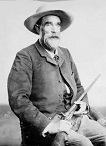




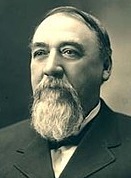

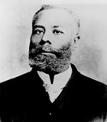



























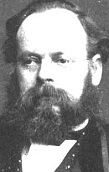


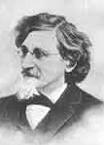





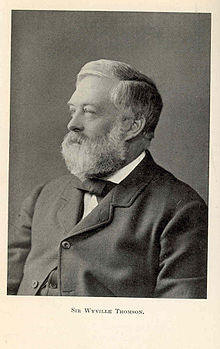







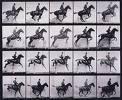




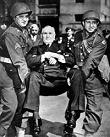
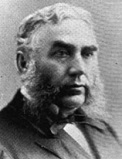
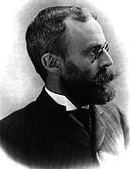
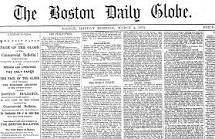

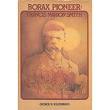




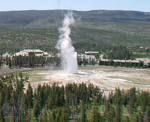



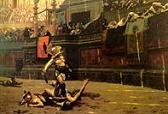
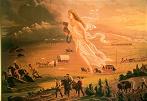



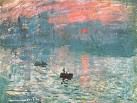
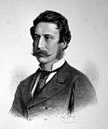
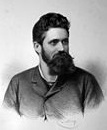
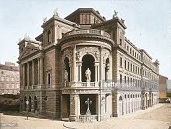

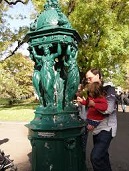
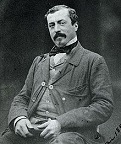

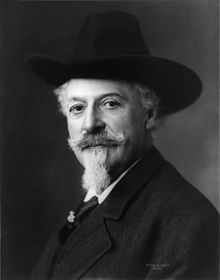

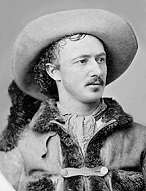
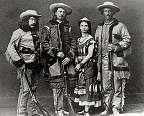
1872 Centuries-old privileges granted to German settlers are revoked by the Russian govt., causing a mass migration to the U.S., esp. the Dakotas, Neb., and Colo. This year 1.99M gal. (64K barrels) of foreign beer worth $1.49M is imported into the U.S.; by 1878 after the success of U.S.-based breweries, this figure is reduced to 768K gal. (25K barrels) and $593M. On Jan. 20 a mutiny of the garrison at Cavite Arsenal in the Philippines is supressed, and Father Jose Apolonio Burgos (b. 1837), leader of the secularizing priests is executed as a scapegoat on Feb. 17, along with other martyrs, causing a number of ilustrados (native intellectuals) to flee to Spain, later founding the Propaganda Movement, seeking rep. in the Spanish Cortes and awareness of Tagalog culture. On Jan. 27 the Little Sisters of the Poor (originally Little Sisters of the Abandoned Age) is founded in Barbastro, Spain by (St.) Teresa of Jesus Jornet Ibars (1843-97). On Feb. 4-5 the Aurora Borealis is seen as far S as Paris and Havana, causing fears of the End of the World. On Feb. 8 Richard Bourke, 6th Earl of Mayo (b. 1822), British viceroy of India (since Jan. 12, 1869) is assassinated by Pathan Afghan convict Shere Ali in Port Blair. On Feb. 15 the Wisc. Dairymen's Assoc. is founded in Watertown, Wisc. by William D. Hoard et al.; Wisc. goes on to earn the title "America's Dairyland", producing one-third of U.S. cheese and one-fourth of U.S. butter. On Mar. 1 Congress creates Yellowstone Park, becoming the first U.S. nat. park. On Mar. 4 The Boston Globe (originally "The Boston Daily Globe") 4-cent morning daily newspaper is founded in Boston, Mass. with $150K by six businessmen incl. Jordan Marsh dept. store magnate Eber Dyer Jordan Sr. (1822-95) and Gen. Charles Henry Taylor Taylor (1846-1921), who is hired in Aug. 1873 as business mgr., immediately lowering the price to 2 cents, requiring impartial news reporting, and pioneering stock quotations, women's pages, and sports pages, raising circ. from 8K to 30K in three weeks; in 1877 it launches a Sun. ed., which in 1892 merges with the rival "Boston Weekly Globe"; in 1878 "The Boston Evening Globe" is launched (until 1979); the ed. staff is known for being dominated by Roman Catholics; it goes on to become one of the top-10 U.S. daily newspapers by the 1970s; in 1993 it is acquired by The New York Times for $1.1B, who sell it in 2013 to Boston Red Sox owner John W. Henry for $70M. On Apr. 9 the chiefs of tuna-rich Samoa (5 islands and 2 coral atolls) petition for annexation by the U.S. - like samoa tuna? On Apr. 10 Arbor Day is founded in the U.S. by newspaperman Julius Sterling Morton (1832-1902), who built a 52-room mansion on a 65-acre estate on barren prairie in Neb. in 1855 and got into tree planting to beautify it; 1M trees are planted in Neb.; Morton later becomes the 2nd U.S. secy. of agriculture (1893-7). On Apr. 21 the Third Carlist War (ends Feb. 27, 1876) begins when the Carlists begin revolting against the govt. of Amadeo I and his Liberal supporters; the Hidalgo Affair begins when gen. J. Hidalgo, who ordered the sgts. to fire on the officers at San Gil 1868 is made capt.-gen. of the Basque Province, and his artillery officers all go on a sick strike, causing Amadeo I to sign decrees firing them and promoting sgts. in their places, leading to his abdication next Feb. On May 10 flamboyant women's rights crusader (a teen medium) Victoria Claflin Woodhull (1838-1927) becomes the first woman to run for U.S. pres. as the candidate of the new Equal Rights Party at their convention in Apollo Hall in New York City on the Free Love (anti-marriage) platform from jail as she fights federal obscenity charges filed by Victorian Laffin' Wood-Dull Puritan prude (misogynist?) Anthony Comstock; she is acquitted after serving 6 mo. in jail; Frederick Douglass is nominated for vice-pres., but doesn't acknowledge it; she receives zero popular and electoral votes. On May 22 the U.S. Gen. Amnesty Act pardons most Confederates except for 500 leaders. Shifting alliances in post Civil-War American politics? In May New York Tribune (a Repub. newspaper) ed. and reform champion Horace Greeley (1811-72) (who calls Grant's admin. corrupt, and he's on the money) is nominated for pres. by the new Liberal Repub. Party in Cincinnati, Ohio, along with Ky.-born Mo. Sen. (1863-7) and Mo. Gov. (1871-3) Benjamin Gratz Brown (1826-85) for vice-pres.; despite his lifelong hostility to them, Greeley gains the support of the Northern Dems. after reversing his long career of speaking out on behalf of blacks and criticizing their role in Reconstruction, and becomes estranged from the working class he was champion of; the Repubs. renominate Grant for pres., and Radical Mass. Sen. Henry "Natick Cobbler" Wilson (1812-75) for vice-pres.; the Bourbon Dems., a breakaway reactionary-conservative wing named for their old-fashioned views, who support Grover Cleveland and later oppose William Jennings Bryan nominate New York atty. Charles O'Conor (1804-74), who declines to run, even though he gets 21,559 votes in 23 states, becoming the first Roman Catholic to run for U.S. pres. On June 1 James Gordon Bennett (b. 1795) dies, and his son James Gordon Bennett Jr. (1841-1918), who took over the New York Herald in 1866 continues running it by cable from Paris after financing Henry Morton Stanley's expeditions to Africa to find Scottish missionary David Livingstone, who met on Nov. 10, 1871; a big yachting enthusiast and sponsor, his eccentric behavior, such as whipping it out and urinating into a fireplace in 1877 at a party held by the parents of his fiancee Caroline May (who er, breaks it off) causes his name to become an exclamation in Britain. On June 11 after being proclaimed by Kamehameha V on Dec. 22 to honor his grandfather, the first King Kamehameha I Day is celebrated in Hawaii, becoming the only U.S. state holiday honoring a monarch (until ?). On June 17-July 4 the World Peace Jubilee in Boston, Mass., organized by Patrick Sarsfield Gilmore (1829-92) celebrates the end of the Franco-Prussian War, and features composer Johann Strauss II (1825-99) (brought from Vienna at a cost of $20K) leading a 2K-instrument 20K-choir orchestra in a performance of "The Beautiful Danube". On June 19 the Whaley Bridge Flood in Derbyshire, England becomes one of the worse in English history; on Aug. 1, 2019 another flood damages the dam. On June 24 British Conservative Party leader Benjamin Disraeli gives his Crystal Palace Speech, laying down the policies of a rejuvenated Tory Party, declaring its business as protecting the existing institutions of the nation while rejecting the progressive reforms of the bad boy Liberals, yet courting enfranchised workingmen, promising to improve their social and economic position without the upheavals threatened by the methods of the Liberals, thus beginning a "Tory democracy"; he accurately forecasts their program for the next 30 years. In June the Cantonalist Risings of the cantonal repubs. in S Spain begin, backed by anarchists, and are quashed. On July 1 Thomas Francois Burgers (1834-81) is elected pres. #4 of the Transvaal Repub. in South Africa (until Apr. 12, 1877). On July 18 Benito Juarez (b. 1806) dies of apoplexy, going down as Mexico's #1 all-time hero, and on Dec. 1 vice-pres. Sebastian Lerdo de Tejada y Corral Bustillos (1823-89) becomes pres. of Mexico (until Nov. 20, 1876). On Aug. 22 after obtaining rights to coal deposits from the Choctaws, former Union Capt. James Jackson "J.J." McAlester (1842-1920) marries Chickasaw Nation member Rebecca Burney (1841-1919), allowing him to begin the first commercial coal mining in Okla. Territory in the Choctaw Nation. In Aug. after introducing universal military service, Japan introduces the Fundamental Code of Education, aiming for 100% literacy. In Aug. after getting the mail order bug, Chatham, N.J.-born former traveling salesman Aaron Montgomery Ward (1844-1913) and two others form Mongomery Ward & Co. with $1.6K in capital, mailing commercial catalogs that fascinate hicks and make good butt wipe in the outhouse, introducing the money-back guarantee in 1875, opening their first store in 1926, and growing to 530 stores by 1929 (#1), down to 75% the size of rival Sears, Roebuck & Co. by 1940; too bad, his successor (1937-55) Sewell Avery (1874-1960) (known for his virulent opposition to the New Deal) refuses to expand, preferring to bank his money, and opens no stores from 1937-55, leaving it only 25% the size of Sears. On Sept. 1 Mpande (b. 1798) dies, and his son Cetshwayo (Cetewayo) (1826-84) becomes king of Zululand (until Feb. 8, 1884), creating the new capital of Ulundi ("high place"), and going on to equip his army with muskets and banish Euro missionaries. On Sept. 18 Charles (Karl) XV (b. 1826) dies, and his brother Oscar II (1829-1907) becomes king of Norway (until Oct. 26, 1905) and Sweden (Dec. 8, 1907); the 4th Bernadotte monarch, and the last to run both countries. On Sept. 28 the Battle of North Fork on the Red River sees the U.S. Black 4th Cavalry led by Col. Ranald S. Mackenzie attack a Comanche camp on McClellan Creek, Gray County, Tex., killing 23 men and capturing 120 women and children, using them to lure the other warriors back to the Rez. On Nov. 5 after Horace Greeley is subjected to a nasty campaign by cartoonist Thomas Nast, while Grant enjoys backing from Repub. regulars, incl. the Radicals, seven carpetbag states, business and banking interests, and the Credit Mobilier Scandal blows up, with charges of corruption made against Schuyler Colfax, Henry Wilson, and House Speaker James G. Blaine, after which Congressional investigating committees clear them and pillory Oakes Ames of the House and James W. Patterson of the Senate, recommending expulsion, and Ames and Union Pacific govt. overseer James W. Patterson are censured, and Patterson slides by, while a number of judges are impeached and/or resign, and Greeley stages an exhausting nat. tour during which his wife dies, the 1872 U.S. pres. election sees Greeley win 40% of the vote, carrying six Southern and border states and no Northern states, 2.8M popular votes and ? electoral votes for Greeley vs. 3.6M popular and 286 electoral votes for Grant; when Greeley dies on Nov. 29, his electoral votes are distributed among four other men; Susan B. Anthony is arrested, tried, and fined for voting in the election, a newspaper article about her trial containing the soundbyte: "It was conceded that the defendant was, on the 5th November 1872, a woman." In Oct. after befriending him in 1871, Indian agent and Army scout Thomas Jefferson "Tom" Jeffords (1832-1914) leads Gen. Oliver O. Howard to the stronghold of Apache leader Cochise (1805-74) (who began an uprising in 1861) in the Dragoon Mts. in SE Ariz., talking him (with help of interpreter Geronimo) into negotiating a peace treaty on Oct. 12 accepting the new Chiricahua Rez, bringing peace in S Ariz. until 1876, when renegade Apaches kill whiskey merchant Nicholas Rogers. On Nov. 9 (7:20 p.m.) the Second Great Boston Fire in Mass. destroys 800 bldgs., kills 30, and causes $74M in damage, becoming Boston's largest urban fire (until ?). On Nov. 27 Augustin Morales (b. 1808) is shot and killed by his nephew Federico Lafaye, and on Nov. 28 foreign relations minister Tomas Frias Ametller (1804-84) becomes pres. of Bolivia (until May 7, 1873). On Nov. 29 the Modoc Indians of N Calif., led by Captain Jack (-1873), who had been forcibly relocated to a rez in Oregon along with their enemies the Klamath Indians in 1864, who mistreated them for years, causing them to return and dig in among lava beds S of Tule Lake in 1870, start shooting at U.S. soldiers attempting to disarm them and return them to the hated rez, beginning the Modoc War (ends June 1873). In Nov. in La. a chaotic racially-charged gubernatorial election results in two govs. and two legislatures, bringing the state to near civil war; in Grant Parish two constabularies, one black and one white lead to a mini-civil war. On Dec. 5 at 3:00 p.m. the British vessel Dei Gratia, commanded by Capt. David Morehouse, en route from New York to Gibraltar finds the 2-masted square-rigger ship Mary Celeste apparently sailing itself, its crew of seven, Capt. Briggs, his wife and daughter all missing, yet the ship is all in first-class condition, with plenty of food and water, incl. a cargo of barrels of alcohol, and the lifeboats unused; the food on the table in the captain's cabin is not spoiled, yet the last entry in the ship's log is dated Nov. 24; in 1913 schoolmaster Howard Linford pub. an article in Strand mag. in London about Abel Fosdyk, one of the crew, who had left papers claiming that the others had all been devoured by sharks after a new deck built in the bow collapsed, except himself, who ended up in Africa. On Dec. 11 king (since Nov. 30, 1863) Kamehameha V (b. 1830) dies without naming a successor, ending the Kamehameha line, and after his view that male ali'i are weak and corrupt, a succession of female ali'i (sister-wives of kings) begins ruling Hawaii, causing the 1864 Hawaiian Constitution to kick in, giving the decision to the legislature, and on Jan. 1 Lunalilo I (William Charles Lunalilo) (1835-74) (grandson of Kalaimamahu, half-brother of Kamehameha I, and cousin of Kamehameha V) is elected, becoming king #6 of Hawaii on Jan. 8 (until Feb. 3, 1874), becoming known as "the People's King" for being the first elected monarch of Hawaii - the original Lilo and Stitch? On Dec. 11 Utica, N.Y.-born Ward Hunt (1810-86) becomes U.S. Supreme Court justice #42 to replace Samuel Nelson (1845-72) (until 1882); meanwhile on May 7 chief justice (1864-73) Salmon P. Chase dies. On Dec. 12 the last known Labrador duck is shot down over Long Island, N.Y. - pesky Labrador retrievers? On Dec. 18 Salvador Silvester Rosario Jovellanos Guanes (1833-81) becomes pres. #5 of Paraguay (until Nov. 25, 1874), demanding the withdrawal of Brazilian occupation forces while trying to help Paraguay recover from its defeat. The Orthodox Church of Bulgaria declares its autonomy. Bismarck gives the state direct control of the schools in Prussia and expels the Jesuits. A civil war between conservatives and liberals begins in Honduras (ends 1876). The Reform (Secret Ballot) Act establishes voting by secret ballot in Britain. David Dudley Field Jr. submits his Draft Outline of an Internat. Code [of Laws] to a British govt. commission of lawyers, who form the Internat. Law Assoc. next year in Brussels, with Field as pres., advocating substitution of arbitration for war. Nanping-born Yung Wing (Rong Hong) (1828-1912 (first Chinese grad from a U.S. univ., Yale College in 1854) organizes the Chinese Educational Mission (CEM) to send 120 male Chinese students ages 9-14 to the U.S., while 30 more are sent to France and Britain for technical training; too bad, when the mission ends in 1881 and the boys return to China, they are found to have adopted several Am. customs incl. playing baseball, causing them to be confined and interrogated - I'm just a girl in the world, that's all you'll let me be? The town of Dallas, Tex. begins a boom after the arrival of the Houston and Texas Central Railroad this year, the Texas and Pacific Railroad next year, and several other railroads within a short period - only 91 years to go until JFK's fatal visit? "Cowboy Capital of the World", "Wickedest Little City in the West", "Queen of Cowtowns" Dodge City, Kan. on the Arkansas River in SW Kan. (on the meridian separating Central and Mountain time) 5 mi. W of Ft. Dodge (modern-day pop. 27K) (founded last year as an outpost on the Santa Fe Trail and originally called Buffalo City) becomes connected to the Atchison, Topeka, and Santa Fe Railway, becoming a main shipping point for Texas cattle (unti 1885), famous for lawmen Wyatt Earp and Bat Masterson, Front St., the Long Branch Saloon, and Boot Hill (where they bury them with their boots on). The city of Pawhuska, Okla. (originally Deep Ford) (modern-day pop. 3.5K) named after Osage chief Paw-Hiu-Skah ("white hair") (1763-1809) is established on the new Osage Nation Rez in Indian Territory (Okla.); the first Boy Scout troop in the U.S. is organized there in 1909. Wisc.-born woodcutter Francis Marion Smith (1846-1931) discovers ulexite (borax) in Teel's Marsh, Nev., becoming famous as the "Borax King" after Scientific Americanmag. describes him in 1877 as shipping 30-ton loads on two large wagons (plus a 3rd for food-water) drawn by a 24-mule team to the Central Pacific Railroad in Wadsworth, Nev.; in 1878 20-mule teams are introduced in Death Valley, Calif. English sugar refiner Sir Henry Tate (1819-99) purchases a patent on sugar cube manufacture from Eugen Langen (1833-95) of Germany, building a refinery in Liverpool this year, followed by another in Silvertown, London in 1877, relying on the English sweet tooth and becoming a millionaire philanthropist. Russian anarchist Mikhail Bakunin (1814-76) and several others are expelled from the First Internat. at the Hague Conference for maintaining their own secret org., causing them to hold their own conference at Saint-Imier, Switzerland. The Christianized Colville Indians in NE Wash. are relocated to the 2.3K-sq.-mi. Colville Reservation in NC Wash. Mark Twain visits London for the first time. Gas streetlights are installed in Tokyo, Japan. Popular Science mag. is founded in the U.S., featuring articles by Alexander Graham Bell, Thomas Edison, and Louis Pasteur, and informing the eager public about the newfangled Darwinian evolutionary theory. Progressive liberal Charles Prestwich Scott (1846-1932), nephew of founder John Edward Taylor becomes ed. of the Manchester Guardian (until 1929). 14-y.-o. actress Eleonora Duse (1859-1924) debuts as William Shakespeare's Juliet in Verona. Paul Cezanne and his father figure and fellow Impressionist artist Camille Pissarro (1830-1903) (who settles in Normandy this year after a 2-year stay in England to sit-out the Franco-German War while studying Joseph Turner) are exhibited at the Auvers-sur-Oise. Danish critic Georg Morris Cohen Brandes (1842-1927) becomes a prof. of lit. at Copenhagen U., becoming the first in Scandinavia to adopt a broad cosmopolitan view of lit. history, launching the Modern Breakthrough that replaces romanticism with naturalism, which wows the students but pisses-off the admin. and orthodox clergy, causing him to be expelled in 1877; after spending five years in Berlin, a group of admirers guarantees him a yearly stipend to return as a private prof., while the univ. leaves his chair vacant until 1902, when a Liberal govt. gets him his chair back - you had to be there? The private men's-only Bohemian Club for artists is founded by English-born Am. entomologist-actor Henry "Harry" Edwards (1827-91), holding an annual summer encampment at the Bohemian Grove in 1878, moving to Monte Rio, Calif. in 1893, starting a tradition that involves some of the world's most powerful men and lasts until ?; "The Bohemian club! Did you say Bohemian club? That's where all those rich Republicans go up and stand naked against redwood trees, right? I've never been to the Bohemian club but you oughta go. It'd be good for you. You'd get some fresh air." (Pres. Bill Clinton); "If I were to choose the speech that gave me the most pleasure and satisfaction in my political career, it would be my Lakeside Speech at the Bohemian Grove in July 1967. Because this speech traditionally was off the record it received no publicity at the time. But in many important ways it marked the first milestone on my road to the presidency." (Pres. Richard Nixon) Starting this year Caroline Astor begins holding the Patriarch's Ball (until 1897) for the top 400 families in New York City, who become known as "the Famous 400", where only having $1M is considered "respectable poverty"; there were actually only just over 300? The city of Fresno, Calif. on the San Joaquin River in the geographical center of Calif. 220 mi. N of Los Angeles, 170 mi. S of Sacramento, and 180 mi. SE of San Francisco (modern-day pop. 494K/972K) is founded as a station of the Central Pacific Railroad; it is incorporated in 1885. A German butcher opens the first stand selling "dachshund sausages" on Coney Island, N.Y. Gustavus Franklin Swift (1839-1903), who started out raising cattle in Cape Cod Bay, Mass. partners with James A. Hathaway in Boston, then relocates to Albany, N.Y., followed by Buffalo, N.Y., finally settling up in the new Union Stockyards in Chicago, Ill. and incorporating J.B. Swift & Co. (AKA the House of Swift) in 1875, hiring engineer Andrew Chase to design a car that puts the ice at the top of the compartment, allowing cold air to flow downward over the meat, which is packed tightly at the bottom to prevent derailment; after railroads that transport live cattle resist his innovation, he creates his own railroad line, making beef inexpensive for the ever-growing U.S. pop. and growing to 21K employees and slaughtering 2M cattle, 4M hogs, and 2M sheep a year by 1903, also selling Swiftning shortening, Allsweet margarine, Brookfield butter, Treasure Cave cheese, Peter Pan peanut butter, and Butterball turkeys (1954); too bad, Swift brags that his slaughterhouses use "everything but the squeal", incl. rotted meat, dead rats and rat droppings, and sawdust, leading to the 1906 U.S. Federal Meat Inspection Act. A treaty is negotiated by the U.S. Navy with the chiefs of Tutuila in Samoa to use Pago-Pago on the SE coast as a coaling station for steamships on the route from San Francisco and Sydney, keeping the Germans out of E Samoa, although the treaty is never ratified by the U.S. Congress. The U. College of Wales (later Aberystwyth U.) is founded in Aberystwyth, Cardiganshire (240 mi. NW of London)., opening in Oct. with 26 students. Va. Polytechnic Inst. (Va. Tech) (orginally Va. Agricultural and Mechanical College) in Blacksburg, Va. is founded as a public land grant univ. on the grounds of the former Methodist Preston & Olin Inst. and Solitude Farm; sports teams are called the Hokies. Scottish-born Alexander Graham Bell founds a school for teachers of the deaf in Boston, Mass. Jewish publisher Rudolf Mosse (1843-1920) founds the liberal newspaper Berliner Tageblatt, followed by "Deutsche Montagsblatt" in 1877, "Deutsche Reichsblatt" in 1881, "Bader Almanach" in 1882, "Berliner Morgenzeitung" in 1889, "Allgemeine Zeitung des Judenthums" in 1890, and "Deutsche Reichsadressbuch" in 1897, building one of the largest pub. houses in Europe, pioneering newspaper advertising; too bad, it is later targeted by the Nazis, who drive the hated Mosse family out of Germany in 1933, then pub. the newspaper themselves until Jan. 31, 1939. Yerville-born French chef Alfred Prunier (1848-1925) opens the Prunier Restaurant on Rue Duphot in Paris, specializing in lobster, caviar, and grilled dishes, becoming famous and attracting celeb clientele incl. Sara Bernhardt, Oscar Wilde, and Georges Clemenceau, along with Russian aristocrats; in 1924 his son Emile Prunier opens another restaurant on Victor Hugo Ave. in Paris, which attracts celeb clientele incl. F. Scott Fitzgerald and Ernest Hemingway; in 1925 his daughter Simone Prunier takes over her daddy's restaurant, opening another in London that closes in 1976. French actor Jean Mounet-Sully (1841-1916) debuts at the Comedie Francaise in 1872, going on to specialize in tragic roles incl. Oedipus and Hamlet. The Society of Estonian Writers is founded. BB&T (Branch Banking and Trust) Co. (oroginally Branch and Hadley) merchant bank is founded in Wilson, N.C. by Alpheus Branch and Thomas Jefferson Hadley, growing to $4M in assets by 1923, going on to become one of the largest financial services holding cos. in the U.S., with $184.7B in assets. C.A. Pillsbury and Co. is founded in the Falls of St. Anthony on the Mississippi River in Minneapolis, Minn. by Charles Alfred Pillsbury (1842-99) and his uncle John Sargent Pillsbury (1827-1901), becoming the first U.S. co. to use steel rollers for processing grain, producing "Pillsbury's Best", with the alleged finest flour in the world, capturing the market; John becomes Repub. gov. #8 of Minn. in 1876-82; Charles becomes a Minn. state senator in 1877-97; in 1949 the annual Pillsbury Bake-Off is first broadcast on CBS-TV; in 1957 they introduce the jingle "Nothin' says lovin' like somethin' from the oven... Pillsbury says it best"; in 1965 Leo Burnett creates the Pillsbury Doughboy as their mascot. Radeberger Brewery (Aktienbrauerei zum Bierkeller) in Radeberg (near Dresden), Saxony, Germany introduces the first pilsner in N Germany, becoming the first brewery in Germany to brew beer exclusively in the Pilsner style, beginning exports outside Germany in 1885 and reaching 300K cases/year; in 1887 German chancellor Otto von Bismarck elevates Radeberger Pilsner to "Kanzler-Brau" (chancellor's brew); in 1905 it becomes the favorite drink of Saxon king Frederick Augustus III; in 1905 it begins exports to the U.S. and Canada; in 1946 the Communist East German govt. takes it over; in 1954 it begins global exports; in 1990 after the Berlin Wall falls, it is acquired by Binding Brauerei, who begins selling it in West Germany and modernizes the plant, becoming a favorite of KGB agent Vladimir Putin and Charlie Harper in the TV series "Two and a Half Men", producing 26M gal. in 1994 and 52M gal. in 2001. Sports: The Scottish Football Assoc. and Rangers Football Club are founded, and the first internat. soccer game is held between England and Scotland, becoming the beginning of modern Soccer (Football). Architecture: Notre-Dame d'Afrique Roman Catholic basilica overlooking the Bay of Algiers in Algiers, Algeria (begun 1858) is completed, becoming the counterpiece to Notre-Dame de la Garde in Marseille, France (1864); the inscription on the apse is: "Notre Dame d'Afrique priez pour nous et pour les Musulmans" (Our Lady of Africa, pray for us and for the Muslims). The Stadttheater in Vienna, Austria (begun 1871) is designed by Vienna-born Ferdinand Feller (1847-1916), who in 1873 teams up with Harburg, Germany-born Hermann Gottlieb Helmer (1849-1919) to form the architectural firm of Fellner & Helmer, which goes on to design 200+ bldgs. throughout the Austro-Hungarian Empire, plus moree from Ukraine to Switzerland, hiring artists Theodor Friedl, Gustav Klimt, Hans Makart et al. for interior-exterior work, helping to bind the empire together and make Vienna its cultural center. The Tootle Opera House is built in St. Joseph, Mo., containing the 2nd gas chandelier in the U.S. (first in New York City) - tootle my saint joe jokes here? The Union Stockyards are incorporated in Chicago. The San Francisco Golden Gate Bridge is proposed (opened 1937). St. Gotthard Tunnel is begun (finished 1881). The Moorish-Gothic brownstone Central Synagogue at 123 E. 55th St. (near Park Ave.) in New York City opens, complete with onion domes, becoming the oldest continuously used Jewish house of worship in the state and the second oldest in the U.S. The eclectic Trinity Church in Boston, Mass. is begun, designed by Henry Hobson Richardson (1838-86) (finished 1877). Inventions: On Mar. 5 Am. engineer George Westinghouse Jr. (1846-1916) patents the failsafe Automatic Railroad Air Brake. On July 20 Wireless Telegraphy is patented by Washington, D.C. dentist Mahlon Loomis (1826-86), U.S. patent 129,971 ("Improvement in Telegraphing"): "What I claim as my invention or discovery, and desire to secure by Letters Patent, is: The utilization of natural electricity from elevated points by connecting the opposite polarity of the celestial and terrestrial bodies of electricity at different points by suitable conductors, and, for telegraphic purposes, relying upon the disturbance produced in the two electro-opposite bodies (of the earth and atmosphere) by an interruption of the continuity of one of the conductors from the electrical body being indicated upon its opposite or corresponding terminus, and thus producing a circuit or communication beween the two without an artificial battery or the further use of wires or cables to connect the co-operating stations"; too bad, he never builds any apparatus, and his claim is jumped by William Henry Ward, who receives a patent on Apr. 30; in Jan. 1872 the U.S. Congress hears Loomis' plea to charter the Loomis Aerial Telegraph Co. and turns him down. On Oct. 20 Am. physician William Robinson invents the Electric Closed Track Circuit for Railroads. William Thomson (Lord Kelvin) invents a machine to take accurate depth soundings at sea. Am. mechanical engineer George Brayton (1830-92) of R.I. patents a 2-cylinder 2-stroke kerosone stationary engine that he calls Brayton's Ready Motor, which becomes the first safe and practical oil engine; he displays it at the 1876 Philadelphia Centennial Exposition; too bad, the 1876 Otto Engine becomes more popular. Am. horticulturist Luther Burbank (1849-1926) of Lunenberg, Mass. perfects the Burbank Potato, followed by over 800 strains of improved fruits, vegetables, and flowers, incl. the Freestone Peach, edible thornless Opuntia Cactus, and Plumcot (plum-apricot); in 1875 he moves to Santa Rosa, Calif., raising over 1M plants a year for his experiments; too bad he goes for the Lamarckian Theory of the Inheritance of Acquired Characteristics? - the womb as its own tiny emergency room? Am. inventor Thomas Alva Edison (1847-1931) perfects the 2-way Duplex Telegraph, originally invented in 1853 by Julius Wilhelm Gintl, that sends two messages simultaneously over the same wire. German engineer Paul Haenlein (1835-1905) of Mainz designs and flies a semi-rigid-frame dirigible powered by a 4-cylinder internal combustion engine that runs on coal gas from the supporting bag. William Lawrence of Cheter, N.Y. invents cream cheese. African-Canadian inventor Elijah J. McCoy (1843-1929) receives U.S. Patent #129,843 on July 23 for an automatic lubricator for steam engines, which comes to be known as the "Real McCoy". English clergyman Charles Meade Ramus (1822-) invents the Hydroplane. Swedish engineer Charles Wilson builds the first solar water distillation plant in Las Salinas, Chile. Science: On Dec. 23 after discovering the oceanic circulation in 1868-9 and proving the existence of animal life down to 650 fathoms, allowing him to talk the Royal Navy into it, the British ship HMS Challenger sets out on a 3.5-year round-the-world expedition from Portsmouth in the Challenger to study and map the oceans, led by Scottish marine zoologist Charles Wyville Thomson (nee Wyville Thomas Charles Thomson) (1830-82), traveling 70K nautical mi. and cataloging 4K previously unknown species, resulting in the 1873 pub. of "The Depths of the Sea", "the greatest advance in the knowledge of our planet since the celebrated discoveries of the fifteenth and sixteenth centuries" (John Murray), helping found the science of oceanography, becoming a celeb and getting knighted by Queen Vicky. German-Austrian surgeon Christian Albert Theodor Billroth (1829-94) makes the first Resection of the Esophagus. German mathematician Richard (Julius Wilhelm Richar) Dedekind (1831-1916) rigorously defines irrational numbers arithmetically via the Dedekind Cut, a downward closed set without a greatest element, i.e., (-infinity, b) and [b, +infinity) - sounds like the coup de grace? Am. astronomer Asaph Hall pub. an article on the experimental determination of pi by throwing a fine steel wire randomly onto a plane surface ruled with equidistant parallel lines, with pi being equal to 2 * (l/d) * (n/i), where l = length of wire, d = distance between lines, n = # of trials, and i = # of intersections. The first time-sequence photography of a horse in motion is made by English-born Am. landscape photographer Eadweard James Muybridge (Edward James Muggeridge) (1830-1904) using his zoopraxiscope to win a $25K bet over whether all four hooves ever leave the ground at the same time (yes); he only comes up with a single still shot this year, but shoots a galloping sequence by 1878. After deciphering the Assyrian Flood Tablet with what he believes is the story of Noah's Ark, and jumping up and rushing about the room in excitement and undressing himself, George Smith (1840-76) of the British Museum, pupil of Sir Henry Creswicke Rawlinson delivers a lecture on Dec. 3 to the Society of Biblical Archaeology on The Deluge Story in the Clay Tablets of Assurbanipal's Royal Library in Nineveh (burned down along with his palace), explaining his discovery of the Epic of Gilgamesh and claiming that there are missing tablets yet to be discovered, causing the London Daily Telegraph to offer 1K guineas to the Museum, and Smith to be sent to the Tell of Kuyunjik for 6 mo., and return with missing pieces about provisioning the Ark; he returns 1.5 years later, finds tablets pertaining to the Creation story, then makes a 3rd trip, dying in the summer of 1876 after contracting a virus from a canteen in the desert on the way to Aleppo. English biologist Douglas Alexander Spalding (1841-77) pub. his discovery of Psychological Imprinting in small animals; too bad, it takes decades for his work to be recognized. German astrophysicist Johann Karl Friedrich Zollner (1834-82) pub. a paper criticizing the Panspermia (Lithopanspermia) Theory of William Thompson, Lord Kelvin on the grounds that it begs the question of where life came from in the first place, plus apostrophe, apostrophe, meteors don't seem to be a good way for life to come in through the atmosphere considering the little problem of high temp thermal entry?; in 1874 he pub. a paper showing that Mercury's low albedo means that it has no atmosphere, hence no life. Nonfiction: Walter Bagehot (1826-77), Physics and Politics: Or, Thoughts on the Application of the Principles of Natural Selection and Inheritance to Political Society; coins the term "the cake of custom". Mikhail Bakunin (1814-76), Marx's Das Kapital (Russian trans.) (spring) - they'll never buy it? Francois Achille Bazaine (1811-88), L'Armee du Rhin (The Army of the Rhine). Louis Auguste Blanqui (1805-81), L'Eternite par les Astres (The Eternal Stars); treatise on science. Georg Morris Brandes (1842-1927), Main Currents in Nineteenth-Century Literature (6 vols.) (1872-90). Moncure D. Conway (1832-1907), Republican Superstitions as Illustrated in the Political History of America. Elliott Coues (1842-99), Key to North American Birds; introduces the key system into zoology. Sir Edward Shepherd Creasy (1812-78), Imperial and Colonial Institutions of the Britannic Empire, Including Indian Institutions. Urbain Dubois (1818-1901), Cuisine artistique, étude de l'école moderne (2 vols.). Warren Felt Evans (1817-89), Mental Medicine. Henry Fawcett (1833-84) and Millicent Fawcett (1847-1929), Essays and Lectures on Social and Political Subjects. James Thomas Fields (1817-81), Yesterdays with Authors. Camille Flammarion (1842-1925), Recits de L'Infini. John Forster (1812-76), The Life of Charles Dickens (1872-4). James Anthony Froude (1818-94), The English in Ireland in the Eighteenth Century (3 vols.) (1872-4); explaining why it is futile for the English to conciliate the Irish because they're priest-ridden, and what they need is "enlightened despotism", thus all them English atrocities by Oliver Cromwell et al. were well deserved, pissing-off Irish historian William Edward Hartpole Lecky et al. Oliver Wendell Holmes Sr. (1809-94), The Poet at the Breakfast Table; first pub. in Atlantic Monthly. Baron Richard von Krafft-Ebing (1840-1902), Foundations of Criminal Psychology. Bon Louis Henri Martin (1810-83), Studies of Celtic Archeology. Cardinal Jules Mazarin (1602-61), Lettres du Cardinal Mazarin pendant son Ministere (1872-94) (Paris). Augustus De Morgan (1806-71), A Budget of Paradoxes (2 vols.) (posth.). Friedrich Wilhelm Nietzsche (1844-1900), The Birth of Tragedy from the Spirit of Music (Die Geburt der Tragedie aus dem Geiste der Musik); approvingly quotes Silenus: The very best thing is not to be born, not to be, to be nothing. The second best is to die soon"; claims that Greek culture is defined by the opposition of Apollonian and Dionysian tendencies, becoming the reason he grooves on Wagnerian music dramas? Samuel Plimsoll (1824-98), Our Seamen; advocates a safe load line on ships, which becomes known as the Plimsoll Line; too bad, after ship owners lobby Parliament to drop the bill on July 22, 1875, he calls the MPs "villains" and shakes his fist at the speaker, causing PM Benjamin Disraeli to try to get him reprimanded, accepting an apology, after which public opinion gets his proposal adopted in 1876. John Gilmary Shea (1824-92), A Child's History of the United States. Sergey Solovyov (1820-79), Public Readings on Peter the Great. Henry Morton Stanley (1841-1904), How I Found Livingstone in Central Africa; contains the immortal soundbyte "Dr. Livingstone, I presume?" David Friedrich Strauss (1808-71), The Old Faith and the New (Die alte und der neue Glaube); 4th ed. 1873 contains "Afterword as Foreword" (Nachwort als Vorwort); totally dumps miracles for modern scientific materialism, causing another public sensation; English trans. pub. by M. Blind in 1873. Music: Georges Bizet (1838-75), Djamileh (opera); Incidental Music to Alphonse Daudet's "L'Arlesienne". Alexandre Charles Lecocq (1832-1918), La Fille de Mme. Angot (Brussels). Charles-Marie Widor (1844-1937), Symphonies No. 1-4 for Organ (Hamelle). Art: Sir Lawrence Alma-Tadema, The Mummy. Arnold Bocklin (1827-1901), Battle of the Centaurs (Centaurs Fighting); Roman May Festival - is this symbolist stuff madness or genius? Jean-Baptiste-Camille Corot (1796-1875), L'Etang de Ville-d'Avray. Charles-Francois Daubigny (1817-78), Windmills at Dordrecht. Frank Duveneck (1848-1919), The Whistling Boy. John Gast (1842-?), American Progress; symbolizes Manifest Destiny. Jean-Leon Gerome (1824-1904), The Roman Arena (Pollice Verso); shows the emperor giving the "pollice verso" thumbs-down sign for death to the fallen gladiator; actually, he turned his thumb to his breast as a signal to stab him, and turned his thumb downward to signal dropping the sword (not on him) to spare him, but Gerome's version catches on and becomes unstoppable? Winslow Homer (1836-1910), Snap the Whip; rural boys. Nantes-born French sculptor Charles-Auguste Lebourg (1829-1906) begins sculpting 100+ small cast-iron Wallace Fountains (drinking fountains), financed by English art collector Sir Richard Wallace, 1st Baronet (1818-90), which are sited throughout Paris on the busiest sidewalks and give Paris its character, also in Lisburn. Jule Joseph Lefebvre (1836-1911), Pandora; La Cigale. Claude Monet (1840-1926), Impression: Sunrise (Impression, Soleil Levant); first displayed in Apr. 1874, it launches the Impressionism Movement, along with the soundbyte: "Landscape is nothing but an impression, and an instantaneous one, hence this label that was given us, by the way because of me. I had sent a thing done in Le Havre, from my window, sun in the mist and a few masts of boats sticking up in the foreground... They asked me for a title for the catalogue... and I said 'Impression'"; of course music and all the other arts soon follow along. Bernhard Plockhorst (1825-1907), Archangel Michael and Satan Struggling for the Body of Moses. Plays: Edward George Bulwer-Lytton (1803-73), Money (Prince of Wales' Theatre). Ned Buntline (1823-86), Scouts of the Prairie (Dec.) (Chicago, Ill.); stars Buffalo Bill Cody, along with Buntline (who leaves in 1873 and is replaced by shy Wild Bill Hickock), colorful Fluvanna County, Va.-born scout John Baker "Texas Jack Omohundro (1846-80) (a courier for Confed. Gen. J.E.B. Stuart, known as "the Boy Scout of the Confederacy" for his knowledge of the countryside), his future wife (Aug. 31, 1873) Italian ballerina Giuseppina Moriacchi, and sometimes 6-y.-o. Carlos Montezuma as Atzeka, the Apache child of Cochise, becoming a big hit despite being panned by critics, performed in packed theaters across the U.S. for several years, giving Cody training for his Wild West Show; in 1877 Omohundro forms his own acting troupe in St. Louis, Mo., debuting "Texas Jack in the Black Hills" in May to rave reviews. Alphonse Daudet (1840-97), L'Arlesienne. Bronson Crocker Howard (1842-1908), Diamonds (comedy of manners). Catulle Mendes (1841-1909), La Part du Roi (1-act comedy). Stephen Toldy (1844-79), The Good Patriots (comedy). Poetry: Charles Stuart Calverley (1831-84), Fly Leaves; "'Tis the hour when white-horsed Day/ Chases Night her mares away;/ When the Gates of Dawn (they say)/ Phoebus opes;/ And I gather that the Queen/ May be uniformly seen/ Should the weather be serene,/ On the slopes"; "Bowers of flowers encounter'd showers/ In William's carol - (O love my Willie!)/ Then he bade sorrow borrow from blithe to-morrow/ I quite forget what - say a daffodilly". Robert Hamerling (1830-89), Die Sieben Todsunden. Jose Hernandez (1834-86), El Gaucho Martin (Martín) Fierro; #1 gaucho poem? Victor Hugo (1802-85), L'Annee Terrible. Andrew Lang (1844-1912), Ballads and Lyrics of Old France. Conrad Ferdinand Meyer (1825-98), Hutten's Last Days. William Morris (1834-96), Love is Enough. Bayard Taylor (1825-78), Masque of the Gods. Novels: Walter Besant (1836-1901) and James Rice (1843-82), Ready-Money Mortiboy. William Black (1841-98), The Strange Adventures of a Phaeton. Ricahrd Doddridge Blackmore (1825-1900), The Maid of Sker. Mary Elizabeth Braddon (1837-1915), To the Bitter End. Robert Browning (1812-89), Fifine at the Fair. Samuel Butler (1835-1902), Erewhon, or Over the Range; "nowhere" spelled backwards; Higgs discovers a Kiwi town where criminals are sent to the doctor while the sick are punished; he escapes in a balloon; followed by "Erewhon Revisited" (1901). Wilkie Collins (1824-89), Poor Miss Finch. Juliana Horatia Ewing (1841-85), A Flat Iron for a Farthing. Octave Feuillet (1821-90), Julia de Trecoeur. Thomas Hardy (1840-1928), Under the Greenwood Tree: A Rural Painting of the Dutch School (title from Shakespeare's "As You Like It", Act 2, Scene 5) (original title "The Mellstock Quire"), his first Wessex novel, which does well enough to convince him to give up architecture for writing; his novels are highly-architected cathedrals made of words? Nathaniel Hawthorne (1804-64), Septimius Felton; or, The Elixir of Life (posth.); ed. by his daughter Una and poet Robert Browning. William Dean Howells (1837-1920), Their Wedding Journey (first novel). Gottfried Keller (1819-90), Sieben Legenden (short stories). Nikolai Leskov (1831-95), Cathedral Folk. Charles James Lever (1806-72), Lord Kilgobbin. Petroleum V. Nasby (1833-88), The Struggles, Social, Financial, and Political of P.V. Nasby. Edward Payson Roe (1838-88), Barriers Burned Away (first novel); a Presbyterian pastor turns novelist, and is a hit after coaxing New England Puritans into reading his fiction because of its high moral-religious purpose. Leopold von Sacher-Masoch (1836-95), Faux Ermine. Ivan Turgenev (1818-83), A Month in the Country. Ellen Price Wood (1814-87), Within the Maze; makes Leo Tolstoy a fan. Births: Am. "The Impersonal Life", "The Way Out" medium Joseph Sieber Benner (d. 1941) on Jan. 3 in Akron, Ohio; Elvis Presley is a fan. Russian composer-pianist Alexander Nikolayevich Scriabin (d. 1915) on Jan. 6 (Dec. 25 Old Style) in Moscow. Am. painter Howard Chandler Christy (d. 1952) on Jan. 10 in Morgan County, Ohio. German composer Paul Graener (d. 1944) on Jan. 11 in Berlin. French "Diaforus 60" composer-conductor Paul-Henri Busser (Büsser) (d. 1973) on Jan. 16 in Toulouse, Haute-Garonne; wife of Yvonne Gall (1885-1972). Am. Hearst Castle architect Julia Morgan (d. 1957) on Jan. 20 in San Francisco, Calif. French piezoelectricity physicist Paul Langevin (d. 1946) on Jan. 23 in Paris; has scandalous affair with Marie Curie while he's married. Am. "The Bad Man" silent film actor Holbrook Blinn (d. 1928) on Jan. 23 in San Francisco, Calif. U.S. Sen. (R-Okla.) (1921-7) (first Repub.) John William Herreld (d. 1950) on Jan. 24 in Morgantown, Ky. Italian anti-Fiascist statesman Count Carlo Sforza (d. 1952) on Jan. 24 in Lucca. English chemist ("Rare Gas Travers") Morris William Travers (d. 1961) on Jan. 24 in Kensington, London; educasted at Univ. College London. Am. jurist Billings Learned Hand (d. 1961) on Jan. 27 in Albany, N.Y.; cousin of Augustus Noble Hand (1869-1954); educated at Harvard U.; partner (1976-85) of Blair Brown and (1988-93) Marcia Cross - talk to the hand? German Prussian PM (1920-32) Otto Braun (d. 1955) on Jan. 28 in Konigsberg. Russian silent film actor-dir. Pyotr Ivanovich Chardynin (Krasavtsev) (d. 1934) on Jan. 28 in Simbirsk (Ulyanovsk). British Conservative journalist-politician Sir Herbert Stanley Reed (d. 1969) on Jan. 28. Am. "Riders of the Purple Sage" Western novelist Pearl Zane Grey (d. 1939) on Jan. 31 in Zanesville, Ohio; maternal great-grandson of Ebenezer Zane (1747-1811); starts out as a dentist in New York City in 1896. French "La Ronde" symbolist poet ("Prince of the Poets" - Paul Verlaine) Paul Fort (d. 1960) on Feb. 1 in Reims, Marne. Am. biochemist Lafayette Benedict Mendel (d. 1935) on Feb. 5 in Delhi, N.Y.; German immigrant parents; educated at Yale U.; collaborator of Thomas Burr Osborne (1859-1929). English painter-illustrator Sir William Newzam Prior Nicholson (d. 1949) on Feb. 5; knighted in 1936. German "Jewish Self-Hatred" philosopher (Jewish) (Zionist) Theodor Lessing (d. 1933) on Feb. 8 in Hanover. Am. Cathedral of Learning architect Charles Zeller Klauder (d. 1938) on Feb. 8 in Philadelphia, Pen. Am. 5'4" hall-of-fame baseball outfielder William Henry "Wee Willie" Keeler (d. 1923) on Mar. 3 in Brooklyn, N.Y.; noted for place hitting. Norwegian "The Great Hunger" novelist-dramatist Johan Bojer (d. 1959) on Mar. 6 in Orkedalsoren. Am. archeologist Howard Crosby Butler (d. 1922) on Mar. 7 in Croton Falls, N.Y.; educated at Princeton U. Dutch Neoplastic De Stijl abstract painter (in France and the U.S.) Piet (Pieter) Cornelis Mondrian (Mondriaan) (d. 1944) on Mar. 7 in Amersfoort. Am. world's tallest woman (8'6-1/2", 265 lbs.) ("the Missouri Giantess{) Ella Kate Ewing (d. 1913) on Mar. 9 in La Grange, Mo.; grows up in Rainbow (SE of Gorin), Mo. Indian Socialist independence leader (Deobandi Muslim) Ubaidullah Sindhi (d. 1944)on Mar. 10 in Sialkot; born in a Sikh family, converting to Islam early in life. Irish Sinn Fein founder Arthur Griffith (d. 1922) on mar. 31 in Dublin. Am. journalist-editor-writer Oswald Garrison Villard (d. 1949) on Mar. 13 in Wiesbaden, Germany; son of Henry Villard (1835-1900); grandson of William Lloyd Garrison; father of Oswald Garrison Villard Jr. (1916-2004); educated at Harvard U. Danish "Bibi", "The Dangerous Age" children's writer Karin Michaelis (d. 1950) on Mar. 20. Spanish lt. gen. Jose Sanjurjo y Sacanell, 1st Marquis of the Rif (d. 1936) on Mar. 28 in Pamplona, Navarra. Russian ballet impresario (1909 founder of Ballets Russes) (gay) Sergei Diaghilev (d. 1929) in Mar. 31 in Selischi. French "La Lépreuse" dramatist-poet Felix-Henri "Henry" Bataille (d. 1922) on Apr. 4 in Nimes. Am. women's rights and birth control activist Mary Coffin Ware Dennett (d. 1947) on Apr. 4. Am. Socialist Yiddish "Der Oitzer" dramatist-novelist (Jewish) David Pinski (d. 1959) on Apr. 5 in Russia; emigrates to the U.S. in 1899. Am. "Boston Guardian" co-founder (black) William Monroe Trotter (d. 1932) on Apr. 7 in Chillicothe, Ohio; mother Virginia Isaacs is great-granddaughter of Thomas Jefferson and Mary Hemings, sister of Sally Hemings; educated at Harvard U.; first black to receive a Phi Beta Kappa key. Am. old-time country singer "Singing" Mary Bullman Sands (d. 1949) on Apr. 8 in Madison County, N.C. French Socialist PM (1936-7, 1938, 1946-7) Leon Blum (d. 1950) on Apr. 9 in Paris; studies under philosopher Henri Bergson (1859-1941), plus law at the Sorbonne. Am. filmmaker Mark M. Dintenfass (d. 1933) on Apr. 17 in Tarnow, Austria-Hungary. Am. "Birth of a Nation" cinematographer Georg William Bitzer (d. 1944) on Apr. 21 in Roxbury, Mass. Am. servicewoman (first KIA in WWI) Maron G. Crandell (d. 1918) on Apr. 25 in Cedar Rapids, Iowa. Am. film dir. William Desmond Taylor (William Cunningham Deane-Tanner) (d. 1922) on Apr. 26 in Carlow, Ireland; emigratest to the U.S. in 1890; vanishes from his New York City home on Oct. 23, 1908, leaving a wife and daughter to go to Hollywood, changing his name. Italian automobile manufacturer Claudio Fogolin (d. 1945),/a> on Apr. 30 in San Vito al Tagliamento. Swedish "Swedish Rhapsody" composer-conductor-violinist-painter Hugo Emil Alfven (Alfvén) (d. 1960) on May 1 in Stockholm. Portuguese dictator pres. #4 (1917-18) ("the President-King") Sidonio (Sidónio) ernardino Cardoso da Silva Pais (d. 1918) on May 1 in Caminha. U.S. Palmer Raids atty. gen. (1919-21) Alexander Mitchell Palmer (d. 1936) on May 4 in White Haven, Penn. Am. "The Winning of Barbara Worth", "The Shepherd of the Hills" novelist Harold Bell Wright (d. 1944) on May 4 in Rome, N.Y.; first Am. writer to sell 1M copies of a novel and make $1M from writing fiction. Turkish gen. (Muslim) Djemal (Jemal) Pasha (Ahmed Djemal) (d. 1922) on May 6 in Mytilene, Lesbos. Dutch astronomer Willem de Sitter (d. 1934) on May 6. French "The Gift" sociologist-anthropologist (Jewish) Marcel Mauss (d. 1950) on May 10 in Epinal; nephew of Emile Durkheim (1858-1917). British "Principia Mathematica", "History of Western Philosophy", "On Denoting" analytic philosopher-logician and pacifist activist (agnostic) Bertrand Arthur William Russell, 3rd Earl Russell (d. 1970) on May 18 in Ravenscroft, Trellech, Monmouthsire, Wales; son of John Russell, Viscount Amberley (1842-76), son of English PM John Russell, 1st Earl Russell (1792-1878); his godfather is John Stuart Mill; husband (1920-37) of Dora Black (1894-1986), and (1936-49) Patricia Russell (1910-2004); father of John Russell, 4th earl Russell (1921-87), and Conrad Russell (1937-2004); born when Britain is king of the world, dies after it becomes a broken wreck; a notorious lecher, always trying to pinch a woman's butt? Costa Rican pres. (1920-4) Julio Acosta Garcia (d. 1954) on May 23 in San Ramon. Am. astrophysicist Charles Greeley Abbot (d. 1973) on May 31 in Wilton, N.H.; educated at Phillips Andover Academy, and MIT; asst. of Samuel Pierpont Langley (1834-1906); inventor of the solar cooker, solar boiler, and solar still. Afghani emir (1901-19) Habibullah Khan (d. 1919)on June 3 in Tashkent, Uzbekistan; eldest son of Abdur Rahman Khan (1840-1901); brother of Nasrullah Khan (1875-1920); father of Amanullah Khan (1892-1960). Russian tsarina (last) (1894-1917) (hemophiliac) Alexandra Feodorovna Romanova (Alix of Hesse and by Rhine) (d. 1918) on June 6 in Darmstadt, Germany; 6th of 7 children of Grand Duke Louis IV of Hesse and by Rhine (1837-92) and British Princess Alice (1843-78), 2nd daughter of Queen Victoria and Prince Albert; wife (1894-) of Nicholas II (1868-1918); mother of Olga, Tatiana, Maria, Anastasia, and Alexei. Am "The Fortune Teller" soprano-actress ("America's greatest lyrical soprano" - New York Evening World) Alice Nielsen (d. 1943) on June 7 in Nahsville, Tenn.; Danish immigrant father, Irish immigrant mother; grows up in Warrensburg, Mo., and Kansas City, Mo. Italian cardinal (1959-) Francesco Morano (d. 1968) on June 8 in Calvano, Aversa; oldest cardinal until ? English "Diana of Dobson's" feminist suffragist playwright-journalist-actress Cicely Mary Hamilton (Hammill) (d. 1952) on June 15 in Paddington, London. Am. astronomer Heber Doust Curtis (d. 1942) on June 27 in Muskegon, Mich.; educated at the U. of Mich., and U. of Va. Am. "Lyrics of a Lowly Life" writer-poet-novelist-composer (black) ("Poet Laureate of His People") Paul Laurence Dunbar (d. 1906) on June 27 in Dayton, Ohio at the Dunbar House at 219 N. Paul Laurence Dunbar St. (don't miss the ceremonial sword presented to him by Teddy Roosevelt?); writes his first poem at age 6, and gives his first recital at age 12. French aviation pioneer Louis Bleriot (Blériot) (d. 1936) on July 1 in Cambrai. Syrian Romantic poet-journalist (Shair al Qutrayn = "Poet of the Two Countries") Khalil Mutran (d. 1949) (AKA Sha'ir alQutrayn = "poet of the two countries") on July 1 in Baalbek, Lebanon; Palestinian father; known for translating Shakespeare's "Othello" into Arabic. U.S. Repub. pres. #30 (1923-9) and vice-pres. #29 (1921-3) John Calvin Coolidge Jr. (d. 1933) on July 4 in Plymouth, Vt. (near Lake Amherst); son of a storekeeper; educated at Amherst College. French Radical PM (1924-5, 1926, 1932) Edouard (Édouard) Herriot (d. 1957) on July 5 in Troyes. Am. "Wait 'Till the Sun Shines, Nellie", "Oh How I Hate to Get Up in the Morning" songwriter (Jewish) Harry Von Tilzer (Aaron Guminsky) (Harry Gumm) (d. 1946) on July 8 in Detroit, Mich.; Polish Jewish immigrant parents; brother of Albert Von Tilzer (1878-1956); collaborator of Andrew B. Sterling (1874-1955). British Conservative statesman-atty. Frederick Edwin Smith, 1st Earl of Birkenhead (d. 1930) on July 12 in Birkenhead, Cheshire; educated at Univ. College of Liverpool, and Wadham College, Oxford U.; Winston Churchill's best friend; knighted in 1915; created baron in 1919; created viscount in 1921; created earl in 1922. Norwegian polar explorer Roald Engelbregt Gravning Amundsen (d. 1928) on July 16 in Borge between Fredrikstad and Sarpsborg. Am. FBI dir. #1 (1908-12) Stanley Wellington Finch (d. 1951) on July 20 in Monticello, N.Y.; educated at George Washington U. French "Cerdanya" composer Deodat de Severac (Déodat de Séverac) (d. 1921) on July 20 in Saint-Felix-de-Caraman, Haute-Garonne. Am. Imperial School historian George Louis Beer (d. 1920) on July 26 in Staten Island, N.Y.; educated at Columbia U. French PM #106 (1933) and #113 (1936) Albert Pierre Sarraut (d. 1962) on July 28. Norwegian king (1905-57) on Aug. 3 in Charlottenlund Palace near Copenhagen; 2nd son of Frederick VIII of Denmark (1843-1912) and Louise of Hesse (1817-98); brother of Christian X of Denmark (1870-1947); father of Olav V (1903-91). Am. jazz musician (black) William Manuel "Bill" Johnson (d. 1972) on Aug. 10. German chemist Richard Martin Willstatter (Willstätter) (b. 1942) on Aug. 13 in Baden; first to find out what chlorophyll is made of other than "green stuff"? Indian poet, newspaper editor and Vedanta Society founder Sri Aurobindo (Aurobindo Ghosh or Ghose) (d. 1950) on Aug. 15 in Calcutta; educated at King's College, Cambridge U. English "The Maid of the Mountains" composer Harold Fraser-Simon (d. 1944) on Aug. 15 in London; educated at Charterhouse School, Dulwich College, and King's College London. Am. bronze sculptor Bessie Potter Vonnoh (d. 1955) on Aug. 17 in St. Louis, Mo. English chess master #1 ("the Little Steinitz") Henry Ernest Atkins (d. 1955) on Aug. 20 in Leicester; educated at Peterhouse, Cambridge U. English erotic illustrator Aubrey Vincent Beardsley (d. 1898) on Aug. 21 in Brighton. English critic-essayist ("the Incomparable Max") (not Jewish) Sir Henry Maximilian "Max" Beerbohm (d. 1956) on Aug. 24 in London; Lithuanian immigrant father; brother of Herbert Heerbohm Tree (1852-1917); educated at Merton College, Oxford U.; husband (1910-51) of Florence Kahn (1878-1951); knighted in 1939. Russian prima ballerina assoluta #1 (princess Romanova-Krasinskaya) Matilda (Matilde) Marie Feliksovna Ksheshinskaya (Kschessinskaya) (d. 1971) on Aug. 31 (Aug. 19 Old Style) in Ligova (near St. Petersburg); mother is an artist; grandfather is famous violinist; known for hooking up with future Tsar Nicholas II; known as Madame N17 for always betting on 17 in Monte Carlo; wife (1921-) of Grand Duke Andrei Vladimirovich (1879-1956); teacher of Margot Fonteyn. Am. Mafia boss Nicolo (Nicola) "Cola" Schiro (d. 1957) on Sept. 2 in Roccamena, Palermo, Sicily; emigrates to the U.S. in 1897; cousin of Paolo Orlando. Russian explorer Vladimir Klavdiyevich Arsenyev (d. 1930) on Sept. 10 in St. Petersburg. Am. cosmetics king (Jewish) Max Factor Sr. (Maksymilian Faktorowicz) (d. 1938) on Sept. 15 in Zdunska Wola, Polandemigrates to the U.S. in 1904. English conductor Walter Henry Rothwell (d. 1927) on Sept. 22; English father, Austrian mother. English "Private Lives" theatrical mgr.-impresario Sir Charles Blake "C.B." Cochran (d. 1951) on Sept. 25 in Sussex; knighted in 1948. British chief rabbi (1913-46) (Jewish) Joseph Herman Hertz (d. 1946) on Sept. 25 in Rebreny, Hungary; emigrates to New York City in 1884, South Africa in 1898, and Britain in 1913; educated at Columbia U., and Jewish Theological Seminary of Am. (first graduate). Am. "Desiderata" poet-writer-atty. Max Ehrmann (d. 1945) on Sept. 26 in Terre Haute, Ind.; Bavarian immigrant parents; educated at DePauw U., and Harvard U. Austrian diplomat Count Ottokar (Theobald Otto Maria) Graf Czernin von un zu Chudenitz (d. 1932) on Sept. 26 in Dimokur. French anarchist Emile Henry (d. 1894 on Sept. 26 in Barcelona, Spain. Canadian mathematician and historian (of early Christianity) Shirley Jackson Case (d. 1947) on Sept. 28 in Hatfield Point, N.B. ; educated at Acadia U., and Yale U. Am. "Life and Teachings of the Masters of the East" New Age writer Baird Thomas Spalding (d. 1953) on Oct. 3 in Cohocton, N.Y. Am. baseball pitcher and club owner John Joseph "Jack" Dunn (d. 1928) on Oct. 6 in Meadville, Penn.; sells off Babe Ruth in 1914. Am. silent film actress Mae Hotely (Maye Shearor) (d. 1954) on Oct. 7 in Md.; wife (1902-) of Arthur Hoteling (1873-1938); creates her stage name as a play on his. English "Wolf Solent" philosopher-writer-novelist John Cowper Powys (d. 1963) on Oct. 8 in Shirley, Derbyshire; mother is a descendant of William Cowper (1731-1800); brother of Llewelyn Powys (1884-1939) and Theodore Francis Powys (1875-1953); educated at Corpus Christi College, Cambridge U.; lives in the U.S. in 1904-34. U.S. Repub. atty. gen. #52 (1924-5) and Supreme Court justice #73 (1925-41) and chief justice #12 (1941-6) Harlan Fiske Stone (d. 1946) on Oct. 11 in Chesterfield, N.H.; educated at Amherst College, and Columbia U. French gastronomy writer ("the Prince of Gastronomy") Curnonsky "Cur" (Maurice Edmond Sailland) (d. 1956) (Lat. "cur" + "non" = why not?) on Oct. 12 in Angers. English "Sinfonia Antarctica", "Pilgrim's Progress" composer Ralph Vaughan Williams (d. 1958) on Oct. 12 in Down Ampney, Gloucestershire; great-nephew of Charles Darwin. U.S. First Lady (1915-21) Edith Bolling Galt Wilson (d. 1961) on Oct. 15 in Va.; 2nd wife of pres. Woodrow Wilson; claims descent from Pocahontas. Italian actor Angelo Musco (d. 1937) on Oct. 18 in Catania, Sicily; acts in the first successful plays of Luigi Pirandello. Am. etiquette columnist Emily Post (nee Price) (d. 1960) on Oct. 27 in Baltimore, Md.; daughter of wealthy architect Bruce Price and well-born wife Josephine Price; wife (1892-1906) of Edwin M. Post. Am. San Francisco banking magnate (Jewish) Herbert Fleishhacker (d. 1957) on Nov. 2 in San Francisco, Calif. English "Instincts of the Herd in Peace and War" surgeon (neurosurgery pioneer) Wilfred Batten Lewis Trotter (d. 1939) on Nov. 3 in Coleford, Gloucestershire. Anglo-Am. poet-violinist (Jewish) Leonora Speyer (d. 1956) on Nov. 7 in Washington, D.C.; wife (1902-32) of Sir Edgar Speyer (1862-1932). Am. Tacoma Narrows suspension bridge engineer (Jewish) Leon Solomon Moisseiff (d. 1943) on Nov. 10 in Riga, Latvia; emigrates tot he U.S. in 1891; educated at Columbia U. Am. "Peter Pan" stage actress (Mormon) Maude Ewing Adams Kiskadden (d. 1953) on Nov. 11 in Salt Lake City, Utah. Am. L.L. Bean Co. founder Leon Leonwood Bean (d. 1967) on Nov. 13 in Greenwood, Maine. Canadian "In Flanders Fields" physician-poet Lt. Col. John Alexander McCrae (d. 1918) on Nov. 30 in Guelph, Ont. British Capt. Charles Algernon Fryatt on Dec. 2 in Southampton, Hampshire. English "It's a Long, Long Way to Tipperary" songwriter John "Jack" Judge (d. 1938) on Dec. 3 in Oldbury; Irish parents. Australian Maj. Gen. Sir John Gellibrand (d. 1945) on Dec. 5 in Leintwarden, Tasmania. Dutch cultural historian Johan Huizinga (d. 1945) on Dec. 7 in Groningen; his 1897 dissertation is on the role of the clown/jester in Indian Sanskrit drama; father of Leonhard Huizinga. German philosopher and graphologist Friedrich Konrad Eduard Wilhelm Ludwig Klages (d. 1956) on Dec. 10 in Hanover; coins the term "logocentrism". French historian (Protestant) Daniel Halevy (Halévy) (d. 1962) on Dec. 12 in Paris; son of Ludovic Halevy (1834-1908); brother of Elie Halevy (1870-1937); friend of Marcel Proust; in 1934 he flops to the far right, going on to support the Vichy regime. Am. Mediterranean Revival style resort 6'2" architect Addison Cairns Mizner (d. 1933) on Dec. 12 in Bernicia, Calif. U.S. Adm. William Harrison Standley (d. 1963) on Dec. 18 in Ukiah, Calif.; chief of U.S. naval operations (1933-7). Am. "Because of You" songwriter-producer (Jewish) Arthur Hammerstein (d. 1955) on Dec. 21 in New York City; son of Oscar Hammerstein I (1846-1919); brother of Willie Hammerstein (1874-1914); husband (1924-) of Dorothy Dalton (1893-1972). French BCG Vaccine immunologist Jean-Marie Camille Guerin (Guérin) (d. 1961) on Dec. 22 in Poitiers. Am. banker Benjamin Strong Jr. (d. 1928) on Dec. 22 in Fishkill, N.Y. Am. "The Great Illusion" writer and Labour MP (1929-31) Sir Ralph Norman Angell (Lane) (d. 1967) on Dec. 26 in Holbeach, Lincolnshire; educated at the U. of Geneva; lives in the U.S. from age 17-24, working as a cowboy and journalist; knighted in 1931. Am. historian Robert McNutt McElroy (d. 1959) on Dec. 28 in Perryville, Ky. Greek Demotikist dramatist (d. 1902). Persian Qajar shah #6 (1907-9) Mohammad Ali Shah Qajar (d. 1925); son of Mozzafar al-Din Shah (1853-1907). German gyrocompass co-inventor Hermann Franz Joseph Hubertus Maria Anschutz-Kaempfe (Anschütz-Kaempfe) (d. 1931). Am. roller-coaster designer John A. Miller (August John Mueller) (d. 1941) in Homewood, Ill. English writer (OWG advocate) Lionel George Curtis (d. 1955); educated at Oxford U. Am. botanist (co-discoverer of aureomycin) Benjamin Minge Duggar (d. 1956) in Gallion, Ala.; educated at Harvard U., and Cornell U. Canadian 5-pin bowling hall-of-fame inventor Thomas F. "Tommy" Ryan (d. 1961) in Guelph, Ont. Egyptian Islamic liberal writer Ahmad Lutfi al-Sayyid (d. 1963). English Seventh-Day Adventist theologian Benjamin George Wilkinson (d. 1968) Deaths: Scottish science writer Mary Somerville (b. 1780); Oxford U. establishes the Mary Somerville Scholarship in math for women in her honor. English-born Am. "Washington Crossing the Delaware" painter Thomas Sully (b. 1783) on Nov. 5 in Philadelphia, Penn. Am. hymn writer Thomas Hastings (b. 1784) on May 15. German-born English diving suit inventor Augustus Siebe (b. 1788) on Apr. 15. Austrian dramatist Franz Grillparzer (b. 1791) on Jan. 21 in Vienna; leaves The Jewess of Toledo, Ein Bruderzwist in Habsburg, and Libussa. Am. telegraph inventor and artist Samuel F.B. Morse (b. 1791) on Apr. 2 in New York City - Samuel ..-. -... Morse? Am. Mormon leader William Marks (b. 1792) on May 22 in Plano, Ill. Am. hymn writer Lowell Mason (b. 1792) on Aug. 11; composed 1.6K hymns. Am. Mormon leader William Wines Phelps (b. 1792) on Mar. 7 in Salt Lake City, Utah. German painter Julius Schnorr von Carolsfeld (b. 1794) on Mar. 24 in Munich. Am. mayor of Albany, N.Y. (1834-7) Erastus Corning Sr. (b. 1794) on Apr. 9 in Albany, N.Y. English Protestant missionary William Ellis (b. 1794) on June 9 in Hoddesdon, Hertfordshire. Am. New York Herald founder James Gordon Bennett (b. 1795) on June 1 in New York City. Am. mesmerist John Bovee Dods (b. 1795) on Mar. 21 in Brooklyn, N.Y. Am. West painter George Catlin (b. 1796) on Dec. 23. French mathematician Jean Duhamel (b. 1797) on Apr. 29 in Paris. English sculptor Richard Westmacott III (b. 1799) on Apr. 19 in London. Scottish Campbellites founder John McLeod Campbell (b. 1800) on Feb. 27 in Roseneath, Dumbartonshire. Colombian statesman gen. Pedro Alcantara Herran Martínez de Zaldua (b. 1800) on Apr. 26 in Bogota. Swedish inventor Immanuel Nobel the Younger (b. 1801) on Sept. 3. U.S. Seward's Folly secy. of state (1861-9) William H. Seward (b. 1801) on Oct. 10 in Auburn, N.Y. German journalist Ludolf Weinbarg (b. 1802) on Jan. 8 in Schleswig; dies in a psychiatric clinic after becming alcoholic and destitute. German materialist philosopher Ludwig Feuerbach (b. 1804) on Sept. 13 in Rechenberg (near Nuremberg): "Der Mensch ist was er isst" (Man is what he eats). English Christian Socialist theologian Frederick Denison Maurice (b. 1805) on Apr. 1. Italian nat. leader Giuseppe Mazzini (b. 1805) on Mar. 10 in Pisa. German botanist Hugo von Mohl (b. 1805) on Apr. 1 in tubingen. Am. Shakespearean actor Edwin Forrest (b. 1806) on Dec. 12 on Dec. 12 in Philadelphia, Penn.; last role is Richelieu in the Edward Bulwer-Lytton play (1871); founds the Forrest Home for aged actors in Philly in his will. Mexican pres. Benito Juarez (b. 1806) on July 18 in Mexico City (apoplexy). Irish novelist Charles James Lever (b. 1806) on June 1 in Trieste, Italy (heart attack). French poet-novelist-critic Theophile Gautier (b. 1811) on Oct. 23 in Neuilly-sur-Seine, Paris (heart disease); "Everything useful is ugly." Am. "Go west, young man" journalist Horace Greeley (b. 1811) on Nov. 29 in Pleasantville, N.Y.: "There is no bigotry like that of 'free thought' run to seed." Am. publisher George Palmer Putnam (b. 1814) on Dec. 20. Dutch-Canadian painter Cornelius Krieghoff (b. 1815) on Mar. 8 in Chicago, Ill. Am. Civil War Union Gen. George Gordon Meade (b. 1815) on Nov. 6 in Philadelphia, Penn.: "I don't believe the truth will ever be known, and I have a great contempt for history." Am. Civil War Union gen. Henry Wager Halleck (b. 1816) on Jan. 9 in Louisville, Ky. French astronomer Charles-Eugene Delaunay (b. 1816) on Aug. 5 in Cherbourg. German writer Friedrich Gerstacker (b. 1816) on May 31 in Braunschweig (cerebral hemorrhage); leaves 44 vols. of travel writings, incl. the short story "Germelshausen", which is adapted into the 1954 musical "Brigadoon". Am. painter John Frederick Kensett (b. 1816) on Dec. 14 in New York City. French glider pilot Jean Marie Le Bris (b. 1817) on Feb. 17 in Douarnenez. Am. Civil War Confederate Gen. Richard Stoddert Ewell (b. 1817) on Jan. 25 in Spring Hill, Tenn. Romanian poet-journalist Dimitrie Bolintineanu (b. 1819). Scottish engineer and thermodynamics pioneer William Rankine (b. 1820) on Dec. 24 in Glasgow; leaves the (hot?) poem The Mathematician in Love. British statesman Richard Southwell Bourke, 6th earl of Mayo (b. 1822) on Feb. 8 in Port Blair, Andaman Islands (assassinated by a convict). Swedish-Norwegian king (1859-72) Charles (Karl) XV (b. 1826) on Sept. 18 in Malmo. Hawaiian king (1863-73) Kamehameha V (b. 1830) on Dec. 11 (his birthday) in Honolulu. Am. financier Jim Fisk (b. 1835) on Jan. 7 in New York City; killed by his business partner Edward S. Stokes after he won't pay blackmail money over his showgirl babe Josie Mansfield. Irish-born Australian explorer John King (b. 1838) on Jan. 15 in St. Kilda, Victoria (TB).
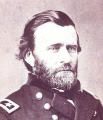




























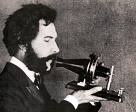
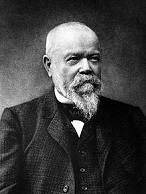








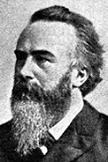



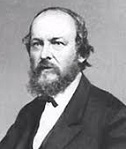
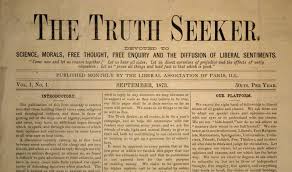
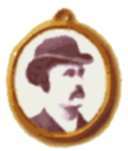


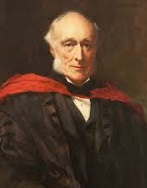


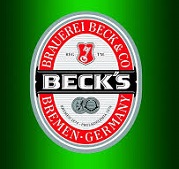
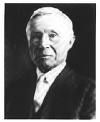
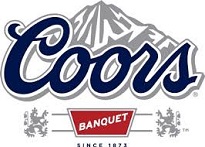
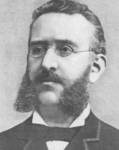
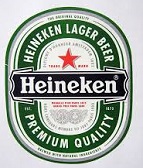
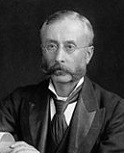
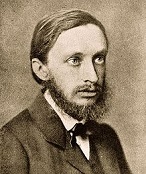




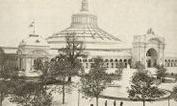

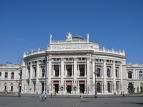




1873 There are 4,131 beer breweries in the U.S. producing 9M barrels/year. On Jan. 4 after the "Out West" newspaper (founded Mar. 23, 1872) folds, the Colorado Springs Gazette begins pub. in Colorado Springs, Colo.; in 1846 it merges with the "Colorado Springs Evening Telegraph" to form the "Colorado Springs Gazette-Telegraph"; it is awarded the Pulitzer Prize in 1990 and 2014; on Nov. 30, 2012 it is acquired by Clarity Media, a subsidiary of the Anschutz Corp., with a circ. of 64K, 2nd largest in Colo. after "The Denver Post". On Jan. 5 after ample rains in 1872 cause Jews to quit buying water from the Arab residents of Shiloach (Silwan), pissing them off, Hungarian-born Talmudic scholar Aaron Hershler (b. 1850) is murdered by Arabs Jerusalem, becoming the first Jewish victim of Arab terrorism in Israel. On Jan. 17 400 U.S. soldiers attack the Modoc stronghold in the lava beds near Tule Lake, Calif. (150 total Modocs, and only 53 warriors), and get their butts kicked, with 35 killed and 25 wounded, while the Modocs suffer no casualties; on Apr. 11 U.S. Gen. Edward Richard Sprigg Canby (b. 1817) is murdered by Modoc Indian leader Captain Jack and his Lt. Ellen's Man during a peace parley, becoming the only U.S. gen. killed in the Indian Wars, pissing-off the federals, who siege their stronghold again on Apr. 15-17, losing seven more killed and 13 wounded, while the only Modoc casualties are two boys who are killed when they attempt to open a dud cannon ball with an axe; on May 10 the Modocs goof and attack the palefaces at Dry Lake, and suffer their first defeat, losing five warriors, incl. Ellen's Man, during which Hooker Jim and other Modocs surrender, then help capture Captain Jack on June 14 in return for amnesty; on Oct. 3, Captain Jack and three other Modoc leaders are hanged in Ft. Klamath, and the remaining 163 Modocs are shipped off as POWs to Okla., ending the Modoc War (begun 1872). On Jan. 22 British steamship SS Northfleet collides and sinks off Dungeness, England, killing 300. On Feb. 12 the U.S. Congress orders the slogan "E Pluribus Unum" (From One, Many) put on all U.S. coins. On Feb. 10 after the Hidalgo Affair causes a radical rev., king (since Nov. 16, 1870) Amadeo I abdicates, and on Feb. 11 the First Spanish Repub. (ends Dec. 29, 1874) is proclaimed by a radical majority in the Cortes, who elect Estanislao Figueras i de Moragas (1819-82) as pres. #1 (until June 11), and on May 10 a new constituent Cortes is elected to write a federal constitution; the Carlists capture several provinces, and Don Carlos attempts an invasion, but fails and cries no harm no foul, still waiting in the wings; meanwhile the repub. goes through five presidentes in 23 mo., and after they attempt to create a 1-party repub. the radicals are kicked out of the Cortes by the repubs. On Mar. 3 Pres. Grant signs the U.S. Act for the Suppression of Trade in, and Circulation of, Obscene Literature and Articles of Immoral Use (Comstock Act); the U.S. postmaster gen. appoints Anthony Comstock (1844-1915) of Brooklyn, N.Y. as a "special agent" with extraordinary J. Edgar Hoover-like powers (the new Oliver Cromwell?), which he uses to prosecute nudity, even nude mannequins in store windows. On Mar. 4 (Tues.) U.S. pres. #18 (since Mar. 4, 1869) Ulysses S. Grant (Hiram Ulysses Grant) (1822-85) is inaugurated for a 2nd term (until Mar. 14, 1877) in Washington, D.C. in the 25th U.S. Pres. Inauguration; Farmington, N.H.-born Henry Wilson (Jeremiah Jones Colbath) (1812-75) becomes the 18th U.S. vice-pres. (until Nov. 22, 1875); 150 canaries prepared to amuse guests at the inauguration ceremony freeze to death in their cages. In Mar. in the closing hours of the 42nd Congress the U.S. Salary Grab Act is passed, giving substantial salary increases to the pres., vice-pres., cabinet members, Supreme Court justices, and members of Congress (retroactive two years for the latter); U.S. Rep. (R-N.Y.) (1861-3, 1869-77) William Almon Wheeler (1819-87) opposes the act, and buys govt. bonds with his dough then has them cancelled; public outrage causes it to be repealed (except for the pres. and justices) next Jan. On Mar. 6 (midnight) the Smuttynose Murders of two Norwegian women, Anethe and Karen Christensen on Smuttynose Island at the Isles of Shoals in Maine is sensationalized by the newspapers, after which German fisherman Louis Wagner is convicted and hanged in 1875 while proclaiming his innocence. On Apr. 13 (Easter Sun.) the Battle of Colfax, La. (Colfax Massacre) (Colfax Riot) in Grant Parish, La. 100 mi. S of Shreveport, between an ersatz white La. militia and blacks trying to benefit from Reconstruction and protect their right, er, hope to vote ends in tragedy for the blacks as 150 are killed vs. only three whites; it is later called the last battle of the U.S. Civil War, ending carpetbagger rule in the South; for the previous three weeks the blacks had taken control of Colfax, getting their own candidate (a white man) elected as sheriff, and taking over the courthouse to protect him, causing whites to raise a militia and attack them with guns and cannons in the bloodiest act of carnage in Reconstruction, followed by the survivors being hanged or shot; meanwhile the U.S. govt. looks the other way, and in on Mar. 27, 1876 the convictions of eight ringleaders under the 1870 U.S. Enforcement Act are overturned by the 5-4 U.S. Supreme (Waite) Court decision in U.S. v. Cruikshank, which rules that the First Amendment right to assembly was not intended to limit the power of state govts. with respect to their own citizens, and that the Second Amendment only restricts the powers of the federal govt., with the soundbyte: "The right to bear arms is not granted by the Constitution; neither is it in any manner dependent upon that instrument for its existence. The Second Amendment means no more than that it shall not be infringed by Congress, and has no other effect than to restrict the powers of the National Government"; a marble obelisk is later erected in the cemetery for "the Heroes... Who Fell in the Colfax Riot Fighting for White Supremacy". On Apr. 14 the U.S. Supreme (Chase) Court by 5-4 decides the Slaughterhouse Cases, caused by the state of La. attempting to regulate the New Orleans butchers, upholding the police power of states and recognizing a state citizenship distinct from U.S. citizenship. In the spring U.S. forces under Gen. George R. Crook (1830-90) campaign against the Apaches, taking many back to the Rez. On May 1 the first U.S. postal card is issued. On May 1-Oct. 31 the 5th World Exhibition in Vienna, Austria features the Rotunde in Prater Park; the motto is "Culture and Education" - the latest in waltz wear and mass strudel technology? On May 7 Adolfo Ballivian (Ballivián) Coll (1831-74) is elected pres. #21 of Boliva (until Feb. 14, 1974) in the first clean election in Bolivian history, and unsuccessfully tries to get the obstructionist congress to beef-up the Bolivian navy to fight Chile. On May 10 Belgian Roman Catholic priest Father Damien (St. Damien of Molokai) (Jozef "Zef" De Veuster) (1840-89) arrives at the leper colony in Molokai, Hawaii in the Kalaupapa Peninsula for a 3-hour tour, er, 3-mo. visit, which turns into 16 years, improving conditions, and ends when he contracts the disease in 1885 and dies, leaving 1.2K patients; in 1884 the Hawaiian Supreme Court declares that having leprosy is not a crime but that it has to be treated as one, and upholds the forced exile policy (ends 1969); in 1886 Trappist monk Father Joseph (Ira Barnes Dutton) (1843-1931) moves to Molokai to be Father Damien's helper. On May 18 with the tacit consent of U.S. secy. of war Belknap, Ranald Mackenzie's 4th Black Cavalry rides into Mexico after the Apaches, whom had destroyed $50M in property, plus many killings and kidnappings; on May 19 they kill 19 Apaches, capture Chief Castillitos, and kill their horses, and then ride back over the border in time to avoid Mexican federales, causing an official Mexican govt. protest (one of 20 between 1866-1916, many mere formalities since they are glad to be rid of them too). On May 22 Mesquite, Tx. near Dallas is founded by a Texas and Pacific Railway engineer, going on to become known as the Rodeo Capital of Tex. On May 24 Louis Adolphe Thiers falls, and French marshal Comte Marie Edme Patrice Maurice de MacMahon, Duke of Magenta (1808-93) is elected pres. #2 of the Third French Repub. (until Jan. 30, 1879). In May the May Laws in Germany restrict the disciplinary powers of the Church, placing the education of clergy under state supervision, with penalties for refusing to cooperate. On July 21 in Iowa the James Gang pulls off the world's first train robbery, of the Rock Island and Pacific Railroad ($3K). Speaking of railroads? The Coinage Act of 1873, AKA the Crime of 1873 takes the U.S. off the bimetallic monetary standard started by Alexander Hamilton in 1792 and puts it on the gold standard; the withdrawal of greenbacks contracts the money supply, just at the wrong time; a financial panic in Vienna in May causes financiers to unload U.S. stocks and bonds; by Sept. 1 25 U.S. railroads, overextended into sparsely settled areas default on their interest payments; the investment banking firm of robber baron Jay Cooke (1821-1905) and co. finances his shoddily-built Northern Pacific Railroad (125 mi. of which goes through Minn. swampland, and which faces opposition from Canada, the Sioux and Sitting Bull) with bonds based on short-term deposits in the hope that a European market would develop, but just then the Vienna panic causes him to go bankrupt on Sept. 18, and the ensuing stampede forces the New York stock market to close for 10 days beginning on Black Friday (Sept. 19), scalping Cooke's investors; on Oct. 1 the Panic of 1873 (ends 1877) sets off a depression that lasts for six years, the worst yet in the U.S., spreading to Latin Am. and Europe, leading to the Long (Great) Depression of 1873-96 (ends spring 1879); most of the bankruptcies owe their money to Chicago creditors; Cooke gives up his mansion and spends the next 30 years living in his daughter's house; meanwhile Canadian-born new kid on the block James Jerome Hill (1838-1916), who holds a monopoly in the Canadian coal business sees his chance and enters the railroad biz, starting with taking over the bankrupt St. Paul and Pacific Railroad, then expanding it into the St. Paul, Minneapolis and Manitoba Railway in 1879, fighting to expand across Minn., Wisc., N.D. and Mont., fighting the U.S. govt. over rights to build on Am. Indian lands while encouraging settlement and industry along his lines, going on to become known as "the Empire Builder of the Northwest"; English bimetallist banker-economist Ernest Julius Seyd (1830-81) is falsely blamed for the Crime of 1873, but his name is cleared in 1893; he was really guilty of taking $100K from the Rothschild-owned Bank of England for bribing Congressmen to demonetize silver? In Aug. English naval cmdr. Verney Lovett Cameron (1844-94), sent by the Royal Geographical Society on a 2nd expedition to relieve David Livingstone (b. 1813) meets his servants bearing his body to the coast, finding he died on May 1; Cameron pushes on and becomes the first European to cross tropical Africa from E to W, finding some of Livingstone's papers, exploring the S half of Lake Tanganyika, and reaching the Atlantic Ocean in Nov. 1875. On Sept. 1 The Truth Seeker is founded by Springfield, N.Y.-born DeRobigne Mortimer "D.M." Bennett (1818-82) in New York City, soon becoming the leading Freethought periodical in the U.S., championing the cause of Thomas Paine and helping launch the Golden Age of Freethought (ends 1914), which smugly champions science and rationality as all that's necessary for civilization to advance out of the Dark Ages of Religion, and begins to dissipate after merely rejecting religion doesn't form a reason to unite in an org., and the horrors of WWI and rise of atheistic Communism freak them out, after which the mag. is taken over by pseudo-scientific white supremacists and anti-Semites. On Sept. 3 James Burne Worson vanishes into thin air while running a race in Warwickshire, England. On Nov. 7 after John Alexander Macdonald gets into a scandal over the transcontinental railroad, Scottish-born Alexander Mackenzie (1822-92) becomes PM #2 of Canada (until Oct. 8, 1878). Don't let your buds down? On Nov. 17 the 1st cent. C.E. Celtic cities of Buda and Obuda on the W bank and pesky Pest on the E bank unite with Margret Island on the Danube River to create the city of Budapest (modern-day pop. 1.75M/3.3M), which becomes the co-capital of the Austro-Hungarian Empire (until 1918). On Nov. 20 the French under Francis Garner (b. 1835) take Hanoi, Vietnam; too bad, on Dec. 21 he is killed in a fight with the Black Flags, and the French sign a treaty then abandon Hanoi. On Nov. 23 White Star liner Atlantic sinks off Nova Scotia, killing 547. On Nov. 23 French liner Ville du Havre en route from New York City to Havre, France collides with the ship Lochearn and sinks in 16 min., killing 110. On Nov. 25 after Paraguay and Uruguay sign a peace treaty, Juan Bautista Gill (1840-77) becomes pres. of Paraguay (until Apr. 12, 1877). In Nov. Horace Vosa of R.I. selects "with the utmost care" the "noblest gobbler in that little state" for Pres. Grant's Thanksgiving dinner, and continues doing ditto for more than 25 years; in 1947 the Nat. Turkey Federation becomes the official pres. turkey supplier. In Nov. the monthly children's St. Nicholas Mag. is founded by Scribner's (until 1943), with Mary Mapes Dodge as ed. #1 (until 1905), going on to feature top writers incl. Louisa May Alcott, Frances Hodgson Burnett, Joel Chandler Harris, and Mark Twain; the St. Nicholas League is founded to award the best work submitted by juvenile readers, with winners incl. Stephen Vincent Benet, Rachel Carson, William Faulkner, F. Scott Fitzgerald, Edna St. Vincent Millay, and E.B. White; future conservationist Marjory Stoneman Douglas pub. the story "An Early Morning Paddle", which is awarded a prize by the Boston Herald. British PM Gladstone is defeated on a bill to reorganize the Irish system of higher education, the last of his three measures for pacifying Ireland; he resigns, but Conservative Party leader Benjamin Disraeli refuses to take office until an election is held; Gladstone resumes office, but each day his ministry gets more discredited, forcing him to dissolve his cabinet and schedule an election for next year. The Germans evacuate France. Russia captures Khiva. P.E.I. joins the Canadian Confederation. The Three Emperors League (Three Caesars' Alliance) (Dreikaiserabkommen) between Germany, Austria-Hungary, and Russia ends 1875) is established in Berlin to maintain the status quo in Eastern Europe by keeping down the Poles and other ethnic groups, isolating France, and split the Balks between Austria in the W and Russia in the East; it is secretly revied in 1881. King Chulalongkorn (Rama V the Great) (1853-1910) ascends the throne of Siam, and immediately abolishes prostration in front of the king. Taewon-gun of Korea is forced to give up his authority after his foreigner exclusion policy is deemed a failure, and his son King Kojong begins ruling (until 1907), although his daddy retains influence until his death in 1898. Cuban rev. leader Calixto Garcia Iniguez is captured and taken as a POW to Spain (until 1878). The Aceh (Dutch) (Infidel) War between the Muslim sultanate of Aceh and the Christian Netherlands begins (ends 1913). The Third British-Ashanti (Anglo-Ashanti) War (ends 1874) in Ghana N of the Gold Coast Colony begins after the British fail to give up a fugitive Ashanti slave until the Ashanti give up a kidnapped German missionary family and Swiss missionary, and they use the excuse to attack their traditional Fanti enemies on the coast, crossing the Pra River with 2K-60K warriors under King Kofi Karikari, causing the British to send an army of 4K men. The Swiss govt. balks at efforts to proclaim papal infallibility, and calls on the clergy to break off relations with the bishop in Berne, fining and imprisoning them when they refuse, then demands the right to appoint new clergy; a law is passed in Geneva secularizing schools and providing for popular election for clergy, although this all drives the Roman Catholic pop. into supporting the Church more. Nasser ed-Din Shah becomes the first Persian shah to visit Europe, being awarded the Order of the Garter by Queen Victoria, a Persian first; at the Royal Albert Hall he sits between the Princess of Wales and her sister the tsetsarevna of Russia, and gropes them; he returns in 1878 to see a Royal Navy Fleet review, then one more time in 1889, returning amazed with Western technology. Slave markets and slave exports are abolished in Zanzibar. Slavery is abolished in Puerto Rico. An influenza epidemic begins in North America and Europe (ends 1875). There is a famine in Bengal. The Women's Crusade of 1873-4 against saloons and liquor traffic begins. Japan adopts the 1582 Gregorian Calendar, and in July begins the Land Tax Reform (ends 1881), drafted by prince Matsukata Masayoshi (1835-1924), making taxes payable in money instead of rice et al. Germany adopts the German Goldmark as its unit of currency (until 1914) - Matthew, Luke and John were taken? The city of El Paso (del Norte) in W Texas on the Rio Grande River (modern-day pop. 600K/1.2M) is incorporated. The city of Fort Worth, Tex. on the Trinity River (modern-day pop. 400K/800K), founded in 1849 as a military camp and named after U.S. gen. William Jenkins Worth (1794-1849) is incorporated, becoming known as a cattle drive terminus. The Mea Shearim neighborhood in Jerusalem is built by ultra-orthodox Haredi (Charedi) Jews (finished 1875). The Tule River Reservation is established for what's left of the Yokut Indians (Yokuts), which were decimated in an 1833 malaria epidemic then displaced by the 1849 Calif. Gold Rush. The Florentines move Michelangelo's dangly 1504 statue of David indoors to the Galleria dell'Accademia for protection, putting a copy in its place in the Palazzo Vecchio. 23-y.-o. Eugene Field (1850-95) becomes a reporter on the St. Louis Evening Journal. Robert Nobel discovers oil in Baku near the Caspian Sea. Austrian explorers Julius Payer (1841-1915) and Karl Weyprecht (1838-81) discover Franz Josef Land in the Arctic Ocean E of Spitsbergen; the expedition goes from 1871-4. The New York Daily Graphic sponsors the first transatlantic balloon flight with a 400K cu. ft. balloon carrying a lifeboat; unfortunately the bag rips during inflation and the project is scrapped. Gen. William Tecumseh Sherman writes a Letter on the Indian Question. The U.S. Nat. Aquarium in Woods Hole, Mass. opens under the Federal Fish Commission, becoming the first free public aquarium in the U.S.; in 1878 it moves to the Washington Monument in Washington, D.C., hosting holding ponds called Babcock Lakes, moving in the 1880s to a new bldg. called Central Station near the Fish Commission HQ on the site of the modern-day Nat. Air and Space Museum; in 1903 the U.S. Dept. of Commerce absorbs the Fish Commission as the Bureau of Fisheries, moving to the new Commerce Dept. Bldg. in 1932; in 1940 the Bureau of Fisheries is incorporated into the U.S. Fish and Wildlife Service of the Dept. of the Interior; it closes on Sept. 30, 2013 after becoming the longest continuously-operating aquarium in the U.S. The first department store opens in Chicago. Grasshoppers first become a serious pest in the Am. West. The Washington navel orange is introduced into Calif. from trees from Brazil. Aberdeen-Angus bulls are imported to the U.S. from Scotland by George Grant (1822-78) of Britain, who settles in Victoria, Kan., purchasing 10K acres from the Kansas Pacific Railroad. The First Internat. Meteorological Conference is held in Brussels. English philologist Walter William Skeat (1835-1912) founds the English Dialect Society (until 1896). Graziadio Isaia Ascoli (1829-1907) founds the linguistic periodical Archivio Glottologico Italiano, in which he expounds his "substratum theory" of Romance languages that the vestigial accents of languages spoken in Gaul, Iberia, and Dacia are responsible for the phonetic divergences between Latin and the Romance languages. British engineer Joseph Hobson Jagger (Jaggers) (1830-92) becomes the first man to break the bank at Monte Carlo, leaving with £65K in winnings from roulette; in 1891 Charles Wells (1841-1926) also wins handsomely, inspring the 1892 Fred Gilbert song "The Man Who Broke the Bank at Monte Carlo"; Rolling Stones singer Mick Jagger is a distant relative of Joseph Jagger? Beck's Brewery (Brauerei Beck) (originally founded in 1553) is founded in Bremen, Germany, becoming the 4th largest brewery in Germany; in 2001 it is acquired by Interbrew for 1.8B euros; in 2008 it is acquired by Anheuser-Busch InBev; in 2012 a manufacturing plant is opened in St. Louis, Mo. After fleeing Germany's military draft in 1868 as a ship stowaway, Prussian orphan Adolph Coors Sr. (1847-1929) works his way to Denver, Colo. and founds the Coors Brewing Co. in the nearby foothills town of Golden on the banks of Clear Creek, with the ad slogans "Brewed with pure Rocky Mountain spring water", and "The banquet beer" - before the hippie era fills the creek with you know what? Ater buying the Haystack Brewery in Amsterdam, Netherlands in 1864, Heineken Brewery is founded in Rotterdam by Gerard Adriaan Heineken (1841-93) to produce lager (pilsner) beer using a special bottom-fermenting yeast developed by Dr. Elion, a student of Louis Pasteur; in 1875 it wins the gold medal at the Internat. Maritime Exposition in Paris, after which they become the biggest beer exporter to France; after the end of Prohibition in 1933, it becomes the first Euro beer to be imported to the U.S. The U.S. passes a law mandating that the bald eagle must appear on the reverse of all U.S. coins greater than 10 cents. U.S. Treasury Dept. clerk John Burroughs (1837-1921) retires to a farm near Esopus, N.Y. and becomes a naturalist, traveling and writing about the birds and bees. Swiss legal scholar Johann Kaspar Bluntschli (1808-81) et al. found the Inst. of Internat. Law in Ghent. English artist Simeon Solomon (1840-1905) is arrested for sodomy in a public urinal,and ends up dying in St. Giles' Workhouse in London. The weekly scientific mag. La Nature is founded by French balloonist Gaston Tissandier (ed. until 1896). The gunmaking firm of E. Remington & Sons begins to produce Sholes and Glidden typewriters using the QWERTY keyboard arrangement of Christopher Sholes; they still print on the reverse side of the paper. The Carl Rosa Opera Co. is founded in England by German-born impresario Carl August Nicholas Rosa (Nikolaus Rose) (1842-89) and his Scottish-born wife Madame Euphrosyne Parepa-Rosa (1836-74). Czech Opera House dir. (since 1866) Bedrich Smetana (1824-84) resigns because of sudden deafness, but keeps on a composin'. The Epiphone Co. is founded in Smyrna (Izmir), Turkey by Anastasios Stathopoulos (-1915) to make fiddles and lutes, moving to the U.S. in 1903, making banjos in the 1920s, follows by guitars in 1928; in 1951 they move from New York City to Philly; in 1957 they are acquired by their main rival Gibson of Kalamazoo, Mich.; the Epiphone Casino guitar is made famous by the Beatles. Texas Christian U. (TCU) (originally the AddRan Male & Female College) in Ft. Worth, Tex. is founded by Addison Clark and Randolph Clark; sports teams are nicknamed the Horned Frogs. After the Methodist Episcopal Church South talks him into it, Vanderbilt U. in Nashville, Tenn. is founded with a $1M endowment by shipping magnate "Commodore" Cornelius Vanderbilt (1794-1877) as a way to heal the wounds of the U.S. Civil War, even though he had never been to the South. Sports: On May 23 the first Preakness States at Pimlico Racecourse in Baltimore, Md. for 3-year-olds is run, with a purse of $15K; the winner is Survivor (1870-) by 10 lengths, which is not bested until 2004 by Smarty Jones (11.5 lengths). U.S. football clubs adopt the uniform Harvard Rules. The first modern cricket county championships are held. The Royal Montreal Club, the first permanent golf club in North Am. is founded in Canada. The sport of Badminton, played by British army officers in Poona, India is first played in England at the Badminton House of the Duke of Beaufort; in 1877 the Bath Badminton Club creates the first official set of rules. Architecture: The Natural History Museum in Kensington, London, designed by Victorian Gothic revival architect Alfred Waterhouse (1830-1905) is begun (finished 1881), featuring an ornate terracotta facade. The Severn Tunnel in England, the longest mainline railway tunnel in Britain is begun (finished 1886). Alexandra Palace ("Ally Pally") in Muswell Hill, Haringey, England is built by Princess Alexandra of Wales as a "pleasure palace of the people"; too bad, it burns down two weeks after opening, and is rebuilt in 1875, then burns down again in 1980, becoming the location of the Two Minutes Hate rallies in the 1984 film "1984". German architect Gottfried Semper (1803-79) designs the new Burgtheater in Vienna (originally founded in 1776) (finished 1888). The Weltausstellung Wien (Vienna World's Fair) in Austria attempts to showcase the Hapsburg haven as a world power, with a large Rotunde (Rotunda) in Prater Park. Richard Morris Hunt designs the Tribune Bldg. (1873-6) in New York City. The lofty red brick Eastern Market, designed by German-born architect Adolf Cluss (1825-1905) (city engineer of Washington, D.C. since 1872, and a personal friend of Karl Marx, stick that up your conspiracy theory) is built several blocks E of the U.S. Capitol, going on to survive to modern times as a farmer's market in a world of supermarkets; on Apr. 30, 2007 a fire causes $30M in damage, and funds are immediately raised to restore it. Inventions: French statistician Alphonse Bertillon (1853-1914) invents the Bertillon System for scientific ID of criminals using anthropometric measurements and personal characteristics: body (standing/sitting height, reach), head (length and width of head and right ear), and limbs (length of left foot, left middle finger, left little finger, left forearm); the U.S. begins using it in 1887; fingerprinting later supersedes it. French-born milling engineer Edmund La Croix of Northfield, Minn. patents a middlings purifier to remove bran from wheat flour using vibrating screens and air currents - white is right but not very nutritious? Elisha Gray (1835-1901) of Chicago, Ill. invents a telephone that works over short distances, and loses out on patenting the telephone by hours to Alexander Graham Bell, then loses a U.S. Supreme Court case over it, but goes on to build up the Western Electric Co., founded in 1872 with Western Union backing; in 2007 Seth Shulman pub. The Telephone Gambit: Chasing Alexander Graham Bell's Secret, which claims that Bell secretly copied part of Gray's invention, and that the patent office goofed up - every great fortune is built upon a great crime? Belgian engineer Zenobe Theophile (Zénobe Théophile) Gramme (1826-1901) and Hippolyte (Francois-Hypolite) Fontaine (1833-1910) invent the Gramme Machine, becoming the first commercially useful electric motor, utilizing a ring armature with multiple overlapped coils and multiple commutator contacts; after Fontaine accidentally discovers that the motor is reversible, the first Electric Alternator is created, transmitting electricity 2 km via copper wires. Am. teenager Chester Greenwood (1858-1937) of Farmington, Maine invents ear muffs, going on to clean up selling them to the U.S. Army in WWI. Former Confed. army Maj. Eli Hamilton Janney (1831-1912) patents the Janney Knuckle Coupler (U.S. Patent #138,405) for railroad cars on Apr. 29, becoming the 2nd most important safety invention for railroads after the Westinghouse Air Brake. Thaddeus Sobieski Constantine Lowe (1832-1913) of the U.S. invents the Water Gas Process, which creates large amounts of hydrogen gas for clean heating by passing steam over hot coal. English-born pharmacist Charles Henry Phillips (1820-82) of Stamford, Conn. patents Phillips' Milk of Magnesia (magnesium hydroxide), and begins marketing it in blue bottles in 1880 (until 1976), becoming the first commercial liquid laxative; "Take MOM in the PM for BM (bowel movement) in the AM"; good antacid too, if you don't mind the side effects? Thomas L. Rankin of Dallas, Tex. develops the first refrigerated rail car for shipping beef; meanwhile David Boyle of Jefferson, Tex. develops the first ammonia compression refrigeration plant. Modern riveted denim jeans are patented by Levi Strauss (1829-1902), a German Jew who immigrated to the U.S. in 1847 during the Calif. Gold Rush; denim and indigo originally came from India; he hates the word "jeans" and his co. doesn't use it until 58 years after his death? Robert William Thomson (1822-73) patents the wire-spring mattress, invented on his deathbed - which wasn't well-sprung? The Winchester Model 73 repeating rifle begins production, becoming known as "the Gun that Won the American West". British (Welsh) Maj. Walter Clopton Wingfield (1833-1912) introduces the game of Lawn Tennis at a garden party under the name Sphairistike, and patents it in Feb. 1874. Color photographs are first developed by ?. Science: Swiss-born Louis Agassiz (b. 1807) holds the first summer school on zoology on Penikese Island in Buzzards Bay, Mass., then dies on Dec. 14 in naturalist glory, and his son (by his 1st wife) Alexander Agassiz (1835-1910) becomes curator of the Museum of Comparative Zoology at Harvard U. (until 1885) - on top of two trillion tons of Puritan poo? Georg Cantor proves that the rational numbers are countable (can be put into 1-1 correspondence with the natural numbers), and that the real numbers are not - that would make them unreal, or does real mean not natural? Scottish neurologist Sir David Ferrier (1843-1928) begins experimenting with electrical stimulation of the cerebral cortex of animals, discovering a map for motor functions. French mathematician Charles Hermite (1822-1901) proves that e is transcendental, i.e., not a root of any algebraic equation with rational coefficients. In the winter of 1873-4 German Egyptologist Georg Moritz Ebers (1837-98) discovers the Ebers Papyrus in Luxor (Thebes), a medical manual dated 1550 B.C.E., the 2nd oldest medical document to survive to modern times after the Edwin Smith Papyrus of 1600 B.C.E. German biologist Ernst Haeckel (1834-1919) makes his quick-mention-for-people-who-think-divorce-is-a-good-option Embryo Drawings, which seem to offer astounding proof of Darwinian evolution, for which he coins the cool phrase "ontogeny recapitulates phylogeny"; he later admits to fabricating some of them, but who cares, they're good? G.A. Hansen of Norway discovers the leprosy (Hansen's Disease) bacillus Mycobacterium leprae. Am. physician Reuben Saunders (1808-91) of Paducah, Ky. discovers that hypodermically-injected morphine-atropine halts cholera. On May 27 German ancient Greece freak archeologist Heinrich Schliemann (1822-90) claims to have dug up Priam's Treasure (Jewels of Helen), part of the remains of ancient Troy, which he had been excavating since 1870 in an effort to prove that it isn't a legend; too bad, after pub. the discovery in 1874, the Turkish govt. accuses him of smuggling, revoking his permission to dig until 1876, after which he returns in 1878-9, attempting to find the location of fabled Ithaca of Homer's "Odyssey", then returns to Troy in 1882-3 and 1888-90. The value of pi is computed to 707 decimal places by William Shanks (1812-82) sans digital computers; too bad, it is only correct to 527 decimal places. Dutch physicist Johannes van der Waals (1837-1923) pub. the Van der Waals Equation of State for imperfect gases. After being inspired by Heinrich Schliemann, Jersey-born Am. photographer Augustus Le Plongeon (1825-1908) travels to Yucatan, photographing ruins and theorizing that the Mayan civilization is ancestral to Ancient Egypt, becoming a favorite of Madame Helena Blavatsky and Ignatius Donnelly. Nonfiction: Matthew Arnold (1822-98), Literature and Dogma: An Essay Towards a Better Apprehension of the Bible; "It is clear that dogmatists love religion; for else why do they occupy themselves with it so much, and make it, most of them, the business, even the professional business, of their lives? And clearly religion seeks man's salvation. How distressing, therefore, must it be to them, to think that 'salvation is unquestionably annexed to a right knowledge of the Godhead,' and that a right knowledge of the Godhead depends upon reasoning, for which so many people have not much aptitude; and upon reasoning from ideas or terms such as substance, identity, causation, design, about which there is endless disagreement! It is true, a right knowledge of geometry also depends upon reasoning, and many people never get it; but then, in the first place, salvation is not annexed to a right knowledge of geometry; and in the second, the ideas or terms such as point, line, angle, from which we reason in geometry, are terms about which there is no ambiguity or disagreement. But as to the demonstrations and terms of theology we cannot comfort ourselves in this manner. How must this thought mar the Archbishop of York's enjoyment of such a solemnity as that in which, to uphold and renovate religion, he lectured lately to Lord Harrowby, Dean Payne Smith, and other kindred souls, upon the theory of causation! And what a consolation to us, who are so perpetually being taunted with our known inaptitude for abstruse reasoning, if we can find that for this great concern of religion, at any rate, abstruse reasoning does not seem to be the appointed help; and that as good or better a help, - for indeed there can hardly, to judge by the present state of things, be a worse, - may be something which is in an ordinary man's power! " Walter Bagehot (1826-77), Lombard Street; the world of British banking. Louis Blanc (1811-82), Questions of Today and Tomorrow (1873-4). Robert Williams Buchanan (1841-1901), Master Spirits. John Elliott Cairnes (1823-75), Political Essays; criticizes the view of Frederic Bastiat; Essays in Political Economy, Theoretical and Applied; incl. "Essays on the Gold Question". Jean Charcot, Lecons sur les Maladies du Systeme Nerveux. Charles Darwin (1809-82), The Expression of the Emotions in Man and Animals. Donato Donati (1880-, Vita, Morte, e Miracoli di Mahometo (Life, Death and Miracles of Muhammad); first Western attempt to question the Muslim canonical version of his life. Baron Kolmar von der Goltz (1843-1916), Die Sieben Tage von Le Mans. Paul Heyse (1830-1914), Kinder der Welt (Children of the World). Jules Gouffe (1807-77), Le Livre de Pâtisserie : Ouvrage contenant 10 planches chromolithographiques et 137 gravures sur bois d'après les peintures à l'huile et les dessins de E. Ronjat. Hermann Eduard von Holst (1841-1904), Constitutional and Political History of the United States (5 vols.) (1873-91); covers 1783-1861 from an anti-slavery POV. Mark Hopkins (1802-87), An Outline Study of Man. Henry Houssaye (1848-1911), History of Alcibiades of the Athenian Republic from the Death of Pericles to the Advent of the 30 Tyrants. Edward Liveing (1832-1919), pub. On Megrim; about the clinical treatment of migraines, along with his theory of its pathogenesis; a big hit, making fans of Oliver Wolf Sacks et al. James Clerk Maxwell (1831-79), Treatise on Electricity and Magnetism. John Stuart Mill (1806-73), Autobiography. Alexander Stuart Murray (1841-1904), Manual of Mythology. Walter Pater (1839-94), Studies in the History of the Renaissance. Ernest Renan (1823-92), L'Antechrist (The Antichrist). Edward Payson Roe (1838-88), What Can She Do? Herbert Spencer (1820-1903), The Study of Sociology. Philipp Spitta (1841-94), Johann Sebastian Bach (1873-80) (Leipzig); contains the first major study of 17th cent. early Baroque German choral and keyboard music. Sir Leslie Stephen (1832-1904), Essays on Free Thinking and Plain Speaking. Sir Charles Wyville Thomson (1830-82), The Depths of the Sea; the results of three deep sea dredging expeditions in 1868-70, which find evidence of life down there. John Tyndall (1820-93), Further Researches on the Absorption and Radiation of Heat by Gaseous Matter (1862) (Contributions to Molecular Physics in the Domain of Radiant Heat); "As a dam built across the river causes a local deepening of the stream, so our atmosphere, thrown as a barrier across the terrestrial rays produces a local heightening of the temperature of the Earth's surface." Elizur Wright (1804-85), The Politics and Mysteries of Life Insurance. Music: Georges Bizet (1838-75), Patrie (overture). Johannes Brahms (1833-97), Variations on A Theme by Haydn. Anton Bruckner (1824-96), Symphony No. 2 (Vienna). Leo Delibes (1836-91), Le Roi l'a Dit (opera) (Paris). Hermann Goetz (1840-76), Symphony in F major (Op. 9); makes a fan of George Bernard Shaw. Antonin Dvorak (1841-1904), Hymnus (cantata); his first hit. Eben Rexford and Hart P. Danks, Silver Threads Among the Gold (song). Nikolai Rimsky-Korsakov (1844-1908), Ivan the Terrible (opera) (St. Petersburg). Peter Tchaikovsky (1840-93), Symphony No. 2 (Moscow). Art: Paul Cezanne (1839-1906), The Straw Hat. Jean-Baptiste-Camille Corot (1796-1875), Souvenir d'Italie. Frank Duveneck, Lady with Fan. Jean-Leon Gerome (1824-1904), L'Eminence Grise. George Innes (1825-94), The Monk. Edouard Manet (1832-83), Le Bon Bock. John Everett Millais (1829-96), The Northwest Passage. Claude Monet (1840-1926), The Seine at Argenteuil (Vanilla Sky); one of a bunch of Nature scenes of Argenteuil, France in the NW surburbs of Paris. Berthe Morisot (1841-95), The Cradle. Mihaly Munkacsy (1844-1900), Woman Gathering Brushwood. Pal Szinyei-Merse (1845-1920), The Bath House; wins medal at 1873 Vienna World's Fair. Plays: Alexandre Dumas fils (1824-95), Monsieur Alphonse. Sir William Gilbert (1836-1911) and Gilbert a Beckett, The Happy Land (comedy). Henrik Ibsen (1828-1906), Emperor and Galilean; his longest play, about Julian the Apostate. Charles Marie Leconde de Lisle, Les Erinnyes (verse tragedy). Catulle Mendes (1841-1909), Les Freres d'Armes (drama). Alexander Ostrovsky (1823-86), The Snow Maiden. Jean Richepin (1849-1926) and Andre Gill (1840-85), L'Etoile. Arthur Rimbaud (1854-91), Une Saison en Enfer. Stephen Toldy, New Men (comedy). Poetry: Robert Browning (1812-89), Red Cotton Night-Cap Country, or, Turf and Towers; based on the suicide of jewelery heir Antoine Mellerio. Charles Cros (1842-88), Le Coffret de Santal; Plainte. Henry Austin Dobson (1840-1921), Vignettes in Rhyme. George Eliot (1819-80), Stradivarius. Sir William Schwenck Gilbert (1836-1911), More Bab Ballads. Dorothy Greenwell (1821-82), Songs of Salvation. Joaquin Miller (1839-1913), Songs of the Sunlands; by "the Byron of the Rockies"; pub. while living in England. Arthur Rimbaud (1854-91), Une Saison en Enfer (A Season in Hell). Bayard Taylor (1825-78), Lars: A Pastoral of Norway. Henry Timrod (1828-67), Poems (posth.) (ed. Paul Hamilton Hayne); finest from the Poet Laureate of the Confederacy, incl. Ode Sung on the Occasion of Decorating the Graves of the Confederate Dead at Magnolia Cemetery, Charleston; "Sleep sweetly in your humble graves, --/ Sleep, martyrs of a fallen cause!/ Though yet no marble column craves the pilgrim here to pause"; Bob Dylan samples him for his 2006 album "Modern Times". Novels: Louisa May Alcott (1832-88), Work. Thomas Bailey Aldrich (1836-1907), Marjory Daw and Other People (short stories). Walter Besant (1836-1901) and James Rice (1843-82), My Little Girl (3 vols.). Mary Elizabeth Braddon (1837-1915), Publicans and Sinners. Bankim Chatterjee (1838-94), The Poison Tree: A Tale of Hindu Life in Bengal. Wilkie Collins (1824-89), Miss or Mrs.?; The New Magdalen. Alphonse Daudet (1840-97), Adventures Prodigieuses de Tartarin de Tarascon; first of the Tartarin Trilogy, about a braggart from Provence); Fromont Jeune et Risler Aine (Ainé). Ludovic Halevy (1834-1908), Monsieur et Madame Cardinal. Thomas Hardy (1840-1928), A Pair of Blue Eyes. Bret Harte (1836-1902), Mrs. Skagg's Husbands and Other Stories. Maurus Jokai (1825-1904), Black Diamonds. Nikolai Leskov (1831-95), The Enchanted Wanderer; The Sealed Angel. Leopold von Sacher-Masoch (1836-96), Female Sultan; Die Messalinen Wiens (The Messalinas of Vienna); Russian Court Stories (4 vols.) (1873-4); Viennese Court Stories (2 vols.) (1873-7). Conrad Ferdinand Meyer (1825-98), The Amulet; the St. Bartholomew's Day Massacre in France. George Sand (1804-76), A Grandmother's Tales (2 vols.) (1873, 1876). Anthony Trollope (1815-82), The Eustace Diamonds; baronet's widow Lizzie Eustace fakes a burglary, commits perjury, suffers a real burglary, and is hopelessly embarrassed when her case comes to court. Mark Twain (1835-1910) (first novel) and Charles Dudley Warner (1829-1900), The Gilded Age: A Tale of Today; frontierswoman Laura Hawkins accepts an invitation from Sen. Dilworthy to Washington, D.C., and poses as an heiress, conquering the town and working with him to push over a sleazy Tenn. land bill to build a univ. for emancipated slaves; only her friend Philip Sterling is disgusted by Washington, calling it "the maddest Vanity Fair one could conceive", and a "feverish, unhealthy atmosphere in which lunacy would be easily developed"; satirizes the greed, materialism, corruption, and vulgarity of the post-Civil War U.S. society, and the title gets applied to the entire decade all the way to the McKinley admin. Jules Verne (1828-1905), Around the World in Eighty Days (Jan. 30); a whist game at the Reform Club of London on Oct. 2, 1872 leads to a £20K wager, followed by a trip by airgonaut Phileas Fogg and his French valet Passepartout and a Gladstone bag filled with money from London to Suez, India (Bombay, Calcutta) (during which they rescue Aouda from the funeral pyre of her dead hubby), Hong Kong, Yokohama, San Francisco, New York City, and back to London, all while being chased by the London bobby Fix, who believes they robbed the Bank of England for £55K, and arrests them after they arrive in London 5 min. late, after which they discover that they gained a day, and get out just in time to win; "The unforseen does not exist." Lew Wallace (1827-1905), The Fair God; claims to be a ms. from the time of Cortes written to HRE Charles V. Births: French Carmelite nun ("the Little Flower") (St.) Therese (Thérèse) of Liseux (the Child Jesus and the Holy Face) (Marie Françoise-Thérèse Martin) (d. 1897) on Jan. 2 in Alencon, Orne; feast day: Oct. 1/3. French poet-writer Charles Peguy (Péguy) (d. 1914) on Jan. 7 in Orleans. Am. movie mogul (Jewish) (founder of Paramount Pictures) Adolph Zukor (Cukor) (d. 1976) on Jan. 7 in Ricse, Hungary; emigrates to the U.S. in 1889. Romanian politician Iuliu (Julius) Maniu (d. 1953) on Jan. 8 in Badacin. Russian #1 Zionist poet Chaim (Hayyim) Nachman (Nahman) Bialik (Byalik) (d. 1934) on Jan. 9 in Radia, Volhynia Province, Ukraine; educated at the Volozhin Yeshivah; helps revive Hebrew as a living language. Am. politician-diplomat-banker Dwight Whitney Morrow (d. 1931) on Jan. 11 in Huntington, W. Va.; educated at Amherst College, and Columbia U.; husband of Elizabeth Cutter Morrow (1873-1955). Greek Olympic marathoner Spiridon (Spyridon) "Spiros" Louis (d. 1940) on Jan. 12 in Marousi (N Athens); father sells mineral water. Danish novelist-poet ("Father of Danish Modernism") ("the Danish Rudyard Kipling") Johannes Wilhelm Jensen (d. 1950) on Jan. 20 in Farso, Jutland; educated at the U. of Copenhagen; brother of Thit Jensen (1876-1957). Spanish playwright Joaquin Alvarez Quintero (d. 1944) on Jan. 20 in Andalusia; brother of Serafin Alvarez Quintero (1871-1938). French "Claudine", "Gigi" novelist-journalist-actress (bi) Colette (Sidonie-Gabrielle Colette) (d. 1954) (AKA Willy) on Jan. 28 in St.-Sauveur-en-Puisaye, Yonne, Burgundy; wife (1893-19010 of Henry "Willy" Gauthier-Villars (1859-1931). Italian naval officer and explorer Prince Luigi Amedeo Giuseppe Maria Ferdinando Francesco, Prince of Savoy-Aosta, Duke of the Abruzzi (d. 1933) on Jan. 29 in Madrid. Am. New York City mayor #98 (1933) John Patrick O'Brien (d. 1951) on Feb. 1 in Mass.; Irish Roman Catholic immigrant parents; educated at Georgetown U. Austrian "Madame Pompadour", "The Dollar Princess" operetta composer Leopold "Leo" Fall (d. 1925) on Feb. 2 in Olmutz (Olomouc); son of Moritz Fall (1848-1922). German foreign affairs minister (1932-8) Konstantin Freiherr von Neurath (d. 1956) on Feb. 2 in Vaihingen an der Enz, Wurttemberg. Am. "The Poor Little Rich Girl" film dir.-writer Maurice Tourneur (Thomas) (d. 1961) on Feb. 2 in Paris, France; father of Jacques Tourneur (1904-77); becomes U.S. citizen in 1921. Am. dir.-producer-writer Arthur Douglas Hotaling (d. 1938) on Feb. 3 in New York City; husband (1902) of Mae Hotely (1872-1954). English WWI British Air Staff chief ("Father of the RAF") Marshal Sir Hugh Montague "the Camel" "Boom" Trenchard, 1st Viscount Trenchard (d. 1956) on Feb. 3 in Taunton. Am. "The Old Rugged Cross" hymnodist (Methodist) George Bennard (d. 1958) on Feb. 4 in Youngstown, Ohio; gorws up in Iowa. English Crabbet Arabian stud horse breeder Judith Anne Dorothea Blunt-Lytton, 16th Baroness Wentworth (d. 1957) on Feb. 6; daughter of Wilfred Scawen Blunt (1840-1922) and Lady Anne Blunt, 15th baroness Wentworth (1837-1917). English RMS Titanic shipbuilder Thomas Andrews Jr. (d. 1912) on Feb. 7 in Comber, County Down, Ireland. Am. paleontologist ("Mr. Bones") Barnum Brown (d. 1963) on Feb. 12 in Carbondale, Kan.; named after P.T. Barnum. Russian #1 bass singer Feodor Ivanovich Chaliapin (d. 1938) on Feb. 13 (Feb. 1 Old Style) in Kazan; father of Feodor Chaliapin Jr. (1905-92) and Boris Chaliapin (1904-79). Am. baseball player George A. "Tuck" Turner (d. 1945) on Feb. 13 in New Brighton, Staten Island, N.Y. Swedish-German chemist Hans Karl August Simon von Euler-Chelpin (d. 1964) on Feb. 15 in Augsburg, Bavaria. Am. Holy City, Calif. white supremacist cult leader William Edward Riker (d. 1969) on Feb. 17. Italian #1 operatic tenor Enrico (Errico) Caruso (d. 1921) on Feb. 27 in Naples. British politician John Allsebrook Simon, 1st Viscount Simon (d. 1954) on Feb. 28; educated at Wadham College, Oxford U.; created viscountin 1940; goes from Liberal to Liberal Nat. to Conservative. Am. labor leader AFL pres. (1924-52) William Green (d. 1952) on Mar. 3 in Coshocton, Ohio; Welsh immigrant parents. Am. publiisher Edward King "E.K." Gaylord (d. 1974) on Ma. 5 in Kan.; educated at Colorado College. German "Der Fall Maurizius" novelist (Jewish) Jakob Wassermann (d. 1934) on Mar. 10 in Furth. Am. Hollywood studio pioneer David Horsley (d. 1933) on Mar. 11 in West Stanley, Durham; emigrates to the U.S. in 1884; father of David Stanley Horsley (1906-76). Am. "The New Democracy" Progressive leader (nationalist) Walter Edward Weyl (d. 1919) on Mar. 11 in Philadelphia, Penn.; educated at Wharton School, U. of Halle, U. of Paris, and U. of Berlin. Am. "The Saga of Andy Burnett" novelist-spiritualist Stewart Edward White (d. 1946) on Mar. 12 in Grand Rapids, Mich.; brother of Gilbert White (1877-1939) and Roderick White; educated at the U. of Mich.; husband of Elizabeth Grant "Betty" White. Canadian-Am. landscape painter Ernest Lawson (d. 1939) on Mar. 22 in Halifax, Novia Scotia; known for his snow scenes. English "Captain Hook" actor-mgr. Sir Gerald Hubert Edward Busson du Maurier (d. 1934) on Mar. 26 in Hampstead, London; educated at Harrow School; son of "Trilby" author George du Maurier (1834-96); brother of Sylvia Llewelyn Davies (1866-1910); father of "Rebecca" author Daphne du Maurier (1907-89); knighted in 1922. Am. publisher Conde (Condé) Nast (d. 1942) on Mar. 26 in New York City; German descent father, French descent mother; educated at Georgetown U., and Washington U. in St. ouis. Italian tensor calculus mathematician Tullio Levi-Civita (d. 1941) on Mar. 29 in Padua; educated at the U. of Padua; student of Gregorio Ricci-Curbastro (1853-1925). Russian Romantic pianist-composer Sergei Wassilievich (Vasilyevich) Rachmaninoff (d. 1943) on Apr. 1 (Mar. 20 Old Style) in Oneg Estate, Semyonovo (near Novgorod) - no fool? French art historian Jacques Elie Faure (d. 1937) on Apr. 4 in Sainte-Foy-la-Grande. Am. baseball player-mgr. (New York Giants, 1902-32) John Joseph "Little Napoleon" "Muggsy" McGraw (d. 1934) on Apr. 7 in Truxton, N.Y.; known for tripping up base runners while the umpire is distracted, causing additional umps to be added to the game. Finnish pres. #4 (1937-40) Kyosti (Kyösti) Kallio (d. 1940) on Apr. 10 in Ylivieska. U.S. Dem. politician-diplomat John William Davis (d. 1955) on Apr. 13 in Clarksburg, W. Va.; educated at Washington and Lee U. Am. economist ("Father of Agricultural Economics") Henry Charles Taylor (d. 1969) on Apr. 16 in Davenport, Iowa; educated at Drake U., Iowa State College, and U. of Wisc. French-Canadian biologist Felix d'Herelle (d'Hérelle) (d. 1949) on Apr. 25 in Montreal, Quebec. English "Memoirs of a Midget", "The Listeners" poet-novelist Walter John de la Mare (d. 1956) on Apr. 25 in Charlton, Kent; educated at St. Paul's Cathedral Choir School; uses the alias "Walter Ramal". English silent film actor George Ellsworthy "Roy" Redgrave (d. 1922) on Apr. 26 in Kennington, South London; claims to be descended from Rob Roy; founder of the 4-generation Redgrave acting dynasty; father of Sir Michael Redgrave (1908-85), who is the father of Vanessa Redgrave (1937-), Lynn Redgrave (1943-), and Corin Redgrave (1939-2010); grandfather (via Vanessa) of Joely Richardson (1965-) and Natasha Richardson (1963-2009); grandfather (via Corin) of Jemma Redgrave (1965-). German diplomat-industrialist Richard von Kuhlmann (Kühlmann) (d. 1948) on May 3 in Constantinople. Ukrainian hetman (1917-18) Pavlo Petrovych Skoropadskyi (d. 1945) on May 3 in Wiesbaden, Germany. Am. pres. assassin (anarchist) Leon Frank Czolgosz (AKA Nieman) on May 5 in Alpena, Mich.; Belarusian ancestors, original name Zholhus. Austrian film dir. Joseph Delmont (Josef Pollak) (d. 1935) in Loywein. French "Under Fire" novelist-journalist Henri Barbusse (d. 1935) on May 17 in Asnieres-sur-Seine. English "Pilgrimage" novelist Dorothy Miller Richardson (d. 1957) on May 17 in Abingdon, Oxfordshire; pioneer of the stream-of-consciousness technique. Am. Variety pub. (Jewish) Sime Silverman (d. 1933) on May 19 in Cortland, N.Y.; husband of Marie Saxon (1905-42); father of Sidne Silverman (1901-50). German neurologist (EEG inventor) Hans Berger (d. 1941) on May 21 in Neuses (near Coburg), Thuringia. German-Polish Progressive rabbi (Jewish) Leo Baeck (d. 1956) on May 22 in Lissa (Leszno), Posen; imprisoned in Theresienstadt from 1943-5. Norwegian artist Olaf Gulbransson (d. 1958) on May 26 in Oslo. Am. architect Joseph Urban (d. 1933) on May 26 in Vienna, Austria; emigrates to the U.S. in 1911. German-Am. physiologist-pharmacologist ("Father of Neuroscience") Otto Loewi (d. 1961) on June 3 in Frankfort-am-Main, Germany; educated at the U. of Strasbourg, and U. of Munich; emigrates to the U.S. in 1940. German physical anthropologist-anatomist (Jewish) Franz Weidenreich (d. 1948) on June 7 in Edenkoben; educated at the U. of Strasbourg. Spanish "Generation of '98" poet-writer Jose Augusto Trinidad Martinez Ruiz (AKA Azorin) (d. 1967) on June 8. Am. "Arsenic and Old Lace" actress Jean (Jennet) Adair (Violet McNaughton) (d. 1953) on June 13 in Hamilton, Ont. Am. 5'0" policewoman #1 Alice Stebbins Wells (d. 1957) on June 13 in Manhattan, Kan.; educated at Oberlin College, and Hartford Theological Seminary. Am. Spencer Motor Co. founder-industrialist (Episcopalian) Ira Hobart Spencer (d. 1928) on June 19 in Barkhamsted, Conn. French surgeon-biologist Alexis Carrel (d. 1944) on June 28 in Lyons; in the U.S. from 1905-39; first to suture blood vessels. German "Kulturmorphologie" ethnologist Leo Viktor Frobenius (d. 1938) on June 29 in Berlin. Am. film dir. (first female film dir.) Alice Guy (Guy-Blaché) (d. 1968) on July 1 in Saint-Mande (near Paris); emigrates to the U.S. in 1907. Hungarian psychoanalyst (Jewish) Sandor Ferenczi (d. 1933) on July 7 in Miskolc. French psychologist Theodore Simon (d. 1961) on July 10 in Dijon, Burgundy; collaborator of Alfred Binet (1857-1911). French physicist Henri Buisson (d. 1944) on July 15 in Paris. Brazilian airship pioneer Alberto Santos-Dumont (d. 1932) on July 20 in Palmira, Minas Gerais. Spanish "dictablanda" (dictatorship lite) PM (1930-1) Gen. Damaso Berenguer y Fuste (Dámaso Berenguer y Fusté), Count of Xauen (d. 1953) on Aug. 4 in San Juan de los Remedios, Cuba. Polish Lt. Gen. Jozef Haller von Hallenburg (d. 1960) on Aug. 13 in Jurczyce. Am. "Smoke Gets in Your Eyes", "Indian Love Call" lyricist-librettist Otto Abels Harbach (Hauerbach) (d. 1963) on Aug. 18 in Salt Lake City, Utah; Danish immigrant parents; educated at Columbia U. Austrian-Czech tenor-actor Leo Slezak (d. 1946) on Aug. 18 in Sumperk (Mahrisch-Schonberg); father of Walter Slezak (1902-83). Am. art nouveau architect Gottlieb Eliel Saarinen (d. 1950) on Aug. 20 in Rantasalmi, Finland; father of Eero Saarinen (1910-61); emigrates to the U.S. in 1923. French Capgras Delusion psychiatrist Jean Marie Joseph Capgras (d. 1950) on Aug. 23 in Verdun-sur-Garonne; educated at the U. of Toulouse; student of Paul Serieux (1864-1947). Am. scientist (vacuum tube pioneer) ("Father of Radio") Lee De Forest (d. 1961) on Aug. 26 in Council Bluffs, Iowa; son of Congregationalist minister Henry Swift De Forest, known for educating blacks in Ala.; educated at Yale U. Am. "Everyman His Own Historian" historian Carl Lotus Becker (d. 1945) on Sept. 7 in Waterloo, Iowa. French actress Cecile (Cécile) Sorel (Celine Emilie Seurre, Comtesse de Segur) (d. 1966) on Sept. 7 in Paris. French "Ubu Roi" playwright Alfred Jarry (d. 1907) on Sept. 8 in Laval, Mayenne; of Breton descent; coiner of the term "Pataphysics". Am. Mormon Church pres. #9 (1951-70) David Oman McKay (d. 1970) on Sept. 8 Huntsville, Utah; Scottish immigrant father, Welsh immigrant mother; educated at the U. of Utah; uncle of Fawn McKay Brodie (1915-81). Austrian-Am. stage actor-dir. (Jewish) Max Reinhardt (Maximilian Goldmann) (d. 1943) on Sept. 9 in Baden bei Wien, Austria-Hungary; becomes a U.S. citizen in 1940. English economic historian Sir John Harold Clapham (d. 1946) on Sept. 13; educated at King's College, Cambridge U.; teacher of Sir John Habbakuk (1915-2002); knighted in 1943. Australian artist George Washington Thomas Lambert (d. 1930) on Sept. 13 in St. Petersburg, Russia; emigrates to Australia in 1887; father of Constant Lambert (1905-51). Canadian film dir.-producer-writer-actor John Sidney Olcott (d. 1949) on Sept. 20 in Toronto, Ont. Hungarian auto racer Ferenc Szisz (d. 1944) on Sept. 20 in Szeghalom. Am. "Birth of a Nation" actress (black) Nellie Conley (Madame Sul-Te-Wan) (d. 1959) on Sept. 12 in Louisville, Ky. Am. musician (jazz pioneer) George Vital "Papa Jack" Laine (d. 1966) on Sept. 21 in New Orleans, La. Russian-Soviet architect Alexey Viktorovich Shchusev (d. 1949) on Sept. 26 in Kishenev, Bessarabia. Am. "The Mathematics of Great Amateurs" mathematician Julian Lowell Coolidge (d. 1954) on Sept. 28 in Brookline, Mass.; educated at Harvard U., and Oxford U. Am. Provincetown Players novelist-poet-playwright George Cram Cook (d. 1924) on Oct. 7 in Davenport, Iowa; husband of Susan Glaspell (1876-1948); educated at Harvard U. Am. outlaw Kate "Ma" (Arizona Donnie) Barker (nee Clark) (d. 1935) on Oct. 8 in Ash Grove (near Springfield), Mo.; mother of Herman Barker (1893-1927), Lloyd Barker (1897-1949), Arthur "Doc" Barker (1899-1939), and Fred Barker (1901-35). Danish Hertzsprung-Russell Diagram astronomer-chemist Ejnar Hertzsprung (d. 1967) on Oct. 8 in Copenhagen; collaborator of Henry Norris Russell (1877-1957). Am. druggist Charles Rudolph Walgreen Sr. (d. 1939) on Oct. 9 in Knoxville, Ill.; grows up in Galesburg, Ill.; Swedish immigrant parents; father of Charles Rudolph Walgreen Jr. (1906-2007). Am. poet George Cabot "Bay" Lodge (d. 1909) on Oct. 10 in Boston, Mass.; son of Henry Cabot Lodge Sr. (1850-1924); father of Henry Cabot Lodge Jr. (1902-85); educated at Harvard U. Am. "The Great Chain of Being" historian Arthur Oncken Lovejoy (d. 1962) on Oct. 10 in Berlin, Germany; educated at the U. of Calif.; founder of the History of Ideas Club at Johns Hopkins U. Mexican liberal rev. leader, statesman and pres. (1911-13) (vegetarian) Francisco Ignacio Madero (d. 1913) on Oct. 20 in Parras, Coahuila; educated at UCB. English historian-journalist and Liberal MP (1906-10) George Peabody Gooch (d. 1968) on Oct. 21 in London; educated at Eton College, King's College, London, and Trinity College, Cambridge U. Am. X-ray tube inventor William David Coolidge (d. 1975) on Oct. 23 in Hudson (near Boston), Mass.; only person elected to the Nat. Inventor's Hall of Fame during his lifetime. Canadian "Sowing Seeds in Danny" feminist writer Nellie McClung (Nellie Letitia Mooney) (d. 1951) on Oct. 23 in Chatsworth, Ont. Am. "Davis-Bacon Act" labor leader and politician James John "Puddler Jim" Davis (Davies) (d. 1947) on Oct. 27 in Tredegar, S Wales; emigrates to the U.S. in 1881; U.S. labor secy. (1921-30); U.S. Sen. (R-Penn.) (1930-45). Finnish mathematician Karl Frithiof Sundman (d. 1949) on Oct. 28 in Kaskinen. English "Principia Ethica" ethical theorist George Edward "G.E." Moore (d. 1958) on Nov. 4 in Upper Norwood, London; educated at Dulwich College. Am. Mafia boss Salvatore "Toto" D'Aquila (d. 1928) on Nov. 7 in Palermo, Sicily; emigrates to the U.S. in 1906. Italian anti-fascist historian Gaetano Salvemini (d. 1957) on Nov. 8 in Molfetta, Puglia; imprisoned by Mussolini in 1925, then emigrates to the U.S. in 1930. German Nazi industrialist Friedrich "Fritz" Thyssen (d. 1951) on Nov. 9 in Mullheim an der Ruhr. French "modernism is the enemy" conductor-composer Henri Rabaud (d. 1949) on Nov. 10 in Paris. Czech novelist Anna Maria Tilschova (Tilschová) on Nov. 11 in Prague. Am. "Memphis Blues" composer (black) ("Father of the Blues") William Christopher Handy (d. 1958) on Nov. 16 in Florence, Ala. Am. physicist William Weber Coblentz (d. 1962) on Nov. 20 in North Lima, Ohio; of German-Swiss descent; educated at Cornell U. Am. composer-critic Daniel Gregory Mason (d. 1953) on Nov. 20 in Brookline, Mass.; educated at Harvard U. British Conservative politician-journalist Leopold Charles Maurice Stennett "Leo" Amery (d. 1955) on Nov. 22 in Gorakhpur, India; English father, Hungarian Jewish mother; educated at Harrow School, and Balliol College, Oxford U. Am. Phillips Petroleum founder Frank Phillips (d. 1950) on Nov. 28 in Scotia, Neb. Czech novelist Bozena Benesova (d. 1936) on Nov. 30 in Novy Jicin. Am. "O Pioneers!" novelist-edi. (lesbian) Willa (Wilella) Silbert Cather (d. 1947) on Dec. 7 in Winchester (Back Creek), Va.; daughter of Charles Fectigue Cather (-1928) and Mary Virginia Boak (-1931); moves with her family to Catherton, Neb. in 1883, and Red Cloud, Neb. in 1884. Am. "The Italian" actor-dir.-writer-producer George Beban (d. 1928) on Dec. 13 in San Francisco, Calif.; Dalmatian and Irish parents. Russian poet-dramatist-historian Valery Yakovlevich Bryusov (d. 1924) on Dec. 13 (Dec. 1 Old Style) in Moscow. Italian archbishop (1922-) Cesare Vincenzo Orsenigo (d. 1946) on Dec. 13 in Villa San Carlo. White Russian lt.-gen. Anton Ivanovich Denikin (d. 1947) on Dec. 16 (Dec. 4 Old Style) in Wloclawek, Poland. English "The Good Soldier" poet-novelist-critic Ford Madox Ford (Hueffer) (d. 1939) on Dec. 17 in Merton; grandson of British painter Ford Madox Brown; changes his name from the German-sounding Hueffer to Ford in 1919; founder of English Modernism; collaborator of Joseph Conrad; discoverer of Ernest Hemingway; spends 13 years on a farm to experience the hardships of the common man, where he meets Joseph Conrad and Henry James - would you give up all you own and follow me? U.S. Rep. (D-N.Y.) (1903-5, 1907-13) Francis Burton Harrison (d. 1957) on Dec. 18 in New York City; son of Jefferson Davis' private secy. Burton Harrison; relative of Gouverneur Morris, Thomas Jefferson, and Robert E. Lee; educated at Yale U. (Skull & Bones). Scottish pilot Capt. Bertram Dickson (d. 1913) on Dec. 21 in Edinburgh; first British serviceman to qualify as a pilot. Am. New York Daily News drama critic (1922-44) Robert Burns Mantle (d. 1948) on Dec. 23 in Watertown, N.Y. English cricketer Thomas George "Tom" Wass (d. 1953) on Dec. 26 in Sutton-in-Ashfield, Nottinghamshire. Am. Dem. N.Y. gov. #42 (1919-20, 1923-8) (Roman Catholic) ("the Happy Warrior") Alfred Emanuel "Al" Smith Jr. (d. 1944) on Dec. 30 in New York City; of Irish, Italian, English, and German descent. African Cameroonian Duala king (1908-14) (black) Rudolf Duala Manga Bell (d. 1914) in Douala; son of Manga Ndumbe Bell (1851-1908). German composer-conductor Max Reger (d. 1916) in Brand, Bavaria. father of Anne Spencer Morrow (1906-2001), wife of Charles A. Lindbergh. Am. William Morris agency founder William Morris (d. 1932) in Schwarzenau, Germany. Uruguayan pres. (1931-8) Gabriel Terra (d. 1942). U.S. Rep. (D-W.V.) (1911-13), U.S. solicitor gen. (1913-18), and U.S. ambassador (to Britain) (1918-21) John William Davis (d. 1955) in Clarksburg, W. Va.; argues 140+ cases before the U.S. Supreme Court. Am. writer-educator (pres. of Smith College in 1939-40) Elizabeth Reeve Cutter Morrow (d. 1955) in Cleveland, Ohio; educated at Smith College; wife of Dwight W. Morrow (1873-1931); mother of Anne Spencer Morrow (1906-2001), wife of Charles A. Lindbergh. Austrian "Vienna Coffeehouse Wits" essayist-critic Alfred Polgar (d. 1955) in Vienna. English lexicographer Charles Talbut Onions (d. 1965); big fan of St. Gabriel of Our Lady of Sorrows (1838-62). Am. Idealist philosopher William Ernest Hocking (d. 1966). Swedish sculptor Erik Lindberg (d. 1966) in Stockholm. Deaths: French mathematician Baron Pierre Charles Francois Dupin (b. 1784) on Jan. 18 in Paris. Italian Romantic writer Alessandro Manzoni (b. 1785). Am. abolitionist Lewis Tappan (b. 1788). Venezuelan dictator Jose Antonio Paez (b. 1790) on May 6 in New York City (in exile). Am. suffragist-abolitionist Sarah Moore Grimke (b. 1792) on Dec. 23. English riot-causing actor William Charles Macready (b. 1793) on Apr. 27. Am. financier-philanthropist Johns Hopkins (b. 1795) on Dec. 24 in Baltimore, Md.; leaves $7M in his will for a new univ. and hospital, which becomee John Hopkins U. and John Hopkins Medical Center. German-born Am. guitar maker Christian Frederick Martin Sr. (b. 1796) on Feb. 16. English Jewish banker-politician Sir David Salmons, 1st Baronet (b. 1797) on July 18. French journalist-historian Amedee Thierry (b. 1797) on Mar. 27. Am. businessman (in South Am.) William Wheelwright (b. 1798). Am. McGuffey's Readers author Willam Holmes McGuffey (b. 1800) on May 4 in Charlottesville, Va.: "The Christian religion is the religion of our country... From no source has the author drawn more conspicuously than from the sacred Scriptures. From all these extracts from the Bible I make no apology." English painter-sculptor Sir Edwin Henry Landseer (b. 1802) on Oct. 1 in London; large crowds line the route of his funeral cortege en route to St. Paul's Cathedral. English novelist-playwright Edward George Bulwer-Lytton (b. 1803) on Jan. 18. German chemist Justus von Liebig (b. 1803) on Apr. 18 in Munich. Am. Repub. politician Oakes Ames (b. 1804) on May 8 in Easton, Mass. Canadian (Nova Scotia) leader Joseph Howe (b. 1804) on June 1. Am. anthropologist Josiah Clark Nott (b. 1804) on Mar. 31 in Mobile, Ala. French artist Pharamond Blanchard (b. 1805) in Paris. Am. sculptor Hiram Powers (b. 1805) on June 27 in Florence, Italy. English bishop Samuel Wilberforce (b. 1805) on July 19 in Dorking, Surrey (fall from a horse); Thomas Henry Huxley gets off the last shot by commenting that Wilberforce's brains had at last come into contact with reality and the result was obvious. English painter Franz Xavier Winterhalter (b. 1805). Am. Dem. politician John Parker Hale (b. 1806) on Nov. 19 in Dover, N.H. Am. oceanography pioneer Matthew Fontaine Maury (b. 1806) on Feb. 1 in Lexington, Va.; last words: "All's Well". English utilitarian philosopher John Stuart Mill (b. 1806) on May 8 in Avignon, France: "Liberty consists in doing what one desires"; "War is an ugly thing, but not the ugliest of things." Swiss-Am. naturalist Louis Agassiz (b. 1807) on Dec. 14 in Cambridge, Mass.; buried on Mt. Auburn, with a boulder from the Aar Glacier in Switzerland as a monument. Irish explorer rear adm. Sir Robert McClure (b. 1807) on Oct. 17 in Norwegian poet-critic Johan Welhaven (b. 1807) on Oct. 21. U.S. chief justice #6 (1864-73) Salmon Portland Chase (b. 1808) on May 7 in New York City. French deposed emperor Napoleon III (Louis Napoleon) (b. 1808) in Chiselhurst, England. Austrian-born French psychiatrist Benedict Morel (b. 1809) on Mar. 30. Hungarian-born Romanian independence leader St. Andrei Saguna (b. 1809) on June 28 in Nagyszeben, Hungary. English zoologist Edward Blyth (b. 1810) on Dec. 27 in London (heart failure). German "Grundsaetze der Realpolitik" journalist-politician Ludwig von Rochau (b. 1810) on Oct. 15 in Heidelberg. Am. rear Adm. John Ancrum Winslow (b. 1811). Scottish missionary-explorer David Livingstone (b. 1813) on May 1 in Llala (near Lake Bangweolo), E Africa; his heart is buried at the foot of the tree beneath which he died, and his body carried to Zanzibar, shipped to England, and buried in Westminster Abbey; an enemy of slave traders, they admire and respect him so much that they give future expeditions respect? English-born Am. Mormon bandleader William Hill Pitt (b. 1813) on Feb. 21 in Salt Lake City, Utah. Canadian PM (1857-62) George-Etienne Cartier (b. 1814) on May 20 in London, England (Bright's Disease). Am. Civil War Confed. Gen. William Joseph Hardee (b. 1815) in Wytheville, Va. Am. Civil War Union gen. Edward Richard Sprigg Canby (b. 1817) on Apr. 11 in N Calif. (murdered by Modoc Indians). English-born Australian painter Henry Gritten (b. 1818) on Jan. 14 in Melbourne. Romanian king (1862-6) Alexander John Cuza (b. 1820) on May 15 in Heidelberg, Germany. Anglo-Am. stage actress-mgr. Laura Keene (b. 1826) on Nov. 4 in Montclair, N.J. (TB). Am. bare-knuckle boxer John C. Heenan (b. 1833) on Oct. 28 in Green River Station, Wyo. French detective fiction writer Emile Gaboriau (b. 1835) on Sept. 28 in Paris (pulmonary apoplexy). French explorer Farncois Garnier (b. 1839) on Dec. 21 in Hanoi, Vietnam (KIA).





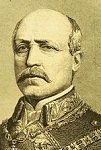





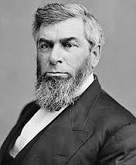







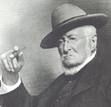
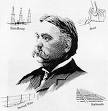






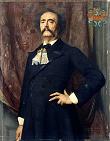


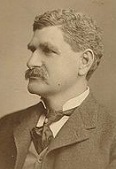


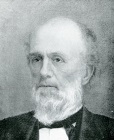






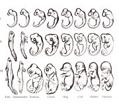
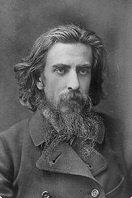

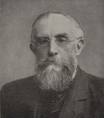
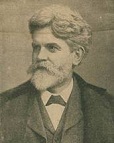




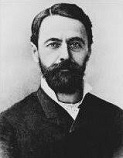





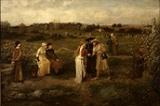
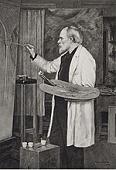





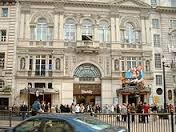


1874 This year there is an internat. fuel shortage, interest rates are sky high, many countries have huge balance of payments deficits, living costs are spiraling upward, retail food prices are too high while farmers are paid too little, and the admin. of the U.S. pres. is riddled with scandal; meanwhile Russian troops are massing along the Chinese border, and Hanoi violates its peace treaties - funny, but the exact same situation occurs in 1974? On Jan. 3 after a year of anarchy, Madrid Capt.-gen. Manuel Pavia y Rodriguez (Pavía y Rodríguez) de Alburquerque (1828-95) stages a coup in Spain and calls on all parties except the federalists and Carlists to form a new nat. govt., causing Emilio Castelar y Ripoll (1832-99), pres. #4 of the new First Spanish Repub. (since last Sept. 7) to be replaced by marshal Francisco Serrano y Dominguez, Duke de la Torre, Count of San Antonio (1810-85) (who had been conspiring to overthrow the repub. until then) becomes pres. #5 (last) of the 1st Spanish Repub. (until Dec. 29), working to gain Euro and U.S. recognition but proving unable to save Spain from a restoration of the Bourbon monarchy. On Jan. 9 U.S. pres. Grant nominates longtime politician-diplomat and former atty. gen. (1853-7) Caleb Cushing (1800-79) for U.S. chief justice, but the U.S. Senate rejects him since he opposed abolition of slavery and favored states rights but supported the Union during the Civil War, making him seem too inconsistent, so Grant gets him appointed as U.S. minister to Spain (until 1877), where he proves popular. On Jan. 20 the Treaty of Pangkor between Britain and Perak in the Malaysian Straits obliges the latter to accept a British resident to give advice on quelling a dynastic conflict and Chinese piracy, pissing-off native chiefs, who begin the Perak Revolt (ends 1875). On Jan. 31 after arriving on the Gold Coast in Dec. and making use of a newly-built road, becoming the first use of a traction engine to haul heavy loads up the beach, 2.5K British troops under Gen. (later field marshal) Sir Garnet Joseph Wolseley, 1st Viscount Wolseley (1833-1913), the Battle of Amoaful is a decisive V for the British over the Ashanti, whose chief Amanquatia is KIA, earning British praise for his courage and skill; the British lose 3 troops KIA and 164 wounded, vs. 1 KIA and 29 Ashanti wounded. In Jan. Anthony Comstock estimates that he has destroyed 134K lbs. of "improper" books, 194K pictures, 60.3K "rubber articles", and 5.5K indecent playing cards - he makes sure that more than just your carpets and upholstery are clean, he makes sure that the employees are too? On Feb. 3 king (since Jan. 8, 1873) Lunalilo I (b. 1835) dies of TB and alcoholism; on Nov. 23, 1875 his remains are removed at his request from the Royal Mausoleum in Nu'uanu Valley to the Kawaiaha'o Church; after a 21-gun salute is denied, a thunderstorm emits 21 thunderclaps to make up for it?; on Feb. 13 U.S.-leaning atty. Kalakaua I (David Kalakaua) (1836-91) is elected over British-leaning Queen Emma in Hawaii, becoming king #7 (last king and 2nd to last monarch) (until Jan. 20, 1891) declaring his brother William Pitt Leleiohoku II (1854-77) as his heir, ending the tradition of electing kings; on Mar. 18 Hawaii signs a treaty giving exclusive trading rights to the U.S.; the new king tours the islands to increase his popularity, rebuilds 'Iolani Palace in 1879-82, composes the Hawaiian War Chant, replaces the Christian nat. anthem "He Mele Lahui Hawaii" with his 1874 composition (along with Capt. Henri Berger) Hawai'i Pono'i (Hawaiian "Hawaii's Own") in 1876, and brings back the Hula, the "beat of the heart of the people" (created by La'a with his drum?) as the symbol of Hawaiian culture, becoming known as "the Merrie Monarch" and launching the First Hawaiian Renaissance; King Kalakaua, Queen Liliuokalani, Princess Miriam Likelike, and Prince William Pitt Leleiohoku II becomes known as the Royal Four (Na Lani 'Eha), the royal patrons of Hawaiian music. On Feb. 4 the British defeat the Ashanti in the Battle of Ordashu then occupy and burn the Ashanti capital of Kumasi, and in July the Treaty of Fomena ends the Third British-Ashanti War (begun 1873), with 2K Ashanti vs. 17 British KIA, 185 wounded, and 55 dead from disease, with the Ashanti agreeing to pay 50K oz. of gold, end human sacrifice, keep the road from Kumasi to the Pra River and grant freedom of trade to the British Gold Coast forts; Kofi Karikari is deposed, and Mensa Bonsu (1840-96) becomes king of Ashanti (until Mar. 8, 1883); the defeat causes the Ashanti Empire to totter on the brink of collapse, destabilizing the whole region. On Feb. 9 Allegheny County, Penn.-born Civil War Union Army vet Alfred Griner "Alferd" Packer (1842-1907) becomes Colo.'s most famous epicure when his traveling party of six leaves Montrose, Colo. en route to the Los Pinos Indian Agency near Gunnison, Colo. and becomes snowbound in the Rockies and he dabbles in cannibalism, arriving alone on Apr. 16 with a suspicious story, compounded by spreading cash around, running from the law for nine years before being discovered on Mar. 11, 1883 in Cheyenne, Wyo. living under the alias John Schwartze, tried on Apr. 6 in Lake City, Colo. and convicted of murder on Apr. 7 and sentenced to death, with presiding judge M.B. Gerry uttering the soundbyte: "Stand up yah voracious man-eatin' sonofabitch and receive yir sintince. When yah came to Hinsdale County, there was siven Dimmycrats. But you, yah et five of 'em, goddam yah. I sintince yah t' be hanged by th' neck ontil yer dead, dead, dead, as a warnin' ag'in reducin' th' Dimmycratic populayshun of this county. Packer, you Republican cannibal, I would sintince ya ta hell but the statutes forbid it"; in Oct. 1885 the Colo. Supreme Court reverses his sentence, and on June 8, 1886 he is convicted of five counts of manslaughter and sentenced to 40 years, becoming the longest prison sentence so far in U.S. history; he is paroled on Feb. 8, 1901 after gaining publicity by petitioning the Colo. gov., and goes to work as a guard at the Denver Post, allegedly going vegetarian before dying on Apr. 23, 1907 in Deer Creek, Colo. and being buried in Littleton, Colo. On Feb. 11 the Nat. Grange in the U.S. adopts a Declaration of Purposes. On Feb. 14 Bolivian pres. (since 1973) Adolfo Ballivian Coll (b. 1831) dies of stomach cancer, and former pres. (1873-3) Tomas Frias Ametller becomes pres. of Boliva again (until May 4, 1876). Disraeli finally gets his big second chance with Six More Years? On Feb. 20 the 1874 British gen. election sees the Conservative Party of Benjamin Disraeli (1804-81) defeat the Liberal Party of William E. Gladstone (in power since Feb. 27, 1868), having a clear majority for the first time since 1841; Disraeli (who shared power with Lord Derby in 1852, 1858, and 1859) becomes British PM (until Apr. 21, 1880); the queen is as enthralled with him as ever, as much as she detests Gladstone; the new govt. passes the Conspiracy and Protection of Property Act to protect the legality of union-backed strikes. Honey Do I Look Fat? The bones from the U.S. Civil War nicely bleached and forgotten, the Robber Baron Era in the U.S. begins with a Darwin-friendly Supreme Court? On Mar. 4 Conn.-born Repub. Skull & Bones Yale U graduate Morrison Remick "Mott" Waite (1816-88) becomes U.S. Chief Justice #7 and 43rd justice of the 9-member U.S. Supreme Court (until Mar. 23, 1888); his court reclaims some of the lost prestige of the Chase Court, and is marked by friendliness towards corporations and indifference to the civil rights of individuals, causing the Robber Barons to arise in the U.S., using Social Darwinism to get away with and justify riding on the backs of the less fortunate, keeping wages low, hours long, and unemployment high, and using totally amoral survival of the fittest tactics to heap up giant fortunes they don't know what to do with, while keeping their own countrymen down - morrison over, son, and wait? On Mar. 14 after Kumasi is burned, the Treaty of Fomena ends the Third British-Ashanti War (begun 1873), with 2K Ashanti and 1K Brits KIA; Kofi Karikari is deposed, and Mensa Bonsu becomes king of Ashanti (until Mar. 8, 1883); the defeat causes the Ashanti Empire to totter on the brink of collapse, destabilizing the whole region. In spring Sedalia, Mo.-born James Harvey Crawford (1845-1930) arrives in Steamboat Springs, Colo. in NW Colo. on the Upper Yampa River Valley just W of the Continental Divide and Rabbit Ears Pass named after the chugging sound of the natural hot springs throughout the area; in 1879 the U.S. Army begins forcibly removing the Yampatikas Utes to a rez in Utah; in 1900 the town is incorporated, and the railroad arrives in 1909; in 1913 Norwegian immigrant Carl Howelsen (Karl Frithjof Hovelsen) (1877-1955) introduces ski jumping to the town, building the Flying Norseman, the first ski jump on Howelsen Hill in 1914, which in 1931 becomes Howelsen Hill Ski Area, going on to found the town's annual Winter Carnival; in 1963 Jim Temple and John Fetcher establish the Steamboat Ski Resort on Mount Werner (originally Storm Mountain) E of the town; in 1974 The Industrial Co. (TIC) is founded in Steamboat Springs, becoming one of the largest construction cos. in the U.S. ($2B revenues in 2007); in 1993 the city council conducts a poll to name the bridge across the Yampa River on Shield Dr., and the name chosen is James Brown Soul Center of the Universe Bridge, with soul singer James Brown appearing at the dedication in Sept. On Apr. 15 unable to find a reputable gallery to show their work, the Impressionists first offer their work for public view in Paris on the Boulevard des Italiens; they get their name from the 1872 Claude Monet painting Impression: Sunrise (Le Havre Harbor at Sunrise), and attempt to catch the changing effects of light by using short paint strokes of pure color. On Apr. 19 Switzerland promulgates a new 1874 Swiss federal constitution strengthening the central federal govt. and militia while giving each canton large powers of control, and establishing civil marriage, free compulsory secular education for both genders with freedom of religion, and permitting popular initiatives and referendums. On May 21 Pres. Ulysses S. Grant's daughter Ellen "Nellie" Wrenshall Grant (1855-1922) marries Englishman Algernon Charles Frederick Sartoris (1851-93) in the White House, becoming the 3rd daughter of a pres. to marry in the White House (next 1906), and the first wedding to arouse public interest; Walt Whitman writes a poem in honor of the occasion. On May 26 (his 21st birthday) outlaw John Wesley Hardin (1853-95) shoots and kills deputy Charles Webb in Brown County, Tex., causing a lynch mob to hang his brother Joe and two of his cousins; after he is captured, he is sentenced to 25 hears in Huntsville, Ala. prison, claiming to have killed 42 men, after which he eventually tames down and passes the bar. On June 4 U.S. solicitor gen. #1 (since 1872) Benjamin Helm Bristow (1832-96) becomes U.S. treasury secy. #30 (until June 20, 1876), going on to prosecute the Whiskey Ring, a group of major distillers that bribe officials (mainly Repubs.) to get around the high taxes; Brig. Gen. Orville Elias Babcock (1835-84), Pres. Grant's aide-de-camp during the U.S. Civil War, and now his personal secy. is acquitted only after Grant personally intervenes and lies, er, testifies, stinking up the Repubs., and causing rumors that they use the bribes to finance their party. On June 27-July 2 the 5-day Second Battle of Adobe Walls in the Tex. Panhandle sees several hundred Comanches led by Quanah Parker siege 28 white bison hunters holed-up in a ramshackle outpost, losing 30-70 warriors vs. only four whites, one of whom shot himself by accident, before giving up and riding away after more hunters arrive, beefing the garrison up to 100 men and Parker is wounded; one of the hunters is young Bat Masterson; buffalo hunting ceases in that region; later in the summer the Red River War begins as the Southern Plains tribes (Comanche, Kiowa, Southern Cheyenne, Arapaho) make a last attempt to get their stolen prairies back from the paleface U.S. Army, which wants to remove them from the Southern Plains and forcibly relocate them to reservations in Indian Territory; on Oct. 4 Set-tainte and 144 Kiowas decide to surrender to the white men in order to get food and blankets for the winter, and Set-tainte is put back in Texas State Prison for parole violation, and on Oct. 11, 1878 he commits suicide by leaping headfirst from a 2nd story window of the prison hospital into a brick wall; in 1963 his remains are reburied in the cemetery at Ft. Sill; "The red man was pressed from this part of the West,/ He's likely no more to return/ To the banks of the Red River where seldom if ever/ Their flickering campires burn" - Home on the Range. In the summer an expedition of the Seventh Cavalry in violation of the treaty, led by Col. (Brevet Gen.) George Armstrong Custer confirms the discovery of gold in the Black Hills, taking a group of newspapermen along so that the news is sure to spread fast. In June 3.5K musicians from all of Rome's military bands stage a mammoth concert in Rome's Piazza del Popolo for tourists. On July 1 in Philadelphia 4-y.-o. "Little Charley" Ross is kidnapped by two men who demand $20K ransom, becoming the first kidnapping for ransom in U.S. history - no Little Lindbergh Law yet? On July 1 the Philadelphia Zoological Gardens, opens, becoming the first in the U.S. In July Ranald Mackenzie's 4th and 10th Black Cavalry, along with Nelson Miles' 5th Black Infantry campaign against the Comanches in the Llano Estacado (Staked Plains), winning a major battle on Sept. 27, then capturing their village in Palo Duro Canyon in the Texas Panhandle, along with 1.4K ponies, who are all killed, and the village burned, causing Quanah Parker to throw in the buffalo blanket and smoke the peace pipe with Great White Honkey, and the Comanches and Apaches both are pretty much tamed by now - arts and crafts classes begin Monday? On Aug. 5 the Kaiser begins awarding the Iron Cross again for the first time since 1813. On Aug. 6 Sarah Bernhardt (1844-1923) debuts in Paris in a drama by Voltaire titled Zaire, in which she plays the title role; a cent. later there is a country with that name. On Aug. 15 Albert Pike allegedly writes a Letter on Three World Wars to Giuseppe Mazzini, describing his vision of how the Illuminati OWG is going to be brought about, with WWI overthrowing the Russian monarchy and establishing a Communist regime, WWII overthrowing Fascism and creating a Zionist state of Israel, and WWIII causing the Muslim World and Zionists to destroy each other, after which atheism will be unleashed to destroy Christianity, causing the remnant to destroy them too and and begin the worship of Lucifer. On Aug. 16 163 German-speaking Mennonites from S Russia arrive in Marion County, Kan., bringing the hardy winter wheat known as Turkey Red, which eventually makes Kansas the granary of the U.S. On Oct. 9 after the U.S. calls for an Internat. Postal Congress in 1863, the Treaty of Bern is signed by reps from 22 nations, establishing the Universal Postal Union (originally the Gen. Postal Union), founded by Prussian minister Heinrich von Stephan (1831-97), establishing a uniform flat rate for internat. mail; Oct. 9 becomes World Post Day; on July 10, 1964 the Constitution of the Universal Postal Union incorporates the IPU. On Oct. 10 ex-cannibal (not Christian) Ratu Seru Cakobau and other chiefs cede Fiji to Britain under a promise to protect Fijian interests while promoting commerce and Christianity - where's the cargo? On Oct. 30 the Virginius Affair begins when the Cuban blockade runner ship Virginius, captained by Joseph Fry is captured by the Cuban naval ship Tornado, who puts the crew on trial in Santiago de Cuba as pirates, getting them convicted and sentenced to death, causing protests, after which British sloop HMS Niobe under Sir Lambton Loraine, 11th Baronet (1818-1917), who arrives and stops the executions at 53; the affair ends on Feb. 7, 1875 after Spanish pres. Francisco Serrano pays $80K in reparations; meanwhile the Spanish ironclad Arapiles anchors in New York Harbor for repairs, freaking out U.S. naval authorities with the realization that they have nothing to defeat it, causing five new ironclads to be built, which are used in the 1898 Spanish-Am. War. On Nov. 7 Thomas Nast pub. the cartoon Third Term Panic in Harper's Weekly first using the elephant as the symbol of the Repub. Party; it shows people panicking at the idea that Pres. Grant would run for a 3rd term on their ticket - you're just a dirty old grandpa? On Nov. 7 an article in the American Medical Weekly claims that a minie-ball fired on May 12, 1863 during the U.S. Civil War had passed through a soldier's scrotum and penetrated the abdomen of a young lady, causing her to become pregnant and deliver an 8-pound baby, who was found to have the mini-ball in its scrotum; the soldier later marries the woman, and they have more three children, but none resembling the father as much as the first. In the Nov. elections the depression and scandals hurt Repub., and the Dems. win control of the U.S. House of Reps. and gain seats in the Senate; the new Dem. House immediately launches inquiries into the scandals and unearths damaging evidence. On Nov. 28 ex-Queen Isabella II's I-can't-wait-forever time-won't-let-me 18-y.-o. son Alfonso XII (1857-85) declares himself of age, and comes out in support of a constitutional monarchy, gaining support from moderates and liberal unionists; on Dec. 29 a group of Spanish gens. rallies to him, ending the First Spanish Repub. of 1873, and he is crowned king of Spain (until Nov. 25, 1885); ousted pres. Marshal Francisco Serrano plays footsie with Alfonso XII and dies in Madrid on Nov. 26, 1885, 24 hours after him. In Nov. 135 women meet in the Second Presbyterian Church in Cleveland, Ohio and organize the Nat. Woman's Christian Temperance Union (WCTU), the first mass org. of U.S. women, which later moves to Evanston, Ill. On Dec. 26 immigrant ship Cospatrick catches fire and sinks off Auckland, New Zealand, killing 476. In Dec. after the postwar reduction of greenbacks in circulation from $432M to $356M had made money too tight, causing the U.S. Treasury to reissue $26M of them, followed by Pres. Grant vetoing a bill to reissue even more, Grant gives his annual message to Congress, calling for the gradual redemption of greenbacks in gold to make them "good as gold". Arkansas adopts its 5th (1836, 1861, 1864, 1868) constitution, and suffers political disturbances as a result. The British Factory Act aids textile workers, changing the working age of children from 8-12 to 10-13. The Prince of Wales (future King Edward VII) visits France. The seaport of Haiphong (Hai Phong) (Haifong) in N Vietnam in the Red River Delta 20 mi. from the Gulf of Tonkin and 60 mi. E of Hanoi is founded. John Forrest heads a 2K-mi. expedition from Champion Bay on the W coast of Australia to the overland telegraph line between Port Darwin and Adelaide, and in 1876 is made deputy surveyor gen. of Western Australia, then surveyor gen. in 1883 - is whitey finally starting to run out of lebensraum? The Great Western Cattle Trail parallel to the Chisholm Trail is first traveled by Capt. John T. Lytle, who drives 3.5K longhorn cattle from S Tex. into Neb., becoming one of the most-traveled cattle trails in the U.S., closing in 1893. The U.S. Navy, neglected after the Civil War, has become little more than a "heterogeneous collection of naval trash", according to the Army and Navy Journal. War hero Gen. Bernardino Caballero de Anasco (Añasco) y Melgarejo (1839-1912) founds the conservative Colorado (Repub.) Party in Paraguay, which controls the country's politics for three decades. The Ethiopian-Egyptian War (ends 1876) sees Ethiopia and Egypt go to war over the disputed district of after Ismai'l Pasha of Egypt annexes Darfur in 1875 and attempts to expand to the whole length of the Nile River, bumping up against Ethiopian emperor (since 1872) Yohannes IV, resulting in the Battle of Gundet on Nov. 16, 1875, in which the Ethiopians ambush the outnumbered Egyptians in a narrow mountain pass, routing them, after which the Egyptian suppresses the bad news and invades again from the N, resulting in the Battle of Gura in Eritrea on Mar. 7-9, 1876, which is another D, ending the war. The Isle of Man (Manx) Pure Beer Act is enacted by the Tynwald, mandating that only water, malted barley, hops, and sugar be used in beer brewing; in 1899 the law is amended to permit the brewing of lager, wheat beer, and fruit beer. The Great Tom Collins Hoax of 1874 spreads around New York, Penn., with everybody pretending that Tom Collins is just around the corner, after which it spreads, causing newspapers to print stories of false sightings; in 1876 Am. mixology king Jerry Thomas pub. the first recipe for a Tom Collins cocktail, made of sparkling lemonade and gin. The city of Garland, Tex. NE of Dallas starts out as the communities of Embree and Duck Creek, centered around a Santa Fe Railroad depot; in 1887 after a rivalry, Dallas County Judge Thomas A. Nash asks visiting congressman Joe Abbott to move the post office to a point midway between them, which is completed in 1887, and named after U.S. atty. gen. Augustus Hill Garland; in 1891 the city of Garland is incorporated, reaching 819 pop. in 1904, reaching 226,876 in 2010 and 238,002 in 2017, becoming a top city for first-time home buyers and working parents, voted by Smartasset in 2017 as "Third Best City for Living the American Dream". London-born Am. cigar maker Samuel Chomper, er, Samuel Gompers (1850-1924) is elected pres. of Local 144 of the Cigar Makers' Internat. Union, and creates the first Union label for cigars, attesting that no Chinese labor was used to manufacture them - they might spit in it? Sir William Siemens directs the laying of the first transatlantic submarine telegraph cable between England and the U.S. A lottery craze sweeps the U.S. and other countries this year, incl. the Royal Havana Lottery of Cuba and the Royal Saxon Govt. Lottery of Leipzig, Germany. Colorado College is founded in Colo. Springs, Colo. on land designated by Denver & Rio Grande Railroad founder Gen. William Jackson Palmer (1836-1909) to copy Oberlin College. British naval historian (first-ever?) Sir John Knox Laughton (1830-1915) gives a lecture to the Royal United Services Inst., announcing the novel idea of the importance of analyzing historical events rather than merely reporting them chronologically, becoming "a catalyst for the entire intellectual development of naval history as an independent discipline", making disciples of British Adm. Herbert William Richmond, British civilian historian Sir Julian Corbett, and U.S. Rear Adm. Alfred Thayer Mahan; too bad, his works go out of print and he fades into obscurity until Donald Mackenzie Schurman (1924-2013) ("founder of naval history in Canada") pub. The Education of a Navy: The Development of British Naval Strategic Thought, 1867-1914 (1965), resurrecting his memory, causing the dept. of war studies at King's College to name its naval history chair after him. The German govt. underwrites the excavation of the Temple of Zeus in ancient Olympia in Greece by Ernest Curtis (finished 1881) - not brought to you by Geico? Half-black half-white former slave Blanche Kelso Bruce (1841-89) is elected as Repub. U.S. Sen. from Miss., taking office on Mar. 4, 1875 (until Mar. 4, 1881), becoming the first African-Am. to serve a full term. Walter Horatio Pater becomes Oscar Wilde's tutor at Oxford. Ralph Waldo Emerson criticizes Algernon Charles Swinburne's poetry as "smutty", touching off transatlantic controversy. Claude Monet (1840-1926) holds an exhibition of Impressionist painters, incl. Gaugin, Renoir, and Cezanne, who like to paint the same scene at different times of day and season to bring out the effects of light and atmosphere, causing critic Louis Leroy to coin the term "Impressionism" to deride it, with the soundbyte "A preliminary drawing for a wallpaper pattern is more finished than this seascape"; "I am following Nature without being able to grasp her... I perhaps owe having become a painter to flowers." (Claude Monet) Stay tuned for scenes from one life to live? This year marks the year in which Christ's Second Presence (Second Advent) is due, according to Allegheny, Penn.-born Pastor Charles Taze Russell (1852-1916), author of the 7-vol. Studies in the Scriptures, 1879 founder of The Watchtower mag., and 1871 founder of the Internat. Bible Students, who in 1931 change their name to Jehovah's Witnesses, and go on to recruit millions of followers, incl. some celebs; when a Bible-based Armageddon prediction goes wrong, there is always a shakeup in the org., after which they regroup and make new predictions, because after all, the Bible is still telling them that there will be one; luckily by the 1980s they officially give up Big A predictions, claiming that only God knows the exact time. Am. Methodist Episcopal minister John Heyl Vincent (1832-1920) (promoted to bishop in 1888) and mill owner Lewis Miller (1829-99) (1855 inventor of the combine) establish the Chautauqua (Seneca "one has taken out fish there") Assembly, followed by Chautauqua U. in 1878 for Sunday school teachers at Fair Point in SW N.Y., where a piece of land juts out into 17 mi. x 2 mi. Chautauaqua Lake, going on to establish the Chautauqua System of home study and the traveling Tent Chautauquas - almost as fun to say as salsa? The Journals of the Disciples of Satan, owned by the Mafia is pub. in Italy. Henry Morton Stanley begins a trek across C Africa from E to W to explore the Congo River (ends 1877). The Pullman Co. begins setting aside smoking cars. Civil marriage becomes compulsory in Germany. Am. atty. Elbridge Thomas Gerry (1837-1927), grandson of U.S. vice-pres. Elbridge Gerry and vice-pres. of the SPCA founds the Society for the Prevention of Cruelty to Children (Gerry Society). The Union Generale des Postes is established in Berne, Switzerland on May 12. James Buchanan Eads deepens the mouth of the Mississipi River using huge jetties. S.A. Hall founds Camp Capitola in Santa Cruz County, Calif. for Victorians who love sea-bathing, where they jump through the waves while holding onto a rope attached to an offshore buoy. Durra (Dourra) (Doora) (grain sorghum) (Egyptian corn) is introduced from S Asia to Calif., where it is grown for animal forage and human food. St. Olaf College in Northfield, Minn. is founded by Norwegian immigrant farmers, led by pastor Bernt Julius Muus (1832-1900). The London Medical School for Women is founded by Sophia Jex Blake, Elizabeth Garrett Anderson, Thomas Henry Huxley, Emily Blackwell, and Elizabeth Blackwell, becoming the first in Britain for women. Correspondence U. in Ithaca, N.Y. is founded, becoming the first U.S. correspondence school. The Paris Opera (Palais Garnier) (begun 1861) opens. Hertford College at Oxford U. is founded. Lever Brothers Co. is founded by English grocer William Hesketh Lever (1851-1925) and his brother James Darcy Lever (1854-1910), going into the soap biz and marketing Sunlight brand based on vegetable oils, then growing to a worldwide conglomerate with sales of $40B+/year by the 21st cent.; too bad, although he becomes a philanthropist, William Hesketh Lever gets into forced labor in the Belgian Congo, stinking himself up. Sports: On May 14 the first internat. Harvard (Boston) Rules rugby football game is played at Jarvis Field in Cambridge, Mass. between Harvard U. of the U.S. and McGill U. of Montreal, Canada; Harvard wins by 3-0; on May 15 they play again under McGill rugby rules, ending in a 0-0 tie after McGill uses a leather-covered bladder instead of a round rubber ball like Harvard; next year Harvard and Tufts play under McGill rules, establishing the modern version of college football, which turns the rugby try into the football touchdown (TD). In July Sophie Stevens wins a gold opera chain for winning a women's swimming contest at Fort Hamilton Beach, N.Y. A baseball tournament between 14 amateur baseball clubs from the U.S. and Canada is held in July in Watertown, N.Y. Architecture: On Jan. 10 the Colosseum at Broadway and 35th St. in New York City opens, becoming the biggest cast-iron structure in the U.S.; inside are cycloramas of London and Paris; outside bells in the tower peal the St. Paul and Westminster chimes. On Mar. 21 the Criterion Theatre in Piccadilly Circus, Westminster, West End, London (cap. 588) opens with "An American Lady" by mgr. Henry J. Byron, and "Topsyturveydm by Alfred Cellier and W.S. Gilbert; on Apr. 15, 1876 is opens under new mgr. Charles Wyndham with "The Great Divorce Case", becoming a leading London light comedy house; in Mar. 1883 the theatre closes so that new ventilation and electricity can be installed, reopening on Apr. 16, 1884. The eagle has landed? The Anglo-Italianate Tweed Courthouse in New York City (declared a historic landmark in 1974) is erected at a cost of $12.5M, two-thirds of which is graft or boodle, and William Marcy "Boss" Tweed (1823-78) spends most of this year in jail for fraud involving the use of city and state funds. The Girard Avenue Bridge in Philadelphia, Penn. over the Schuylkill River officially opens on July 1, becoming the world's widest bridge at 1K ft. long by 100 ft. wide. The triple-arch James Buchanan Eads Bridge in St. Louis, Mo. opens on July 4, built by Capt. James Buchanan Eads (1820-87), becoming the first permanent span built across the Mississippi River that can accommodate railroad traffic, and the world's longest arch bridge. Sports: Mary Ewing Outerbridge (1852-86) of Staten Island, N.Y. brings Lawn Tennis to the U.S. in the spring after watching it being played in Bermuda by English officers, playing her first game at the Staten Island Cricket and Baseball Club. Nat. Assoc. championship team Boston joins the Philadelphia Athletics on a trailblazing tour of Europe (the first time pro U.S. baseball teams play abroad), competing in 14 baseball games and 7 cricket matches in England and Ireland. 20-y.-o. N.J. trotter Goldsmith Maid (1854-82) retires after earning purses totalling $364,200 and going undefeated since 1871. Inventions: Postmaster Noyes Palmer Chapman (1811-) of Canastota, N.Y. invents the Fifteen Puzzle, consisting of 15 consecutively numbered sliding squares in a 4x4 grid; it becomes a craze in 1880; on the Tonight Show starring Johnny Carson on Nov. 8, 1972 chess champ Bobby Fischer proves he can solve it within 25 sec. Jean Maurice Emile Baudot (1845-1903) on June 17 patents the first system for rapid telegraphy. Stephen Dudley Field (1846-1913) of Stockbridge, Mass. begins inventing electrical equipment, starting with a multiplex telegraph apparatus, then installs an electric streetcar system in New York City, which proves dangerous and faulty. Robert M. Green of Philadelphia, Penn. begins selling ice cream sodas (ice cream and soda water), claiming to have invented them. H.S. Parmalee of New Haven, Conn. patents the sprinkler head, used in bldgs. to put out fires. The Sargent & Greenleaf Co. of Rochester, N.Y. begins manufacturing time locks for bank vaults. A.K. Shriver of Baltimore, Md. patents the Pressure Cooker (Retort) for food canning; it doesn't come into gen. use until 1935. Devil's Rope cuts the Am. Great Plains into a danger-filled maze? Joseph Farwell Glidden (1813-1906) of De Kalb, Ill. (who grew up on a farm in N.Y.) modifies the patented barbed wire design of Henry M. Rose (a strip of wood with spikes attached to a plain wire fence) with a new way to hold the barbs in place using two twisted wire strands, creating The Winner, and in 1874 he and merchant Isaac L. Ellwood form the Barb Fence Co., becoming the first barbed wire manufacturer, with five tons produced the first year, and, after hiring salesmen Henry B. Sanborn (relative of Glidden) and John Warne "Bet-a-Million" Gates (1855-1911) sales take off, producing 1.5K tons in 1876 and 25K tons in 1879, causing the Great Plains (which lack rocks and trees) to be fenced in, and prices to fall from 20 cents to 2 cents per lb. by 1893; Glidden never visits the West to see how hi Devil's Rope causes severe injuries to cattle, screwworm infestation et al.? Oleomargarine, invented in France in 1869 begins to be manufactured in the U.S. The first corset manufactured solely for health purposes begins production in McGraw, N.Y. Bellevue Training School for Nurses in New York City introduces the first hospital record system in the U.S. Science: In Jly Coggia's Comet (Great Comet of 1874) is first observed (period 6K years), with brightness between 0 and 1. Prussian-born Austrian surgeon Christian Albert Theodor Billroth (1829-94) discovers Streptococci and Staphylococci. Dutch physical chemist Jacobus Henricus van't Hoff (1852-1911) and French physical chemist Joseph Achille Le Bel (1847-1930) independently suggest that the four bonds in most carbon compounds are directed toward the corners of a tetrahedron, thus founding the study of Stereochemistry, and winning van't Hoff the first-ever Nobel Chem. Prize in 1901. German physicist Friedrich Wilhelm Georg Kohlrausch (1840-1910) demonstrates that an electrolyte has a definite constant value of electrical resistance, and goes on to to verify the independent migration of ions. Andrew Taylor Still (1828-1917) of Baldwin, Kan. invents Osteopathy, "the freedom of flow of all electric or other fluids or substances pertaining to life" - my hand invents that every night? Irish physicist George Johnstone Stoney (1826-1911) of the Nat. U of Ireland coins the word "electron"; actually he named it "electrine", and changed it in 1891 - don't ask why a Gaelic wants to use Greek? English opthalmologist Warren Tay (1843-1927) first describes macular degeneration. Othmar Zeidler (1859-1911) of the U. of Strasbourg first prepares DDT, but doesn't suspect its insecticidal qualities; it takes until 1939. Heroin is chemically extracted from morphine in England by adding two acetyl groups. Nonfiction: Anon., Professor Fowler's Great Work on Manhood, Womanhood and Their Mutual Interrelations; Love, Its Laws, Power, etc.; sent only in a plain envelope. Sir Samuel White Baker (1821-93), Ismailia; his C African expedition. Paul Emile Lecoq de Boisbaudran (1838-1912), Spectres Lumineux, et en Longeurs d'Ondes Destines aux Recherche de Chimie Minerale; pioneer treatment of spectroscopy. George Borrow (1803-81), Romano Lavo-lil, or World-book of the Gypsy Language. John Elliott Cairnes (1823-75), Some Leading Principles of Political Economy, Newly Expounded; which claims that political economy should be limited to tracing the connections among the phenomena of wealth but not dictate rules of practice, and adds abstinence to labor as a cost of production, pointing out that modern societies are split into noncompeting industrial groups with free competition only within each group. Fustel de Coulanges (1830-89), Histoire des Institutions Politiques de l'Ancienne France; claims that the Germans didn't conquer Gaul but peacefully and slowly penetrated it. George Armstrong Custer (1839-76), My Life on the Plains. John William Draper (1811-82), History of the Conflict Between Religion and Science; proposes the Conflict Thesis, that there is an intrinsic intellectual conflict between you know what, leading to public hostility, which becomes a big hit with Rationalists, although modern historians tend to back off from it. Henry Drummond (1851-97), The Greatest Thing in the World; bestseller (12M copies) based on 1 Cor. Ch. 13, about following God's commands to love him and each other. Millicent Fawcett (1847-1929), Tales in Political Economy. James Fazy (1794-1878), De l'Intelligence Collective des Societes. William Ferrel (1817-91), Tidal Researches; explains his tide prediction machine that works on the principle of harmonic motion. William Gladstone (1809-98), The Vatican Decrees in their Bearing on Civil Allegiance; bestseller urging British Roman Catholics to reject papal infallibility in favor of loyalty to the infallible British crown. John Richard Green (1837-83), Short History of the English People (4 vols.) (1874-80); first to concentrate on social, industrial, and moral progress?; would have made it longer but has health problems? Ferdinand Gregorovius, Lucrezia Borgia. Ernst Haeckel (1834-1919), Anthropogenie. Charles Hodge (1797-1878), What Is Darwinism?; leader (since 1851) of Old School Presbyterian Princeton Theological Seminary attacks newfangled Darwinism as atheism, becoming the first sustained religious attack, pooh-poohing the notion that blind chance independent of God gave rise to the intricate design of Nature; "To any ordinarily constituted mind it is absolutely impossible to believe that the eye is not the work of design"; Presbyterians have the duty to oppose "all spectacular hypotheses and theories which come into conflict with well-established truths"; God gave us "intuitions which are infallible", but thanks to the unbelief rampant in the scientific world, "Religion has to fight for its life against a large class of scientific men"; anti-Darwinism becomes his school's official position until 1929; meanwhile totally separate Princeton U., under pres. (1868-88) James McCosh (1811-94) accepts Darwinism as evidence of God's great intelligence, finding no irreconcilable hostility to the Bible, becoming the first endorsement by a religious leader. William Stanley Jevons, The Principles of Science. Gen. Joseph E. Johnston (1807-91), Narrative of Military Operations during the Civil War. Bon Louis Henri Martin (1810-83), Napoleon and the Frontiers of France. John Stuart Mill (1806-73), Three Essays on Religion (posth.). Alexander Stuart Murray (1841-1904), Who's Who in Mythology. Robert Dale Owen (1801-77), Threading My Way (autobio.). James Shepherd Pike (1811-82), The Prostrate State: South Carolina Under Negro Government; Maine-born former Radical Repub. turns on Reconstruction, claiming to be an eye-witness, painting it as causing corruption, incompetence, bribery and other financial wrongdoing under the control of "a mass of black barbarism", calling for whites to be restored to political power, backing the Liberal Repub. U.S. pres. candidate Horace Greeley over Ulysses Grant, becoming a hit that helps hasten the end of Reconstruction and is used by historians until the 20th cent.; Pike supported the Union during the U.S. Civil War but didn't want black slaves freed but rather "the Gulf States... surrendered to the blacks" to ensure segregation and get them out of whites' hair. Georg August Schweinfurth (1836-1925), Im Herzen von Afrika (In the Heart of Africa). Henry Sidgwick (1838-1901), Methods of Ethics. Vladimir Solovyov (1853-1900), The Crisis of Western Philosophy: Against the Positivists; disses positivism and Western rationalism as setting up a conflict between reason and faith and reason and Nature, praising Arthur Schopenhauder and Eduard von Hartmann and claiming a third way between pure empiricism and pure rationalism that acknowledges an all-one concrete spirit as the absolute principle, founding modern Russian religious philosophy; "No preceding stage of philosophy can be ignored. Every preceding stage is one-sided and will find its appropriate place only when we are emancipated from Western philosophy in its entirety and surrender ourselves to the authority of faith" (Alexei Losev). Sir Leslie Stephen (1832-1904), Hours in a Library (3 vols.) (1874-9). Bishop William Stubbs (1825-1901), The Constitutional History of England in Its Origin and Development (3 vols.) (1874-8); becomes a std. work, tracing the development of the English constitution from the 5th-6th cent. Teutonic invasions of England to 1485. William Graham Sumner (1840-1910), A History of American Currency, with Chapters on the English Bank Restriction and Austrian Paper Money. Eugene Emmanuel Viollet-le-Duc (1814-79), Histoire d'une Forteresse. Marie-Esprit Leon Walras (1834-1910), Elements of Pure Economics; or, The Theory of Social Wealth; his magnum opus; founds Gen. Equilibrium Theory, helping launch the Marginal Rev. along with William Stanley Jevons and Carl Menger. Wilhelm Wundt (1832-1920), Principles of Physiological Psychology; first textbook on psychology. Music: Johannes Brahms (1833-97), Hungarian Dances. Zdenek Fibich (1850-1900), Bukovin (opera). Hermann Goetz (1840-76), Der Widerspenstigen Zahmung (opera) (Mannheim). Edouard Lalo (1823-92), Spanish Symphony (Opus 21 in D minor); written for Pablo de Sarasate; debuts 1 mo. after "Carmen". Modest Mussorgsky (1839-81), Boris Godunov (violin concerto) (St. Petersburg) (Feb. 1875) (Paris); Pictures at an Exhibition; 10 piano pieces based on art work by Viktor Hartmann, who died suddenly in 1873 ; incl. "Tuileries", "Battle of the Unhatched Chicks", "The Hut on Hen's Legs", "The Bogatyr Gates of Kiev"; adapted in 1922 for full symphony orchestra by Maurice Ravel. Bedrich Smetana (1824-84), My Fatherland (Ma Vlast) (6 symphonic poems) (1874-9) ("Bysehrad", "Vltava", "Sarka", "From Bohemian Fields and Groves", "Tabor", "Blanik"); The Two Widows (opera) (Mar. 27 and Oct. 20) (Prague); libretto by Emanuel Zungel based on Jean Pierre Felicien Mallefille's 1-act play "Les Deux Veuves"; rewritten after the first debut flops. Johann Strauss II (1825-99), Die Fledermaus (The Flying Mouse) (operetta) (Apr. 5) (Vienna); his most popular operetta; U.S. debut is on Nov. 21 at New York City's Thalia Theatre (N.Y. Academy of Music); Prince Orlovsky; features a great overture. Giuseppe Verdi (1813-1901), Requiem Mass (Manzoni Requiem) (Milan) (May 22); commemorates the 1st anniv. of the death of Italian writer Alessandro Manzoni (1785-1873). Art: Arnold Bocklin (1827-1901), Vestalin. George Henry Boughton (1833-1905), Pilgrims Setting Out for Canterbury; exhibited in London, where it turns on Theo van Gogh, who views life as a (an ear-nest?) pilgrimage to God. Sir Edward Coley Burne-Jones (1833-98), The Beguiling of Merlin. Pierre Puvis de Chavannes (1824-98), Radegune (mural); Charles Martel (mural) (1874-5); both in the Poitiers town hall. Thomas Eakins (1844-1916), Hunting. Francois Feyen-Perrin (1826-88), Return of the Oyster Fishers. Jule Joseph Lefebvre (1836-1911), Odalisque; Slave Carrying Fruit; Portrait of Eugene Louis Napoleon Bonaparte. Max Liebermann (1847-1935), Women Plucking Geese. Claude Monet (1840-1926), Monet Working. Martin Milmore (1844-83), Soldiers' and Sailors' Monument (sculpture) (Boston Common). Pierre-Auguste Renoir (1841-1919), La Loge; The Theatre Box. William Wetmore Story (1819-95), Semiramis (sculpture). Elizabeth Thompson, Calling the Roll After an Engagement, Crimea. James Tissot (1836-1902), The Ball on Shipboard; London Visitors. Plays: Pedro Antonio de Alarcon (1833-91), The Three-Cornered Hat (El Sombrero de Tres Picos); a miller thinks his wife is having an affair with the mayor; basis of a 1917 ballet by Manuel de Falla. Octave Feuillet (1821-90), Le Sphinx. William Gilbert, Sweethearts. Bronson Crocker Howard (1842-1908), Moorcroft. Algernon Charles Swinburne (1837-1909), Bothwell. Bayard Taylor (1825-78), The Prophet: A Tragedy. Poetry: Paul Bourget (1852-1935), La Vie Inquiete. Charles Cros, La Fleuve. George Eliot (1819-80), The Legend of Jubal; Arion; A Minor Prophet. Vitezslav Halek, Under the Bare Hill - how would you like to check out the bouncing souls? Arthur O'Shaughnessy (1844-81), Music and Moonlight; "We are the music makers,/ And we are the dreamers of dreams"; set to music in 1912 by Sir Edward Elgar; quoted in the 1971 film "Willy Wonka & the Chocolate Factory". James Thomson (1834-82), The City of Dreadful Night; based on his nocturnal jaunts around London during bouts of insomnia. Paul Verlaine (1844-96), Romances sans Paroles. Novels: Thomas Bailey Aldrich (1836-1907), Prudence Palfrey. Jules Amedee Barbey d'Aurevilly (1808-89), The She-Devils (Les Diaboliques) (short stories); about women who commit a crime to relieve the boredom of their bourgeois lives in the French Second Repub. William Black (1841-98), A Princess of Thule; adapted into the play "The Maid of Arran" by L. Frank Baum. Anna Louise Geertruida Bosboom-Toussaint (1812-86), Majoor Frans. Mary Elizabeth Braddon (1837-1915), Lost for Love. Edward Eggleston (1837-1902), The Circuit Rider. Gustave Flaubert (1821-80), The Tempation of St. Anthony (La Tentation de Saint Antoine). Joseph Arthur, Count de Gobineau (1816-82), Les Pleiades. Thomas Hardy (1840-1928), Far From the Madding Crowd (4th novel); his first major lit. success; farmer Bathsheba Everdene, her lonely neighbor William Boldwood, faithful shepherd Gabriel Oak, and thriftless soldier Sgt. Troy. Victor Hugo (1802-85), Ninety-Three (Quatre-vingt-treize). J.K. Huysmans (1848-1907), Le Drageoir aux Epices (prose poems). Edward Page Mitchell (1852-1927), The Tachypomp (Jan.) (New York Sun); faster-than-light travel. Allan Pinkerton (1819-84), The Expressman and the Detective; one of several detective novels ghost-written for him. Raffi (1835-88), Salbi. Edward Payson Roe (1838-88), Opening of a Chestnut Burr. Henry Wheeler Shaw (1818-85), Everybody's Friend. Theodor Storm (1817-88), Pole Poppenspaler. Jules Verne (1828-1905), The Mysterious Island; sequel to "20,000 Leagues Under the Sea" (1870); named after Abe Lincoln; Capt. Nemo is revealed to really be Prince Dakkar, and is buried in his tub. Births: Am. newspaper pub.-politician and U.S. Navy sec. #46 (1940-4) William Franklin "Frank" Knox (d. 1944) on Jan. 1 in Boston, Mass. French economist Charles Rist (d. 1955) on Jan. 1 in Prilly; father of Leonard Rist (1905-82). Am. aviation pioneer Gustave Albin Whitehead (Gustav Albin Weisskopf) (d. 1927) on Jan. 1 in Leutershausen, Bavaria; emigrates to the U.S. in. 1893. Am. physiologist Joseph Erlanger (d. 1965) on Jan. 5 in San Francisco, Calif; educated at John Hopkins U. Am. automobile pioneer (alcoholic) Carl Graham Fisher (d. 1939) on Jan. 12 in Greensburg, Ind. English historian-biographer Henry William Carless Davis (d. 1928) on Jan. 13 in Ebly (near Stroud), Gloucestershire; educated at Balliol College, and All Souls College, Oxford U. Am. "Peter Rabbit/Cottontail" children's writer and conservationist ("the Bedtime Story Man") Thornton Waldo Burgess (d. 1965) on Jan. 14 Sandwich, Mass. Canadian "The Law of the Yukon", "The Shooting of Dan McGrew" poet ("the Bard of the Yukon") Robert William Service (d. 1958) on Jan. 16 in Preston, Lancashire, England; Scottish banker father; grows up in Glasgow. Am. US Steel CEO (1932-8) Myron Charles Taylor (d. 1959) on Jan. 18. Am. pioneer film producer (Jewish) Charles O. Baumann (d. 1931) on Jan. 20 in New York City. French mathematician Rene Louis Baire (d. 1932) on Jan. 21. Am. philanthropist Edward Stephen Harkness (d. 1940) on Jan. 22 in Cleveland, Ohio. Am. "Take Me Out to the Ball Game" singer Edward Meeker (d. 1937) on Jan. 22 in East Orange, N.J. English "Of Human Bondage" novelist-playwright (gay) William Somerset Maugham (d. 1965) (pr. MOM) on Jan. 25 [Aquarius] in Paris (British embassy so he can't be conscripted into French military service); father is a lawyer for the British embassy; educated at Heidelberg U.; medical degree from St. Thomas's Hospital, London; master of the simple, disillusioned and ironic lit. style - Maugham liked you better? Russian Symbolist theatrical producer-dir.-actor Vsevolod Emilevich (Karl Kasimir Theodor) Meyerhold (d. 1940) on Jan. 28 (Feb. 10 Old Style) in Penza; educated at Moscow U. Am. "Icebound" playwright Owen Gould Davis Sr. (d. 1956) on Jan. 29 in Portland, Maine; father of Owen Davis Jr. (1907-49) and Donald Davis. Am. Rockefeller Center industrialist-philanthropist (Jewish) John Davison Rockefeller Jr. (d. 1960) on Jan. 29 in Cleveland, Ohio; only son of John D. Rockefeller Sr. (1839-1937); educated at Brown U.; father of John D. Rockefeller III (1906-78), Nelson Aldrich Rockefeller (1908-79), Winthrop Rockefeller (1912-73), and David Rockefeller Sr. (1915-); Nelson becomes U.S. vice-pres. in exactly 100 years. Austrian Romantic "Jedermann" novelist-poet-playwright (Roman Catholic) Hugo von Hofmannsthal (d. 1929) on Feb. 1 in Vienna; Jewish great-grandfather; educated at the U. of Vienna; writes librettos for six operas by Richard Strauss. Am. "A Rose is a Rose is a Rose" avant-garde writer-poet (lesbian) Gertrude Stein (d. 1946) on Feb. 3 in Allegheny, Penn.; educated at John Hopkins U. Am. "What's O'Clock" imagest free-verse poet-critic ("Amygist" - Ezra Pound), ("the demon saleswoman of poetry - T.S. Eliot") and critic (lesbian) Amy Lowell (d. 1925) on Feb. 9 in Brookline, Mass.; sister of educator Abbott Lawrence Lowell (1856-1943) and astronomer Percival Lowell (1855-1916). Russian philosopher-archeologist (Theosophist) Helena Ivanovna Roerich (d. 1955) on Feb. 12 in St. Petersburg; wife of Nicholas Roerich (1874-1947). British Antarctic explorer Sir Ernest Henry Shackleton (d. 1922) on Feb. 15 in Kilkea, County Kildare, Ireland. Am. IBM pres. #1 (1914-56) (asthmatic) Thomas John Watson Sr. (d. 1956) on Feb. 17 in Campbell, N.Y.; son of a small lumber business owner; father of Thomas J. Watson Jr. (1914-93). Am. soprano ("the Sara Bernhardt of Opera") Mary Garden (d. 1967) on Feb. 20 in Aberdeen, Scotland; emigrates to the U.S. at age 9. Estonian pres. #1 (1938-40) Konstantin Pats (Päts) (d. 1956) on Feb. 23 (Feb. 11 Old Style) in Takhuranna Parish. Am. ML baseball hall-of-fame player ("the Flying Dutchman") Johannes Peter "Honus" Wagner (d. 1955) on Feb. 24 in Carnegie (Chartiers), Penn. Austrian chess master (Jewish?) Carl Schlechter (d. 1918) on Mar. 2 in Vienna. Am. Mormon fundamentalist leader John Yeates (Yates) Barlow (d. 1949) on Mar. 4 in Panaca, Nev. Am. "It's a Wonderful Life" actor Henry Travers (Travers John Heagerty) (d. 1965) on Mar. 5 in Berwick-on-Tweed, Northumberland; father is Irish doctor from Cork. Am. anti-Dewey educator William Chandler Bagley (d. 1946) on Mar. 15 in Detroit, Mich.; educated at Cornell U. Am. liberal "curmudgeon" reformer journalist and U.S. interior secy. #2 (1933-1946) Harold LeClair Ickes (d. 1952) on Mar. 15 in Franktown Township, Penn.; educated at the U. of Chicago. Am. Zionist rabbi Stephen Samuel Wise (d. 1949) on Mar. 17 in Budapest, Hungary; emigrates to the U.S. as an infant. English "Rescued by Rover", "Alice in Wonderland" film dir. Cecil Milton Hepworth (d. 1953) on Mar. 19 in Lambeth, South London. French Gen. Pierre Hering (d. 1963) on Mar. 23. Am. Sat. Evening Post illustrator Joseph Christian Leyendecker (d. 1951) on Mar. 23 in Montabaur, Germany; of Dutch ancestry; emigrates to the U.S. in 1882. Hungarian-Am. escapologist-magician, writer-ghostbuster (Jewish) ("Master of Mystery") ("Handcuff King") Harry Houdini (Erik Weisz or Ehrich Weiss) (d. 1926) on Mar. 24 in Budapest; rabbi father; emigrates to the U.S. in 1878; grows up in Appleton, Wisc., later claiming it as his birthplace. British "Ace of Spies" (Jewish) Sidney George Reilly (Sigmund Georgevich Rosenblum) (d. 1925) (b. 1873?) on Mar. 24 near Odessa, Ukraine; illegitimate son of a Jewish doctor and a Russian woman married into the military; his parents Grigory and Perla are really prosperous Polish-descent landowners?; picks the name Reilly (his 1st wife's family name) because Irishmen are welcome in every country but their own? Am. "Mending Wall", "The Road Not Taken" poet ("Great Poet of Rural New England") Robert Lee Frost (d. 1963) on Mar. 26 in San Francisco, Calif.; moves to Lawrence, Mass. in 1885 and learns the Yankee lingo; teaches at Bread Loaf Writers Conference in Vt. U.S. First Lady Lou Henry Hoover (d. 1944) on Mar. 29 in Ohio; wife of pres. Herbert Hoover. English RMS Titanic 2nd mate Charles Herbert Lightoller (d. 1952) on Mar. 30 in Chorley, Lancashire; father of Herbert Brian Lightoller (1917-39). English theologian Ernest William Barnes (d. 1953) on Apr. 1 in Altrincham, Cheshire; educated at Trinity College, Cambridge U.; starts out as a mathematician-scientist. U.S. commerce secy. (1940-5) Jesse Holman Jones (d. 1956) on Apr. 5. English golfer Lady Margaret Rachel Scott (d. 1938) on Apr. 5. U.S. Navy Ensign Worth Bagley (d. 1898) on Apr. 6 in Raleigh, N.C.; only U.S. naval officer KIA in the 1898 Spanish-Am. War. U.S. House Speaker (1936-40) William Brockman Bankhead (d. 1940) on Apr. 12 in Lamar County, Ala. German Stark Effect physicist Johannes Stark (d. 1957) on Apr. 15 Schickenhof, Bavaria; educated at the U. of Munich - couldn't ask for a better name for an effect? Am. "In This Our Life" novelist Ellen Anderson Gholson Glasgow (d. 1945) on Apr. 22 in Richmond, Va.; from an aristocratic Southern family, she tries to deconstruct the genteel idealization of the antebellum South. Am. Jefferson Memorial architect John Russell Pope (d. 1937) on Apr. 24 in New York City. Italian-Irish physicist and wireless telegraphy pioneer Marchese Guglielmo Marconi (d. 1937) on Apr. 25 in Bologna. English "Pelissier's Follies" theatrical producer-composer Harry Gabriel Pelissier (d. 1913) on Apr. 27 in Finchley, North London; husband of Fay Compton (1894-1978); father of Anthony Pelissier (1912-88). Austrian satirist (Jewish) Karl Kraus (d. 1936) on Apr. 28 in Gitschin (Jicin), Bohemia; educated at the U. of Vienna. Am. "Charlie Chan" actor Sidney Toler (d. 1947) on Apr. 28 in Warrensburg, Mo.; 2nd non-Asian to play Charlie Chan after Warner Oland (1938). Am. painter (lesbian) Romaine Brooks (Beatrice Romaine Goddard) (d. 1970) on May 1 in Rome, Italy; partner of Natalie Barney (1876-1972). French perfume magnate Francois Coty (Joseph Marie Francois Spoturno) (d. 1934) on May 3 in Ajaccio, Corsica; Genoese descent parents; descendant of Napoleon Bonaparte's aunt Isabelle Bonaparte; French Communist (in Russia) Inessa Armand (Ines Stephane) (Inès Stéphane) (d. 1920) on May 8 in Paris; raised in Moscow; lover of Vladimir Lenin? Am. oil tycoon and Dem. Okla. gov. #10 (1935-9) Ernest Whitworth Marland (d. 1941) on May 8 in Pittsburgh, Penn.; educated at the U. of Mich. English King Tut archeologist Howard Carter (d. 1939) on May 9 in Kensington, London. English theater actor-playwright-songwriter-producer-mgr. George Grossmith Jr. (d. 1935) on May 11 in Haverstock Hill, London; partner of Edmund Payne (1863-1914). Austrian pediatrician Clemens Peter Freiherr von Pirquet (d. 1929) on May 12 in Vienna; coiner of the term "allergy" with Bela Schick (1877-1967). South African PM (1948-54) and Dutch Reformed Church minister Daniel Francois Malan (d. 1959) on May 22 in Riebeek-Wes; educated at the U. of Utrecht. French aviator Henri Farman (d. 1958) on May 26 in Paris; English parents; brother of Maurice Farman (1877-1964). Am. "The Virginian" silent film actor Dustin Lancy Farnum (d. 1929) on May 27 in Hampton Beach, N.Y.; brother of William Farnum (1876-1953) and Marshall Farnum (-1917); Dustin Hoffman's mother names him after a mag. that features him on the cover. English conservative "Father Brown" writer-novelist-poet ("Prince of Paradox") G.K. (Gilbert Keith) Chesterton (d. 1936) on May 29 in Kensington, London; educated at St. Paul's School, and Univ. College London; becomes a Roman Catholic in 1922; friend of Hilaire Belloc (Chesterbelloc). Am. inventor Sanford Lockwood Cluett (d. 1968) on June 6 in Troy, N.Y.; inventor of the Sanforizing process for pre-shrunk fabrics. Am. contralto Clara Langhorne Clemens (d. 1962) on June 8 in Elmira, N.Y.; only surviving child of Samuel Langhorne Clemens (Mark Twain) (1835-1910) and Olivia Langdon Clemens (1845-1904). U.S. Sen. (R-Ore.) (1917-44) Charles Linza McNary (d. 1944) on June 12 in Salem, Ore.; educated at Stanford U. Am. "Amateur Hour" radio MC Edward "Major" Bowes (d. 1946) on June 14 in San Francisco, Calif. Canadian Conservative PM #9 (1920-1, 1926) Arthur Meighen (d. 1960) on June 16 in Anderson, Ont.; educated at the U. of Toronto. Am. "Father is a Prince" actor Grant Mitchell (d. 1957) on June 17 in Columbus, Ohio. Am. Kewpie doll cartoonist Rose Cecil O'Neill (d. 1944) on June 25 in Wilkes-Barre, Penn. Am. "Mrs. Wiggs of the Cabbage Patch" playwright Anne Crawford Flexner (nee Anne Laziere Crawford) (d. 1955) on June 27 in Georgetown, Ky.; wife of Abraham Flexner (1866-1959); mother of Jean Flexner and Eleanor Flexner (1908-95). U.S. Sen. (D-Colo.) (1931-7) Edward Prentiss Costigan (d. 1939) on July 1 in King William County, Va.; educated at Harvard U. French chemist Andre-Louis Debierne (d. 1949) on July 14. Am. pellagra physician (Jewish) Joseph Goldberger (d. 1929) on July 16 in Giralt Hungary (Giraltovce, Slovakia); emigrates to the U.S. in 1883; educated at New York U. Am. Boston Symphony Orchestra conductor (1924-49) (Jewish) Serge (Sergei) Alexandrovich Koussevitzky (d. 1951) on July 26 (July 14 Old Style) in Vyshny Volochyok, Russia; emigrates to Paris in 1920; converts to Christianity in 1905. Irish "Dr. Alexis Zarkov in Flash Gordon" actor-writer Francis Connolly "Frank" Shannon (d. 1959) on July 27. German neo-Kantian idealist philosopher (Jewish) Ernst Cassirer (d. 1945) on July 28 in Breslau; cousin of Bruno Cassirer, Paul Cassirer, and Kurt Goldstein; educated at the U. of Berlin; student of Hermann Cohen (1842-1918); emigrates to England in 1933 and the U.S. in 1941; father of Heinz Cassirer (1903-79). Canadian Socialist Methodist minister and social reformer James Shaver Woodsworth (d. 1942) on July 29 in Etobicoke (near Toronto), Ont.; 1932 founder of the Co-operative Commonwealth Federation (forerunner of the New Dem. Party); only Canadian MP to vote against Canada's entry into WWII in 1939. Am. business cycles economist Wesley Clair Mitchell (d. 1948) on Aug. 5 in Rushville, Ill.; educated at the U. of Chicago. Am. "The Book of the Damned" writer-scientist ("Prophet of the Unexplained") (world's first UFOlogist?) Charles Hoy Fort (d. 1932) on Aug. 6 in Albany, N.Y.; of Dutch ancestry. French Socialist historian (of the French Rev.) Georges Lefebvre (d. 1959) on Aug. 6 in Lille. U.S. pres. #31 (1929-33) (Quaker) (lefty) Herbert Clark Hoover (d. 1964) on Aug. 10 in West Branch, Iowa; first pres. born W of the Mississippi River; parents Jesse Hoover (-1880) and Hulda Hoover (-1883) are devout Quakers; orphaned at age 9 and grows up with maternal uncle Dr. Henry J. Minthorn in Newberg, Ore.; graduates in 1895 from Stanford U. (home of the Cardinals) and makes a fortune as a mining engineer. U.S. Maj. Gen. John Francis O'Ryan (d. 1961) on Aug. 21 in New York City; educated at NYU. German phenomenologist philosopher (founder of philosophical anthropology) ("first man of the philosophical paradise" - Jose Ortega y Gasset) Max Ferdinand Scheler (d. 1928) on Aug. 22 in Munich; Lutheran father, Jewish mother; converts to Roman Catholicism. Am. "Miss Lulu Bett" novelist Zona Gale (d. 1938) on Aug. 26 in Portage, Wisc. Am. "Wait 'Till the Sun Shines, Nellie" lyricist Andrew B. Sterling (d. 1955) on Aug. 26 in New York City; collaborator of Harry Von Tilzer (1872-1946). German industrial chemist (I.G. Farben chmn.) Carl (Karl) Bosch (d. 1940) on Aug. 27 in Cologne; educated at the U. of Leipzig. Austrian fashion designer Emilie Louise Floge (Flöge) (d. 1952) on Aug. 30 in Vienna; model and lover of Gustav Klimt (1862-1918). Am. Halo Effect psychologist (eugenicist) Edward Lee "Ted" Thorndike (d. 1949) on Aug. 31 in Williamsburg, Mass.; educated at Wesleyan U., Harvard U., and Columbia U. U.S. sesquipedalian Sen. (D-Ariz.) (1912-41) ("Dean of Inconsistency") ("Five-Syllable Henry") ("Silver-Tongued Sunbeam of the Painted Desert") Henry Fountain Ashurst (d. 1962) on Sept. 13 in Winnemucca, Nev.; born in a covered wagon. Am. "emancipated dissonance" Expressionist composer(Jewish) (triskaidekaphobic) Arnold Schoenberg (Schonberg) (Schönberg) (d. 1951) on Sept. 13 in Vienna, Austria; originator of the equal opportunity Twelve-Tone System (Technique), whch ensures that all 12 notes of the chromatic scale get equal time. Mexican rev. leader Ricardo Flores Magon (d. 1922) on Sept. 16 in Oaxaca. English "The Planets" composer Gustav Theodore Holst (d. 1934) on Sept. 21 in Cheltenham, Gloucestershire; of Swedish descent; brother of Ernest Cossart (1876-1951); father of Imogen Claire Holst (1907-84); educated at the Royal College of Music; friend of Ralph Vaughan Williams - celestial upholsterer? Am. botanist Oakes Ames (d. 1950) on Sept. 26 in North Easton, Mass.; son of Mass. gov. Oliver Ames (1831-95); educated at Harvard U., and U. of Buffalo. Am. "Emperor Ming the Merciless in Flash Gordon", "prosecutor in Duck Soup" actor Charles B. Middleton (d. 1949) on Oct. 3 in Elizabethtown, Ky.; resembles Abe Lincoln? Russian painter-writer (Theosophist) Nicholas Roerich (Nikolai Konstantinovich Rerikh) (d. 1947) on Oct. 9 in St. Petersburg; husband of Helena Roerich (1879-1955). Am. Hawaiian ukelele maker Jonah Kumalae (d. 1940) on Oct. 13 in Honolulu. Am. antitrust atty. John Lord O'Brian (d. 1974) on Oct. 14 in Buffalo, N.Y.; educated at Harvard U. German Die Brucke expressionist painter-printmaker Otto Mueller (Müller) (d. 1930) on Oct. 16 in Liebau, Silesia. Am. "Camp Meeting" modernist classical composer Charles Edward Ives (d. 1954) on Oct. 20 in Danbury, Conn.; educated at Yale U. Am. paleoartist Charles Robert Knight (d. 1953) on Oct. 21 in Brooklyn, N.Y. English Bronsted-Lowry physical chemist Thomas Martin Lowry (d. 1936) on Oct. 26 in Low Moor, Bradford, West Yorkshire; educated at Central Technical College. Am. Museum of Modern Art philanthropist ("the woman in the family") Abigail "Abby" Aldrich Greene Rockefeller (d. 1948) on Oct. 26 in Providence, R.I.; daughter of Nelson Wilmart Aldrich (1841-1915); sister of Lucy Truman Aldrich (1869-1955); wife (1901-) of John Davison Rockefeller Jr. (1874-1960); mother of Abby Rockefeller Mauze (1903-76), John Davison Rockefeller III (1906-78), Nelson Aldrich Rockefeller (1908-79), Laurence Spelman Rockefeller (1910-2004), Winthrop Rockefeller (1912-73), and David Rockefeller (1915-). Am. "The Mental Traits of Sex" psychologist Helen Thompson Woolley (nee Helen Bradford Thompson) (d. 1974) on Nov. 6 in Englewood, Ill.; educated at the U. of Chicago. Am. Arctic explorer Donald Baxter MacMillan (d. 1970) on Nov. 10 in Provincetown, Mass. Am. "Nobody", "Jonah Man", "Woodsman, Woodsman, Spare that Tree" actor-singer-dir. (black) Egbert Austin "Bert" Williams (d. 1922) on Nov. 12 in Nassau, Bahamas; emigrates to the U.S. as a child; first African-Am. movie dir.; begins his career in minstrel shows playing a "shuffling black coon" in blackface, which he needs because of his light complexion; partner of George Walker. German gay activist Adolf Brand (d. 1945) on Nov. 14 in Berlin. Danish physiologist Schack August Steenberg Krogh (d. 1949) on Nov. 14 in Grenaa, Jutland, Denmark; Romani mother. Am. behaviorist writer-scholar Charles Edward Merriam (d. 1953) on Nov. 15. Russian Adm. Alexander Vasilievich Kolchak (d. 1920) on Nov. 16 (Nov. 4 Old Style) in St. Petersburg; supreme ruler of Russia (1918-20). Am. "Life with Father" writer Clarence Shepard Day Jr. (d. 1935) on Nov. 18 in New York City; son of a stock broker; grandson of publisher Benjamin Henry Day; educated at Yale U.; gets arthritis after joining the U.S. Navy in 1898, then begins a lit. career. Am. "The Rise of American Civilization" Progressive historian-political scientist Charles Austin Beard (d. 1948) on Nov. 27 in Knightstown, Ind.; educated at DePauw U., Oxford U., and Columbia U.; husband (1900-48) of Mary Ritter Beard (1876-1958). Israeli pres. #1 (1949-52) and chemist (Jewish) Chaim (Heb. "life") Azriel Weizmann (d. 1952) on Nov. 27 in Motol (near Pinsk), Russia (Belarus); educated at the U. of Fribourg; inventor of the ABE Process for production of acetone. Portuguese neurologist (lobotomy pioneer) Antonio (António) Caetano de Abreu Freire Egas Moniz (d. 1955) on Nov. 29 in Avanca, Estarreja; educated at the U. of Coimbra. English statesman-writer and PM (1940-5, 1951-5) (Freemason) Sir Winston (OE "friend's town") Leonard Spencer Churchill (d. 1965) on Nov. 30 [Sagittarius] in Blenheim Palace, Blenheim; son of Lord Randolph Churchill (1849-95), son of John Winston Spencer Churchill, 7th duke of Marlborough (1822-83); born in a ladies' cloakroom after his Brooklyn, N.Y.-born mother Jennie Jerome, Lady Randolph Churchill (1854-1921) goes into labor during a dance?; raised by nanny Mrs. Elizabeth Everest while her mommy hooks up with Edward VII et al. Canadian "Anne of Green Gables" novelist-poet-writer Lucy Maud Montgomery (b. 1942) on Nov. 30 in Clifton, Prince Edward Island. English artist-screenwriter Arthur Harold Wimperis (d. 1953) on Dec. 3 in London; educated at Dulwich College and Univ. College London; collaborator of Lajos Biro (1880-1948). Russian-Am. pianist (Jewish) Josef Lhevinne (Lhévinne) (pr. lay-VEEN) (d. 1944) on Dec. 13 in Orel, Rusia; pupil of Vasily Ilyich Safonov; husband (1899-) of Rosina Lhevinne (1880-1976); emigrates to the U.S. in 1919. Canadian Liberal PM (1921-6, 1926-30, 1935-48) William Lyon Mackenzie King (d. 1950) on Dec. 17 in Berlin (Kitchener), Ont. Am. economist Alvin Saunders Johnson (d. 1971) on Dec. 18 near Homer, Neb.; educated at Columbia U. Am. "Vinson & Elkins" atty.-judge William Ashton Vinson (d. 1951) on Dec. 22 in White Oak, S.C. English writer-poet Jocelyn Henry Clive "Harry" Graham (d. 1936) on Dec. 23; educated at Eton College, and Sandhurst Royal Military College. Am. theater mgr. (Jewish) William "Willie" Hammerstein (d. 1914) in New York City; son of Oscar Hammerstein I (1846-1919); brother of Arthur Hammerstein (1872-1955). English illustrator Frank Craig (d. 1918). Afghan king (1919) Nasrullah Khan (d. 1920) in Samarkand. Am. nickel magnate Ambrose Monell (d. 1920) in New York City; educated at Columbia U. British WWI nurse Annie Brewer (Mistrick) (d. 1921) in Newport. Turkish Ottoman grand vizier (1917-18) Mehmed Talaat Pasha (d. 1921) in Kircaali. Lebanese Christian journalist Farah Antun (d. 1922); founder of the journal Al-Jami'a; advocate of religion-state separation in Lebanon. Am. naturalist illustrator Louis Agassiz Fuertes (d. 1927). Am. Wild West painter John "Wichita Bill" Noble (d. 1934). English Wilson's Disease neurologist S. Wilson (d. 1937) in the U.S. Austraian Lt. George Ramsdale Witton (d. 1942) near Warrnambool, Victoria. English real estate magnate Charles Boot (d. 1945); Plymouth Brethren father Henry Boot. Am. "Rags" novelist Edith Barnard Delano (d. 1946). Russian Christian socialist philosopher Nikolai Aleksandrovich Berdyaev (d. 1948). English poet-dramatist Gordon Bottomley (d. 1948) in Keighley, Yorkshire. English "The Mothers" social anthropologist-novelist-surgeon Robert Stephen Briffault (d. 1948) in France (London?); son of French diplomat Charles Frederic Briffault and Scottish-born Margaret Mann; educated at the U. of Dunedin Am. "Torches of Liberty" Freudian psychoanalyst Abraham Arden Brill (d. 1948) in Kanczuga, Galicia, Austria (modern-day Poland); educated at Columbia U. Am. philanthropist Abby Aldrich Rockefeller (d. 1948); mother of John Davison Rockefeller III (1906-78) and Nelson Aldrich Rockefeller (1908-79). Am. Kraft Foods founder James Lewis Kraft (d. 1953) near Stevensville, Ont., Canada; Mennonite parents; emigrates to Chicago, Ill. in 1903. Am. artist Everett Shin (d. 1953). Am. Montgomery Ward CEO (1937-55) Sewell Avery (d. 1960) in Mich. Am. "The Optimist Creed" New Thought writer-leader Charles Daa Larson (d. 1962) in Iowa; of Norwegian descent; educated at Iowa State College. German "The Biology of War" physician (pacifist) Georg Friedrich Nicolai (Lewinstein) (d. 1964) in Berlin; educated at the U. of Berlin. Deaths: French statesman-writer Francois Guizot (b. 1787) on Sept. 12: "Not to be a republican at 20 is proof of want of heart; to be one at 30 is proof of want of head." English Worcestershire sauce manufacturer John Whitley Lea (b. 1791) on Mar. 23 in Worcester, Worcestershire. English antiquarian William Sandys (b. 1792) on Feb. 18. Am. Baylor U. co-founder R.E.B. Baylor (b. 1793) on Jan. 6 in Tex. Scottish engineer Sir John Rennie the Younger (b. 1794) on Sept. 3 in Bengeo, Hertfordshire. Irish novelist Michael Banim (b. 1796) on Aug. 30 in Booterstown. Belgian statistician Adolphe Quetelet (b. 1796) on Feb. 17 in Brussels. Am. abolitionist Gerrit Smith (b. 1797) on Dec. 28 in New York City. German poet August Heinrich Hoffmann von Fallersleben (b. 1798) on Jan. 19 at Corvey Castle (near Hoxter). French historian Jules Michelet (b. 1798) on Feb. 9 in Hyeres (heart attack); "History is not narration, as Thierry thought, nor analysis, as Guizot thought, it is resurrection"; "The historian's first duties are sacrilege and the mocking of false gods. They are his indispensable instruments for establishing the truth." Am. anarchist philosopher Josiah Warren (b. 1798). Am. inventor James Bogardus (b. 1800) on Apr. 13 in New York City. Am. Civil War Confed. Adm. Franklin Buchanan (b. 1800) on May 11 in Md. U.S. pres. #13 Millard Fillmore (b. 1800) on Mar. 8 in Buffalo, N.Y. Am. evaporated milk king Gail Borden Jr. (b. 1801). German inventor Moritz Hermann Jacobi (b. 1801) on Mar. 10 in St. Petersburg, Russia. Belgian painter Gustave Wappers (b. 1803) on Dec. 6 in Paris. German mineralogist Rudolf von Carnall (b. 1804); discoverer of carnallite, a major source of potassium. Am. Apache chief Cochise (b. 1805) on June 8 in Dragoon Mts., Ariz. German Rationalist theologian David Friedrich Strauss (b. 1808) on Feb. 8 in Ludwigsburg. U.S. Supreme Court justice #31 (1851-7) Benjamin Robbins Curtis (b. 1809) on Sept. 15 in Newport, R.I. German rabbi Abraham Geiger (b. 1810) on Oct. 23 in Berlin. Am. artist Alfred Jacob Miller (b. 1810). German Plattdeutsch novelist Fritz Reuter (b. 1810) on July 12 in Eisenach. English psychiatrist Forbes Benignus Winslow (b. 1810) on Mar. 3 in Brighton; buried in Epping. Siamese twins Chang and Eng Bunker (b. 1811) on Jan. 17/18; heavy smoker Chang dies first, freaking out healthy Eng, who dies 3 hours later - of a broken part? Am. cane-whipped politician Charles Sumner (b. 1811) on Mar. 11 in Washington, D.C.: "There is the National flag. He must be cold, indeed, who can look upon its folds rippling in the breeze without pride of country." Serbian PM (1861-7) Ilija Garasanin (b. 1812) on June 22 in Grocka. Swedish astronomer-physicist Anders Angstrom (b. 1814) on June 21 in Uppsala. French historian Abbe Charles Etienne Brasseur de Bourbourg (b. 1814) on Jan. 8. German biblical scholar Constantin von Tischendorf (b. 1815) on Dec. 7. Irish sculptor John Henry Foley (b. 1818) on Aug. 27 in London, England. Am. blackface performer Frank Brower (b. 1823) on June 4 in Philadelphia, Penn. German composer Peter (von) Cornelius (b. 1824) on Oct. 26 in Mainz. English dramatist Watts Phillips (b. 1825) on Dec. 2 in Brompton, London. German cytologist Max Schultze (b. 1825) on Jan. 16 in Bonn. German telephone inventor Johann Philipp Reis (b. 1834) on Jan. 14 in Friedrichsdorf. Czech realist poet-dramatist Vitezslav Halek (b. 1835) on Oct. 8 - the good die unrealistically young? Hawaiian king #6 (1873-4) Lunalilo I (b. 1835) on Feb. 3 in Haimoeipo, Honolulu (TB). English playwright Tom Hood (b. 1835) on Nov. 20 in Surrey.



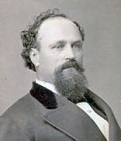
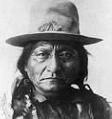





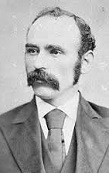
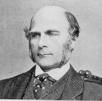













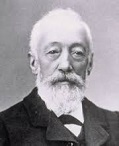
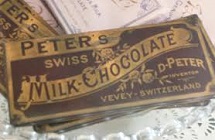
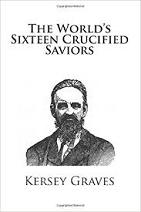



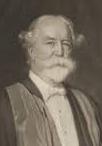



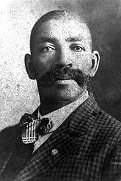


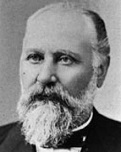






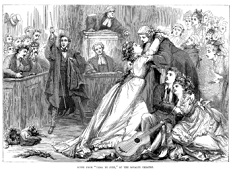

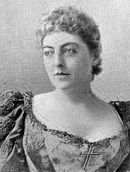





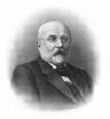
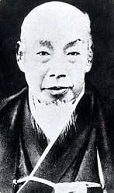






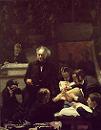

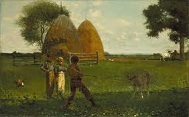


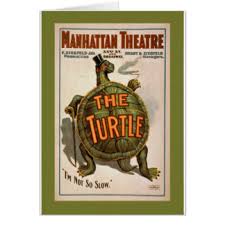
1875 European army sizes: Russia: 3.36M, Germany: 2.8M, France: 412K, Britain: 113K. Pop. of Nicaragua: 373K. The most important world historical event of the year is that Vladimir Lenin is five years old? In 1875-8 the Great Drought causes the Great Indian (Madras) Famine of 1876-8 in India, the N Chinese Famine of 1876-9 and other famines in Africa, SE Asia, Australia, and NE Brazil in 1876-8 that kill 30M-6M incl. 5.5M in India and 9M-13M in China, aided by an El Nino in 1877-8. On Jan. 9 the temp in Denver, Colo. reaches a record low of -29F (-34C) (until ?). On Jan. 11-July 2 the sensational Beecher-Tilton Trial grabs the nation's headlines after nationally-prominent preacher Henry Ward Beecher (1813-87) (brother of Harriet Beecher Stowe) is accused of adultery ("criminal conversation"); in 1871 in Brooklyn Theodore Tilton pounds on the door of his wife Libby's bedroom, accusing her of having a love affair with Beecher, as suffragette Susan B. Anthony allegedly guards her, and the secret is exposed by Virginia Woodhull in 1872, causing the Plymouth Church to back their pastor and boot Theodore Tilton out of the congregation by a 210-13 vote, which prompts Tilton to sue Beecher for $100K for alienating his wife's affections; despite strong evidence that Beecher loves married ladies, the jury deadlocks 9-3 in his favor after 52 ballots, and he claims vindication and ups his lecture fees, making a good living over the next decade hawking Pears' Soap, with the slogan: "If Cleanliness is next to Godliness". On Jan. 26 Pinkerton detectives siege Frank James and Jesse James, who are holed-up in the Reuben Samuel farmhouse in Kearney, Mo., throwing a hollow iron ball filled with flammable fluids into it, killing 9-y.-o. Archie Peyton Samuel (half-brother of the James brothers), mangling the right arm of Zelda Samuel (mother of the James brothers) so badly it requires amputation, and injuring a servant; the James brothers are unharmed. On Jan 30 the U.S.-Hawaii Reciprocity Treaty is signed, giving free acess to the U.S. sugar and other markets for products grown in Hawaii for seven years in return for granting the Pu'u Loa area in Oahu to the U.S., which sets up the Pearl Harbor naval base; in Sept. 1876 the first shipment of sugar from Hawaii arrives in San Francisco, Calif., after which American investors begin pumping large investments into Hawaiian sugar cane plantations, led by San Francisco sugar refiner Santa Claus Sprinkles, er, Adolph Claus J. Spreckels (1828-1908), who develops a monopoly on Hawaiian sugar by 1882 (24M tons/year of raw sugar), founding the nat. sugar trust in the 1890s and renaming his co. the Western Sugar Refinery, pissing-off Hawaiian planters, who in 1906 establish the Calif. and Hawaiian Sugar Co. (C&H) in Crockett, Calif., breaking Spreckels' stranglehold on the sugar refining business, causing his Western Sugar Refinery to fold in 1951. In Jan. the U.S. Congress passes the U.S. Specie Resumption Act of 1875 before the Repubs. relinquish control of the House, letting people turn in their greenbacks starting Jan. 1, 1879 for gold after the Treasury has time to build a gold reserve; in 1874 the Nat. Greenback (Independent) (Labor) Party is formed by opponents of this Act. On Feb. 17 the SS Gothenburg leaves Darwin, Australia en route to Adelaide, and is wrecked on Feb. 24 by a cyclone-strength storm on the Great Barrier Reef NW of Holbourne Island on the N Queensland coast, killing 100 of 122 passengers and crew. On Feb. 21 British explorer-diplomat-interpreter Augustus Raymond Margary (b. 1846) is murdered in Yunnan, China near the Burmese border by local tribesmen while serving with a British railway survey team, pissing-off the British govt., who demand and get an indemnity of 700K taels of silver, four more treaty ports, and a mission sent to apologize to Queen Victoria - instantly the chimp throws his excrement at whom? On Mar. 1 Pres. Grant signs the 1875 U.S. Civil Rights (Enforcement) (Force) Act, promising, er, guaranteeing, er, equal rights to African-Ams. in public accommodations and jury duty; on Oct. 15, 1883 the U.S. Supreme (Waite) Court rules 8-1 to invalidate it, and no more civil rights laws are passed for over 50 years (1957), giving white supremacists a free ride. On Mar. 3 the U.S. Page Act of 1875 is passed, sponsored by U.S. Rep. (R-Calif.) (1873-83) Horace Francis Page (1883-90), becoming the first restrictive federal immigration law, barring entry of "undesirables" incl. Chinese, Japanese, and "Mongolian" contract (forced) (coolie) laborers, along with felons and prostitutes to the White Is Right U.S., imposing a $2K fine and one year prison sentence for anyone who tried to bring a person from China, Japan or any Asian country to the United States "without their free and voluntary consent, for the purpose of holding them to a term of service"; too bad, only the ban on female Asians is heavily enforced. On Mar. 15 Pope Pius IX names New York archbishop #2 John McCloskey (1810-85) as the first U.S. cardinal. In Mar. Catalonian Gen. Ramon Cabera y Grino (Ramón Cabrera y Griñó) (1806-77), former hero of the First Carlist War of 1833-9, who ended up in a long exile in England suddenly flops and calls on pretender Don Carlos and his adherents to submit to the monarchy of Alfonso XII, who gives him the rank of capt.-gen. and the title of Count of Morella, causing the Carlists to call him a traitor and demote him but lose their mojo; he croaks in London on May 24, 1877. On Apr. 7 Hindu scholar Swami Dayananda Saraswati (1824-83) founds the Arya Samaj ("Society of Nobles") in Bombay, India, a Hindu reform movement condemning idol worship, animal sacrifices, and temple offerings, priestcraft, the caste system, untouchability, child marriages, and discrimination against women, causing Hinduism to come into vogue in the Western world - annihilate your samsara, you dharma bums, and attain Nirvana? On Apr. 17 Hawaii ratifies a Treaty of Reciprocity with the U.S. On Apr. 21 Avondale, County Wicklow-born Charles Stuart (Stewart) Parnell (1841-91) enters the British House of Commons for Meath at age 29, and quickly establishes a rep. for being anti anything English, and head of the Home Rule lobbyists, followed by pres. of the Nationalist Party in 1877, and leader of the Irish Parliamentary Party in 1882-91, becoming a hero and "uncrowned king of Ireland" to the Irish masses, who treat him like a Messianic figure, kissing his hands and knees and trying to touch his clothes; too bad, he gets involved in a divorce in 1890, pissing-off the good Roman Catholics, who had up till then ignored the fact that he was Protestant, causing him to die an early death in 1891; meanwhile in 1878 the Irish Nat. Land League, founded by Parnell and ex-Fenian Michael Davitt (1846-1906) in favor of poor tenant farmers against landlordism starts a boycott of English goods and English landlords, holding "monster meetings" to protest the stankin' English, with the motto "Fair rent, free sale, fixity of tenure" (3Fs). On May 7 Hamburg mail steamship Schiller sinks in the fog in the Sicily Isles, killing 200. On May 25 the Unyo Maru Incident is started by Japanese vessels sailing provocatively into Pusan, Korea accompanied by gunboat Unyo Maru, after which two more warships arrive within two weeks; after showing off their loud big guns they finally leave on June 20 and arrive in Nagasaki on July 1. In May after the German Social Dem. Party (SDP) is formed with the pub. of its Gotha Program, calling for the creation of "socialistic productive associations" rather than nationalization of the means of production, Karl Marx responds with his Critique of the Gotha Program, containing the soundbyte "dictatorship of the proletariat", and talking about the transition from Capitalism to Communism, proletarian internationalism, and the party of the working class; he clarifies Socialism as paying workers based on their deeds, and Communism as paying them based on their needs. On June 17 after his first shop was destroyed in the Great Chicago Fire of 1871, Sanders Chocolates is founded in Detroit, Mich. by German immigrant Frederick Sanders Schmidt, allegedly inventing the ice cream soda for customers in summer 1876; in 1891 he opens the Pavilion of Sweets, with a red-white awning and tower resembling a Muslim mosque, going on to specialize in hot fudge and caramel toppings for ice cream, along with the Hot Fudge Cream Puff and the Bumpy Cake (1912) (devil's food cake with rows of buttercream on top, covered in chocolate ganache); Henry Ford works for them for a time as a mechanic. On July 9 the Herzegovina Revolt (Uprising) (ends Aug. 4, 1877) sees Christian peasants revolt against Muslim rule, spreading to Bosnia, and marked by massacres by both sides, with the rebels drawing men and arms from Serbia, Montenegro, and Hungary, causing intervention of the Euro powers (Austria, Russia, Germany); on Dec. 20 Russia and Austria demand that the Ottomans reduce taxes, provide religious freedom for Christians, and help peasants purchase land, with Euro oversight; after the sultan accepts but the rebels reject the plan, the Ottomans come down on them hard, causing thousands of Christians to flee, pissing-off the Euro powers more; Disraeli supports the three powers but balks at putting pressure on Turkey for fear of Russia gaining control of the Suez Canal. On July 19 the Parliament of Canada Act is ratified. On Oct. 1 Brigham Young U. is founded by the Mormons in Provo, Utah, becoming the largest religious univ. in the U.S.; it goes on to house the flagship Mormon Missionary Training Center in 1978. On Oct. 20 Liberal Party founder Kalman Tisza de Borosjeno (1830-1902) becomes PM of Hungary (until Mar. 13, 1890), forming a consolidated Magyar govt. and enacting economic reforms that give the govt. popular support. In Oct. the Ottoman govt. declares bankruptcy, with a total nat. debt of 242M Turkish pounds and over half of expenditures going toward debt service. On Nov. 2 British resident #1 in Perak, Malayasia (since Nov. 4, 1874) James Wheeler Woodford Birch (b. 1826) is murdered (speared) in his bath by local chief Dato Maharajalela and his friend Sepuntum after he gets private stock; the Perak Revolt (begun 1873) is finally suppressed, Dato and Septunum hung, and the admin. shifted to Taiping. On Nov. 4 King George Tupou I of Tonga enacts a constitution guaranteeing civil liberties, which allows it to maintain its sovereignty into the 20th cent. (with British supervision). On Nov. 4 U.S. steamship Pacific collides with another ship and sinks 30 mi. SW of Cape Flattery, killing 236. On Nov. 16 the Egyptians are defeated by the Ethiopians at the Battle of Gundet. On Nov. 22 U.S. vice-pres. (since 1873) Henry Wilson (b. 1812) dies from a stroke; he was born in the same year that the first veep to die (George Clinton) died. In Nov. Russian-born Madame Helena Petrovna Blavatsky (1831-91), Irish-born William Quan Judge (1851-96) and Orange, N.J.-born Henry Steel Olcott (1832-1907) (first well-known person of Euro ancestry to convert to Buddhism) found the Theosophical Society in New York City for the "study and elucidation of Occultism, the Cabala etc.", founding a branch in Bombay, India in 1879, and another in Ceylon (Sri Lanka) in 1880; Blavatsky begins wowing audiences with demonstrations of psychic phenomena, until the Society for Psychical Research exposes her as a fraud in 1884?; Blavatsky popularizes Past Life Regression; Olcott's disciple Anagarika ("homeless one") Dharmapala ("protector of the dharma") (1864-1933) goes on to revive Buddhism in Sri Lanka and India, and combine it with nationalism. On Dec. 2 Alabama ratifies a new constitution. Unable to find a king, France sets up a permanent repub. with a pres., PM and cabinet, a council of ministers, and two lawmaking bodies, incl. a Chamber of Deputies elected by all adult males; the French Third Repub. goes on in the 1920s and 1930s to become known for fratricidal factionalized chameleon parties that give all the contenders a chance at office, usually for a few weeks. In Britain the Public Health Act, part of Disraeli's "sanitas sanitatum, omnia sanitas" program ("a policy of sewage", according to the Liberals) reorganizes Britain's sanitary admin. Emperor (since 1861) Tong Zhi (Tung-chih) (b. 1856) dies without an heir, and his 4-y.-o. cousin (nephew of empress dowager Cixi) Guang Xu (Kwang-su) (Kwang Hsu) (Qing De Zong) (1871-1908) becomes Qing (Manchu) emperor #9 of China, with his uncle Prince Gong as regent (until 1889) under the supervision of supermom empress dowager Cixi, who stays in charge and surrounds herself with good advisers. The Prince of Wales (future King Edward VII) visits India. Brazilian troops begin withdrawing from Paraguay (finished 1876). Pedro Joaquin Chamorro Alfaro (1818-90) becomes pres. of Nicaragua (until 1879), working to keep the Chamorro and other elite familias in power. In 1875 Chinese minister Zuo Zongtang (1812-85) suppresses the Tungans of the N Tianshan region, who had been in revolt since 1862, then next year begins reconquering independent Kahsgaria, based in the E Turkestan Silk Road city of Kashgar, killing its leader Mohammed Yakub (Yaqub) Beg (1820-77), then organizes both areas into Xinjiang (Chin. "new territory") in NW China, with capital at Urumchi (Urumqi) (world city farthest from a sea, home to the fair-haired Urumchi Mummies), which becomes a province in 1884, and ends up plagued by separatist Muslims (until ?). Benjamin Disraeli gets a secret £4M loan from Lord Rothschild to buy 176,602 Suez Canal shares (nearly half of the total) from Egyptian khedive Ismael, forestalling French attempts to obtain them; the public acclaims this move as a master stroke of imperial policy; William Gladstone laments the purchase as a mistake involving Britain in the murky affairs of the Middle East - is there a secret conspiracy among Jews to get Britain to take over the Middle East so that it can hand them Palestine? 20K+ Indians (Sioux, Cheyenne, Arapahoe) meet with a U.S. govt. commission trying to buy or lease the Black Hills, and roundly reject all offers; Crazy Horse sends spokesman Little Big Man, who threatens to kill any Indian advocating the selling of the land, while Hunkpapa Sioux medicine chief Sitting Bull (1831-90) says he would not sell the white man even a pinch of dust, causing the shooby-dooby-do commissioners to tell Congress to take the area by force, pissing-off the Indians, who attack prospectors; on Dec. 3 the U.S. govt. sends an order to all Sioux and Cheyennes to report to their reservations by next Jan. 3 or be considered outlaws, even though winter conditions make it impossible to comply, and they soon send an army to invade and kill them - so you're telling me my father was Dr. Frankenstein? The U.S. Supreme Court rules ?-? in Chy Lung v. Freeman that immigration is under federal purview, countering a statement in a letter to Congress by Pres. Ulysses S. Grant that "Responsibility for immigration can only belong with the States since this is where the Constitution kept the power." Earthquakes strike Colombia and Venezuela. Japan acquires the Kuril Islands from Russia (until 1945). The Ottoman govt. repudiates the interest on huge loans raised in W Europe, leading to foreign control over part of the Ottoman revenues. Japanese courts of law are reformed. A party of 6K Mennonites colonizes the Red River area of Canada. Between this year and 1883 Black Bart (Charles E. Bowles) (b. 1829), a retired miner who lives in the 300 block of Bush St. in San Francisco robs 29 stagecoaches; he only robs when he needs to, walking to and from Gold Country to rob stagecoaches with an unloaded shotgun, never taking valuables from passengers, saying "I only rob Wells Fargo - I don't rob from the common folk"; on his 4th robbery he begins leaving poetry signed "PO8" (poet); on his last robbery he drops a handkerchief with a laundry mark, causing him to be found out, after which he walks into the laundry when the detective is present, and is taken to Wells Fargo HQ at 420 Montgomery St.; he serves four of a 6-year sentence at San Quentin Prison, then tells reporters "No, gentlemen, I'm all through with crime"; he is last seen on Feb. 28, 1888 at the Nevada House, disappearing and leaving his belongings behind. Former Civil War Union gen. and R.I. gov. Ambrose Burnside becomes U.S. Sen. until his death (1881) - those sideburns are crowd pleasers? The U.S. govt. brings in 75 camels to help the Army carry heavy loads in the dry Southwest; they are a big success until superseded by the railroad. Religious orders are abolished in Prussia. French balloonist Gaston Tissandier reaches a record alt. of 8.6KM in Apr.; too bad, his two companions die from lack of oxygen, and he becomes deaf. The U.S. govt. purchases Mathew B. Brady's Civil War photo collection. The first state agricultural experimental station is established in Conn. Wyatt Earp takes the job of deputy marshal in Wichita, Kan., an exciting and glamorous job mainly consisting of picking up dead animals, inspecting chimneys for fire hazards, and sweeping sidewalks (ends 1876); he allegedly carries a long-barreled Buntline Special pistol designed by Ned Buntline (Edward Zane Carroll Judson) (1823-86). Am. Express implements the first private pension plan in the U.S. Britain's first main sewer system is completed. The city of Calgary in Alberta, Canada (modern-day pop. 1.2M/1.4M) at the confluence of the Bow and Elbow Rivers 50 mi. E of the Canadian Rockies Front Range is founded as a Northwest Royal Canadian Mounted Police post; in 1883 the Canadian Pacific Railway (CPR) reaches the city, causing it to grow; on Nov. 7, 1884 it is incorporated as a town, and as a city on Jan. 1, 1894; in 1996 the CPR HQ moves there from Montreal. The city of Vancouver in British Columbia, Canada is first settled (modern pop. 1.8M); originally called Granville. The Turkish port of Izmir is modernized with British and French backing. The crew of the Canadian bark Lennie mutinies and murders the officers, but spares the steward so he can navigate them to Spain; he instead steers them to France, dropping bottles with messages about them, one of which is found by French authorities, causing their arrest. Egypt adopts the Gregorian Calendar. English social reformer Miranda Hill (1836-1910) (twin sister of Octavia Hill) founds the Kyrle Society, named after philanthropist John Kyrle (1637-1724), "the man of Ross" to provide the working poor with art, books and open spaces, with the motto "Bring Beauty Home to the Poor". St. Joseph U. is founded in Beirut, Lebanon by French Jesuits, becoming a top academic institution in the Middle East. Georg August Schweinfurth founds the Egyptian Inst. (Institut Egyptien) in Cairo under a commission from the Egyptian khedive. Baron Emmanuel Rey et al. found the Societe de l'Orient in Geneva, which pub. Revue de l'Orient Latin. Herman Ridder (1851-1915) begins pub. Catholic News in New York City, which in 1974 becomes Knight-Ridder Newspapers. J.M. Thatcher, dir. of the U.S. Patent Office sends in his resignation effective Oct. 1, claiming that there is nothing left to invent and that the dept. should be closed. About this time American Realism emerges, which tries to vie with photography by portraying immigration-filled America as it is. About this time the Italian lit. movement of Versimo (It. "realism", inspired by French naturalism is founded by Giovanni Verga (1840-1922) and Luigi Capuana (1839-1915) (until 1895), and adopted by composers Ruggero Leoncavallo (1857-1919), Pietro Mascagni (1863-1945), Giacomo Puccini (1858-1924) et al. Philanthropist Lydia Moss Bradley (1916-1908) becomes the first female member of a U.S. nat. bank board, the First Nat. Bank of Peoria, Ill., also becoming the first U.S. woman to draft a prenuptial agreement to protect her assets, going on to found Bradley U. (originally Bradley Polytechnic Inst.) in Peoria, Ill. in 1897. After beating his owner during the U.S. Civil War and escaping to Indian Territory and learning their languages, former African-Am. slave Bass Reeves (1838-1910) is appointed a deputy U.S. marshal by new U.S. marshal James F. Fagan, becoming the first black deputy to serve W of the Mississippi River, going on to work In Indian Territory for 32 years (until 1907), arresting 3K+ felons. English actor Maurice Barrymore (1849-1905) makes his Broadway debut in Dec. in Pique, meeting Philly-born cast member Georgiana Emma "Georgie" Drew (1856-93), then getting married on Dec. 31, 1876, and going on to have the famous Barrymore acting family of Lionel Barrymore (1878-1954) (Macbeth and films), Ethel Barrymore (1879-1959) (Ophelia and Portia), and John Barrymore (1882-1942) (Hamlet), grandfather of Drew Barrymore (1975-). French actress Gabrielle Rejane (Réjane) (1856-1920) makes her debut at the Theatre Vaudeville in Paris, going on to become a big hit in France, the U.K., and the U.S. Alice Ellen Terry (1847-1928) (great-aunt of Sir John Gielgud) becomes a big hit as Portia in Shakespeare's "The Merchant of Venice" in the Prince of Wales' Theatre in London, causing Oscar Wilde to write: "No woman Veronese looked upon/ Was half so far as thou whom I behold"; in 1878 Henry Irving takes over the Lyceum Theatre in London as mgr. and partners with her, playing Hamlet to her Ophelia in "Hamlet", followed by Shylock to her Portia in "The Merchant of Venice" in 1879, becoming the first to give Jewish merchant Shylock a dignified treatment, followed by "Othello" (1880), "Romeo and Juliet" (1881), "Much Ado About Nothing" (1882), "Twelfth Night" (1884), "Macbeth" (1884) (w/music by Arthur Sullivan), "Henry VIII" (1892), "King Lear" (1892), "Cymbeline" (1896), and "Coriolanus" (1902); they go on to become the #1 Shakespearean actor and actress in Britain, touring Britain, Canada, and the U.S. The Hermes of Praxiteles (330 B.C.E.) is excavated in Olympia, Greece. The ancient statue of Nike of Paeonios (goddess of victory) by 5th cent. B.C.E. Thracian sculptor Paeonius (c. 420 B.C.E.) is excavated in Olympia, Greece by the German School. J. Bulova Co. is founded in New York City by Bohemian immigrant Joseph Bulova (1851-1936); it is reincorporated in 1923 as Bulova Watch Co., and acquired by the Loews Corp. in 1979, which sells it to Citizen in 2007. Japanese inventor ("the Thomas Edison of Japan") Tanaka Hisashige (1799-1881) founds Tanaka Engineering Works, which eventually becomes Tokyo Shibaura Denki AKA Toshiba. The wondrous 80-proof orange-flavored triple sec liqueur Cointreau is introduced by brothers Adolphe Cointreau and Edouard-Jean Cointreau in Angers, France. Sports: On Mar. 3 the first indoor ice hockey game is played at the Victoria Skating Rink in Montreal, Quebec, Canada (opened in 1862), organized by James George Aylwin Creighton (1850-1930), who captains the team that wins over the one led by Charles Torrance 2-1, causing ice hockey to begin catching on in Canada; on Feb. 27, 1877 he pub. the first rules for ice hockey in The Gazette, which are virtually identical to those for field hockey; the ice surface dims. of the Victoria Skating Rink are made the std.; originally ice hockey is played with seven players on each side, incl. the goaltender, two defencemen, three forwards, and the rover, who roams the ice at will; the rover is dropped by the Nat. Hockey Assoc. in 1910 and the Nat. Hockey League in 1917, but kept by the Pacific Coast Hockey Assoc. is founded, and the Western Canada Hockey League in 1921; the first Olympic ice hockey tournament in 1920 uses a rover, after which it is elminated; in 1923 the PCHA and WCHL also eliminate it. On May 17 the first 1-1/4 mi. (10 furlong) Kentucky Derby for 3-y.-o. Thoroughbred horses is run at Churchill Downs (Louisville Jockey Club) in Louisville, Ky. in front of 10K cheering fans, organized by Col. Meriwether Lewis Clark Jr. (1846-99), grandson of Gen. William Clark of Lewis and Clark fame; winner is Aristides (1872-93), who later comes in 2nd at the Preakness Stakes; on May 19 the Kentucky Oaks for Throughbred fillies at Churchill Downs at Louisville, Ky. is first run, modeled on the English Epsom Oaks; winner is Vinaigrette, who wins a purse of $1,175; it's now run on the Fri. before the Kentucky Derby, and has a $500K purse plus a garland of "Lillies for the Fillies". On Aug. 24-25 Capt. Matthew Webb (1848-83) swims the English Channel from Dover to Cape Griz Nez (Calais), France in 21 hr 45 min., getting lauded as the Hercules of his day - the original Jack Lalanne? On Nov. 13 the Harvard Crimson and Yale Bulldogs football teams meet for the first time, with Harvard winning 4-0, becoming an annual contest known as The Game, the first athletic rivalry in Am. intercollegiate athletics; Walter Camp is among the 2K spectators, and enrolls at Yale next year, bringing Harvard's style of play with him; ditto for Princeton; in 1876 Harvard freshman Theodore Roosevelt attends the 2nd game, uttering the soundbyte: "In life as in football, the principle to follow is hit the line hard", waxing lyrical on football's "manly virtues", becoming football's savior in the early 20th cent. The Nat. Bowling Assoc. is founded in New York City by 27 local bowling clubs, with "Father of Bowling" Thomas Curtis, later (1888) mgr. of the Elephant Club in Bedford, Brooklyn writing the first bowling rules, establishing the distance between the foul line and the pins at 60 ft., regulating ball size, etc., but failing to agree on other rules; it is superseded in 1895 by the Am. Bowling Congress (ABC). iThe first roller-skating rink opens in London. Harvard student sprinter August Belmont Jr. (1853-1924), son of banking tycoon August Belmont Sr. introduces spiked shoes to U.S. track and field. New Haven, Conn. first baseman Charles C. Waite becomes the first baseball player to wear gloves in a game (against Boston); hoping nobody would notice, they're flesh-colored; in 1877 A.G. Spalding begins selling them; in 1895 the NL issues its first regs on glove size. The first U.S. ski club is founded in Berlin, N.H. The Nat. Bowling Assoc. (NBA) is founded in New York City by 27 local bowling clubs, establishing the distance between the foul line and the pins at 60 ft., regulating ball size, etc., but failing to agree on other rules; it is superseded in 1895 by the Am. Bowling Congress (ABC). Architecture: Felixstowe Port in Suffolk, England is created by the Felixstowe Railway and Pier Act, which causes a 13-mi.-long railway to be built from Ipswich. Kurfurstendam (Kurfürstendamm) (K'Damm) street in Berlin is turned from a bridlepath into a major blvd. by chancellor Otto von Bismarck, becoming known as the Champs Elysees of Germany. The Manhattan Theatre (originally the Eagle Variety Theatre, then the Standard Theatre in 1878-98) at 102 West 33rd St at Sixth Ave. and 33rd St. across from Greeley Square (cap. 1.1K) opens, becoming the home of authorized U.S. debuts of many Gilbert & Sullivan operas, featuring actors Fred Billington, Marie Fedor, Minnie Maddern Fiske, Courtice Pounds, Emily Stevens, Tyron Power St., George Thorne, and Geraldine Ulmar; on Oct. 10, 1881 it debuts Gilbert & Sullivan's comic opera Patience (177 perf.), making $100K in 1907 it switches to movies, becoming the first New York City theater to show movies as the main attraction, adding several vaudeville acts to justify the 10 cent admission price; in 1909 it is demolished to make way for the Gimbels dept. store. Inventions: The first Pneumatic Air Tube Cash Carrier is patented by D. Brown. The first elevators ("rising rooms") are installed in the Palace Hotel in San Francisco, Calif. Thomas Edison invents the Mimeograph. Daniel Peter (1836-1919) of Vevey, Switzerland invents Milk Chocolate by adding powdered milk, founding a co. to market Peter's Swiss Milk Chocolate that in 1879 merges with neighbor Henri Nestlé (Nestle). The pseudo-science of Graphology is invented by ? - tall l's are proud like Napoleon, a's open at the bottom mean bottom feeder like Jeffrey Dahmer, huge p's are pugilistic like Al Capone's? Science: Which chemical element is named for a cock? Using zinc blende from the Pyrenees, French chemist Paul-Emile (Francois) Lecoq de Boisbaudran (1838-1912) discovers the metallic element Gallium (#31) (Ga), which resembles aluminum but can be cut with a knife (melting point 30.15 deg C), right where Mendeleyev had predicted an element with these properties would be found in a gap in the Periodic Table; he suggests the name "eka aluminum" for it, but the name gallium is chosen as a pun on the Latin word gallus (cock). In 1875 -8 German botanist August Wilhelm Eichler (1839-87) pub. Bluthendiagramme (Blüthendiagramme) (2 vols.), announcing the Eichler System, which classifies the spermatophytes (seed-producing plants) of the plant kingdom into the subkingdoms of non-floral cryptogams (Gr. "kryptos" + "gameo"= hidden + marry (hidden sexual organs)), and land-based more advanced floral phanerogams (Gk. "phaneros" = visible) (visible sexual organs), becoming the first phylogenetic classification , i.e., incorporating the concept of evolution; he subdivides the phanerogams into angiosperms and gymnosperms, and the angiosperms into monocotyledons and dicotyledons. Am. chemist-physicist ("Founder of Chemical Thermodynamics") Josiah Willard Gibbs (1839-1903) of Yale U. pub. the Gibbs Phase Rule, applicable to the phases of water, carbon dioxide, etc.: f = c - p + 2, i.e., number of degrees of freedom (number of intensive state variables that can be independently varied without changing the number of phases) equals the number of components - number of phases + 2; thus, for a 1-component system, f = 3 - p, and if there is just one phase in equilibrium it takes a 2-dim. graph to describe it (P vs. T, P vs. V), if there are two it takes a 1-dim. "tie line", and for three phases in equilibrium there is a 0-dim. "critical point". The first English account of D.I. Mendelyeev's work is pub. in the London Chemical News in Dec.; his 1871 paper is first trans. and pub. in this journal in 1879-80. Danish philologist Karl Adolph Verner pub. Verner's Law, explaining exceptions to Grimm's Law by variation of accent. Nonfiction: John Elliott Cairnes (1823-75), The Character and Logical Method of Political Economy; 2nd ed. 1888. Felix Dahn (1834-1912), King Roderick. Charles Darwin (1809-82), Climbing Plants. Edward Dowden (1843-1913), Shakespeare: A Critical Study of His Mind and Art; introduces the Arc of Shakespeare's Life, starting with the happy comedies in the 1590s, the dark night of the soul and great tragedies in the early 1600s, and the serene last romances at the end of his career. Science + fiction + religion = the key to what's in your wallet? Mary Baker Glover Eddy (1821-1910), Science and Health with Key to the Scriptures; "Nothing is real and eternal, - nothing is Spirit, - but God and His idea. Evil has no reality. It is neither person, place, nor thing, but is simply a belief, an illusion of material sense"; "Human philosophy has made God manlike. Christian Science makes man Godlike. The first is error; the latter is truth. Metaphysics is above physics, and matter does not enter into metaphysical premises or conclusions. The categories of metaphysics rest on one basis, the divine Mind"; "Since God is All, there is no room for His unlikeness. God, Spirit, alone created all, and called it good. Therefore evil, being contrary to good, is unreal, and cannot be the product of God"; The word Adam is from the Hebrew adamah, the red color of the ground... Divide the name into two syllables, and it reads, a dam, or obstruction... a dam is not a mere play upon words; it stands for obstruction, error, even the supposed separation of man from God, and the obstacle which the serpent, sin, would impose between man and his creator"; "The floral apostles are hieroglyphs of Diety"; "For twelve years... I had been under the care of a physician much of the time... I was healed through reading... Mrs. Eddy. It was a clear case of transformation of the body by the renewal of the mind" (J.M.H., Omaha, Neb.) - all is Mind, except money, that's figures in my bank statement? Warren Felt Evans (1817-89), Soul and Body. Camille Flammarion (1842-1925), Les Marveilles Celestes. Sir Francis Galton (1822-1911), History of Twins - Ahnuld and Danny Devito? Josiah Willard Gibbs (1839-1903), On the Equilibrium of Heterogeneous Substances (1875-6); pub. in "Transactions of the Conn. Academy of Sciences"; the Gibbs phase rule. William Gladstone (1809-98), Vaticanism: An Answer to Reproofs and Replies; how the Roman Catholic Church is "an Asian monarchy: nothing but one giddy height of despotism, and one dead level of religious subservience" that hides "crimes against liberty beneath a suffocating cloud of incense." Science + debunking religion as fiction = $$$? Kersey Graves (1813-83), The World's Sixteen Crucified Saviors; Or, Christianity Before Christ, Containing New, Startling, and Extraordinary Revelations in Religious History, which Disclose the Oriental Origin of All the Doctrines, Principles, Precepts, and Miracles of the Christian New Testament, and Furnishing a Key for Unlocking Many of Its Sacred Mysteries, Besides Comprising the History of 16 Heathen Crucified Gods; becomes a hit on the U.S. Freethinker lecture circuit even though the scholarship doesn't stand up to later scrutiny; he might be right but just lacks the documentation?; fans incl. Madalyn Murray O'Hair; "I desire to impress upon the minds of my clerical brethren the important fact, that the gospel histories of Christ were written by men who had formerly been Jews (see Acts xxi. 20), and probably possessing the strong proclivity to imitate and borrow which their bible shows was characteristic of that nation; and being written many years after Christ's death, according to that standard Christian author, Dr. Lardner, it was impossible, under such circumstances, for them to separate (if they had desired to) the real facts and events of his life from the innumerable fictions and fables then afloat everywhere relative to the heathen Gods who had pre-enacted a similar history. Two reasons are thus furnished for their constructing a history of Christ almost identical with that of other Gods." Octavia Hill (1838-1912), Homes of the London Poor. Heinrich Laube (1806-84), Gesammelte Schriften (16 vols.) (1875-82). Emile Laveleye, Le Protestantisme et le Catholicisme. Sir Gaston Camille Charles Maspero (1846-1916), L'Histoire Ancienne des Peuples de l'Orient Classique; first attempt to describe the relation between the ancient peoples of W Asia and the Nile River Valley. Jean Jacques Elisee Reclus (1830-1905), Nouvelle Geographie Universelle, la Terre et les Hommes (New Universal Geography, Land and People) (19 vols.) (1875-94); giant hit in France and England. Leopold von Sacher-Masoch (1836-95), The Ideals of Our Time; Germany during its Grunderzeit period (before the 1873 stock market crash). Dayanand Saraswati (1824-83), Satyarth Prakash (The Light of Truth); internat. hit.; contains a comparative analysis of religions, esp. slamming Islam; "The object aimed at by this criticism is to contribute to the elevation of the human race and to enable all men to sift truth from falsehood by giving them some idea of the teachings of various prevalent religions, as this will afford them opportunities for friendly discussions so useful in helping men to point-out their defects and to appreciate their merits"; "Having thus given a cursory view of the Koran, I lay it before the sensible person with the purpose that they should know what kind of a book the Koran is. I have no hesitation to say that it cannot be the work of either God or of a learned man, nor can it be a book of knowledge. Here its very vital defect has been exposed with the object that people may not waste their life falling into its imposition. The Koran is the result of ignorance, the source of animalization of human beings, a fruitful cause of destroying peace, an incentive to war, and propagator of hostility among men and a promoter of suffering in society. As to defect of repetition, the Koran is its store." Heinrich Schliemann (1822-90), Troy and Its Remains. Georg August Schweinfurth, Artes Africanae. Balfour Stewart (1828-87) and Peter Guthrie Tait (1831-1901), The Unseen Universe; Or, Physical Speculations on a Future State of Eden; pub. anon.; claims no incompatibility between science and religion; William James' review of it first advances his "Will to Believe" doctrine. John Gilmary Shea (1824-92), The Life of Pius IX and the Great Events in the History of the Church During His Pontificate. Anthony Trollope (1815-82), The Way We Live Now. Mark Twain (1835-1910), Roughing It (autobio.); his years during the U.S. Civil War when he went to the Am. West to make his fortune prospecting silver and ended up a wisecracking reporter. Adolphus William Ward (1837-1924), History of English Dramatic Literature to the Age of Queen Anne (3 vols.); his most popular work; rev. ed pub. in 1899. Walt Whitman (1819-92), Memoranda During the War; his experiences as a volunteer Army nurse. Music: Georges Bizet (1838-75), Carmen (opera) (Opera-Comique, Paris) (Mar. 3); libretto by Ludovic Halevy and Henri Meilhac; based on the 1845 novel by Prosper Merimee (1803-70); gypsy Carmen, bullfighter Escamillo, Don Jose, and Micaela; incl. Toreador, en Garde (Escamillo's Aria) (Toreador Song), L'Amour est un Oiseau Rebelle (Carmen's Habanera) (Love Is Like a Rebellious Bird), Pres des Ramparts de Seville (Seguidilla), Les Tringles des Sisters Tintaient (Gypsy Song); stars mezzo-soprano Celestine Galli-Marie (Célestine Galli-Marié) (1840-1905) as Carmen (salary 2.5K francs per mo.), who smokes cigs and catfights over lover Don Jose, played by tenor Paul Lherie (Lhérie) (1844-1937); baritone Jacques Joseph Andre Bouhy (1848-1929) plays Escamillo, and Marguerite Chapuy plays Micaela; the debut is a failure with Parisian critics for being too risque, and it almost closes after 4-5 performances, then fills the house for 37 performances, after which it is kept going for 48 performances by giving away tickets; on June 3 Bizet (b. 1838) dies thinking it's a flop, after which it debuts in Vienna in Oct. and becomes a big hit, although Opera Comique won't stage it again until 1883. Ignaz Brull (1846-1907), Das Goldene Kreuz (The Golden Cross) (opera) (Berlin) (Dec. 22); big hit; makes him a star in Europe and England. Antonin Dvorak (1841-1904), Vanda, Op. 25 (opera) (Provisional Theatre, Prague) (Apr. 17) (Easter Mon.); Vanda, daughter of deceased Polish prince Krak, her sister Bozena, Cracow knight Slavoj, bard Lumir, sorceress Homena, and German prince Roderich. Karl Goldmark (1830-1915), Die Konigin (Königin) von Saba (opera) (Vienna). Peter Tchaikovsky (1840-93), Piano Concerto No. 1, Op. 23 (Boston); incl. the super-popular Tonight We Love. Art: Carl Heinrich Bloch (1834-90), The Massacre of the Innocents; as seen from a doorway. Arnold Bocklin (1827-1901), Flora; The Honeymooners. Thomas Eakins (1844-1916), The Gross Clinic; 96" x 78"; his masterpiece, portraying an operation by Philly surgeon Dr. Samuel D. Gross (1805-84) in the Jefferson Medical College amphitheater removing disease bone from a patient's thigh, which is exhibited at the U.S. Army Post Hospital exhibit at the 1876 Centennial Exposition; a reviewer called it "a great work - we know of nothing greater that has ever been executed in America", although the public is mainly grossed-out and ambivalent, with the New York Tribune writing the soundbyte: "No purpose is gained by this morbid exhibition, no lesson taught"; after which he sells it to the college for a measly $200; it is sold in 2006 for $68M to the Philly Museum of Art. Luke Fildes (1843-1927), The Widower (1875-6). Henry Peters Gray (1819-77), The Birth of Our Flag. Winslow Homer (1836-1910), Weaning the Calf; portrays an Am. black as self-reliant and independent. Jule Joseph Lefebvre (1836-1911), Chloe. Adolf Menzel, The Steel Mill. Claude Monet (1840-1926), Manet Boating at Argenteuil (pr. ar-zhan-TOE-ee) (on the Seine River NW of Paris). James Tissot (1836-1902), Lilacs. James Abbott McNeill Whistler (1834-1903), Nocturne in Black and Gold: a Falling Rocket. Archibald MacNeal Willard (1836-1918), The Spirit of '76 (Yankee Doodle); the classic painting showing two drummers and a fife player marching in battle playing "Yankee Doodle", based on a parade he saw in Wellington, Ohio; exhibited at the Centennial Exhibition; uses his father as the model for the middle drummer figure. Poetry: Sir Edwin Arnold (1832-1904), Indian Song of /Songs. Wilfred Scawen Blunt (1840-1922), Sonnets and Songs of Proteus. Robert Browning (1812-89), Aristophanes' Apology; The Inn Album. William Ernest Henley (1849-1903), Hospital Rimes (In Hospital); written in a hospital while being treated for childhood TB (one of his feet is amputated), and pub. in Cornhill Mag.; incl. Invictus, which contains the soundbyte "I am the master of my fate:/ I am the captain of my soul"; leads to a meeting with Robert Louis Stevenson (1850-94), becoming lifelong friends. Oliver Wendell Holmes Sr. (1809-94), Songs of Many Seasons. Jens Peter Jacobsen (1847-85), Arabesque to a Hand Drawing by Michelangelo; art will replace immortality as the meaning of life. Alice Meynell (1847-1922), Preludes (debut). Lewis Morris (1833-1907), Songs of Two Worlds. William Morris (1834-96), Three Northern Love Songs; Sigurd the Volsung. Margaret Junkin Preston (1820-97), Cartoons. Arthur Pinkham Ryder (1847-1917), Siegfried and the Rhine Maidens. John Godfrey Saxe (1816-87), Leisure Day Rhymes. Novels: William Harrison Ainsworth (1805-82), The Goldsmith's Wife. Pedro Antonio de Alarcon (1833-91), El Escandalo; a defense of the Jesuits. Walter Besant (1836-1901) and James Rice (1843-82), With Harp and Crown (3 vols.). Ricahrd Doddridge Blackmore (1825-1900), Alice Lorraine. Mary Elizabeth Braddon (1837-1915), Hostages to Fortune. Wilkie Collins (1824-89), The Law and the Lady. Carlo Collodi (1826-90), Racconti delle Fate; trans. of fairy tales by Perrault. Dinah Craik (1826-87), The Little Lame Prince and His Travelling Cloak. Fyodor Dostoyevsky (1821-81), A Raw Youth. Millicent Fawcett (1847-1929), Janet Doncaster. Juliana Horatia Ewing (1841-85), Jan of the Windmill. Bret Harte (1836-1902), Tales of the Argonauts. Maurus Jokai (1825-1904), The Romance of the Next Century. Nikolai Leskov (1831-95), At the Edge of the World. Edward Page Mitchell (1852-1927), The Soul Spectroscope (Dec.). Ouida (1839-1908), Signa; poor Italian rises to famous opera composer; Jack London's inspiration. Edward Payson Roe (1838-88), From Jest to Earnest. Leopold von Sacher-Masoch (1836-95), Galician Stories. Jose Maria Eca de Queiroz (1845-1900), The Crime of Father Amaro. Horace Elisha Scudder (1838-1902), The Bodley Books (8 vols.) (1875-87). Mark Twain (1835-1910), Old Times on the Mississippi; his favorite work; pub. in Atlantic Monthly; repub. in "Life on the Mississippi" (1883). Births: Am. silent film producer (founder of Vitagraph Studios) ("Father of American Animation") James Stuart Blackton (d. 1941) on Jan. 5 in Sheffield, Yorkshire, England; emigrates to the U.S. in 1885. German liberal politician-judge Walther Adrian Schucking (Schücking) (d. 1935) on Jan. 6 in Munster, Westphalia; grandson of Levin Schucking (1814-83); brother of Levin Ludwig Schucking (1878-1964) and Lothar Englebert Schucking (1873-1943). Am. Olympic marathon runner Thomas J. Hicks (d. 1963) on Jan. 7 in England; emigrates to Cambridge, Mass. Am. sculptor and art patron-collector Gertrude Vanderbilt Whitney (d. 1942) on Jan. 9 in New York City; daughter of Cornelius Vanderbilt II (1843-99) and Alice Claypoole Gwynne (1852-1934); great-granddaughter of Commodore Cornelius Vanderbilt (1794-1877). German mathematician Issai Schur (d. 1941) on Jan. 10. French-German (Alsatian) "The Quest of the Historical Jesus", "Reverence for Life" humanitarian physician-organist-missionary-theologian (vegetarian) Albert Schweitzer (d. 1965) on Jan. 14 in Kaysersberg (near Strasbourg), Upper Alsace, Germany (later Haut-Rhin Dept., France); educated at the U. of Strasbourg, U. of Paris, and U. of Berlin; authority on J.S. Bach. Am. Olympic athlete Thomas Edmund "Tom" Burke (d. 1929) on Jan. 15 in Boston, Mass. Am. film producer-dir. and silent film pioneer D.W. (David Lewelyn Wark) Griffith (d. 1948) on Jan. 22 in La Grange, Ky. German physicist ("Father of Aerodynamics") Ludwig Prandtl (d. 1953) on Feb. 4 in Freising, Bavaria; educated at the U. of Munich. Am. Universalist minister-hymnodist Henry Wilder Foote (d. 1964) on Feb. 2 in Boston, Mass.; educated at Harvard U. Spanish Capt. Gen. Gonzalo Queipo de Llano y Sierra, 1st Marquis of Queipo de Llano (d. 1951) on Feb. 5 in Tordesillas, Castilla y Leon. Am. centennarian Jeanne Louise Calment (d. 1997) on Feb. 21 in Arles; meets Vincent van Gogh at age 14, and becomes world famous in 1988 at age 113. German writer Ernst Jaeck (Jäckh) (d. 1959) on Feb. 22 in Urach. Am. "I'm Falling in Love with Someone" songwriter-librettist-playwright Rida Johnson Young (d. 1926) on Feb. 28 in Baltimore, Md. Hungarian PM (1918) and pres. (1918-9) Count Mihaly Adam Gyorgy Miklos Karolyi (Mihály Károlyi) de Magykaroly (d. 1955) (pr. MEE-hay KA-ro-yee) on Mar. 4 in Fot. French (Basque) "Bolero" composer (leading exponent of Impressionism) Joseph Maurice Ravel (d. 1937) on Mar. 7 in Ciboure (near Biarritz). Russian psychiatrist Pyotr Borisovich Gannushkin (d. 1933) in Ryazan. Am. "The Scarecrow"" playwright-poet Percy Wallace MacKaye (d. 1956) on Mar. 16 in New York City; educated at Harvard U. South Korean pres. #1 (1948-60) Syngman Rhee (Yi Seungman) (d. 1965) on Mar. 26 in Hwanghae Province. English "King Kong", "J.G. Reeder" novelist Richard Horatio Edgar Wallace (d. 1932) on Apr. 1 in Greenwich, London. Am. Chrysler Corp. founder Walter Percy Chrysler (d. 1940) on Apr. 2 in Wamego, Kan. Am. orchestra conductor Pierre Monteux (d. 1964) on Apr. 4 in Paris, France; becomes a U.S. citizen in 1942. British brig. gen. Sir Gilbert Falkingham Clayton (d. 1929) on Apr. 6. Am. fundamentalist Baptist pastor John Roach Straton (d. 1929) (rhymes with Dayton) on Apr. 6 in Evansville, Ind.; educated at the U. of Chicago. Belgian king (1909-34) Albert I (Albert Leopold Clement Marie Meinrad) (d. 1934) on Apr. 8; son of Prince Philippe, Count of Flanders (1837-1905); nephew of Leopold II; grandson of Leopold I; father of Leopold III (1901-83). Am. "The Thinking Machine" detective writer Jacques Heath Futrelle (d. 1912) on Apr. 9 in Pike County, Ga. Am. 6'2-1/2" heavyweight boxing champ (1899-1905) ("the Boilermaker") James Jackson "Jim" Jeffries (d. 1953) on Apr. 15 in Carroll, Ohio.; retires undefeated, then comes out of retirement in 1910, and is defeated by Jack Johnson. French physicist Louis Cesar Victor Maurice, 6th Duc de Broglie (d. 1960) on Apr. 27 in Paris. Italian "Scaramouche", "Captain Blood" novelist Rafael Sabatini (d. 1950) on Apr. 29 in Jesi; Italian father, English mother; moves to England at age 17, learning English and uttering the soundbyte "All the best stories are written in English". U.S. Supreme Court justice #75 (1930-45) Owen Josephus Roberts (d. 1955) on May 2 in Philadelphia, Penn.; educated at the U. of Penn. Am. Repub. politician, lit. critic and NAACP leader (Jewish) Joel Elias Spingarn (d. 1939) on May 17 in New York City; founder of the Spingarn Medal. Am. GM chmn. (1937-56) Alfred Pritchard Sloan Jr. (d. 1966) on May 23 in New Haven, Conn.; educated at MIT. U.S. Sen. (D-Tex.) (1913-41) ("Father of Nat. Prohibition") John Morris Shepard (d. 1941) on May 28 in Morris County, Tex.; descendant of Robert Morris (1734-1806); educated at UTA, and Yale U. Italian "L'Amore de Tre Re" composer Italo Montemezzi (d. 1952) on May 31 in Vigasio (near Verona). Am. film producer Albert Edward Smith (d. 1958) on June 4 in Faversham, Kent, England; emigrates to the U.S. as a child, becoming a naturalized U.S. citzen. Am. psychologist Grace Helen Kent (d. 1973) on June 6 in Michigan City, Ind.; educated at the U. of Iowa, and Harvard U. German "Buddenbrooks", "Magic Mountain novelist-critic Paul Thomas Mann (d. 1955) on June 6 in Lubeck; brother of Heinrich Mann (1871-1950); father of Klaus Mann (1906-49) and Erika Mann (1905-69); flees to Switzerland in 1933, settles in the U.S. in 1938, becomes U.S. citizen in 1944, and returns to Zurich in 1953. Am. "The Way of All Flesh" writer-dir. Perley Poor Sheehan (d. 1943) on June 7 in Cincinnati, Ohio; husband (1902-) of Virginia Point. English neuroscientist Sir Henry Hallett Dale (d. 1968) on June 9 in London; educated at Trinity College, Cambridge U.; knighted in 1942; 1936 Nobel Med. Prize. Canadian "Prince John in Robin Hood" silent film actor Samuel Alfred "Sam" De Grasse (d. 1953) on June 12 in Bathurst, New Brunswick. Am. Dem. Tex. gov. #29 (1925-7) and #32 (1933-5) Miriam Amanda Wallace "Ma" Ferguson (d. 1961) on June 13 in Bell County, Tex.; wife of James Edward "Pa" Ferguson Jr. (1871-1944). Austrian paleontologist ("Founder of Paleobiology") Othenio Lothar Franz Anton Louis Abel (d. 1946) on June 20 in Vienna; educated at the U. of Vienna. Am. theatrical producer Oliver Morosco (Oliver Mitchell) (d. 1945) on June 20 in Logan, Utah; father of Walter Morosco (1899-1948). English Punnett Square geneticist Reginald Crundall Punnett (d. 1967) on June 20 in Tonbridge, Kent; educated at Gonville and Caius College, Cambridge U. Italian baritone Riccardo Stracciari (d. 1955) on June 26 in Casaclecchio di Reno. French mathematician Henri Leon Lebesgue (d. 1941) on June 28. German surgeon (thoracic surgery pioneer) Ernst Ferdinand Sauerbruch (d. 1951) on July 3 in Barmen. Am. economist (prohibitionist) (founder of Babson College) Roger Ward Babson (d. 1967) on July 6 in Gloucester, Mass.; educated at MIT. English humorist novelist-poet Edmund Clerihew Bentley (d. 1956) on July 10 in London; educated at Merton College, Oxford U.; father of Nicolas Clerihew Bentley (1907-78); inventor of the 4-line clerihew: "Sir Humphry Davy (1778-1829),/ Abominated gravy./ He lived in the odium/ Of having discovered sodium." Am. educator (black) Mary Jane McLeod Bethune (d. 1955) on July 10 in Mayesville, S.C.; ex-slave parents; first black woman to head a U.S. federal agency (dir. of the Div. of Negro Affairs of the Nat. Youth Admn. in 1936-44). Costa Rican pres. (1911-17, 1926-9) Adolfo Diaz Recinos (d. 1964) on July 15 in Alajuela, Costa Rica. Am. Harlem Renaissance writer (black) Alice Ruth Moore Dunbar Nelson (d. 1935) on July 19 in New Orleans, La.; wife of Paul Laurence Dunbar (1872-1906), Henry Arthur Callis (1887-1974), and Robert J. Nelson. Irish hunter-naturalist-conservationist (bi) Edward James "Jim" Corbett (d. 1955) on July 25 in Naini Tal, India; not to be confused with Gentleman Jim Corbett (1866-1933). Swiss-German psychiatrist and psychologist (psychiatrist) Carl Gustav Jung (d. 1961) on July 26 [Leo] in Keswill, Thurgau (on Lake Constance); husband (1903-55) of Emma Rauschenbach (1882-1955). breaks with Sigmund Freud and founds his own racket, er, school, based on archetypes, which he borrows from E.T.A. Hoffmann's 1824 "The Devil's Elixir". Spanish "Generation of '98" poet Antonio Machado ( Antonio Cipriano José María y Francisco de Santa Ana Machado y Ruiz) (d. 1939) on July 26 in Seville; grows up in Madrid. English "The Maid of the Mountains" composer-songwiter James William Tate (d. 1922) on July 30 in Wolverhampton, Staffordshire; brother of Maggie Teyte (1888-1976); husband (1902-10) of Lottie Collins (1865-1910), and (1912-) Clarice Mayne (1886-1966); collaborator of Frank Clifford Harris (1875-1949) and Valentine (1876-1961). Am. "A. Piker Clerk", "Danny Dreamer" comic strip artist Clare Briggs (d. 1930) on Aug. 5 in Reedsburg, Wisc.; grows up in Lincoln, Neb. Japanese Mazda Motor Corp. founder Jujiro Matsuda (d. 1952) on Aug. 8 in Hiroshima. English "Hiawatha's Wedding Feast" composer (black) ("The Black Mahler") Samuel Coleridge-Taylor (d. 1912) on Aug. 15 in Holborn, London; Sierra Leonean father, English mother; named after the poet, with a mistaken hyphen in the birth certificate. Australian "Pack Up Your Troubles in Your Old Kit Bag", "It's a Long Way to Tipperary" singer Florrie Forde (Flora May Augusta Flannagan) (d. 1949) on Aug. 16 in Fitzroy, Melbourne, Victoria. Am. "Merry Merry Cuckoo" poet Jeannette Augustus Marks (d. 1964) on Aug. 16 in Chattanooga, Tenn. English physicist (inventor of the flip-flop circuit) William Henry Eccles (d. 1966) on Aug. 23 in Barrow-in-Furness; educated at the Royal College of Science; coiner of the term "diode". Scottish "The 39 Steps" statesman-novelist-historian Sir John Buchan, 1st Baron Tweedsmuir (d. 1940) on Aug. 26; gov.-gen. #15 of Canada in 1935-40. Am. suffragist biologist-philanthropist (funder of the birth control pill Enovid) Katharine Dexter McCormick (d. 1967) on Aug. 27 in Dexter, Mich.; 2nd woman graduate and 1st woman to receive a science degree from MIT (1904); wife (1904-) of Stanley McCormick (youngest son of Cyrus McCormick of Internat. Harvester fame). English physicist Robert John Strutt, 4th Baron Rayleigh (d. 1947) on Aug. 28 in Terling (near Wiltham), Essex; educated at Eton College, and Trinity College, Cambridge U.; son of John William Strutt, 3rd baron Rayleigh (1842-1919); father of John Arthur Strutt, 5th baron Rayleigh (1908-88); namesake of the rayleigh unit of luminous flux, and the rayl unit of acoustic impedance. Am. "Tarzan" novelist Edgar Rice Burroughs (d. 1950) on Sept. 1 in Chicago, Ill; educated at Phillips Academy, and Mich. Military Academy. British Brig. Gen. George William St. George Grogan (d. 1962) on Sept. 1 in St. Andrews, Fife, Scotland. Am. "Mr. Ephraim Tutt" novelist-atty. Arthur Cheney (Chesney) Train (d. 1945) on Sept. 6 in Boston, Mass.; educated at Harvard U. Am. financer (co-founder of E.F. Hutton & Co.) Edward Francis Hutton (d. 1962) on Sept. 7 in Manhattan, N.Y.; brother of Franklyn Laws Hutton (1877-1940) (husband of dime store heiress Edna Woolworth); 2nd husband (1920-) of breakfast cereal heiress Marjorie Merriweather Post (1887-1973); father of Dina Merrill (1925-). Am. retail store magnate James Cash Penney (d. 1971) on Sept. 16 in Hamilton, Mo. - I have every penney I ever cashed? U.S. Sen. (D-La.) (1933-48) John Holmes Overton (d. 1948) on Sept. 17 in Marksville, La.; educated at Tulane U. French harpist Henriette Renie (Renié) (d. 1956) on Sept. 18 in Paris; teacher of Mildred Dilling (1894-1982). German finance minister (1919-20) Matthias Erzberger (d. 1921) on Sept. 20 in Buttenhausen, Wurttemberg. English actress-mgr. Lillah McCarthy (d. 1960) on Sept. 22 in Cheltenham; wife (1906-) of Harley Granville-Barker (1877-1946). British Conservative politician Sir Eric Campbell-Geddes (d. 1937) on Sept. 26 in India; brother of Auckland Geddes (1879-1954); knighted in 1916. Italian "Cenere" novelist (female) Grazia Deledda (d. 1936) on Sept. 27 in Nuoro, Sardinia. Am. "Peg O'My Heart", "Chicago" songwriter Fred Fisher (d. 1942) on Sept. 30 in Cologne, Germany; emigrates to the U.S. in 1900; collaborator of Joseph McCarthy (1885-1943); father of Doris Fisher (1915-2003). English entertainer George Formby Sr. (James Booth) (d. 1921) on Oct. 4 in Ashton-under-Lyne, Lancashire; father of George Formby Jr. (1904-61). English black magick occultist and cat fancier (bi) (drug addict) ("Wickedest Man in the World") (bi) (asthmatic) Aleister (Alexander Edward) Crowley (d. 1947) (pr. CROW-lee) (AKA Frater Perdurabo, The Great Beast 666) on Oct. 12 in Royal Leamington Spa, Warwickshire; parents are Plymouth Brethren; educated at Trinity College, Cambridge; goes mystic in 1896, and gay on Jan. 1, 1897, claiming to be the reincarnation of Eliphas Levi (1810-75), who died 6 mo. before he was born. Am. "Pierre of the Plains" stage-film actor-dir.-producer-writer Edgar Selwyn (d. 1944) on Oct. 20 in Cincinnati, Ohio. Am. physical chemist Gilbert Newton Lewis (d. 1946) on Oct. 23. Am. "The FBI in Our Open Society", "The Mature Mind" philosopher Harry Allen Overstreet (d. 1970) on Oct. 25 in San Francisco, Calif.; educated at UCB. English 6'0 "Jesus Christ in The King of Kings" actor H.B. Warner (Henry Byron Charles Stewart Warner-Lickford) (d. 1958) on Oct. 26 in St. John's Wood, London. Am. Nat. Geographic Mag. ed. #1 (1899-1954) ("the Father of Photojournalism") Gilbert Hovey Grosvenor (d. 1966) on Oct. 28 in Constantinople, Turkey; educated at Amherst College; cousin of U.S. pres. William Howard Taft; son-in-law of Alexander Graham Bell. Romanian dowager queen Marie of Romania (d. 1938) on Oct. 29 in Eastwell Park, Kent, England; eldest daughter of Prince Alfred, duke of Edinburgh (1844-1900) and grand duchess Maria Alexandrovana of Russia (1853-1920); granddaughter of British queen Victoria; wife (1893-) of crown prince Ferdinand of Romania; mother of Carol II; grandmother of King Michael. Am. Washington Post publisher-journalist-financier (Jewish) Eugene Isaac Meyer (d. 1959) on Oct. 31 in Los Angeles, Calif.; father of Katharine Graham (1917-2001); educated at UCB, and Yale U.; chm. #5 of the Federal Reserve Board (1930-3); owner of the Washington Post (June 1933-); pres. #1 of the World Bank (1946). Am. "Garden of Lies", "The Hyphen" novelist-playwright Justus Miles Forman (d. 1915) on Nov. 1 in Le Roy, N.Y.; educated at Yale U. English "Beau Geste" novelist Percival Christopher "P.C." Wren (d. 1941) on Nov. 1 in Deptford, South London; educated at St. Catherine's College, Oxford U. German Thule Society founder (Freemason) Rudolf Freiherr von Sebottendorff (Adam Alfred Rudolf Glauer) (d. 1945) on Nov. 9 in Hoyerswerda (near Dresden), Saxony. Am. astronomer Vesto Melvin Slipher (d. 1969) on Nov. 11 in Mulberry, Ind.; educated at the U. of Ind. Am. Machu Picchu explorer and U.S. Sen. (R-Conn.) (1924-33) Hiram Bingham III (d. 1956) on Nov. 19 in Honolulu, Hawaii; son and grandson of like-named Protestant missionaries; educated at Phillips Academy, Yale U., Harvard U., and UCB; husband (1900-) of Alfreda Mitchell (granddaughter of Charles L. Tiffany) and (1937-) Suzanne Carroll Hill; father of Woodbridge Bingham (1901-86), Hiram Bingham IV (1903-88), Alfred Mitchell Bingham (1905-98), Charles Tiffany (1906-93), Brewster Bingham (1908-95), Mitchell Bingham (1910-94), and Jonathan Brewster Bingham (1914-86). German diplomat Friedrich Werner Graf von der Schulenberg (d. 1944) on Nov. 20 in Kemberg. German Roman Catholic priest-martyr Bernhard Lichtenberg (d. 1943) on Dec. 3 in Ohlau, Prussian Silesia. Czech "Sonnets to Orpheus" lyric poet (in German) Rainer Maria (Rene Karl Wilhelm Johann Josef Maria) Rilke (d. 1926) on Dec. 4 in Prague; Roman Catholic father, Jewish mother; raised Roman Catholic. Canadian Gen. Sir Arthur William Currie (d. 1933) on Dec. 5 in Strathroy, Ont.; knighted in 1917. German field marshal (Western Front CIC in 1943-5) Karl Rudolf Gerd von Rundstedt (d. 1953) on Dec. 12 in Aschersleben, Saxony; born into aristocratic Prussian family. English cardiac surgeon (first) Sir Henry Sessions Souttar (d. 1964) on Dec. 14 in Birkenhead; educated at Queen's College, Oxford U.; knighted in 1949. Am. historian (black) ("Father of Black History") Carter Godwin Woodson (d. 1950) on Dec. 19 in New Canton, Va.; educated at the U. of Chicago, and Harvard U.; father of Negro History Week (1926), and 1916 founder of the Journal of Negro History. French poet-novelist (bi?) Marie de Regnier (Régnier) (Marie Louise Antoinette de Heredia) (d. 1963) on Dec. 20 in Paris; daughter of Jose-Maria de Heredia (1842-1905); wife of Henri de Regnier (1864-1936). Austrian archbishop of Vienna (1932-55) Theodor Innitzer (d. 1955) on Dec. 25 in Vejprty, Bohemia. Am. actor-producer Arnold Daly (d. 1927) in Brooklyn, N.Y. Am. physician and civil rights activist (NAACP co-founder) (Jewish) Henry Moskowitz (d. 1936). Am. "A Breezy Day" artist Richard E. Miller (d. 1943) in St. Louis, Mo.; awarded Chavalier of the Legion of Honor in 1906. Am. "Trader Horn" novelist Ethelreda Lewis (d. 1946). Czech poet Stanislav Kostka Neumann (d. 1947). Irish physicist Arthur William Conway (d. 1950); educated at Corpus Christi College, Oxford U. Swedish-Am. sculptor Carl Milles (Carl Wilhelm Emil Andersson) (d. 1955) on June 23 near Lagga (near Uppsala), Sweden; emigrates to the U.S. in 1931. Syrian nationalist pres. (1936-9, 1950-1, 1954) Hashim Bay Khalid al-Atassi (d. 1960) in Homs; son of Khaled al-Atassi (1837-1908). French sculptor Louis Henri Bouchard (d. 1960) in Dijon; father is a woodcarver; known for sculpting laborers. Am. composer-violinist Fritz Kreisler (d. 1962) in Austria. Deaths: Am. Mormon witness Martin Harris (b. 1783) on July 10 in Clarkston, Utah Territory. Belgian geologist Jean Baptiste Julien d'Omalius d'Halloy (b. 1783) on Jan. 15 in Brussels. German astronomer Samuel Heinrich Schwabe (b. 1789) on Apr. 11. Am. Sioux Indian chief Lone Horn (b. 1790) on Oct. 15 near the Cheyenne River. Am. businessman William Backhouse Astor Sr. (b. 1792) on Nov. 24. Am. Presbyterian revivalist Charles G. Finney (b. 1792) on Aug. 16. British inventor Sir Goldworthy Gurney (b. 1793) on Feb. 28 in Reeds, Cornwall. French sculptor Antoine-Louis Barye (b. 1796) on June 25. French landscape painter Jean-Baptiste-Camille Corot (b. 1796) on Feb. 22 in Paris (stomach disorder). Scottish uniformitarian geologist Sir Charles Lyell (b. 1797) on Feb. 22 in London. French financier Emile Pereire (b. 1800). Am. conductor Ureli Corelli Hill (b. 1802) on Sept. 2 in Paterson, N.J. (suicide via morphine OD); suicide note: "Why should or how can a man exist and be powerless to earn means for his family?" English scientist Sir Charles Wheatstone (b. 1802) on Oct. 19 in Paris. Korean scholar Ch'oe Han-gi (b. 1803). German poet Eduard Morike (b. 1804) on June 4 in Stuttgart. Am. Civil War Union gen. Lorenzo Thomas (b. 1804) on Mar. 2 in Washington, D.C. Danish novelist-poet-writer Hans Christian Andersen (b. 1805) on Aug. 4. French Benedictine monk Dom Prosper Gueranger (b. 1805) on Jan. 30 in Solesmes. German Socialist economist Johann Karl Rodbertus (b. 1805) on Dec. 6 in Jagetzow. English historian-diplomat Philip Stanhope, 5th earl Stanhope (b. 1805) on Dec. 24 in Merivale, Bournemouth, Hampshire. U.S. pres. #17 (1865-9) Andrew Johnson (b. 1808) on July 31 in Elizabethton (near Carter Station), Tenn. Dutch writer Everhardus Johannes Potgieter (b. 1808) on Feb. 3 in Amsterdam. Am. Denver, Colo. founder William Larimer Jr. (b. 1809) on May 16 in Leavenworth, Kan. French writer Eliphas Levi (b. 1810) on May 31; leaves The Great Secret, or Occultism Unveiled (pub. in 1898): "Magic is the divinity of man achieved in union with faith"; "To practice magic is to be a quack; to know magic is to be a sage"; "Judge not, speak hardly at all, love and act"; "Man is the god of the world, and God is the man of Heaven." English opera mgr. Benjamin Lumley (b. 1811) on Mar. 17 in London. Am. inventor Isaac Merritt Singer (b. 1811) on July 23 in Paignton (near Torquay), Devon; leaves an estate worth $14M. German Jewish Socialist writer Moses Hess (b. 1812) on Apr. 6 in Paris: "The race struggle is the primal one, the class struggle secondary. The last dominating race is the German"; "Even an act of conversion cannot relieve the Jew of the enormous pressure of German anti-Semitism. The Germans hate the religion of the Jews less than they hate their race; they hate the peculiar faith of the Jews less than their peculiar noses." German Prince Carl of Solms-Braunfels (b. 1812). U.S. vice-pres. #18 Henry Wilson (b. 1812) on Nov. 22 in Washington, D.C.; his term isn't due to expire until Mar. 3, 1877. French Barbizon School painter Jean Francois Millet (b. 1814). Prussian diplomat Karl Friedrich von Savigny (b. 1814) on Feb. 11: "Laws are not made but found." Irish politician Sir John Gray (b. 1815) on Apr. 9 in Bath, Somerset, England. Irish leader (and unseated MP) John Mitchel (b. 1815) in Newry on Mar. 20. English composer Sir William Sterndale Bennett (b. 1816) on Feb. 1 in St John's Wood, London. German poet Georg Herwegh (b. 1817) on Apr. 7 in Lichtental. French lexicographer-grammarian Pierre Athanase Larousse (b. 1817) on Jan. 3. Am. Mormon leader George A. Smith (b. 1817) on Sept. 1 in Salt Lake City, Utah. French archeologist Victor Place (b. 1818). English clergyman novelist Charles Kingsley (b. 1819) on Jan. 23. U.S. vice-pres. #14 (1857-61) John Breckinridge (b. 1821) on May 17 in Lexington, Ky.; namesake of Breckinridge, Mo., Breckinridge, Minn., Breckenridge, Tex. and Breckenridge, Colo. (with spelling changes if they're Yankee states). Ecuadorian pres. (1861-5, 1869-75) Gabriel Garcia Moreno (b. 1821) (assassinated). Irish economist John Elliott Cairnes (b. 1823) on July 8 in Blackheath, London. Am. Civil War Confed. Gen. George E. Pickett (b. 1825) on July 30. English amateur astronomer Richard Christopher Carrington (b. 1826) on Nov. 2 in Churt. Am. financier William Chapman Ralston (b. 1826) on Aug. 27 in San Francisco, Calif. commits suicide in San Francisco Bay the day after his financial empire collapses. French artist Jean-Baptiste Carpeaux (b. 1827) on Oct. 12 in Courbevoie. German philosopher-sociologist Friedrich Albert Lange (b. 1828). German-born Am. beermaker Joseph Schlitz (b. 1831) on May 7 off the Isles of Scilly (shipwreck of the SS Schiller en route from New York City to Hamburg, Germany). Czech novelist Gustav Pfleger Moravsky (b. 1835) in Prague. French composer Georges Bizet (b. 1838) on June 3 - the good die young? Scottish golfer "Young" Tom Morris (b. 1851) on Dec. 25; dies a few mo. after his wife and child die during childbirth.

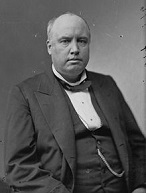
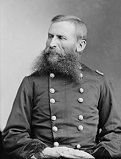





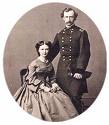


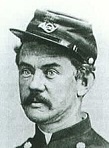

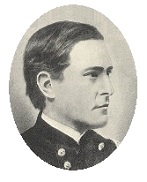

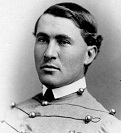


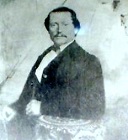





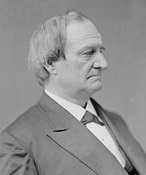




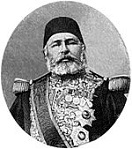






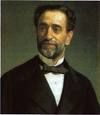


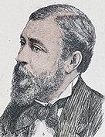



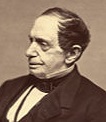


















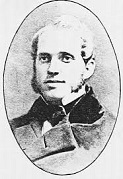
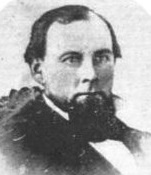


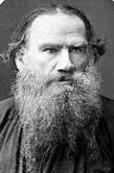



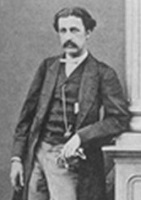

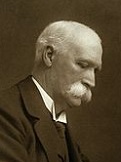
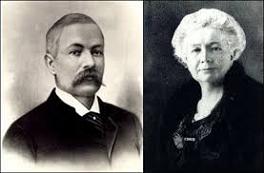
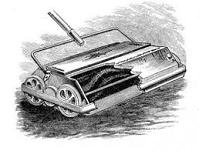
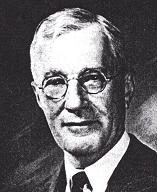
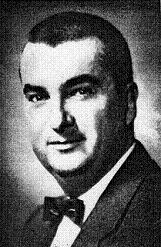






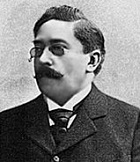
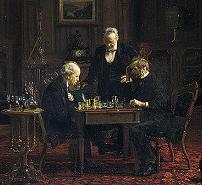
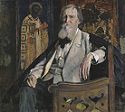
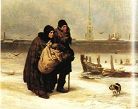
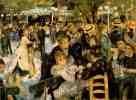





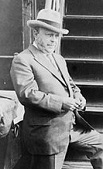

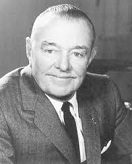
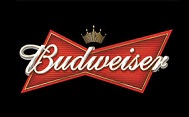
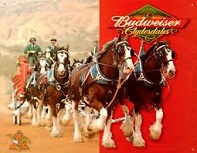
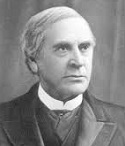
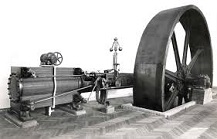
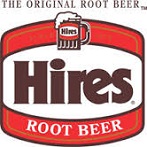

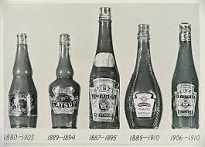

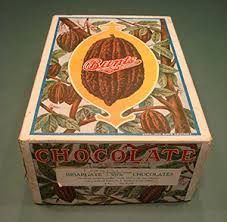
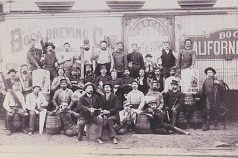


1876 At the start of the year Radical Reconstructionist regimes survive only in La., S.C., and Fla. (plus a Repub. gov. in N.C., who is replaced at the end of the year), and collapse after the nat. elections in Nov.; "The uneducated negro was too weak, no matter what his numbers, to cope with the whites" (Gov. of S.C.). On Jan. 1 the Deutsche Reichsbank opens as the successor of the Prussian state bank. In Jan. Argentine explorer Francisco Pascasio "Perito" Moreno (1852-1919) reaches Lake Nahuel-Huapi in the S Andes Mts. of N Patagonia, discovering Lake Argentino on Feb. 15, 1877, going on to explore the rivers of Patagonia, discovering beautiful church organ-like Mount Fitz Roy (Cerro Chaiten) on the Argentina-Chile border on Mar. 2, named after the cmdr. of HMS Beagle in the 1830s; Perito Moreno Glacier 48 mi. from El Calafate is later named after him. On Feb. 15 the 1876 Tex. Constitution is adopted, replacing those of 1845, 1861, 1866, and 1869. On Feb. 17 after the Franco-Prussian War interrupts its importation, Julius Wolff opens the first sardine-cannine factory in Eastport, Maine. On Feb. 21 the Spanish-Sulu War (ends July 22, 1878) begins when the Spanish attempt to occupy Jolo to curb slave trading with a force of 9K soldiers, 11 transports, 11 gunboats, and 11 steamboats under Adm. Jose Malcampo. On Feb. 22 Johns Hopkins U. is founded in Baltimore, Md., named after Anne Arundel County, Md.-born philanthropist Johns Hopkins (1795-1873), with Daniel Coit Gilman (1831-1908) as pres. #1 (until 1901); on May 7, 1889 Johns Hopkins Hospital is founded; in 1893 the Johns Hopkins U. School of Medicine opens. On Feb. 26 Japanese ships under the command of adm. Kuroda Kiyotaka (1840-1900) land at Kanghwa Island in Korea, and do what the U.S. couldn't, forcing Korea into its first modern treaty, the Treaty of Kanghwa, opening it to Japan and recognizing Korean independence from China (no protest by Peking); Pusan and two other ports are opened to Japanese trade for the next 20 mo., and Japan acquires extraterritoriality; King Kojong of Korea sends a high-level official to Japan to observe the Meiji reform programs. Doctor my ojos? In Feb. the Carlists in Spain are defeated and Don Carlos flees, moving about Europe for 33 years trying to drum up support for his lost cause for himself and his son Lame, er, Jaime; Pope Pius IX abandons his recognition of Carlos in favor of Alfonso XII after the latter closes Protestant schools and churches, abolishes civil marriages, and increases the govt.'s Roman Catholic Church budget, promulgating the Spanish Constitution of 1876 on June 30, which establishes a new Cortes consisting of a lower house elected by electoral communities, and an upper house (senate) representing the crown, nobles and Church (ends 1923), with a ministry selected by the king, which ends up alternating between the Conservatives, led by Antonio Canovas (Cánovas) del Castillo (1828-97), and the Liberals, led by Praxedes (Práxedes) Mariano Mateo Sagasta y Escolar (1825-1903). In Feb. 1876 the 16-mo. Great Sioux (Black Hills) War (ends 1877) begins with a 3-pronged invasion of Indian heartland in the Black Hills in a push to force "hostiles" back onto a rez so that they can get their hands on the gold, and ends up costing 283 Army officers and enlisted men in a campaign in Dakota, Mont., and Wyo. territories; on Mar. 17 the Battle of Powder River (Reynolds' Battle) on the Powder River in Mont. sees troops from Ft. Fetterman in Wyo. under Col. (later Maj. Gen.) Joseph Jones Reynolds (1822-99) under orders from Brig. Gen. (later Maj. Gen.) George R. Crook (1830-90) attack a Cheyenne encampment, destroying a large amount of property and pissing them off, solidifying their resistance and cementing alliances with the Lakota Sioux; in Mar. troops under Col. J.J. Reynolds mistakenly attack a sleeping village legally wintering on the rez, angering Chief Crazy Horse (1849-77), causing him to join up with Sitting Bull (1831-90) (who has a dream that white soldiers are falling like grasshoppers as Indians ride over them) and other tribes; on June 9 the Battle of Prairie Dog Creek (Tongue River) at the confluence of Prairie Dog Creek and the Tongue River in Wyo. is a V for 950 U.S. troops under Gen. George R. Crook along with 100+ civilians over 200 Northern Cheyenne; on June 17 they win the Battle of the Rosebud (Battle of Rosebud Creek) in Montana against 1.2K men led by Brig.-Gen. George R. Crook (1830-90), pushing them back to Goose Creek inside the Wyo. border; Shoshone chief Washakie (1804-1900) sends scouts to help Gen. Crook against his enemies the Sioux, later going Protestant and negotiating the Wind River Reservation in Wyo.; on June 25 (Sun.) after dividing his force twice, sending Capt. (later Maj.) Frederick William Benteen (1834-98) to move SW and Maj. Marcus Albert Reno (1834-89) to attack from the N, arrogant buckskin-wearing goldie locks Brevet Maj. Gen. (Lt. Col.) George Armstrong "Yellow Hair" Custer (b. 1839) and 210 men of his 7th Cavalry (out of 266 men) (incl. Custer's brother, three other relatives and a newspaper correspondent) walk into an ambush on a knoll covered by prairie grass which descends along a wooded ravine to the Little Bighorn River, where 3.5K Cheyenne, Sioux, and Arapaho warriors led by Chief Crazy Horse are encamped, and are massacred at the Battle of the Little Bighorn, holding out for 1-3 hours; the only survivor is the mixed-breed horse of Capt. Myles W. Keogh, named Columbia, er, Washington, er, Anything White, er, Something Indian, er, Comanche; Col. (later Maj. Gen.) Frederick Dent Grant (1850-1912) (eldest son of Gen. Ulysses S. Grant) escapes the massacre by a "compassionate leave" to be with his wife during childbirth 1-2 days before; a few Indian scouts hold back and escape, and 19-y.-o. Crow scout Curly (Curley) (Ashishishe) (1856-1923) first brings news of the disaster to Gen. Alfred Howe Terry (1827-90), becoming a celeb; Benteen's men are pinned down 5 mi. away until June 27, when Terry's infantry, joined by Gen. John Gibbon (1827-96) advance, and the Indians leave to look for food and ammo, allowing them to view the site on June 27, finding the corpses stripped and ritually mutilated, although Custer's gorgeous godlike blonde body is untouched; Custer's men only have 1873 Springfield .45-70 single-shot rifles, vs. Henry and Winchester lever-action rifles, revolvers, and bows and arrows for the I-can't-believe-it's-not-butter Injuns, and the palefaces can't match the experienced Indians ("best fighters in the world") man for man; news of "Custer's Last Stand" makes him a hero and brings a popular demand for an end to the "Indian menace", and thousands of eager new white recruits are thrown into the area to beat up on lean if not starving Indian butt; in 1879 the battlefield is designated a nat. cemetery, and in 1881 a memorial is erected on Last Stand Hill over the soldiers' mass grave, becoming the Custer Little Bighorn Battlefield Nat. Monument in 1946; on Sept. 9 army troops under Gen. George Crook destroy the village of Ogala Lakota Sioux chief American Horse the Elder (b. 1830), who dies of wounds from the fighting; by winter the Indians are starving and beginning to be systematically crushed by God Bless America; the Fifth Infantry Regiment under the leadership of Col. (later Lt. Gen.) Nelson Appleton Miles (1839-1925) spends the next year scouring the Northern Plains, forcing the Lakota and their allies onto reservations, going on to drive his troops in a forced march in the winter of 1877 across E Mont. to capture Chief Joseph and his Nez Perce band, quarreling with Gen. Oliver O. Howard over the credit. On Mar. 7 the Ethiopians under emperor Johannes defeat the Egyptians under Prince Hassan at the Battle of Gura. On Mar. 7 after a physician friend donates a human ear, which he experiments on in summer 1874, Scottish-born Alexander Graham Bell (1847-1922) receives a patent in Boston, Mass. for the articulating telephone ("visible speech"); on Mar. 10 the first successful voice transmission over Bell's telephone takes place in Boston, Mass. as Bell spills acid on his clothes and tells his assistant, "Mr. Watson, come here! I want you!"; music is later sent down the line - soon lazy American white people can visit without getting up off their white lardasses, becoming their jealously-guarded lifestyle? On Mar. 8 Townshend, Vt.-born Alphonso Taft (1810-91) (co-founder of Skull & Bones secret society at Yale U.) becomes U.S. atty. gen. #34 (until Mar. 4, 1877), followed on Mar. 8, 1876 by U.S. war secy. #31 (until May 22, 1876). On Mar. 14 after the Colo. legislature passes legislation on Nov. 7, 1861 naming the city of Boulder, Colo. (25 mi. NW of Denver) (modern-day pop. 108K/313K) as the site, and the cornerstone for the Old Main Bldg. is laid on Sept. 20, 1875, the U. of Colo. (CU) (home of the Buffaloes) is founded via an amendment to the state constitution before formal admission to statehood, which later causes its regents to consider themselves equal to or above the state legislature; it officially opens on Sept. 5, 1877; in 1912 the U. of Colo. Denver is founded; in 1965 the U. of Colo. Colorado Springs is founded. On Mar. 17 the Battle of Powder River (Reymolds' Battle) on the Powder River in Mont. sees troops from Ft. Fetterman under Col. Joseph J. Reynolds under orders from Brig. Gen. George Crooks attack a Cheyenne encampment, destroying a large amount of property and pissing them off, solidifying their resistance and cementing alliances with the Lakota Sioux. On Apr. 20 the anti-Ottoman April Bulgarian Uprising begins in Orthodox Christian Bulgaria, which is suppressed by mid-May with massacres of Christians, which the Ottomans try unsuccessfully to coverup, rocking world opinion and causing religious sister Russia to threaten intervention, while Disraeli refuses to do anything to aid Russia, maintaining his support for the Ottomans as a bulwark against them, causing his rival Gladstone to begin using the issue to get back in power (1880). In Apr. the khedive, having squandered all the money he received for his shares of the Suez Canal causes Egypt to declare bankruptcy and suspend interest payments on a foreign debt of £68.5M and a floating debt of £23M; the internat. Caisse de la Dette Publique is put in charge of Egyptian finances, causing the natives to get restless and cry "Egypt for the Egyptians". On May 1 at PM Benjamin Disraeli's insistence, Queen Victoria (1819-1901) is proclaimed Empress of India by Parliament in the Royal Titles Act of 1876; in return she grants him the title of Earl of Beaconsfield. On May 4 Hilarion Daza Groselle (1840-94) becomes pres. of Bolivia (until 1879) after a coup overthrows Tomas Frias Ametller, who flees to Florence, Italy. On May 10 the 1876 Centennial Exhibition in Philadelphia, Penn. opens (until Nov. 10); the Freedom Bell is substituted for the Liberty Bell in the tower; the 1.5K hp Centennial Engine that powers the exhibition is built by George Henry Corliss (1817-88); Ketchup (catsup) (first mentioned in 1690) finally becomes popular after Henry John "H.J." Heinz (1844-1919) adds it to his line in 1876 and introduces it at the fair, with the motto "A blessed relief for mother and the other women in the household" - doesn't sound as good as "salsa"? On May 13 the Euro powers renew their demands for reforms in the Balkans and threaten military intervention. On May 15 after his study of Immanuel Kant at the U. of Heidelberg gets him thrown out of rabbi school, Alzey, Germany-born Felix Adler (1851-1933) gives a lecture on the need for a religion without the trappings of religion or creed that unites all of humanity in moral social action, and next Feb. founds the New York Society for Ethical Culture in New York City, launching the Ethical Culture Movement, a humanist church without doctrine, with the motto "Deed, not creed", with its own "Leaders" who perform naming ceremonies and marriages; in 1888 his Columbus, Ohio-born aide Stanton George Coit (1857-1944) moves to London, England, turning the South Place Religious Society into the South Place Ethical Society, and lobbying for reform of the Church of England. On May 30 after he waffles in the face of massacres of Muslim peasants in Bosnia and Bulgaria, sultan (since June 25, 1861) Abdul Aziz I is deposed by war minister Huseyin Avni Pasha (1820-76), backed by Turkish liberal statesman Midhat Pasha (1822-83), causing him to commit suicide on June 4; on May 30 he is succeeded as Ottoman sultan #33 by his Francophile nephew Murad V (1840-1904), who is deposed on Aug. 31 because of nervousness and mental incapacity after he proves unable to cope with the outbreak of war, the mobilization of his army, and the flood of Muslim refugees from the Balkans; on June 15 Huseyin Avni Pasha is assassinated at a cabinet meeting with Murad V; on Aug. 31 he is succeeded by his despotic brother Abdul Hamid (Abdulhamid) II (the Damned) (the Great Assassin) (the Red Sultan) (1842-1918) as Ottoman sultan #34 (until Apr. 27, 1909), who initially promises the Young Ottomans to support a constitutional govt., and lets Midhat Pasha secure the promulgation of the first-ever 1876 Ottoman Constitution on Dec. 23, providing for a bicameral parliament and civil liberties, but reserves most powers to himself. 1876 is a new low in U.S. pres. politics as two candidates favoring civil service reform get caught up in the most corrupt election ever? On June 14-16 the 1876 Repub. Nat. Convention in Cincinnati, Ohio sees Repub. House Speaker (1869-75) James Gillespie Blaine (1830-93) of Maine nominated after Dresden, N.Y.-born Peoria, Ill.-based orator ("the Great Agnostic") Robert Green "Col. Bob" Ingersoll (1833-99) delivers his Plumed Knight Speech, with the soundbyte: "This is a grand year, a year filled with recollections of the Revolution... a year in which the people call for the man who has torn from the throat of treason the tongue of slander, the man who has snatched the mask of Democracy from the hideous face of rebellion... Like an armed warrior, like a plumed knight, James G. Blaine from the state of Maine marched down the halls of the American Congress and threw his shining lance full and fair against the brazen foreheads of every traitor to his country and every maligner of his fair reputation"; too bad, the Mulligan Letters, written in 1864-76 by Blaine to Warren Fischer Jr., made public by Fischer's employee James Mulligan, implicating Blaine in a corrupt business deal with the Little Rock and Fort Smith Railroad, and although Blaine tries to clear himself by reading selectively from the letters on the House fool, er, floor, and his friends claim his vindication, it costs him the nomination, and he is passed over by a small majority for true-blue Civil War gen., civil service reformer, hard money advocate and 3-term Ohio gov. Rutherford B. Hayes ("a third rate nonentity, whose only recommendation is that he is obnoxious to no one" - Henry Adams), with N.Y. Rep. William W. Wheeler for vice-pres.; Whiskey Ring reformer Benjamin Helm Bristow receives 113 votes for pres. on the 1st ballot, and former Ind. gov. Oliver P. Morton is also passed over; on June 27-29 the 1876 Dem. Nat. Convention in St. Louis, Mo. nominates N.Y. reform gov. Samuel J. Tilden, a millionare corp. atty. and destroyer of the Tweed Ring (plus another ring in Albany), with Ind. gov. Thomas A. Hendricks of Ind. as his running mate; the campaign is marked by Repubs. waving the bloody shirt and grinding the outrage mills while the Dems. air the Republicans' dirty linen; too bad, after becoming the most popular orator in the U.S., destined for the White House, Ingersoll spoils his golden future in politics by giving golden-tongued speeches for secular humanism, rationalism, and freethought (supply caps if you're a true believer), virtually founding the 19th cent. British-Am. Freethought movement and popularizing Thomas Paine. On June 30 Serbia declares war on Turkey, followed by Montenegro on July 2, beginning the Serbo-Turkish War (ends Mar. 3, 1878); after the Turks inflict a severe D on the Serbs, Russia threatens to intervene on Oct. 31, halting them in their tracks. In June Sapporo Brewery is founded in Sapporo, Hokkaido, Japan, becoming the first brewery in Japan, with German-trained Seibei Nakagawa as brewmaster; in 1984 Sapporo U.S.A. is founded, with its Sapporo Premium beer becoming the best-selling Asian beer in the U.S. On July 4 despite being wounded over Custer, the U.S. celebrates its 100th anniv. with fireworks going off all over, causing numerous frightful injuries to the heirs of Sir William Wallace's redneck freedom fighters, as they shout about their "Free-ee-dom!" On July 24 Liberal Ion Constantin Bratianu (1821-91) becomes PM of Romania (until Apr. 9, 1882, then June 9, 1881-Mar. 20, 1888), going on to align the country with Russia against main threat Austria-Hungary while working against #2 threat Turkey. On Aug. 1 the savage Indians all nicely pacified after 100 years of U.S. rule, "Centennial State", "the Switzerland of America" Colorado (Colo.) is admitted as the 36th U.S. state; Eddyville, Ky.-born Repub. John Long Rutt (1826-1907) becomes Colo. gov. #1 (until Jan. 14, 1879), followed by Denver mayor #17 in 1883-5, and Colo. gov. #7 on Jan. 13, 1891-Jan. 10, 1893; the Colo. state legislature offers a bounty for wolf pelts ($0.50 to $2.00), resulting in their extinction in 1943 as the last one is killed by a govt. trapper in Conejos County; in 1995-6 federal officials reintroduce 31 wolves from Canada into Yellowstone Nat. Park and 35 more into C Idaho, growing into a herd of 1K by 2006 when the bounty is finally legally removed. Extreme makeover, saloon edition? On Aug. 2 (Wed.) colorful white long-tressed mustachioed wide-brimmed-hatted white-tied U.S. marshal Wild Bill Hickock (b. 1837), who had been run out of Cheyenne, Wyo., and came to Deadwood this year after the gold rush began with sidekicks Martha "Calamity Jane" Canary (1852-1903) and Colorado Charley Utter (1838-1904) is shot in the back and killed by drifter John "Crooked/Broken Nose Jack" "Buffalo Curly" McCall (1852-77) with a Colt .45 (serial #2079) (five cartridges defective) in Carl Mann's Saloon #10 in Deadwood, Black Hills, Dakota Territory (S.D.) while playing poker; Hickock normally sits with his back to the wall and pours whiskey with his left hand to keep his right hand free, but forgets?; he is alleged to be holding a pair of black (clubs) aces and a pair of black 8s (along with a 9 of diamonds), which comes to be known as the "dead man's hand"; in his youth Hickock killed McCall's younger brother Andy by hitting him on the head with a hoe; after being acquitted in a "miner's court", McCall is arrested in the territorial capital of Yankton, convicted and hanged on Mar. 1, 1877; a series of 33 Deadwood Dick dime novels by Philly writer Edward Lytton Wheeler (1854-85) come out in 1877-97, starring him and his wife Calamity Jane (a cross-dressing ho and camp follower who falsely claimed to be an Army Scout?); they die together, leaving their son Deadwood Dick Jr. to carry on their adventures; meanwhile African-Am. Samuel Fields moves to Deadwood, claiming to have been a Civil War Union gen., and becomes a local celeb known as "Nigger General" and "General Darkey", known for looking to make a big strike and calling himself a "sly coon". On Aug. 27 Liberal Marco Aurelio Soto (1846-1908) becomes pres. of Honduras (until Oct. 19, 1883), making a pact with conservatives; the mining industry is pumped up with foreign investments. On Sept. 7 after robbing a train in Rocky Cut, Minn., the James Gang (Jesse James, Bill Stiles, Cole Younger) attempts to rob a bank in Northfield, Minn. (to zing the Yankees, or get some real Yankee money for a change?), but thanks to the Pinkertons the town is ready, and they are greeted with a hail of bullets, killing two members. On Sept. 13 the Chefoo (Zhifu) Convention between the British and Chinese minister Li Hongzhang (1823-1901) pays the Brits a large indemnity, and agrees to open 10 new opium ports to add to the 82K chests a year now imported, not counting the greater amount grown internally; ratified in 1885 - at the dog's eye-view everything falls? On Oct. 26 Pres. Grant issues a proclamation, declaring Nov. 30 as Thanksgiving Day. On Nov. 7 the 1876 U.S. Pres. Election is in chaos when, at the urging of Repub. fixer Daniel Edgar Sickles (1819-1914) (the Union gen. who got his III Corps almost wiped out at Gettysburg and lost a leg to a cannonball, which doesn't prevent him from living almost a cent.), three Southern states (Fla., S.C., La.) send in two sets of votes, claiming that both Dem. Samuel J. Tilden and Repub. Rutherford B. Hayes are the winner; on Nov. 8 the popular vote is 4.3M for Tilden and 4.0M for Hayes (193 to 173 electoral votes), but after the shenanigans Tilden falls just one electoral vote short of election (185-184), and the 15-member bipartisan Electoral Commission of 1876 (7 Repubs., 7 Dems., plus Supreme Court justice Joseph P. Bradley, a closet Repub.), sponsored by Vt. Repub. Sen. (1866-91) George Franklin Edmunds (1828-1919) is then appointed by Congress to settle things in the smoke-filled back room (not the same thing as throwing the election into the House, which only happened in 1801 with Jefferson and 1825 with J.Q. Adams); meanwhile La. election board chmn. (La. gov. #20 in 1865-7) James Madison Wells (1808-99) (Repub.) tries to sell the presidency by offering $100K for each white board member and $25K for each black one to the Dems. (who refuse), and then asking $200K from the secy. of the Dem. Nat. Committee, Col. William T. Pelton (Tilden's nephew), but gets no takers; "The Democrats stole the election first, and the Republicans stole it back." On Nov. 25 the Dull Knife Fight (Battle on the Red Fork) in modern-day Johnson County, Wyo. is a V for 1K U.S. Army troops over 400 Northern Cheyenne, ending their fighting ability. On Dec. 5 (eve.) the Brooklyn Theatre Fire in Brooklyn, N.Y. kills 278-300+, becoming the 3rd worst U.S. theater fire after the 1942 Cocoanut Grove Fire and the 1903 Iroquois Theatre Fire. The original clap-on clap-off, the Clapper? On Dec. 5 Pres. Grant submits his (last) 8th State of the Union Message to Congress, appending an apology for the scandals of his admin., saying, "Failures have been errors of judgment, not of intent"; also: "Reconstruction Era, as finally agreed upon, means this and only this, except that the late slave was enfranchised, giving an increase, as was supposed, to the Union-loving and Union-supporting votes. If free in the full sense of the word, they would not disappoint this expectation. Hence at the beginning of my first Administration the work of reconstruction, much embarrassed by the long delay, virtually commenced"; his admin. goes through a record five different atty. gens. On Dec. 6 the Kazan Demonstration in front of the Kazan Cathedral in St. Petersburg, Russia, organized by Georgi Plekhanov (1856-1918) et al. indicts the autocratic govt. and waves a red flag, becoming the first political demonstration in Russia; after resisting the police, 31 are arrested, of which five are sentenced to 10-15 years in a prison camp, three to 5 years in a monastery, and 10 lucky pluckers to exile in Siberia; Plekhanov manages to stay underground until 1800, when he goes into exile for 37 years, studying Marx and Engels and becoming Russia's first Marxist. On Dec. 23 the Istanbul Internat. Conference on the Balkan Crisis in Constantinople (ends 1877) is run by the European powers, who make demands on new sultan Abdul Hamid II to reform his admin., which he shrugs off by having the new Ottoman constitution proclaimed on Dec. 23, claiming it's all covered, and ties his hands; privately he believes that Britain won't use force against him; Russia then intervenes alone, beginning a Russo-Turkish War next year - that's it, work the umbrella? On Dec. 29 a Lake Shore train plunges into the Ashtabula River near Ashtabula, Ohio after a bridge collapses during a snowstorm, killing 92. Hawaii signs a 10-year free trade agreement with the U.S. to give it access to the U.S. sugar market (so that white people can achieve record levels of obesity?); exports grow from 21M lbs. this year to 225M in 1890. Citing the Bulgarian atrocities of the year before, Gladstone gloudly, er, loudly demands that Britain withdraw support of the Turks. Anibal Pinto Garmendia (1825-84) becomes pres. of Chile (until 1881). The last Brazilian troops are withdrawn from Paraguay, which signs the Machain-Yrigoyen Treaty (Limits Agreement) with Argentina, ceding part of the Chaco and submitting Villa Occidental to arbitration; land sales benefit capitalists in Uruguay and Argentina; Paraguay ends up losing 55K sq. mi. of territory. Spain begins a war with the Muslim sultanate of Sulu in S Philippines (ends 1878). The Pedi Kingdom defeats the Boer South African (Transvaal) Repub. army. Accra becomes capital of Gold Coast Colony. The Holman Rule is passed by the U.S. House, permitting amendments to appropriations legislation that would rude the salary or fire specific federal employes, or cut specific program; it it is rescinded in 1893, and reinstated in Jan. 2017 for the Repub.-controlled 115th Congress. The 1876 Cruelty to Animals Act is passed by the British Parliament, amending the 1849 act by instituting a licensing system for animal experimentation; replaced by the 1986 Animals (Scientific Procedures) Act. In Japan a decree abolishes the samurai class of prof. warriors. The Tasmanian Flag, with a red lion is approved; meanwhile the last aborigines in Tasmania die - is it apple-flavored? Oil is discovered in Pico Canyon Oilfield, Well No. 4 7 mi. W of Newhall, Calif. in the Santa Susana Mts. N of Los Angeles, Calif., becoming the first commercially successful oil well in the Am. West, leading to the founding of Chevron Corp. on Sept. 10, 1879. After the British Arctic Expedition (begun 1875), led by Vice-Adm. Sir George Strong Nares (1831-1915) in Discovery and Alert becomes the first to sail between Greenland and Ellsmere Island (Nares Strait) to the Lincoln Sea, discovering no ice-free Open Polar Sea as hoped, a sledding party led by Sir Albert Hastings Markham (1841-1918) sets a record for N lat. at 83 deg 20 min, and skedaddles back home in the summer after the crew begin suffering from scurvy - that *?!*! pole, so near and so far? The city of Flagstaff, Ariz. (modern-day pop. 71K/139K) is founded by Thomas F. McMillan, who builds a cabin on Mars Hill on the W side of town; it is named after a centennial ponderosa pine flagpole erected there by a scouting party from Boston, Mass.; the town is only a 2-day ride to the S rim of the Grand Canyon; it is incorporated in 1928. Am. suffragists Matilda Electa Joslyn Gage (1826-98) et al. pub. the 1876 Declaration of Rights; Gage won her spurs attempting with nine other women to vote in 1871, arguing with polling officials, then defending Susan B. Anthony in 1873 at her trial for having voted illegally, making a great speech. The U.S. 7th Cavalry goes on an expedition in Yellowstone, which is detailed in a diary by Fred H. Toby. The U.S. Coast Guard Academy (Revenue Cutter Service Academy) in New London, Conn. is founded. The Scottish Reformed Presbyterians (formed 1681) unite with the Free Church. Black abolitionist leader Frederick Douglass utters the soundbyte that Abraham Lincoln "was pre-eminently the white man's president, entirely devoted to the welfare of white men." Kuzma Lisin, "second redeemer and Tsar Peter III", leader of the Russian Skoptsy (Skoptsy) castration sect (a former peasant tailor), who believe that the Big C is the "Great Seal" is sent to Siberia, and the rest emigrate mainly to Romania - doesn't that take balls? By now one-fifth of grain shipments in the U.S. go by rail. Nickel ore is found in New Caledonia. Asian pea family member Kudzu is introduced at the Philadelphia Continental Exposition, and promoted to farmers in the Am. South to control soil erosion; too bad, it goes wild and becomes a giant nuisance. The town of Lubbock, Tex. (modern pop. 252K/315K) in NW Tex. is founded, named after Charleston, S.C.-born Texas Ranger Thomas (Thompson) Saltus Lubbock (1817-62), brother of Tex. gov. #9 (1861-3) Francis R. Lubbock, becoming known as "Hub City". British explorer (biopirate?) Sir Henry Alexander Wickham (1846-1928) smuggles 70K seeds of the rubber tree (Hevea brasiliensis) from Brazil to the Royal Botanic Gardens in Kew, London, from where they are sent to Malaya, Africa, Batavia et al., beginning the Asian dominance of the world rubber market, which is complete by 1930. The annual Niagara Bible Conferences (Believers' Meeting for Bible Study) are founded (until 1897 except 1884) to discuss John Nelson Darby's Dispensationalism; starting in 1883 they are held in Niagara-on-the-Lake, Ont. at the Queen's Royal Hotel; attendees incl. future Scofield Bible author Cyrus Ingerson Scofield; in 1878 it announces its 14-point Niagara Creed, incl. the premillennial return of Jesus Christ and restoration of Israel to to the Jews before the judgment of the saved and damned. Heinrich Schliemann excavates Mycenae. Am. penologist Zebulon Reed Brockway (1827-1920), who tried the innovation of the indeterminate sentence in Detroit in 1861 founds the Elmira Reformatory for juveniles in upstate N.Y., the first reformatory in the U.S. with educational programs, training for trades, physical exercise, indeterminate sentences and inmate incentive programs, becoming known as "the Father of Am. Prison Reform"; too bad, before he quits in 1900 he is accused of corruption and brutality. The first Chinese railroad is completed. The Nat. League for Separation of Church and State (Nat. Liberal League) is founded in New York City by a group of Freethinkers during the DOI centennial, with The Truth Seeker as its official organ, becoming the first group in the U.S. to advocate complete church-state separation. Coeducational Juniata College is founded in Huntingdon, Penn., becoming the first college founded by the Church of the Brethren. The Am. Chemical Society is founded on Apr. 6 at NYU, with John William Draper as pres. #1. The first research-level mathematics program in the U.S. opens at John Hopkins U. under British algebraist James Joseph Sylvester, who departs for Germany in 1883, causing Americans to follow. The Beefsteak Club on Irving St. in Leicester Square, London is founded; the distinguished members eat at one long table, and sit where the waiters put them. Stillman College (originally Tuscaloosa Inst.) in Tuscaloosa, Ala. is founded as a black liberal arts college by the Presbyterian Church. The Children of Israel Synagogue is founded in Des Moines, Iowa. The Cedars of God in Lebanon is fenced-off for preservation; in 1998 UNESCO adds it to its list of world heritage sites. ? Bradley, ? Voorhees, and ? Day found the BVD (Bradley, Voorhees, and Day) Co. in New York City to make men's and women's underwear, gradually shifting entirely to men's - don't ask don't tell? The Bayreuth Festspielhaus (pr. BYE-royt) in W Germany opens with the first complete performance of Richard Wagner's "Ring des Nibelungen"; a fan-shaped auditorium with continuous rows of seating and no Baroque box-and-tier system, Richard Wagner supervised its design and construction, and runs it until his death, then is buried on its grounds along with his father-in-law Franz Liszt (1811-86), after which his grandson Wieland Wagner begins using minimal sets and sophisticated lighting for atmosphere. Melville Elijah Stone (1848-1929) founds the Chicago Daily News (until 1978), the first penny paper in Chicago, increasing circ. by encouraging local merchants to offer goods for 99 cents instead of $1 so that their customers will begin using pennies, then buying them by the barrel from the Mint for them; the idea catches on throughout the U.S., which up till now didn't widely use pennies; in 1885 he begins pub. the Chicago Daily News Almanac (until 1978). Jean-Louis Forain (1852-1931) begins drawing caricatures for La Cravache, and branches out to many other periodicals, specializing in satires of the judiciary and legal professions. The English analytical philosophy journal Mind is founded by Scottish philosopher Alexander Bain (1818-1903), ed. by his student, Scottish philosopher George Croom Robertson (1842-92) (until 1892), taking on the problem of whether psychology should be classified as a science. Eatonton, Ga.-born Joel Chandler Harris (1845-1908) begins running his Uncle Remus stories in the Atlanta Constitution, featuring Br'er Rabbit and the Tar-Baby. You had to be there but? Russian lit. giant Count Leo Tolstoy (1828-1910) grows tired of being rich and happy and well-laid. and tries the Russian Orthodox Church, but gets turned off to its ritualism and pageantry and begins studying the Gospels, developing his own creed later (1884) known as Tolstovstvo (Tolstoyism), based on Matt. 5:39 ("resist not evil"), asserting that evil should never be resisted by violent means, and gaining gobs of converts after he begins pub. works on it; actually believing his own dope, he tries to give away his property, but his wife talks him out of it and gets him to sign it all over to her just before he croaks - sounds like Adam's problem with Eve? By this year 43-y.-o. German composer Johannes Brahms (1833-97) is well-fixed financially, freeing him artistically. The "spreading chestnut tree" mentioned in William Wordsworth's poem "The Village Blacksmith" (really Dexter Bratt), located on Brattle Hill in Cambridge, Mass. is cut down, and some children make a chair from the wood and present it to him for his 72nd birthday. Samuel T. Cooper of Kenosha, Wisc. founds Coopers Inc., later Jockey Internat. Co. to make socks and hosiery. After tasting it on his honeymoon in N.J., and using an old recipe containing sassafras oil, Hires Root Beer, "the Original Root Beer" is first marketed in Philly by Quaker pharmacist Charles Elmer Hires (1851-1937) in 25-cent packages of powder that make 5 gal. after adding water, sugar, and yeast, giving away free glasses at the 1876 Philadelphia Centennial Exposition, claiming that it's made of 16 wild roots and berries, and will purify the blood and redden the cheeks; in 1884 he begins marketing a syrup for use in soda fountains with a fountain dispenser called the Hires Automatic Munimaker; in 1890 he incorporates Charles E. Hires Co. and begins bottling it, selling 1M bottles by 1891, and 2,880,278 in 1892, promoting it as "the Temperance Drink" and "the Greatest Health-Giving Beverage in the World". Boca Brewing Co. in Boca, Calif. (founded 1875) brews the first lager beer in Calif., using ice cold water from the Sierra Nevada Mts. and growing to 25K barrels/year in a few years; in 1896 it burns down. Ringnes Brewery is founded in Oslo, Norway by brothers Armund Ringnes and Ellef Ringnes, going on to sponsor the polar expeditions of Fridtjof Nansen and Otto Sverdrup and become the largest brewery in Norway, becoming part of the Carlsberg Group in 2000. Sports: On Feb. 2 the Nat. League of Prof. Base Ball Clubs (NL) is formed in New York City after the Nat. Assoc. of Prof. Baseball Players is dissolved; on Apr. 22 the First NL Baseball Game sees the Cincinnati Red Stockings defeat the Philadelphia Athletics by 6-5 before a crowd of 3K - now fat whites can enjoy their leisure time watching a lucky few workout for them while they swig Budweiser and reminisce about the Wild West? In spring the Westchester Polo Club is founded at Jerome Park in Bronx, N.Y., and on May 13 the first outdoor polo match in the U.S. is held there; in 1894 Jerome Park closes in favor of nearby Morris Park. On Nov. 30 (Thur.) the Princeton football team plays Yale in New York City on Thanksgiving, starting a tradition (ends 1882). Marshalltown, Iowa-born Adrian Constantine "Cap" "Pop" Anson (1852-1922) is signed by the Chicago White Stockings (later Chicago Cubs), going on to play a record 27 consecutive seasons (until 1879) and become a legend, winning five NL pennants, introducing spring training, and achieving record 3K career hits, while stinking himself up with white racism, refusing to take the field with blacks, and causing the segregation of baseball until the 1940s; the nickname "Cap" is given after he is named capt.-mgr. of the club in 1879. Albert Goodwill Spalding (1850-1915) retires as pitcher for the Chicago team of the new Nat. League (NL) (47-13), and founds A.G. Spalding & Bros. to manufacture and distribute sporting goods, eventually buying the team. The First Tennis Tournament in the U.S. is held in Nahant, Mass.; court owner Dr. James White is the winner. U.S. champion stallion trotter Hambletonian (b. 1849) dies. Architecture: The Basilica of Sacre Coeur (Basilica of the Sacred Heart) on Montmartre Hill in Paris is begun (finished 1912) as a gesture of expiation after the big D in 1871; Place du Tertre later begins a favorite spot for artists to set up their easels. Danish immigrant Charles I.D. Looff (1852-1918) builds Vandeveer's (later Balmer's) Bathing Pavilion Carousel, the first carousel at Coney Island, N.Y., with a unique style of carving, the first of 25+ carousels there; it is burned down in the 1911 Dreamland Fire. The Bunte Brothers Candy Co. of Chicago, Ill. is founded by brothers Ferdinand Bunte and Gustav Bunte, along with Charles Spoehr, later Ferdinand's son Theodore; in 1914 they introduce the marshmallow-maple Tango, becoming the first chocolate-covered candy bar, becoming known for hard candies with soft fillings; by 1912 1.2K employees generate $2.4M annual sales; the co. goes on to launch the careers of candymakers George Williamson (Oh Henry!), J.R. Holloway (Milk Duds), and Emil Julius Brach (Brach's Candy); in 1957 they build a new factory on a 14-acre lot at Franklin and Holman Aves. in West Side, Chicago; their old parking lot is turned into a hospital and demolished for the 2008 film "The Dark Knight"; in 1954 it is acquired by Chase Candy Co., makers of Cherry Mash. Fla. State Hospital for the Insane (FSH) is founded in Chattahoochee, Fla., becoming Fla.'s first state mental inst.; on Dec. 26, 1975 the U.S. Supreme (Burger) Court rules unanimously in O'Connor vs. Donaldson that a state cannot constitutionally confine a non-dangerous individual capable of living outside this Fla. nuthouse, sparking a deinstitutionalization movement resulting in the close of many public mental institutions in the U.S. Inventions: German-born Am. brewer Adolphus Busch (1839-1913) (founder of Anheiser-Busch in 1867 in St. Louis, Mo.) and St. Louis, Mo. wine merchant Charles W. "Carl" Conrad visit the town of Ceske Budejovice (Budweis) in the South Bohemian region of Czech. to steal, er, discover the formula for light Bohemian lager Budweiser brand beer, and bring it back to the U.S., changing tastes away from dark ales and introducing pasteurization; in 1896 Bush introduces Michelob "draught beer for connoisseurs"; in 1913 August Anheuser Busch Sr. (1865-1934) becomes pres. of Anheuser-Busch (until Feb. 10, 1934), surviving Prohibition (1920-33) by marketing near beer then introducing the Budweiser Clydesdales on Apr. 7, 1933; he is succeeded as CEO by Adolphus Busch III (1891-1946) (until Aug. 29, 1946), who introduces a metal can in 1936; in 1946 his brother August Anheuser "Gussie" Busch Jr. (1899-1989) becomes CEO (until 1975), buying the St. Louis Cardinals ML baseball team in 1953 and growing it to the #1 beer brand in the U.S. in 1957; in 1966 Budweiser becomes the first U.S. brewer to sell 10M barrels a year; in 1981 they introduce Bud Light - add another smug comment about the limitless market for lazy fat American whites here? George R. Carey (1851-1906) of Boston, Mass. proposes a television system using a selenium photocell array based on an 1873 discovery by Willoughby Smith. Baked Alaska is invented by Charles Ranhofer of Delmonico's Restaurant in New York City, and named after the Alaska Purchase; other versions go back to Thomas Jefferson in the White House in 1802; AKA Norwegian Omelette and Glace au Four; meanwhile sea captain Ben Wenberg introduces head chef Charles Ranhofer to Lobster Newberg, which is initially called Lobster Wenberg until they fall out and Ranhofer scrambles the name. On Sept. 19 Am. china shop owner Melville Reuben Bissell (1843-89) of Grand Rapids, Mich. is granted U.S. Patent #182,346 for the Bissell Carpet Sweeper (called the Grand Rapids) to help his wife Anna Sutherland Bissell (1846-1934) get rid of the dusty straw her china comes packed in, after which she becomes a door-to-door salesperson, selling them for $1.50 each; their first manufacturing plant is built in Grand Rapids in 1883; when he dies she takes over the co., becoming the first U.S. female CEO, helping it go international and become #1 worldwide; in 1928 they introduce a sweeper that automatically adjusts the height of the brushes to fit the surface; in 1928 Melville Reuben Bissell Jr. (1882-) takes control of the co. from his mother; in 1953 his nephew (son of Irving J. Bissell) Melville Reuben Bissell III () takes over from him, expanding the company emphasis to floor care then complete home care. Good year for consumers of knowledge, bad year for producers, as libraries sap their royalties and give them a distant taste of the Internet? Amherst College librarian Melvil Dewey (1851-1931) and Boston Public Library (Boston Brahmin) librarian Justin Winsor (1831-97) found the Am. Library Assoc. (ALA), which pub. the Library Journal; Winslow, er, Winsor becomes its first pres. (until 1885), going on to create the profession of learned ignoramus, er, librarian; meanwhile Dewey develops the recursively-expandible Dewey Decimal System for libraries: 000-999 General, 100-199 Philosophy/psychology, 200-299 Religion, 300-399 Social sciences, 400-499 Language, 500-599 Natural sciences/math, 600-699 Technology/applied sciences, 700-799 Arts, 800-899 Lit./rhetoric, 900-999 Geography/history; subgroups: 01 Philosophy/theory, 02 Misc., 03 Dictionaries/encyclopedias/concordances, 04 Special topics, 05 Serial pubs., 06 Orgs./mgt., 07 Ed./research/related topics, 08 Collections, 09 History of; the Bible is 220; the New Testament is 225. Karl Paul Gottfried von Linde invents a modern refrigerator. S.R. Mathewson of Santa Clara County, Calif. patents a gas-fired 8 mph streetcar in the shape of a horse, which doesn't spook horses on the streets of San Francisco, Calif. Nikolaus August Otto (1832-91) and Eugene Langen (1833-95) of Germany invent the gasoline-powered 4-stroke Otto Engine, the first internal combustion engine to efficiently burn fuel in a piston chamber; meanwhile fellow German Gottlieb Daimler invents the surface-type carburetor. The toothpaste tube is introduced by Dr. Washington Wentworth Sheffield, who allegedly invented toothpaste in 1850. Irish engineer James Thomson (1822-92), brother of Lord Kelvin invents the Analog Differential Analyzer for solving differential equations. Science: After becoming the first to estimate the Avogadro Constant in 1865, Austrian physicist-chemist Johann Josef Loschmidt (1821-95) pub. the results of experiments with columns of air, finding that gravity causes it to form a stable non-zero vertical temperature gradient of maximum entropy, which applies to every planet's troposphere, which is disputed by his colleagues Ludwig Boltzmann and James Clerk Maxwell, who get all the publicity? Scottish surgeon Sir William Macewen (1848-1924) demonstrates the location of a brain tumor by observation of motor and sensory functions; in 1879 he uses it to perform the first non-primary (trepanned) brain surgery to remove a brain tumor; meanwhile in 1877 he develops the first bone grafts, and in 1880 he develops the technique of endotracheal anesthesia using orotracheal intubation, going on to pioneer surgical removal of lungs to treat TB and lung cancer, Macewen's Operation to cure inguinal hernia, and Macewen's Sign to diagnose hydrocephalus. After being commissioned by the French govt. in 1868 to investigate how to make French beer brewers competitive with German ones, Louis Pasteur pub. Etudes su la Biere (Bière) (Studies on Beer), announcing his 1857 discovey that yeast metabolizes glucose in an aerobic environment and reproduces furiously, but under anaerobic conditions it vigorously ferments, becoming known as the Pasteur Effect. A huge storm is spotted in the N hemisphere of Saturn; they only occur once every Saturn year, or 30 Earth years. Charles Darwin pub. the first analysis and description of hybrid vigor - human white-black intermarriage not included, of course? Sigmund Freud studies the sexual organs of eels in Trieste - he needs to see a pshrink? German physician Heinrich Hermann Robert Koch (1843-1910) of Wollstein isolates the bacterium causing cattle disease anthrax, validating the germ theory of disease and spurring searches for new agents responsible for TB, cholera, etc. German physiologist Wilhelm Friedrich Kuhne (1837-1900) coins the word "enzymes" (from Gr. "in yeast") for soluble ferments made from cell extracts, as opposed to catalytic substances in intact cells, which should still be called ferments. Nonfiction: Charles Francis Adams (1835-1915), The Familiar Letters of John Adams and His Wife Abigail (posth.); ed. by their grandson. Francis Herbert Bradley (1846-1924), Ethical Studies. Daniel Garrison Brinton (1837-99), The Religious Sentiment, Its Sources and Aim: A Contribution to the Science and Philosophy of Religion. Sir John Charles Bucknill (1817-97), Notes on Asylums for the Insane in America; based on his 1875 trip to North Am., where he visited 10 asylums in the U.S. and three in Canada, criticizing asylums who restrain patients, countering their assurance that they have to restrain them by offering 100 pounds to anyone would will visit British asylums and find them in use, causing him to be elected the first honorary member of the Assoc. of Medical Suptds. of Am. Institutions for the Insane; On Asylums for Drunkers, and the Relations of Drink and Insanity. Verney Lovett Cameron (1844-94), Across Africa (2 vols.). Moncure D. Conway (1832-1907), Christianity; "The homage paid to Christ is a high poetic fact in human history. Even in the Legend of Christ, with all its fables, there are not wanting indications of the profound faith of man in his own higher nature." Felix Dahn (1834-1912), Ein Kampf um Rom (A Struggle for Rome). Charles Darwin (1809-82), Effects of Cross and Self Fertilization in the Vegetable Kingdom. Cesareo Fernandez Duro (1830-1908), Nautical Disquisitions (6 vols.) (1876-81). David Ferrier (1843-1928), The Functions of the Brain; becomes a classic in neuroscience; 2nd ed. pub. in 1886. Eugene Fromentin (1820-76), The Masters of Past Time (Les Maitres d'Autrefois); the Old Masters of Belgium and Holland. William Gladstone (1809-98), Bulgarian Horrors and the Questions of the East; disses Disraeli for his indifference to the April Bulgarian Uprising; "That such things such be done once is a damning disgrace to the portion of our race which did them; that the door should be left open to their... repetition would spread that shame over the world." Asa Gray (1810-88), Darwiniana: Essays and Reviews Pertaining to Darwinism. W. Greenwell and G. Rolleston, British Barrows. Henry Houssaye (1848-1911), The First Siege of Paris, 52 B.C.E.. Cesare Lombroso (1835-1909), The Criminal Man - just look at that cretin, he looks like a criminal? James Martineau (1805-1900), Hours of Thought (1876, 1879); Unitarian sermons. Margaret Oliphant (1828-97), The Makers of Florence. Sir Frederick Pollock (1845-1937), The Principles of Contract at Law and in Equity; modernizes English legal education by emphasizing underlying principles rather than specific cases. Henry Martyn Robert (1837-1923), Pocket Manual of Rules of Order for Deliberative Assemblies; paliamentary procedure, loosely based on those for the U.S. House of Reps.; written after his poor performance in leading a church meeting. J.C.H.R. Steenstrup, Normannerne (The Normans) (1876-82); claims that the Anglo-Saxons of Britain stole their institutions from the Norse and Danish occupiers, contrasting with the views of Gudbrand Vigfusson and Sophus Bugge that the Eddas were based on Anglo-Saxon materials. Sir Leslie Stephen (1832-1904), The History of English Thought in the Eighteenth Century (2 vols.) (1876). Hippolyte Taine (1828-93), Les Origines de la France Contemporaine (6 vols.) (1876-94). Music: Edmond Audran (1842-1901), La Sulamite (oratorio) (Marseille); Le Grand Mogol (Marseille); big hit in Paris and London. Johannes Brahms (1833-97), Symphony No. 1 in C minor, Op. 68; first of four symphonies in 10 years (1876-86). Leo Delibes (1836-91), Sylvia (ballet) (Paris). Luigi Denza (1846-1922), Wallenstein (opera). Antonin Dvorak (1841-1904), Stabat Mater, Op. 58 (1876-7) (oratorio). Amilcare Ponchielli (1834-86), La Gioconda (opera) (La Scala, Milan) (Apr. 8); based on the 1835 Victor Hugo play "Angelo, Tyrant of Padua"; becomes the biggest hit opera between Verdi's "Aida" (1871) and "Otello" (1887); incl. the ballet Dance of the Hours, later used in Walt Disney's 1940 Fantasia with dancing hippos, and used by comedian Allan Sherman for his 1963 hit record "Hello Muddah, Hello Fadduh". Bedrich Smetana (1824-84), String Quartet No. 1 in E Minor ("From My Life"); String Quartet No. 2 in D Minor; The Kiss (opera). Franz von Suppe (1819-95), Fatinitza (operetta) (Carltheater, Vienna) (Jan. 5). Richard Wagner (1813-83), The Ring of the Nibelung (Nibelungen) (1869-76) (Bayreuth); Ring Cycle of four operas; his opus maximus, finished after 26 years of work; incl. Das Reingold, Die Walkure, Siegfried, and Gotterdammerung (Götterdämmerung); the 15-hour set of four operas concludes with fat blonde-braided Brunnhilde singing an aria then riding into Siegfried's funeral pyre while dressed like a valkyrie with horned helmet, spear, and shield, causing the expression "It ain't over till the fat lady sings" to be coined. Thomas P. Westendorf, I'll Take You Home Again, Kathleen; of German-Am. not Irish origin; an answer to his friend George W. Brown (alias George W. Persley), who wrote "Barney, Take Me Home Again"; made famous on an episode of Star Trek. Henry Clay Work (1832-84), My Grandfather's Clock; sells 1M copies of sheet music. Art: Pierre Puvis de Chavannes (1824-98), The Life of St. Genevieve (mural) (1876-98); in the Paris Pantheon. Edgar Degas (1834-1917), The Glass of Absinthe. Thomas Eakins (1844-1916), The Chess Players; his father Benjamin Eakins (1818-99) watching a game between Betrand Gardel (1808-85) and George W. Holmes (1812-85) in Eakins' parlor at 1729 Mount Vernon St. in Phily; exhibited at the 1876 Centennial Exposition, in the Art Gallery after "The Gross Clinic" was rejected. Winslow Homer (1836-1910), The Cotton Pickers; The Home Signal. Viktor Vasnetsov (1848-1926), Moving House. Jule Joseph Lefebvre (1836-1911), Mary Magdalene in the Grotto. Pierre-Auguste Renoir (1841-1919), Le Moulin de la Galette; sells for $78.1M in 1990. Auguste Rodin (1840-1917), The Age of Bronze (The Vanquished) (first sculpture). James Tissot (1836-1902), The Gallery of HMS Calcutta. Plays: Sir William Schwenck Gilbert (1836-1911) and Sir Arthur Sullivan (1842-1900), Trial by Jury (comic operetta #2) (Royalty Theatre, London) (Mar. 25) (131 perf.); a breach of promise of marriage lawsuit; no spoken dialogue; the judge is played by Arthur Sullivan's brother Fred. Henrik Ibsen (1828-1906), Peer Gynt (Feb. 24) (Christiania); 8 hours long; music by Edvard Grieg (1843-1907), incl. In the Hall of the Mountain King, Morning Mood. Multatuli (1820-87), The School for Princes. Algernon Charles Swinburne (1837-1909), Erechteus. Poetry: Joao de Deus Ramos (1830-96), Folhas Soltas. Stephane Mallarme (1842-98), L'Apres-Midi d'un Faune (The Afternoon of a Faun); basis of Claude Debussy's "Prelude to the Afternoon of a Faun" (1894); greatest poem in French lit. according to Paul Valery. Herman Melville (1819-91), Clarel: A Poem and Pilgrimage in the Holy Land. William Morris (1834-96), The Fall of the Niblungs. Jean Richepin (1849-1926), Chanson des Gueux; gets imprisoned for "outrage aux moeurs", making him more popular. Jaroslav Vrchlicky (1853-1912), Epical Poems. Novels: William Harrison Ainsworth (1805-82), The Leaguer of Lathom; Chetwynd Calverley. Walter Besant (1836-1901) and James Rice (1843-82), The Golden Butterfly (3 vols.); This Son of Vulcan (3 vols.). William Black (1841-98), Madcap Violet. Robert Browning (1812-89), Pacchiarotto, and How He Worked in Distemper. Robert Williams Buchanan (1841-1901), The Shadow of the Sword (first novel). Lewis Carroll (1832-98), The Hunting of the Snark (An Agony in 8 Fits) (Mar. 29); illustrations by Henry Holiday (1839-1927). Wilkie Collins (1824-89), The Two Destinies. Carlo Collodi (1826-90), Giannettino; based on the work by Alessandro Luigi Parravicini; Minuzzolo; Il Viaggio der l'Italia di Giannettino. Alphonse Daudet (1840-97), Jack. Felix Dahn (1834-1912), Ein Kampf um Rom. George Eliot (1819-80), Daniel Deronda; broke gambler Gwendolen Harleth taps icy aristocrat Henleigh Grandcourt for money, marrying him then finding out he's cruel, and turning to Daniel Deronda for help, but he's in love with Jewish singer Mirah Lapidoth, and discovers that he's Jewish; idealizes the Jew to combat the Shylock-Fagin image? Benito Perez Galdos (1843-1920), Dona Perfecta. Robert Hamerling (1830-89), Aspasia; the Age of Pericles. Thomas Hardy (1840-1928), The Hand of Ethelberta. J.K. Huysmans (1848-1907), Marthe, Histoire d'une Fille (Martha, Story of a Girl) (first novel); a young ho; its naturalism makes a fan of Emile Zola. Helen Hunt Jackson (1830-85), Mercy Philbrick's Choice (first novel). Jens Peter Jacobsen (1847-85), Fru Marie Grubbe (first novel); first Danish novel treating a woman as a sexual creature. Henry James (1843-1916), Roderick Hudson (2nd novel); bildungsroman serialized in "The Atlantic Monthly". Pierre Loti (1850-1923), Aziyade (Aziyadé) (first novel); a semi-autobio. novel based on his 3-mo. stay as a French naval officer in Greece and Istanbul in late 1876, about his love affair with an 18-y.-o. Circassian harem girl and their love triangle with Spanish man servant Samuel, causing many to suspect that he's gay. Conrad Ferdinand Meyer (1825-98), Jurg Jenatsch; the 30 Years War in the Grisons. Wilhelm Raabe (1831-1910), Horacker. Jean Richepin (1849-1926), Les Morts Bizarres. Edward Payson Roe (1838-88), Near to Nature's Heart. Vsevolod Solovyov (1849-1903), Princess Ostrozhskaya (first novel). Mark Twain (1835-1910), The Adventures of Tom Sawyer; first pub. novel composed on a newfangled typewriter (Remington); Tom and his girl Becky Thatcher, and Aunt Polly of St. Petersburg (modeled on his hometown of Hannibal, Mo.); Tom tricks Ben, Billy, and Johnny into painting a white picket fence; Injun Joe tries to kill Tom in a cave but is killed instead. Births: East German Communist pres. #1 (only) (1949-60) Friedrich Wilhelm Reinhold Pieck (d. 1960) on Jan. 3 in Guben (Gubin, Poland); starts out as a carpenter. West German chancellor #1 (1949-63) Konrad Hermann Josef Adenauer (d. 1967) on Jan. 5 in Cologne. Am. "The Call of the Wild", "White Fang" novelist (alcoholic) John Griffith "Jack" London (nee John Griffith Chaney) (d. 1916) on Jan. 12 in San Francisco, Calif.; astrologer father William Henry Chaney deserts him as an infant, and mother Flora marries disabled Civil War vet John London, who hires ex-slave Virginia Prentiss to help raise him; at age 15 begins a life as a seaman, tramp, gold seeker in the Klondike, and militant Socialist, then becomes a newspaper correspondent in 1904; inspired by Ouida's 1875 novel "Signa". Saudi Arabian king #1 (1932-53) (Sunni Wahhabi Muslim) Ibn Saud (Abdul Aziz Ibn Abdur Rahman Al Saud) (d. 1953) on Jan. 15 in Riyadh; of the House of Su'ud (Saud); son of Abdul-Rahman bin Faisal (1850-1928). Danish feminist novelist Maria Kirstine Dorothea "Thit" Jensen (d. 1957) on Jan. 19 in Farso; sister of Johannes Wilhelm Jensen (1873-1950). Am. #1 child prodigy pianist-composer Josef Hofmann (d. 1957) on Jan. 20 in Podgorze (near Cracow), Poland; student of Anton Rubenstein and Moritz Moszkowski. German "Diens-Alder Reaction" organic chemist Otto Paul Hermann Diels (d. 1954) on Jan. 23 in Hamburg; educated at the U. of Berlin; collaborator of Kurt Alder (1902-58). Swiss candymaker Theodor Tobler (d. 1941) on Jan. 24 in Bern. Am. atty. Joseph Hodges Choate Jr. (d. 1968) on Feb. 2. Am. actor-dir. Arthur Vaughan Johnson (d. 1916) on Feb. 2 in Cincinnati, Ohio.; husband of Maude Webb and Florence Hackett? German expressionist painter Paula Modersohn-Becker (d. 1907) on Feb. 8 in Dresden-Friedrichstadt. English Whig-Liberal "The Garibaldi Trilogy" historian G.M. (George Macaulay) Trevelyan (d. 1962) on Feb. 16 in Welcombe House, Stratford-on-Avon, Warwickshire; son of Sir George Otto Trevelyan (1838-1928); grandson of Sir Charles Trevelyan, brother-in-law of Thomas Babington Macaulay (1800-59); younger brother of Sir Charles Trevelyan; grows up in Wallington Hall, Northumberland; known for a privileged background and weak eyesight; educated at Harrow School, and Trinity College, Cambridge U. (Cambridge Apostles); founder of the Cambridge Lake Hunt; student of Lord John Acton. Romanian "Bird in Space" (mainly bronze) sculptor Constantin Brancusi (d. 1957) on Feb. 19 in Hobita; pupil of Rodin; moves to Munich in 1903, and Paris in 1904; his art emphasizex clean geometrical lines that dabbles in primitive exoticism a la Paul Gaugin. Czech soprano Emmy Destinn (Destinnova) (Emilie Pauline Kittel) (Ema Pavlina Venceslava Kittlova) (d. 1930) on Feb. 26 in Prague. Am. "Adventures in a Perambulator", "Skyscrapers" composer John Alden Carpenter (d. 1951) on Feb. 28 in Park Ridge, Ill.; educated at Harvard U; student of John Knowles Paine, Sir Edward Elgar, and Bernhard Ziehn. Belgian IOC pres. #3 (1925-42) Count Henri de Baillet-Latour (d. 1942) on Mar. 1 in Brussels. Polish Zionist leader (Jewish) ("Father of Jewish Sociology") Arthur Ruppin (d. 1943) on Mar. 1 in Rawicz; grows up in Magdeburg, Germany; emigrates to Palestine in 1908. Italian Hitler-cryptic pope (1939-58) Pius XII (Eugenio Pacelli) (d. 1958) on Mar. 2 in Rome. French Symbolist poet-writer Leon-Paul (Léon-Paul) Fargue (d. 1947) on Mar. 4 in Paris. Am. tennis hall-of-fame player Elisabeth Holmes "Bessie" Moore (d. 1959) on Mar. 5 in Brooklyn, N.Y. Danish sculptor Edvard Eriksen (d. 1959) on Mar. 10 in Copenhagen; knighted in 1932; husband (1900-) of Eline Eriksen (1881-1963). Am. sculptor Anna Vaughn Hyatt Huntington (d. 1973) on Mar. 10 in Cambridge, Mass.; student of Hermon Atkins MacNeil and Gutzon Borglum; wife of Archer Milton Huntington (1870-1955). Am. Pentagon architect George Edwin Bergstrom (d. 1955) on Mar. 12 in Neenah, Wisc.; Norwegian descent parents; educated at Phillips-Andover Academy, Yale U., and MIT; husband (1903-) of Nancy Kimberley, daughter of Kimberly-Clark co-founder John A. Kimberly. Am. "Mendel Marantz in The Heart of New York", "The Cohens and Kellys" actor (Jewish) George Sidney (Sammy Greenfield) (d. 1945) on Mar. 18 in Nagynichal, Hungary. Am. Olympic track and field athlete John Walter Beardsley Tewksbury (d. 1968) on Mar. 21 in Ashley, Penn.; educated at the U. of Penn.; wins five medals in the 1900 Summer Olympics incl. two golds. Scottish painter-etcher Sir Muirhead Bone (d. 1953) on Mar. 23 in Glasgow, Scotland; knighted in 1937. Albanian king (1914-25) Vidi I (Prince William of Wied) (d. 1945) on Mar. 26 in Schloss Neuwied am Rhein (near Koblenz); 3rd son of William V, Prince of Lied (1845-1907) and Princess Marie of the Netherlands. German Zeppelin cmdr. Capt. Peter Strasser (d. 1918) on Apr. 1 in Hanover, Prussia. French "The Circus" Fauvist painter Maurice de Vlaminck (d. 1958) Apr. 4 in Les Halles, Paris. Am. "The Origins of the World War" historian Sidney Bradshaw Fay (d. 1967) on Apr. 13; educated at Harvard U., the Sorbonne, and U. of Berlin. German publisher (gay) Friedrich Radszuweit (d. 1932) on Apr. 15 in Konigsberg. Dutch prince consort (1901-34) Prince Henry of the Netherlands, Duke of Mecklenburg-Schwerin (d. 1934) on Apr. 19 in Schwerin, Mecklenburg-Schwerin; husband (1901-) of Queen Wilhelmina (1880-1962). Hungarian physician (Jewish) Robert Barany (Bárány) (d. 1936) on Apr. 22 in Vienna; educated at Vienna U. Am. "Giants in the Earth" novelist Ole Edvart Rolvaag (d. 1931) on Apr. 22 in Donna, Norway; emigrates to the U.S. in 1896. English actress Nelly Hutin Britton (d. 1965) on Apr. 24 Bucklebury, Berkshire; wife (1903-) of Matheson Lang (1879-1948). German Adm. Erich Johann Albert Raeder (Räder) (d. 1960) on Apr. 24 in Wandsbek, Hamburg. Russian chess champ (1911-12) Stepan Levitsky (Stefan Lewitzki) (d. 1924) on Apr. 25 in Serpukhov. Ethiopian empress (1916-30) Zewditu (Zawditu) (Zauditu) I (Askala Maryam) (d. 1930) on Apr. 29 in Ejersa Goro, Harar; daughter of Menelik II; wife (1900-30) of Gugsa Welle. German Social Dem. chancellor (1920, 1928-30) Hermann Mueller (Müller) (d. 1931) on May 18 in Mannheim. Am. "The Dancing Mouse" psychobiologist Robert Mearns Yerkes (d. 1956) (pr. YER-keez) on May 26 Breadysville, Penn.; educated at Harvard U. Austrian diplomat Count Ludwig Alexander Georg von Hoyos, Freiherr zu Stichsenstein (d. 1937) on May 13 in Fiume (Rijeka, Croatia); grandson of Robert Whitehead (1823-1905). Am. Dem. gov. #13 of Tenn. (1923-7) Austin Peay (d. 1927) on June 1 in Christian County, Ky.; educated at Washington and Lee U., and Centre College; knocks-up his 28-y.-o. black housemaid at age 14. Am. anthropologist Alfred Louis Kroeber (d. 1960) on June 11 in Hoboken, N.J.; educated at Columbia U.; pupil of Franz Boas. Am. P.F. Collier and Son publisher Robert Joseph Collier (d. 1918) on June 17 in New York City; son of Peter Fenelon Collier (1849-1909); educated at Georgetown U., Harvard U., and Oxford U.; friend of Orville Wright. Am. mayonnaise king Richard C. Hellmann (d. 1971) on June 22 in Vetschau (near Berlin); emigrates to the U.S. in 1903; becomes a U.S. citizen on July 29, 1920. French fashion designer ("Queen of the Bias Cut") Madeleine Vionnet (d. 1975) on June 22 in Chilleurs-aux-Bois, Loiret. Am. "Old Judge Priest" novelist-writer Irvin Shrewsbury Cobb (d. 1944) on June 23 in Paducah, Ky.; grandson of physician Reuben Saunders. Am. Provincetown Players dramatist-novelist Susan Keating Glaspell (d. 1948) on July 1 in Davenport, Iowa; wife of George Cram Cook (1873-1924); educated at Drake U., and the U. of Chicago. German chancellor (1922-3) Wilhelm Cuno (d. 1933) on July 2 in Suhl. Am. Unitarian minister (Humanist) Albert Charles Dieffenbach (d. 1963) on July 4 in Manchester, Md.; educated at Johns Hopkins U. (Phi Kappa Sigma) Am. "Riders of the Purple Sage" silent film actor William Farnum (d. 1953) on July 4 in Boston, Mass.; brother of Dustin Farnum (1874-1929) and Marshall Farnum (-1917). Am. Sinclair Oil founder Harry Ford Sinclair (d. 1956) on July 6 in Benwood (near Wheeling), W. Va.; grows up in Independence, Kan.; educated at the U. of Kansas. French "The truth is always new" poet-novelist-writer-painter (Jewish-to-Roman Catholic convert) Max Jacob (d. 1944) (AKA Leon Dvid, Morvel le Gaelique) on July 12 in Quimper, Finistere, Brittany; helps his friend Pablo Picasso learn French in Paris in 1901. Am. FCC chmn. #1 (1934-5) Eugene Octave Sykes Jr. (d. 1945) on July 16 in Aberdeen, Miss. Soviet foreign minister (1930-9) (Jewish) Maxim Maximovich Litvinov (Meir Wallach Finkelstein) (d. 1951) on July 18 in Bialystok. Austrian chancellor (1922-4, 1926-9) and Roman Catholic priest Ignaz Seipel (d. 1932) on July 19 in Vienna. Am. Mormon Church pres. #10 (1970-2) Joseph Fielding Smith Jr. (d. 1972) on July 19 in Salt Lake City, Utah; son of Joseph Fielding Smith Sr. (1838-1918). Russian actress and acting teacher Maria Alekseyevna Ouspenskaya (d. 1949) on July 29 in Tula; student of Konstantin Stanislavski; emigrates to the U.S. in 1922. Am. historian Mary Ritter Beard (d. 1958) on Aug. 5 in Indianapolis, Ind.; wife (1900-48) of Charles Austin Beard (1874-1948); educated at DePauw U. Am. Curtis Inst. of Music founder (1924) (Jewish) Mary Louise Curtis Bok (d. 1970) on Aug. 6 in Boston, Mass.; wife (1943-) of Efrem Zimbalist Sr. (1890-1985). Dutch exotic dancer and alleged spy Mata Hari (Indonesian for Sun) Margaretha Geertruida "Margreet" MacLeod (nee Zelle) (d. 1917) on Aug. 7 in Leeuwarden, Friesland. U.S. Sen. (D-Nev.) (1933-54) Patrick Anthony McCarran (d. 1954) on Aug. 8 in Reno, Nev. Am. automobile engine manufacturer Edwin A. Rutenber (d. 1962) on Aug. 10 in Sadorus, Ill. Am. "The Circular Staircase" mystery novelist-playwright ("the American Agatha Christie") Mary Roberts Rinehart (nee Mary Ella Roberts) (d. 1958) on Aug. 12 in Allegheny City (Pittsburgh), Penn.; educated at the Pittsburgh Training School for Nurses; coiner of the phrase "the butler did it". " Serbian Obrenovic king (1889-1903) (last) Alexander I Obrenovic (Obrenovich) (d. 1903) on Aug. 14 in Belgrade; son of Milan Obrenovich (1854-1901). Scottish diplomat (secy.-gen. #1 of the League of Nations, 1920-33) (Protestant to Roman Catholic convert) James Eric Drummond, 7th Earl of Perth (d. 1951) on Aug. 17 in Fulford;educated at Eton College; husband of Angela Mary Constable Maxwell (1877-1965); father of John David Drummond, viscount Strathallan (1907-). English conspiracy theorist Nesta Helen Webster (nee Bevan) (d. 1960) on Aug. 24 in Trent Park, London; youngest daughter of Robert Cooper Lee Bevan and 2nd wife Emma Frances Shuttleworth, daughter of Philip Nichols Shuttleworth, Anglican bishop of Chichester; educated at Westfield College (Queen Mary, U. of London). English "The Savoy Cocktail Book" bartender Harry Craddock (d. 1963) on Aug. 29 in Stroud, Gloucestershire; moves to the U.S. in 1897-20. Am. industrialist-inventor Charles Franklin "Boss" Kettering (d. 1958) on Aug. 29 in Loudonville, Ohio; educated at Ohio State U.; inventor of the electric starter, leaded gasoline, Freon refrigerant, Duco enamels, and aerial torpedo (cruise missile). German historian (of medicine) Walter Albert Ferdinand von Brunn (d. 1952) on Sept. 2 in Gottingen; educated at the U. of Gottingen. German field marshal Wilhelm Josef Franz Ritter von Leeb (d. 1956) on Sept. 5 in Landsberg am lech, Bavaria; brother of Gen. Emil Leeb (1881-1969). Scottish-Canadian physiologist John James Rickard MacLeod (d. 1935) on Sept. 6; co-discoverer in 1921 of insulin with F.G. Banting (1891-1941). Am. Teletype Corp. founder and teletypewriter inventor Edward Ernst Kleinschmidt (d. 1977) on Sept. 9 in Bremen, Germany; emigrates to the U.S. in 1884. Am. "Triumph of the Egg" novelist and short story writer Sherwood Anderson (d. 1941) on Sept. 13 in Camden, Ohio; childhood nickname is Jobby; abandons a career as a successful paint manufacturer in Elyria, Ohio to become a writer - I thought that was Sherwood Williams? Am. publisher Frank Ernest Gannett (d. 1957) on Sept. 15 in South Bristol, N.Y.; educated at Cornell U. German conductor (Jewish) Bruno Walter (Schlesinger) (d. 1962) on Sept. 15 in Berlin; becomes Austrian citizen is founded; moves to the U.S. in 1939; converts to Roman Catholicism. Am. geographer Ellsworth Huntington (d. 1947) on Sept. 16. Australian Labor PM #9 (1929-32) James Henry "Jim" Scullin (d. 1953) on Sept. 18 in Trawalla, Victoria. Am. Lorenz Curve economist Max Otto Lorenz (d. 1959) on Sept. 19 in Burlington, Iowa. Am. economist-social worker Edith Abbott (d. 1957) on Sept. 26 in Grand Island, Neb.; sister of Grace Abbott (1878-1939); educated at the U. of Neb., U. of Chicago, Univ. College London, and London School of Economics. English "The Maid of the Mountains" lyricist-novelist Valentine (Archibald Thomas Pechey) (d. 1961) (AKA Mark Cross) on Sept. 26 in West Ham, Essex. Canadian-Am. Christian dispensationalist pastor ("the Archbishop of Fundamentalism") Henry Allen "Harry" Ironside (d. 1951) on Oct. 14 in Toronto, Ont.; emigrates to the U.S. in 1886. Am. baseball pitcher Mordecai Peter Centennial "Three Finger" "Miner" "Brownie" Brown (d. 1948) on Oct. 19 in Nyesville, Ind.; named after his uncle, father, and the Centennial Year; loses two fingers of his right hand in a farm accident in his youth, which turns it into a perfect ground ball thrower. Am. "The Virginian" silent film actor Jack W. Johnston (d. 1946) on Oct. 2 in Kilkea, County Kildare, Ireland. Am. baseball outfielder (Boston Red Sox) Patrick Henry "Patsy" Dougherty (d. 1940) on Oct. 27 in Andover, N.Y. Am. "Down by the Old Mill Stream" lyricist William "Tell" Taylor (d. 1937) on Oct. 28 in Vanlue, Ohio. Am. poet (lesbian) Natalie Clifford Barney (d. 1972) on Oct. 31 in Dayton, Ohio; partner of Romaine Brooks (1874-1970). Am. Ashcan School realist painter ("the dandy of the realists" - Sam Hunter) Everett Shinn (d. 1953) on Nov. 6 in Woodstown, N.J.; named for Edward Everett Hale; model for Theodore Dreiser's 1915 novel "The Genius". Am. Dem. Calif. gov. #29 (1939-43) (atheist) Culbert Levy Olson (d. 1962) on Nov. 7 in Fillmore, Utah; Mormon parents; suffragette mother; 1st cousin of William H. King (1863-1949); descendant of Edmund Rice (1594-1663); educated at Brigham Young U., U. of Mich., and George Washington U. Swiss historian Eduard Fueter Sr. (d. 1928) on Nov. 13 in Basel; father of Eduard Fueter Jr. (1908-70). Norwegian novelist Olav Duun (d. 1939) on Nov. 21 in Joa. Spanish "La Vida Breve" composer Manuel de Falla (d. 1946) on Nov. 23. Am. air conditioning inventor Willis Haviland Carrier (d. 1950) on Nov. 26 in Angola, N.Y.; educated at Cornell U. Dutch De Stijl artist Bart van der Leck (d. 1958) on Nov. 26 in Utrecht. Am. candymaker Thomas Ovard Smith (d. 1954) on Nov. 26 in Salt Lake City, Utah. Am. ambassador #2 to the Soviet Union (1936-8) Joseph Edward Davies (d. 1958) on Nov. 29 in Watertown, Wisc.; educated at the U. of Wisc.; 3rd hubby (1935-55) of Marjorie Merriweather Post (1887-1973). Am. Four Minute Men journalist (head of the U.S. Committee on Public Info. in WWI) George Creel (d. 1953) on Dec. 1. U.S. auto manufacturer Frederick Samuel Duesenberg (d. 1932) on Dec. 6 in Lippe, Germany; brother of August Duesenberg (1879-1955); emigrates to the U.S. at age 8, and ends up building cars in Des Moines, Iowa. Russian Gen. (last Russian Imperial Army CIC) Nikolai (Nikolay) Nikolayevich Dukhonin (d. 1876) on Dec. 13 in Smolensk. Indian Brahma Kumaris founder Brahma Baba (Dada Lekhraj Khubchand Kripalani) (d. 1969) on Dec. 15 in Hyderabad, Sindh. Spanish cardinal (1959-) Enrique Play y Deniel (d. 1968) on Dec. 19 in Barcelona; officiates at the marriage of Gen. Franco's daughter Maria. U.S. agriculture secy. #6 (1920-1) Edwin Thomas Meredith (d. 1928) on Dec. 23 in Avoca, Iowa; founder of Successful Farming (1914) and Better Homes and Gardens mags. (1922). Pakistani gov.-gen. #1 (1947-8) (Muslim) ("Father of the Nation") Mohammud (Muhammad) Ali Jinnah (d. 1948) on Dec. 25 in Karachi; brother of Fatima Jinnah (1893-1967); born to a wealthy family who sends him to England to study at age 16, where he joins Lincoln's Inn because its list of the world's all-time top-10 magistrates starts with Muhammad, and he becomes a member of the bar at age 19, youngest Indian ever. German steroid chemist Adolf Otto Reinhold Windaus (d. 1959) on Dec. 25 in Berlin; educated at the U. of Freiburg. Spanish cellist-conductor-composer Pablo Casals i Defillo (Defilló) (Pau Carlos Salvador Defillio de Casals) (d. 1973) on Dec. 29 in El Vendrell, Catalonia. English viola-violin player (Jewish) Lionel Tertis (d. 1975) on Dec. 29 in West Hartlepool; Polish Jewish immigrant parents. Am. baseball hall-of-fame pitcher (lefty) (alcoholic) George Edward "Rube" Waddell (d. 1914) in Bradford, Penn.; sets a record of 343 strikeouts in 1904, which stands until Robert Feller's 349 in 1946. Romanian botanist (Jewish) (Zionist) Aaron Aaronsohn (d. 1919) in Bacau; brother of Sarah Aaronsohn (1899-1917). Japanese bacteriologist (in the U.S.) Hideyo Noguchi (d. 1928) in Inawashiro, Fukushima. Am. automobile manufacturer Harry C. Stutz (d. 1930) in Ohio. Am. stage actress (blonde-blue) Ida Conquest (d. 1937) in Boston, Mass. Canadian ice hockey exec James F. Strachan (d. 1939). English "The Lady Vanishes" novelist Ethel Lina White (d. 1944) in Ebergavenny, Monmouthshire. Am. geographer-explorer Ellsworth Huntington (d. 1947) in Galesburg, Ill.; educated at Beloit College, Harvard U., and Yale U. Italian-German opera composer Ermanno Wolf-Ferrari (d. 1948) in Venice. Italian #1 baritone Giuseppe de Luca (d. 1950) in Rome. Canadian-Am. aviation pioneer (financier) Clement Melville Keys (d. 1952) in Chatsworth, Ont. Danish composer Hakon Borresen (d. 1954). Am. neorealistic "total but not totalitarian" philosopher Ralph Barton Perry (d. 1957); educated at Princeton U. and Harvard U. Am. cartoonist Jay Norwood "Ding" Darling (d. 1962) in Norwood, Mich.; educated at Beloit College. Am. religious leader (black) Father Divine (Rev. Major Jealous Divine) (George Baker Jr.) (d. 1965) in Hutchinson Island, Ga. (Rockville, Md.?). Am. educator Ada Louise Comstock (d. 1973) in Moorhead, Minn.; educated at Smith College; pres. of Radcliffe College (1923-43). Deaths: Am. Tufts U. founder Charles Tufts (b. 1781) on Dec. 24 in Somerville, Mass. Am. journalist-politician Francis Preston Blair (b. 1791) on Oct. 18 in Washington, D.C. (brain hemorrhage). German embryologist Karl Ernst von Baer (b. 1792) on Nov. 26. Am. Mormon founder Sidney Rigdon (b. 1793) on July 14. Mexican pres. and Alamo winner Antonio Lopez de Santa Anna (b. 1794) on June 21 in Mexico City; dies broke. Bohemian #1 historian Francis Pallacky (Frantisek Palacky) (b. 1798) on May 26 in Prague. Am. mountain man Joseph Reddeford Walker (b. 1798) on Oct. 27 in Contra Costa County, Calif. Austrian painter Joseph von Fuhrich (b. 1800) on Mar. 13 in Vienna. French botanist Adolphe-Theodore Brongniart (b. 1801) on Feb. 18 in Paris. Am. physician Samuel Gridley Howe (b. 1801) on Jan. 9 in Mass. English Arabic scholar Edward William Lane (b. 1801). Am. Congregationalist minister Horace Bushnell (b. 1802) on Feb. 17. English feminist abolitionist writer Harriet Martineau (b. 1802) on June 27. Am. businessman John Purdue (b. 1802) on Sept. 12 in West Lafayette, Ind. (stroke); dies without heirs. U.S. Dem. politician William Allen (b. 1803) on July 11 in Chillicothe, Ohio. Am. activist Orestes Augustus Brownson (b. 1803) on Apr. 17 in Detroit, Mich. English textile manufacturer Sir Titus Salt (b. 1803) on Dec. 29 in Crow Nest, Lightcliffe (near Halifax); his funderal route is attended by 100K. French novelist George Sand (b. 1804) on June 8 in Nohant (near Chateauroux), Indre. French novelist Comtesse d'Agoult (b. 1805). English artist John Frederick Lewis (b. 1805). U.S. Gen. William Leslie Cazneau (b. 1807) on Jan. 7 in Jamaica; his wife Jane is lost at sea en route to recovering his body. Korean scholar Pak Kyu-su (b. 1807) in Seoul. Am.-born Liberian pres. #1 (1848-56) and #7 (1872-6) Joseph Jenkins Roberts (b. 1809) on Feb. 24 in Monrovia. Am. inventor Joseph Rogers Brown (b. 1810) on July 23 in Isles of Shoals, N.H. French poet Louise Colet (b. 1810) on Mar. 8. German poet Ferdinand Freiligrath (b. 1810) on Mar. 18 in Cannstatt. German humorist Adolf Glassbrenner (b. 1810) on Sept. 25 in Hamburg. U.S. First Lady (1865-9) Eliza McCardle Johnson (b. 1810) on Jan. 15 in Greeneville, Tenn. Mexican gen. Andres Pico (b. 1810) on Feb. 14 in Los Angeles, Calif. English journalist-historian John Forster (b. 1812). Am. womens' activist Paulina Wright Davis (b. 1813) on Aug. 24 in Providence, R.I. Russian anarchist writer Mikhail Bakunin (b. 1814) on July 1 (June 19 Old Style) in Berne, Switzerland. English historian Sir John William Kaye (b. 1814) on July 24 in London. Am. blackface performer Richard Pelham (b. 1815) in Oct. near Liverpool, England. Irish surgeon Sir William Wilde (b. 1815) on Apr. 19 in Connemara; father of Oscar Wilde (1854-1900). Am. Civil War Confed. Gen. Braxton Bragg (b. 1817) on Sept. 27 in Galveston, Tex.; faints in the middle of a street, dying in 10-15 min after being dragged into a drugstore, after which "Bragg's Light" mysteriously appears near the spot. British sculptor Matthew Noble (b. 1818). German pathologist Ludwig Traube (b. 1818) on Apr. 11 in Berlin. French sculptor Jean-Joseph Perraud (b. 1819) on Nov. 2 in Paris. French painter-writer Eugene Fromentin (b. 1820) on Aug. 27 in La Rochelle. Turkish Ottoman grand vizier (1874-5) Huseyin Avni Pasha (b. 1820) on June 15 in Istanbul (assassinated in Midhat Pasha's palace in Fatih near Beyazit). German missionary Johannes Rebmann (b. 1820) on Oct. 4 in Korntal (near Stuttgart). Am. Civil War Union Gen. Gordon Granger (b. 1821) on Jan. 10 in Santa Fe, N.M. Turkish Ottoman sultan (1861-76) Abdul Aziz I (b. 1830) on June 4. German kindergarten pioneer Margarethe Meyer Schurz (b. 1833) on Mar. 15 in St. Louis, Mo. Am. colorful lawman Wild Bill Hickock (b. 1837) on Aug. 2 in Deadwood, S.D. (murdered while holding the Dead Man's Hand); buried in Mount Moriah Cemetery alongside Calamity Jane. British sculptor J.F. Redfern (b. 1838). Am. Union Gen. William Armstrong Custer (b. 1839) on June 25 in Little Bighorn, Wyo. (KIA); leaves wife Elizabeth Bacon "Libbie" Custer (1842-1933), who begins a successful campaign to reverse the opinion of the press that he was a goof-up and glorify him as the next best thing to the heroes of the Alamo. German composer Hermann Goetz (b. 1840) on Dec. 3 in Hottingen (TB). British Assyriologist George Smith (b. 1840) - the good die young?











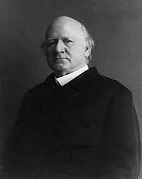















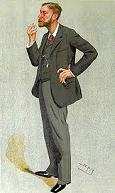
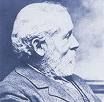
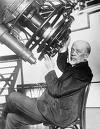



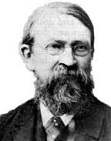


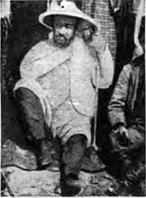
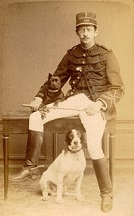
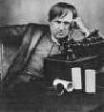
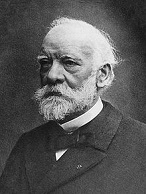
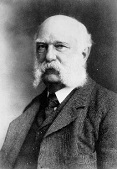


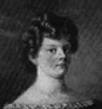






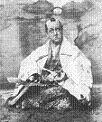





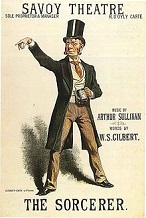



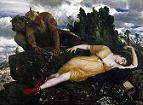
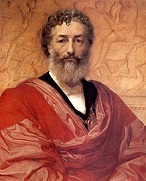
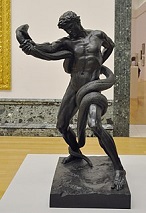


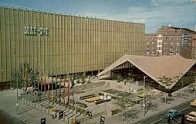

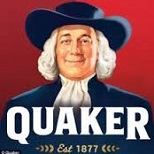
1877 Turkey becomes the center of pan-Islamism until right before WWI? On Jan. 20 the Istanbul Internat. Conference (begun 1876) closes, and now that he's past that problem on Feb. 5 Sultan Abdul Hamid II fires grand vizier Midhat Pasha; on Mar. 19 the Ottoman parliament convenes in Istanbul until June 19, reconvenes on Dec. 13, and is dissolved next Feb. 14 by the sultan, who suspends the constitution and rules as an autocrat (until July, 1908), setting up the most autocratic system of rule Turkey *has ever seen, making the grand viziers into puppets while running everything from Yildiz Palace and setting up a huge system of bureaucracy and secret police; Midhat Pasha is exiled in Syria and quietly murdered in 1883. On Mar. 1 the U.S. Supreme (Waite) Court rules 7-2 in Munn v. Ill. affirms the constitutionality of state regulation of private industries that affect publis interests such as grain storage facilities, upholding an Ill. law backed by the Nat. Grange to set max rates private cos. can charge for storage and transport of agricultural products; reversed in Wabash, St. Louis & Pacific Railway Co. v. Ill. (1886). On Jan. 29-Sept. 24 the Satsuma Revolt (Rebellion) against the Meiji govt. in Japan is suppressed, becoming the last gasp of the samurais; after transporting troops to defeat the rebellion, Mitsubishi Co. gets in good with the Japanese govt. America is made safe for generations of John Waynes? On Mar. 2 after the U.S. Electoral Commission votes 8-7 on straight party lines to award the disputed electoral votes and the U.S. Pres. Election to Repub. candidate "Rutherfraud" Hayes, he sails in by 185 to 184 (1st time since 1824 that the winner of the popular vote loses the election); on Feb. 26 after Dem. leaders challenge the Commission, promising a filibuster, loser Samuel J. Tilden agrees to the wormy Compromise of 1877 ("the betrayal of the Negro") in a smoke-filled room in the new (1871) 5-story Wormley's Hotel at 1500 H St., N.W. in Washington, D.C., owned by freeborn black man James Wormley (1819-84), in which the Dems. agree to accept Hayes in return for a Southern cabinet member and removal of federal troops from Southern states, ending Reconstruction and giving white supremacists a stranglehold on Southern (cracker?) politics, after which Southern Black Codes soon effectively disenfranchise black voters for the next 90 years - and keep them away from our white wimmin? The first U.S. pres. you can call on the telephone? On Mar. 4 (Sun.) Delaware, Ohio-born Harvard Law School grad. (wounded 4x in the Civil War) Rutherford Birchard Hayes (1822-93), AKA "Rutherfraud", "His Fraudulency", "the Usurper", "Old Eight-to-Seven" (the commission straight-party vote), "President De Facto", "the Great Unknown", "the Dark Horse President", "Granny Hayes", "Queen Victoria in Riding Breeches" (doesn't smoke, drink, or gamble), becomes the 19th U.S. pres. (until Mar. 4, 1881) in the 26th U.S. Pres. Inauguration in Washington, D.C., becoming first U.S. pres. to take his oath of office in the White House (to keep it a secret until the hysteria dies down); first pres. to have a telephone in the White House (1879), and first to travel to the West coast; Grant beomes the only U.S. pres. between Jackson and Wilson to serve two full consecutive terms; Hayespromises to serve only one term, becoming known for the soundbyte: "He serves his party best who serves his country best"; his Temperance-pushing wife "Lemonade" Lucy Ware Webb Hayes (1831-89) becomes the first First Lady to graduate from a college (Wesleyan); in her White House "the water flowed like wine"; he tries to let the white upper class run the South again in the belief that they will protect blacks from violence, only to be bitterly disappointed, keeping the South a Crackerland for the next cent., spending his retirement working for civil rights for blacks and educational reform a la Jimmy Carter; U.S. Rep. (R-N.Y.) (1861-3, 1869-77) William Almon Wheeler (1819-87) becomes the 19th U.S. vice-pres. (until Mar. 4, 1881); almost-3-term Grant retires to take a trip around the world and work on his memoirs; on Mar. 10 U.S. Sen. (R-Ohio) (since 1861) John Sherman (1823-1900), younger brother of Gen. William Tecumseh Sherman becomes U.S. treasury secy. #32 (until Mar. 3, 1881). On Mar. 18 Britain annexes Walvis Bay on the SW coast of Africa, and on Apr. 12 annexes the South African Repub. under Sir Theophilus Shepstone (1817-93), which pisses-off the Afrikaners, who call it a violation of the 1852 Sand River Convention, even though the repub. is in a state of near anarchy and it is being done to prevent Germany from moving in. On Mar. 1 Serbia signs a peace treaty with the Turks, providing for a return to prewar status. On Mar. 23 John D. Lee (b. 1812), adopted son of Brigham Young is executed for his part in the Mountain Meadows Massacre; Brigham Young (b. 1801) dies on Aug. 29. In Apr. Pres. Hayes withdraws federal troops from the state houses in La. and S.C., causing the Repub. govts. there to collapse, along with much of Hayes' claim to legitimacy; as promised in the Compromise of 1877, Hayes chooses a former Confederate from Tenn. as postmaster-gen., but the Southern Dems. fail to approve his choice of James A. Garfield as Speaker of the House as they promised; Hayes puts the damper on further federal subsidies for railroad building, killing the Southerners' transcontinental railroad of the South. On Apr. 12 Juan Bautista Gill (b. 1840) is assassinated, and Don Jose Higinio Uriarte y Garcio del Bario (1843-1909) becomes pres. of proud-as-punch Paraguay (until Nov. 25, 1878). On Apr. 24 federal troops are ordered out of New Orleans, ending the Northern post-Civil War rule in the South - where are the troops headed now, to fight the Indians? On Apr. 24 after failing to win European support at the Istanbul Internat. Conference, Russia, backed by Romania declares war on Turkey, beginning the 1877-8 (Eleventh) Russo-Turkish War (ends Mar. 3, 1878), and enters Romania, then crosses the Danube River; on May 21 the Romanian govt. declares independence from Turkey, and Bismarck decides not to intervene. On May 21 Pope Pius IX holds a Golden Jubilee of his priestly ordination; U.S. Gen. William Tecumseh Sherman's devout Roman Catholic wife Ellen Ewing Sherman (1824-88) organizes U.S. observances, receiving the pope's personal thanks. In early May the U.S. Army wins the Lame Deer Fight, and Sitting Bull leads his people into Canada, while Crazy Horse (b. 1849) surrenders to the U.S. govt. on May 6, ending the Great Sioux War (begun 1876); he is put on a Rez, then killed resisting arrest on Sept. 5 after bringing his sick wife in for help; meanwhile the U.S. govt. seizes the Black Hills (106 mi. x 52 mi.), abrogating their 1868 treaty; on June 13, 1979 the U.S. Court of Claims awards the Sioux tribes $17.5M plus 5% yearly interest ($105M) in compensation. Speaking of how Americans treat dogs? On June 15 Thomasville, Ga.-born Henry Ossian Flipper (1856-1940) becomes the first African-Am. graduate of West Point - the future's so bright he has to wear er, shades? In the summer a strike against the Baltimore & Ohio Railroad leads to riots. In June the Nez Perce War begins when Chief Joseph (1840-1904) of the Nez Perce tells the palefaces to stuff their rez in Idaho, and begins a 1.2K-mi. fighting retreat from Ore. to the U.S.-Canada border in Mont. with 200 warriors, hoping to get sanctuary with the Lakota led by Sitting Bull, who fled Canada in May, battling 2K paleface troops, fighting 18 battles incl. four major ones until they are surrounded at the Battle of Bear Paw (Bears Paw Mt.) on Sept. 30-Oct. 5 and surrender just short of the Canadian border, uttering the soundbyte "I will fight no more forever", after which he and his people are forced to another rez in Okla., where white missionary Henry Spalding orders them to build him a log cabin, then orders it moved, and when they don't do it fast enough has them whipped. On July 4 Congress approves a new U.S. flag with 38 stars (design #20), which now incl. Colo.; no more changes until 1890. On July 7 a Russian detachment of four divs. led by marshal Count Joseph Vladimirovich Romeyko-Gourko (1828-1901) takes Trnovo, then crosses the Balkans by the Ham Bogaz Pass (near Hainkioi), captures Uflani, Maglish, and Kazanlyk, then on July 17-19 wins the First Battle of Shipka Pass, defeating 5K Turks and taking the last of three key passes through the Balkan Mts. only 16 days after crossing the Danube River, throwing Constantinople into a panic, causing Suleiman Pasha to lead 30K mad Turks to take on the Russkies on Aug. 21-26 at the Second Battle of Shipka Pass; defeated but not out of it yet, Suleiman Pasha tries again on Sept. 13-17 in the Third Battle of Shipka Pass, and gets his butt kicked again; meanwhile Count Gourka, after occupying Stara Zagora (Eski Zagra) and Nova Zagora (Yeni Zagra) returns over the Balkans to capture Plevna. In July after the 150K-man Russian army under Grand Duke Nicholas heads toward the Danube River virtually unopposed, they win the Battle of Nikopol in Bulgaria and take the city, causing 40K Turks under field marshal Osman Nuri Pasha (1832-1900) to make a stand at Pleven 20 mi. S of Nikopol; on July 20-Dec. 10 the Siege of Pleven, is a V for Russians at the cost of 34K casualties, vs. 7K for the Turks, plus the loss of 40K POWs, becoming a Russian tactical V and an Ottoman strategic V, causing Osman Pasha to become known as the Hero of Pleven. In July striking railroad workers in Pittsburgh, Penn. denounce capitalists and Chinese workers; other strikes are held in Baltimore, Chicago, and W. Va. On Aug. 24 (21?) Wild Bill Hickock's lady friend Mattie Silks (Martha A. Ready) (1845-1929), who moved to Colo. in 1875 then set up a fancy (still legal) whorehouse on Holladay (later Market) St. in dirty Denver holds a party with her beau, local stud Cortez Thomson (-1900), a married former member of Quantrill's Raiders who likes to wear pink tights and star-spangled blue trunks and run footraces; too bad, rival madame (his old flame) Katie Fulton crashes the party on Colfax Ave. at the Platte River (later Commons Park), causing the only recorded female-female gunfight in the Old West; both women miss, but one of them wounds Thompson; after his wife dies in 1884 he marries Silks. On Aug. 29 LDS Church pres. #2 (since Dec. 27, 1847) Brigham Young (b. 1801) dies in Salt Lake City, which has a pop. of 100K, mostly Mormons. On Sept. 4 Quaker Mill Co. in Ravenna, Ohio is founded by Henry D. Seymour and William Heston (no connection with the real Quakers), with a portrait of Wiliam Penn as the logo, trademarking the Quaker name and growing to the city's largest employer until merging in 1901 with three other oat mills to create Quaker Oats Co. in Chicago, Ill., headed by Henry Parsons Crowell (1855-1944), becoming the "autocrat of the breakfast table"; he later gives 60-90% of his profits to his brand of Christian religion; meanwhile the co. backs off from the William Penn connection too, settling on a generic Quaker man as the logo; in 1969-91 it acquires toy co. Fisher-Price; in 1983 it acquires Stokely-Van Camp; in the late 1980s it begins featuring actor Wilford Brimley in TV commercials; in 1994-7 it acquires Snapple; in Aug. 2001 it is acquired by PepsiCo. On Sept. 15 after a life as a fighter for Giuseppe Garibaldi and an anarchist, becoming a disciple of Antonine Careme, Swiss chef Joseph Favre (1849-1903) begins pub. La Science Culinaire in Geneva, becoming the first prof. chef to run a journal, and the first to suggest culinary exhibitions and competitions, pioneering molecular gastronomy; the first culinary exhibition is held in 1878 in Frankfurt; in 1879 Favre founds the Union Universelle pour le Progres de l'Art Culinaire, which expands to 80 chapters worldwide incl. the Societe des Cuisiniers Francais in Paris, which pub. L'Art Culinaire; too bad, he is expelled in Apr. 1883 along with five others after the majority get pissed-off at their sponsorship of cooking classes and free lectures, which they consider a betrayal of prof. secrets, and Favre founds L'Academie Culinaire de France. On Sept. 17 Pomare IV (b. 1813) dies, and her son Pomare V (1839-91) becomes the 5th and last king of Tahiti (until June 29, 1880). In the fall the Ottoman defenses collapse, and the Russians go on to take Sofia and Adrianople, followed by a V on Nov. 17 at the Battle of Kars in Turkey. In Oct. the Russians under Count Joseph Gourko attack the Plevna line of communication to Orkhanie, capture Gorni-Dunik, Telische and Vratza, followed by Orkhanie in mid-Nov., isolating Plevna, which falls in Dec. On Nov. 15 Am. expatriate modern artist James Abbott McNeill Whistler (1834-1903) (fond of lavender gloves and pince-nez) sues British art critic John Ruskin for libel for a July 2 article on his painting Nocturne in Black and Gold: A Falling Rocket that said he "never expected to hear a coxcomb ask two hundred guineas for flinging a pot of paint in the public's face"; he wins next year, but is only awarded one farthing in damages, and the legal fees bankrupt him, causing him to give up modern art. On Nov. 24 U.S. war sloop USS Huron sinks off the coast of N.C., killing 110. On Nov. 29 Boyle County, Ky.-born Princeton-educated conservative Repub. (Union col.) John Marshall Harlan (1833-1911) (named after chief justice #1 John Marshall) (first with a law degree) becomes U.S. Supreme Court justice #44 (until Oct. 14, 1911) to replace David Davis (1862-77), leaving the court at nine members; a Christian fundamentalist, he goes on to become known as "the Great Dissenter" for opposing "Plessy v. Ferguson" (1896) et al. - how many can read French? On Dec. 6 the Washington Post is founded in Washington, D.C. by N.H.-born Dem. Stilson Hutchins (1838-1912); in 1880 Jewish journalist Joseph Pulitzer joins the staff; in 1888 Hutchins ends his allegiance to the Dems.; in June 1933 it is purchased at a bankruptcy auction by Jewish financier (Federal Reserve chmn. in 1930-3) Eugene Isaac Meyer (1875-1959), and it stays in the family until ?, becoming known for having its own foreign bureaus and for political reporting on the inner workings of the U.S. govt. incl. White House and Congress, reaching a modern-day circ. of 474K daily and 838K Sun. On Dec. 31 Pres. and Mrs. Hayes celebrate their silver (25th) anniv. by reenacting their wedding ceremony in the White House; technically, they are a day late. In Dec. the House passes the U.S. Bland-Allison Act, sponsored by Mo. Dem. Rep. (1873-99) Richard Parks "Silver Dick" Bland (1835-99), providing for the unlimited coinage of silver at a 16:1 ratio to gold; Iowa Repub. Sen. (1873-1908) William Boyd Allison (1829-1908) weakens it to require the govt. to only buy $2M-$4M of silver per mo. at market prices for coining into silver dollars; it continues in force until the 1890 U.S. Sherman Silver Law ends it; Philly schoolteacher Anna Willess Williams (-1926) models for the new Liberty Silver Dollar, which becomes legal U.S. tender next Feb. 16. At the Fifth Anniv. of Disraeli's Crystal Palace Speech, the chmn. says: "A few years ago everybody said that if a Conservative workingman could be found, he ought to be put in a glass case. We have found for him the largest glass case in England tonight"; the workers are now split evenly between Conservatives and Liberals thanks to Disraeli. The last Cape-Xhosa War (ends 1878) sees the Afrikaners starve their prey, er, enemy into submission? Mestizo gen. Porfirio Diaz (1830-1915) rebels against the reelection of Sebastian Lerdo de Tejada, and is elected pres. of Mexico (until 1880, then again from 1884-1911), signing a constitutional amendment forbidding immediate reelection; the 34-year Porfiriato begins, during which his regime develops a rule by the elite and middle class Spanish, who ride on the backs of the Indian peasant masses of the countryside while modernizing and trying in vain to catch up to the gringos in El Norte, who smugly continue their 1848 Apartheid. The state of N.H. finally amends its constitution to allow non-Protestants to hold office in the state legislature. On ? the U.S. Supreme (Waite) Court rules in Meister v. Moore that a Mich. law establishing rules for solemnizing marriges didn't abolish pre-existing common-law marriage - more than a mister? There is a tiger of a famine in Bengal. German postal dir. Heinrich von Stephan introduces the telephone to Germany - wanna get in my face? Manx-born British Royal Engineers Lt. George Dashwood Taubman Goldie (1846-1925) visits the Niger River region of Africa, and begins forming the United African Co. of Nigeria PLC to merge all British commercial interests and apply for a royal charter, changing the name to Nat. African Co. then Royal Niger Co., becoming the Cecil Rhodes of Nigeria but without the big publicity. The Western Pacific Order-in-Council creates the Fiji-based Western Pacific High Commission to administer affairs under British influence. Confed. Gen. John Tyler Morgan is elected to the U.S. Sen. from Ala., serving six terms (until 1907). China establishes diplomatic legations in London and Berlin, followed by Paris, Washington D.C. and Tokyo in 1878, Madrid and St. Petersburg in 1879, and Lima in 1880. Frozen meat is shipped from Argentina to Europe for the first time. The first Patent Protection Law is enacted in Germany. The U.S. Mint strikes less than 10 copies of the giant gilded copper $50 Half Union Proof to use some of the gold coming from Calif., then decides not to go through with it, after which an employee secretly sells two of them for $20K, and they don't show up again until 1907, ending up in the Smithsonian Inst. Irish immigrant drayer Denis Kearney (1847-1907) begins protesting against competition by Chinese laborers in San Francisco, and revives the 1829 Workingman's Party of Calif., backed by several newspapers, with the slogan "The Chinese Must Go", and the soundbyte: "We intend to try and vote the Chinaman out, to frighten him out, and if this won't do, to kill him out. The heathen slaves must leave this coast"; he then affiliates with the Grangers and sends a large number of delegates in 1878 to a state convention to draft a new white supremacist Calif. constitution; he tours the east, but fails to expand outside Calif. and eventually retires in 1884. An anti-vagrancy law is passed in Guatemala forcing Indians to work on local coffee plantations; meanwhile big planters steal Indian lands - thanks for everything guys? Greek arms dealer Sir Basil Zaharoff (1849-1936) begins his career dealing arms to both sides in the Balkan War, going on to head the Vickers munitions firm. A Hawaiian princess donates a small patch of land on Kealakekua Bay to Britain for a memorial to Capt. James Cook. Ariz. Territory capital (since 1867) Tucson, Ariz. (O'odham "Cuk Son" = base of the black hill) (founded on Aug. 20, 1775 as Presidio San Agustín del Tucsón) on the Santa Cruz River in the Sonoran Desert (modern-day pop. 530K/1M) is incorporated; in 1889 the Ariz. capital is moved to Phoenix, which passes Tucson in pop. in the 1910s; 60 mi. SE the town of Tombstone, Ariz. (modern-day pop. 1.3K) is founded in 1879 as a silver mining strike by Wellsboro, Penn.-born prospector Edward Lawrence "Ed" Schieffelin (1847-97), who was told that is the only kind of stone he'd find in Goose Flats (he ends up finding silver and founding the Contention, Lucky Cuss, and Tough Nut mines); the town is incorporated in 1881, becoming known for its frontier main street ended by the Bird Cage Saloon with a 24/7/365 basement poker game attracting players incl. Diamond Jim Brady, Doc Holliday, and Bat Masterson, and the Gunfight at the O.K. Corral on Oct. 26, 1881 at the other end towards Boot Hill at the NW corner of town; by the mid-1880s local mines produce $40M-$85M in silver bullion, becoming one of the last Am. Frontier boom towns. Roman Catholic Regis College is founded as Las Vegas College in Las Vegas, N.M., moving to Morrison, Colo. in 1884 as Sacred Heart College, then in 1887 to Denver, Colo.; in 1921 it becomes Regis College in honor of St. John Francis Regis; in 1991 it becomes Regis U. Swiss theologian Louis Lucien Rochat (1849-1917) of Geneva founds the Blue Cross to fight alcoholism. English feminist Freethinker Annie Besant (1847-1933) and notorious crusading English atheist secularist Charles Bradlaugh (1833-91) are prosecuted for repub. the birth control-promoting book The Fruits of Philosophy (1831) by Mass. atheist physician Charles Knowlton (1800-50), making them famous and helping Bradlaugh become a MP for Northampton in 1880-91, the sales of the book zooming to 125K a year, reversing British pop. growth. English poet-artist William Morris founds the Society for the Protection of Ancient Buildings. The Third Impressionist Exhibition is held in Paris, with 18 participatants incl. Paul Cezanne. The Univ. of Hartford (originally the Hartford Society for Decorative Art) in West Hartford, Conn. is founded by a group of women incl. Harriet Beecher Stowe and Mark Twain's wife Olivia Langdon Clemens at the Wadsworth Atheneum, the first public art museum in the U.S. The U. of Manitoba in Canada is established. The Am. Museum of Natural History in New York's Central Park is founded, becoming the world's largest natural history museum. The New York Symphony Orchestra, founded by Prussian-born violinist-conductor Leopold Damrosch (1832-85) gives its first public concert. British Liberal MP Henry Labouchere (Labouchère) (1831-1912), who gained a rep. as a wit for his dispatches from Paris during the 1870 siege founds the weekly journal Truth, which get sued regularly for libel and which is parodied in the comic opera "His Excellency" by W.S. Gilbert after the latter feuds with Henry's live-in lover, actress Henrietta Hodson; the poem The Brown Man's Burden in the journal; "Pile on the brown man's burden/ To gratify your greed;/ Go, clear way the 'niggers'/ Who progress would impede;/ "Be very stern, for truly/ 'Tis useless to be mild/ With new-caught, sullen peoples,/ Half devil and half child... And should your own past history/ Straight in your teeth be thrown,/ Retort that independence/ Is good for whites alone". Baritone actor Rutland Barrington (1853-1922) debuts, going on to perform memorable roles in Gilbert & Sullivan operas, incl. Capt. Corcoran in "HMS Pinafore", Sgt. of Police in "The Pirates of Penzance", and Pooh Bah in "The Mikado". Polish immigrant actress Helena Modjeska (1840-1909) debuts in San Francisco and New York City, and becomes a hit, going on to play nine Shakespearean heroines. The Green Room Club on Adam St. in London for stage profs. opens. Poet Arne Garborg (1851-1924) founds the weekly pub. Fedraheim, advocating the adoption of Landsmaal, a Norwegian lit. language based on Old Norse, in which his lyric poems I Helheim (1901) is written. Joseph Keppler (1838-94) founds the humorous weekly mag. Puck. May Department Stores Co. is founded in Leadville, Colo. by Kaiserslautern, Germany-born David May (1848-1927), booming during the Colo. Silver Rush and moving to Denver, Colo. in 1889, followed by St. Louis, Mo. in 1905; in 1956 it acquires the Daniels & Fisher Co. of Denver, Colo., merging it with the local May stores to create the May D&F division; in 2004 it takes over the Marshall Field's chain; in 2005 it is acquired by Federated Dept. Stores for $11B; in 2006 400+ former May stores are consolidated and renamed Macy's. The Swiss Brewers' Assoc. is founded, growing to 230 members. Sports: On Mar. 15 he first-ever official cricket Test Match is held at Melbourne Cricket Ground between Australia and England; Australia wins by 45 runs. On May 8-11 the Westminster Kennel Club produces its 1st annual Westminster Kennel Club Dog Show, becoming the 2nd oldest sporting event after the Kentucky Derby to survive to modern times; the first best of show award is given in 1905. The first All-England Lawn Tennis Championships are held at Wimbledon; the men's singles champion is Spencer W. Gore; there is no women's singles championship until 1884. The Kentucky Derby is won by 17-y.-o. former slave jockey William "Billy" Walker (1860-1933), riding Baden Baden (1874-7), who finished 3rd in the Belmont Stakes, wins the Travers Stakes at Saratoga, then breaks a bone in the Kenner Stakes and is put down. The Montreal Hockey Club in Quebec (known for its winged wheel logo) is founded, formally organizing on Nov. 28, 1884 as a member of the Montreal Amateur Athletic Assoc. (MAA) , playing its first game on Jan. 20, 1885 against the McGill U. team, winning 2-1, co-founding the Amateur Hockey Assoc. of Canada (AHAC) (1886) before joining the Canadian Amateur Hockey League (1898), Eastern Canada Amateur Hockey Assoc. (ECAHA) (1905), and Inter-Provincial Amateur Hockey Union (1908); the 1930 team wins the Allan Cup; the 1902 team becomes known as the Little Men of Iron, who form the core of the Montreal Wanderers. London-born British swimming instuctor William Wilson (1844-1912) invents Water Polo ("Aquatic Football"); the first game is held on the banks of the Dee River in Aberdeen, Scotland at the Bon Accord Festival. Architecture: The Rijksmuseum in Amsterdam is built to house Dutch paintings from the Golden Age. The St. George Temple in St. George, Utah is dedicated on Apr. 6, becoming the first temple completed by the Mormons after their forced exodus from Nauvoo, Ill. Trinity Church in Boston (begun 1872) is finished. The nave of the new Neo-Gothic St. Patrick's Cathedral (Cathedral of St. Patrick) on the E side of 5th Ave. between 50th St. and 51st St. in Manhattan, N.Y. is opened; the cathedral is dedicated in 1879. Inventions: On Dec. 22 French physicist Louis-Paul Cailletet (1832-1913) and Swiss physicist Raoul Pictet (1846-1929) simultaneously send telegrams to the Academy of Science in Paris announcing their invention of machines for liquefying oxygen; Picet goes on to liquefy nitrogen and demonstrate that radiation from a cold object cannot heat a warmer object - picture their yipee-yo-cay-yay? Bobsleds are first used in Davos, Switzerland, with a steering wheel and brakes added to a normal sled - you ladies look like models? The first Phonograph, along with a (carbon) microphone and audible sound recording are made by hard-of-hearing Am. inventor Thomas Alva Edison (1847-1931), a snippet of a Handel oratorio recorded on a wax cylinder; too bad, on Apr. 30 French poet-inventor Charles Cros (1842-88) submits a letter to the Academy of Science in Paris describing his invention of the phonograph, but Edison beats him to a working model, and receives a patent on Feb. 19, 1878. German bacteriologist Julius Richard Petri (1852-1921) becomes asst. to Robert Koch in Berlin, inventing the Petri Dish; actually, he only was the first to pub. it in 1887? The first public telephones in the U.S. become available; Edwin T. Holmes, son of burglar alarm inventor Edwin Holmes installs the first telephone switchboard burglar alarm in Boston, Mass. on May 17. James Starley (1830-81) of Sussex, England invents the differential gear for tricycles, becoming the father of the bicycle industry. Sir John Isaac Thornycroft (1843-1928) of Britain, whose facility is on the Thames River at Chiswick receives the first patent for an air-cushioned Hovercraft - why not the air-cushioned thornycraft? British linoleum inventor Frederick Edward Walton (1834-1928) invents Lincrusta, a heavily embossed wall covering made from gelled linseed oil and wood flour that becomes popular in royal homes and railway carriages. The Aftabeh asshole washing douche can is invented on Oct. 7 in Masshad, Iran by Haj Seyyed Gholamhossein Hasani Nejad, allowing Muslims to keep clean and sweet for their daily prayers sans toilet paper - no wonder it's the home of the assaholas? Science: On Aug. 12 while not throwing steel wires onto a wooden plane, Am. astronomer Asaph Hall (1829-2907) discovers Mars' moons Deimos (Mars II) (smaller and farther, rises in the E and sets in the W), followed on Aug. 17 Phobos (Mars I) (larger and closer, rises in the W and sets in the E) (closest moon to its primary in the Solar System), with English chemist Henry George Madan (1838-1901) suggesting the names after Book 15, Line 119 of Homer's Iliad, where Ares (Mars) summons Dread (Deimos) and Fear (Phobos); Madan's grand-niece Venetia Phair (nee Burney) later names Pluto in 1930; meanwhile Italian astronomer Giovanni Virginio Schiaparelli (1835-1910) first observes the canals (canali) of Mars, sparking the public's imagination. French chemist Charles Friedel (1832-99) and Am. chemist James Mason Crafts (1839-1917) pub. the Friedel-Crafts Reaction for attaching alkyl and other groups to an aromatic ring using the chloride of aluminum as catalyst, becoming one of the most fruitful synthetic methods in organic chemistry, allowing hundreds of new carbon compounds to be created. English polymath Sir Francis Galton (1822-1911) (Charles Darwin's half-cousin) invents Statistical Regression toward the Mean. German microbiologist Robert Heinrich Hermann Koch (1843-1910) develops the Koch Technique for staining and identifying bacteria - he does it by hand? Austrian (Moravian) physicist Ernst Waldfried Josef Wenzel Mach (1838-1916) pub. a paper announcing Mach Numbers, the ratio of flow velocity past a boundary to the local speed of sound. French Louvre archeologist Gaston Charles Ernest Choquin de Sarzec (1832-1901) begins the excavation of ancient Lagash in Sumeria NW of the junction of the Tigris and Euphrates Rivers (until 1900), finding instead ancient Girsu (15 mi. NW of Lagash); he is followed by Marie Augustin Gaston Cros (1861-1915) (1903-09), Henri Pierre Louis du Verdier de Genouillac (1881-1940) (1929-31), and Table-Talk. Heinrich Anton de Bary (1831-88), Comparative Anatomy of Ferns and Phaneograms. Bruno Bauer (1809-82), Christ and the Caesars; brings out parallels between the Gospel texts and the writings of Seneca the Stoic, whom he claims was a closet Christian. Desire-Magloire Bourneville and Paul Regnard, iconophie Photographique de la Saltpetriere (1877-80); photos of women with hysteria at the Saltpetriere in paris. John Burroughs (1837-1921), Birds and Poets. Madame H.P. Blavatsky (1831-91), Isis Unveiled: A Master-Key to the Mysteries of Ancient and Modern Science and Theology; claims to receive her revelations from the Mahatmas or Masters of the Hidden Brotherhood, knocking Science and organized religion, calling the Devil a myth, and comparing Christianity unfavorably with Buddhism. Georg Morris Brandes (1842-1927), Ferdinand Lassalle; Soren Kierkegaard. Edward Caird (1835-1908), Critical Philosophy of Kant; creates a 2nd gen. of Kantian idealists, incl. John Watson and Bernard Bosanquet. Charles Castelli, The Theory of Options in Stocks and Shares; introduces hedging and speculation, and launches the science of option pricing techniques. Bernal Diaz del Castillo, History of the Conquest of New Spain (1877-87); tr. into French by Jose Maria de Heredia. Moncure D. Conway (1832-1907), Idols and Ideals, with an Essay on Christianity. Felix Dahn (1834-1912), Die Staatskunst der Frauen (Women's Statecraft). Charles Darwin (1809-82), Different Forms of Flowers in Plants of the Same Species. Tryon Edwards (1809-94) (ed.), The New Dictionary of Thoughts: A Cyclopedia of Quotations. William Ferrel (1817-91), Meteorological Researches; states Ferrel's Law, that moving objects are deflected to the right in the N hemisphere and left in the S hemisphere, explaining cyclones and anticyclones and Foucault's Pendulum. Baron Kolmar von der Goltz, Leon Gambetta and Seine Armeen. Octavia Hill, Our Common Land. William Jefferies (1848-87), The Gamekeeper at Home. Harriet Martineau (1802-76), Autobiographical Memoir (posth.). Lewis Henry Morgan (1818-81), Ancient Society: Researches in the Lines of Human Progress from Savagery through Barbarism to Civilization; puts his kinship studies into a Darwinian evolutionary framework, theorizing a ladder going from "primitive promiscuity" to matriarchy, patriarchy then monogamy, turning on Marx and Engels and others - too bad kinship seems to be devolving back into primitive promiscuity by the late 20th cent.? Walter Herries Pollock (1850-1926) and Alexander J. Duffield, Marston: A Story of These Modern Times. George John Romanes (1848-94), The Scientific Evidences of Organic Evolution; by Charles Darwin's lifelong friend and intellectual heir; too bad, he dies prematurely, before Gregor Mendel's work is rediscovered in 1900. Fred W. Rose, Serio-Comic War Map for the Year 1877; cartoon map shows Russia as a gigantic octopus; first in a series (1899, 1900). Philip Schaff (1819-93), The Creeds of Christendom, with a History and Critical Notes (3 vols.). John William Strutt, Lord Rayleigh (1842-1919), Treatise on (Theory of) Sound (2 vols.). Daniel Stern, Mes Souvenirs, 1806-33. Robert Louis Stevenson (1850-94), An Inland Voyage; a Rob Roy canoe trip through France and Belgium. William Graham Sumner (1840-1910), Lectures on the History of Protectionism in the United States Delivered Before the International Free Trade Alliance. Algernon Charles Swinburne (1837-1909), Note on Charlotte Bronte. Sir Charles Wyville Thomson, The Voyage of the Challenger. William Wait, A Treatise Upon Some of the General Principles of the Law. David Ames Wells, The Silver Question. Lyddleton Forbes Winslow (1844-1913), Spiritualistic Madness; claims that spiritualism causes insanity and that there are "nearly ten thousand persons in America" confined in lunatic asylums for it. Johann Karl Friedrich Zollner (1834-82), Treatise on Spiritualism; a German physicist shows how many ways I love you to his dead loved ones? Music: The pub. of the Complete Musical Works of Mozart begins (finished 1904). Euphemia Allen (1861-1949), Chopsticks (Glasgow); pub. under alias Arthur de Lulli; one of thousands written during this cent. Alexander Borodin (1834-87), Second Symphony; most original ever written by a Russian composer? Johannes Brahms (1833-97), Symphony No. 2, Op. 75. Emmanuel Chabrier (1841-94), L'Etoile (opera). Charles Gounod (1818-93), Cinq-Mars (opera). Edouard Lalo, Cello Concerto in D minor; his only concerto; inspired by Charles-Camille Saint-Saens' Cello Concerto in A minor. Jules Massenet (1842-1912), Le Roi de Lahore (opera). Charles-Camille Saint-Saens (1835-1921), Samson et Dalila (opera) (Weimar). Peter Tchaikovsky (1840-93), Francesca da Rimini (symphonic poem); Swan Lake (ballet) (Bolshoi Theatre, Moscow) (Mar. 4) (Feb. 20 Old Style); good white swan Odette (Fr. "treasure") and bad black swan Odile (daughter of evil wizard Von Rothbart), who impersonates her so that hunk Siegfried will break his promise to her; a flop, it becomes a hit on its 2nd posth. 1895 debut. Art: Arnold Bocklin (1827-1901), Sleeping Diana Watched by Two Fawns - gee isn't this symbolic? George Henry Boughton (1833-1905), The Edict of William Testy. William-Adolphe Bouguereau (1825-1905), La Vierge Consolatrice. Gustave Caillebotte, Paris Street, Rainy Day; flaneurs. Winslow Homer (1836-1910), Dressing for the Carnival. Viktor Kusnetsov, Acrobats in a Paris Suburb. Frederic Leighton (1830-96), Athlete Wrestling with a Python (bronze sculpture) (Royal Academy); founds the New Sculpture style, which seeks to reanimate the form of the classic statue with realism, bridging the 19th cent. neoclassical style and modernism. Edouard Manet (1832-83), Nana. Charles August Mengin (1853-1933), Sappho. Jean-Louis Meissonier (1815-91), Portrait of Alexandre Dumas. John Everett Millais (1829-96), Effie Deans. Samuel Palmer (1805-81), The Waters Murmuring. Camille Pissarro (1830-1903), Red Roofs. Plays: Sir Francis Burnand (1836-1917), Artful Cards. Sir William Schwenck Gilbert (1836-1911), Engaged. Sir William Schwenck Gilbert (1836-1911) and Sir Arthur Sullivan (1842-1900), The Sorcerer (comic operetta #3) (Opera Comique, London) (Nov. 17) (178 perf.); Alexis Pointdextre is set to marry blue-blood Aline Sangazure in the village of Ploverleigh, while the heart of young maiden Constance Partlet belongs to the vicar Dr. Daly, causing John Wellington Wells of J.W. Wells & Co., Family Sorcerers to be hired to make a batch of love potion. Henrik Ibsen (1828-1906), The Pillars of Society. Catulle Mendes (1841-1909), Justice; "a hymn in praise of suicide". Arthur Wing Pinero (1855-1934), £200 a Year (comedy) (debut). Vladimir Solovyov (1853-1900), The Philosophical Principles of Integral Knowledge; The Critique of Abstract Principles) (1877-80); Lectures on Divine Humanity (1877-91). August Strindberg (1849-1912), Master Olof. Novels: Louisa May Alcott (1832-88), A Modern Mephistopheles. Thomas Bailey Aldrich (1836-1907), Queen of Sheba. Ned Buntline (1823-86), Buffalo Bill Trails the Devil Head. Bankim Chandra Chatterji (1838-94), Chandrasekhar; Rajani. Alphonse Daudet (1840-97), Le Nabab. Joseph Arthur, Count de Gobineau (1816-82), La Renaissance. Edmond de Goncourt (1822-96), La Fille Elisa. Margaret Wolfe Hungerford (1855-97), Phyllis (first novel). Helen Hunt Jackson (1830-85), Hetty's Strange History. Henry James (1843-1916), The American. Edward Page Mitchell (1852-1927), The Man Without a Body (Mar.); teleportation; Exchanging Their Souls; mind transfer. Charles Reade (1814-84), A Woman Hater; expose of village life. Edward Payson Roe (1838-88), A Knight of the Nineteenth Century. Leopold von Sacher-Masoch (1836-95), The Man Without Prejudice; Property; vol. 2 of "Legacy of Cain". Anna Sewell (1820-78), Black Beauty: The Autobiography of a Horse (first and only novel); AKA Darkie and Old Crony; worldwide bestseller (50M copies); a horse starts out as a riding and carriage horse, ends up as a mistreated town cab horse, and finds happiness in a secure home, keeping its good temper; written by invalid Sewell "to induce kindness, empathy and an understanding treatment of horses"; sold to Jarrolds for 20 pounds, and pub. 3 mo. before her death, after which it becomes the #6 bestseller in the English language; filmed in 1917 by Edward H. Griffith as "Your Obedient Servant", in 1924 by Edward H. Griffith, in 1946 by Max Nosseck, in 1971 by James Hill, and in 1994 by Caroline Thompson; "There is no religion without love, and people may talk as much as they like about their religion, but if it does not teach them to be good and kind to man and beast, it is all a sham." (Ch. 13) Henry Wheeler Shaw (1818-85), Josh Billings' Trump Kards. Theodor Storm (1817-88), Aquis Submersus. August Strindberg (1849-1912), From Fjerdingen and Svartbacken (short stories). Leo Tolstoy (1828-1910), Anna Karenina realist novel written after he drops out of college after three years; pub. in installments in 1873-7 in the Russian Messenger; "flaweless as a work of art" (Tolstoy); "the best [novel] ever written" (William Faulkner); "greatest novel ever written" (Time mag.); "All happy families are alike; each unhappy family is unhappy in its own way" (opening line); known for its motif of the moving train; married Princess Anna Arkadyevna Karenina, inspired by Alexander Pushkin's elder daughter Maria Hartung (Gartung) (1832-1919) married to old fart govt. official Alexei Alexandrovich Karenin while doing it with horse-loving cavalry officer Count Alexei Kirillovich Vronsky, who falls off mare Frou-Frou's saddle, and the racehorse breaks her back and has to be shot, causing Anna to confess her affair to her hubby, later committing suicide by throwing herself in front of a train; at the beginning her brother Prince Stepan "Stiva" Arkadyevich Oblonsky is unfaithful to his wife Princess Darya "Dolly" Alexandrovna, and his treatment is far more gentle than hers later. Anthony Trollope (1815-82), Is He Popenjoy?. Emile Zola (1840-1902), L'Assommoir. Births: English Mills and Boon publisher Gerald Rusgrove Mills (d. 1928) on Jan. 3 in Stourbridge; educated at the U. of Birmingham, and Caius College, Cambridge U.; collaborator of Charles Boon (1877-1943). Am. "Portrait of a German Officer" Modernist painter-poet (gay) Marsden Hartley (d. 1943) on Jan. 4 in Lewiston, Maine. Am. psychologist (author of the Stanford-Binet IQ test) Lewis Madison Terman (d. 1956) on Jan. 17 in Johnson County, Ind.; father of Frederick Terman (1900-82); educated at Indiana U., and Clark U. Am. banana magnate (Jewish) Samuel "Sam the Banana Man" Zemurray (Schmuel Zmurri) (d. 1961) on Jan. 18 in Kishinev, Bessarabia, Russia; emigrates to the U.S. in 1891. German spy Karl (Carl) Hans Lody (d. 1914) (AKA Charles A. Inglis) on Jan. 20 in Berlin. French "Impressions of Africa" poet-novelist Raymond Roussel (d. 1933) on Jan. 20 in Paris. German Reichsbank pres. (1933-9) Horace Greeley Hjalmar Schacht (d. 1970) on Jan. 22 in Tingleff, Schleswig-Holstein, Prussia (Denmark); named after Am. journalist Horace Greeley; coins the term "Iran" for Persia and sells it to the shah. English Hardy-Weinberg Principle mathematician Godfrey Harold "G.H." Hardy (d. 1947) on Feb. 7 in Cranleigh; educated at Trinity College, Cambridge U.; discoverer of math phenom Srinivasa Ramanujan (1887-1920); collaborator of John Edensor Littlewood (1885-1977). German teddy bear inventor (1903) Richard Steiff (d. 1939) on Feb. 7 in Giengen. French automaker ("the Henry Ford of France") Louis Renault (d. 1944) on Feb. 12 in Paris; brother of Fernand Renault (1865-1909) and Marcel Renault (1872-1903); not to be confused with jurist Louis Renault (1843-1918). German mathematician (Jewish) Edmund Georg Hermann Landau (d. 1938) on Feb. 14 in Berlinl; educated at the U. of Berlin. Am. electrical engineer-inventor (inventor of the crystal radio detector) Greenleaf Whittier Pickard (d. 1956) on Feb. 14 in Portland, Maine; grandnephew of poet John Greenleaf Whittier (1807-92); educated at Harvard U., and MIT. French "Maginot Line" statesman-politician (minister of war) Andre (André) Maginot (d. 1932) on Feb. 17 in Paris. Am. silent film actor (first matinee idol) Maurice George Costello (d. 1950) on Feb. 22 in Pittsburgh, Penn.; Irish immigrant parents; husband (1902-27) of Mae Costello (1882-1929); father of Helene Costello (1906-57) and Dolores Costello (1903-79), wife (1928-34) of John Barrymore (1882-1942); grandfather of John Drew Barrymore (1932-2004); great-grandfather of Drew Barrymore (1975-). Am. "History of the American Frontier" historian (of the Am. West) Frederic Logan Paxson (d. 1948) on Feb. 23 in Philadelphia, Penn.; educated at the U. of Penn., and Harvard U.; inventor of the term "historical engineering" for the revision of history textbooks for the govt. by "explaining the issues of the war that we might the better win it." Am. settler (namesake of Sedona, Ariz.) Sedona "Dona" Schnebly (nee Sedona Arabella Miller) (d. 1950) on Feb. 24 in Gorin, Mo. Czech impressionist poet Karel Toman (Antonin Bernasek) (d. 1946) on Feb. 25 in Kokovice. Am. "The Katzenjammer Kids" cartoonist Rudolph Dirks (d. 1968) on Feb. 26 in Heide, Schleswig-Holstein, Germany; emigrates to the U.S. in 1884. Dutch Socialist poet Carel Steven Adama van Scheltema (d. 1924) on Feb. 26 in Amsterdam. French Altamira Cave archeologist Abbe Henri Edouard Prosper Breuil (d. 1961) on Feb. 28 in Mortain, Manche, Normandy. German Mannich Reaction chemist Carl Ulrich Franz Mannich (d. 1947) on Mar. 8 in Breslau; educated at the U. of Berlin. German aviation pioneer ("Father of German Gliding") ("the Rhone Father") (Rhönvater) Carl Oskar Ursinus (d. 1952) on Mar. 11 in Weissenfels. Am. "Sleeping Prophet" spiritualist (Disciples of Christ) ("Founder of the New Age Movement") Edgar Cayce (d. 1945) on Mar. 18 in Beverly (near Hopkinsville), Ky. French aviator Maurice Alain Farman (d. 1964) on Mar. 21 in Paris; parents are English; brother of Henri Farman (1874-1958). Am. philanthropist William Andrews Clark Jr. (d. 1934) on Mar. 29 in Deer Lodge, Mont.; youngest son of Sen. William Andrews Clark Sr. (1839-1925). British civil servant Maurice Pascal Alers Hankey, 1st Baron Hankey (d. 1963) on Apr. 1 in Biarritz, France; educated at Rugby School; created baron in 1939. Am. geneticist (coiner of the term "gene") Walter Stanborough Sutton (d. 1916) on Apr. 5 in Utica, N.Y.; educated at Columbia U. Austrian-Bohemian Symbolist-Expressionist artist Alfred Leopold Isidor Kubin (d. 1959) on Apr. 10 in Leitmeritz (modern-day Litomence), Bohemia. French "The Naughty Princess", "Afgar" operetta composer Charles Cuvillier (d. 1955) on Apr. 24 in Paris; student of Gabriel Faure and Jules Massenet. Am. slang-slinging cartoonist Thomas Aloysius Dorgan (d. 1929) (AKA TAD) on Apr. 29 in San Francisco, Calif.; coiner of the slang terms "dumbbell", "cat's meow", "cat's pajamas", "23 skidoo", "drugstore cowboy", "hard-boiled", "nickel-nurser", "as busy as a 1-armed paper hanger", "yes, we have no bananas" et al.; never invents the term "hotdog", but is given credit because he popularizes it. Am. lesbian feminist (Jewish) (chain smoker with a slight moustache?) Alice Babette Toklas (d. 1967) on Apr. 30 in Gay San Francisco, Calif.; meets Gertrude Stein in Paris on Sept. 8, 1907. British "The Realities of War" journalist Sir Philip Armand Hamilton Gibbs (d. 1962) on May 1 in London; knighted in 1919. German psychoanalyst (Jewish) ("my best pupil" - Sigmund Freud) Karl Abraham (d. 1925) on May. 3 in Bremen. Am. "The Bird of Paradise" playwright Richard Walton Tully (d. 1945) on May 7 in Nevada City, Nev. English Mills and Boon publisher Charles Boon (d. 1943) on May 9 in London; collaborator of Gerald Rusgrove Mills (1877-1928). Am. Catholic Worker Movement co-founder Aristode Peter Maurin (d. 1949) on May 9 in Oultet, France. Am. film dir. ("the First Motion Picture Director") James Searle Dawley (d. 1949) on May 13 in Del Norte, Colo.; grows up in Denver, Colo. Am. "The Wizard of Oz" composer Paul Tietjens (d. 1943) on May 22 in St. Louis, Mo. Am. "In My Merry Oldsmobile", "You're a Grand Old Flag" singer Billy "the Denver Nightingale" Murray (d. 1954) on May 25 in Philadelphia, Penn.; moves to Denver, Colo. in 1883, and leaves for New York City in 1893, where his loud voice and clear enunciation allow him to record hits on the cruddy wax cylinders of the time. Am. modern dance pioneer (bi) ("Mother of Modern Dance") Angela Isadora Duncan (d. 1927) on May 27 in San Francisco, Calif.; resurrects ancient Greek dance, and creates "interpretive dancing". English "Sorrell and Son" novelist George Warwick Deeping (d. 1950) on May 28 in Southend-on-Sea, Essex; educated at Trinity College, Cambridge U. French Fauvist painter and decorative artist Raoul Dufy (d. 1953) on June 3 in Le Havre, Normandy; friend of Othon Friesz (1879-1949); moves to Paris in 1900. German chemist Heinrich Otto Wieland (b. 1957) on June 4 in Pforzheim, Baden; educated at the U. of Munich. Am. banker-philanthropist (Jewish) Mortimer Loeb (Leo) Schiff (d. 1931) on June 5; son of Jacob Schiff (1847-1920); eduated at Amherst College. English physicist Charles Glover Barkla (d. 1917) on June 7 in Widnes, Lancashire; educated at Liverpool U. Am. State Farm founder George Jacob "G.J." Mecherle (d. 1951) (pr. ma-herl) on June 7 in Merna, Ill. U.S. Sen. (D-N.Y.) (1926-49) ("Legislative Pilot of the New Deal") Robert Ferdinand Wagner Sr. (d. 1953) on June 8 in Nastatten, Hesse-Nassau, Germany; emigrates to the U.S. at age 9; father of New York City mayor Robert F. Wagner Jr. (1910-91). Italian #1 baritone ("Voice of the Lion") Titta Ruffo (d. 1953) on June 9 in Pisa. Am. Futurist painter Joseph Stella (d. 1946) on June 13 in Muro Lucano, Italy; emigrates to the U.S. in 1896. Am. writer-painter-illustrator (Uncle Sam posters) James Montgomery Flagg (d. 1960) on June 18 in Pelham Manor, N.Y. U.S. Navy Commodore and naval historian Dudley Wright Knox (d. 1960) on June 21 in Fort Walla Walla, Wash. Am. gen. (black) Benjamin Oliver Davis Sr. (d. 1970) (b. 1880?) on July 1 in Washington, D.C.; first African-Am. U.S. Army gen. German-Swiss "Steppenwolf", "Siddhartha", "The Glass Bead Game" novelist-poet-painter Hermann Hesse (d. 1962) on July 2 in Calw, Wurrtemberg, Swabia; Christian missionary parents (in India); husband (1904-) of Maria Bernoulli, (1924) Ruth Wenger, and Ninon Dolbin (nee Auslander); goes to India not to be a missionary but to study their mysticism in order to witness worlds his parents might have missed. Am. Reform rabbi-educator (Jewish) Judah Leon Magnes (d. 1948) on July 5 in San Francisco, Calif.; co-founder of the Am. Jewish Committee (1906); founder of Hebrew U. in Jerusalem (1925); educated at the U. of Cincinnati. Spanish PM (1931-6) Niceto Alcala (Alcalá) Zamora y Torres (d. 1949) on July 6 in Priego de Cordoba. Am. Shick Test pediatrician (Jewish) Bela Schick (d. 1967) on July 16 in Balatonboglar, Hungary; grows up in Graz, Austria; emigrates to the U.S. in 1923. Am. "The American Girl" illustrator Harrison Fisher (d. 1934) on July 27 (1875?) in Brooklyn, N.Y.; successor of Charles Dana Gibson. British wrestler ("the Russian Lion") (first world heavyweight wrestling champion in 1905-8) Georg Karl Julius Hackenschmidt (d. 1968) on Aug. 1 in Dorpat, Estonia; inventor of the bear hug and hack squat. English artist Dame Laura Knight (d. 1970) on Aug. 4 in Long Eaton, Derbyshire; created dame in 1929. Swedish figure skating world champ (1901-5, 1907-11) Karl Emil Julius Ulrich Salchow (d. 1949) on Aug. 7 in Copenhagen, Denmark. Russian film producer Alexander (Aleksandr) Alekseevich Khanzhonkov (d. 1945) on Aug. 8 in Khanzhonkovo, Donetsk, Ukraine. Italian poet-dramatist Sem Benelli (d. 1949) on Aug. 10 in Filoettole di Prato, Toscana. German politician (Marxist) (Jewish) Rudolf Hilferding (d. 1941) on Aug. 10 in Vienna. Am. chess champ (1909-36) Frank James Marshall (d. 1944) on Aug. 10 in New York City; grows up in Montreal, Canada. U.S. Dem. Rep. (1917-28) and Sen. (1929-53) Thomas Terry "Tom" Connally (d. 1963) on Aug. 19 in Hewitt, Tex.; educated at Baylor U., and U. of Tex. U.S. Sen. (D-Md.) (1935-47) (Freemason) George Lovic Pierce Radcliffe (d. 1974) on Aug. 22 in Lloyds, Md. Am. "The Robe", "The Big Fisherman" novelist and Lutheran minister Lloyd Cassel Douglas (d. 1951) on Aug. 27 in Columbia City, Ind.; educated at Wittenberg U. English 6'5" Rolls-Royce co-founder Charles Stewart Rolls (d. 1910) on Aug. 27 in Berkeley Square, London; educated at Eaton, and Trinity College, Cambridge U.; collaborator of Frederick Henry Royce (1863-1933). English isotope chemist-physicist Frances William Aston (d. 1945) on Sept. 1 in Harborne, Birmingham; educated at the U. of Birmingham; inventor of the mass spectograph (1919). Am. "The Spoilers" novelist-playwright ("the Victor Hugo of the North") Rex Ellingwood Beach (d. 1949) on Sept. 1 in Atwood, Mich.; educated at Rollins College. English physical chemist and economist Frederick Soddy (d. 1956) on Sept. 2 in Eastbourne; educated at Aberystwyth U., and Merton College, Oxford U.; discoverer of isotopes. Am. cornetist (jazz pioneer) (black) ("the Father of Jazz") Charles Joseph "Buddy" "King" Bolden (d. 1931) on Sept. 6 in New Orleans, La. Italian-British bacteriologist Sir Aldo Castellani (d. 1971) on Sept. 8 in Florence, Italy; knighted in 1928. Am. "Tinker to Evers to Chance" baseball hall-of-fame 1B player-mgr. (Chicago Cubs) (1898-1914) ("the Peerless Leader") Frank Leroy Chance (d. 1924) on Sept. 9 in Fresno, Calif.; first player ejected from a World Series game (Game 3, 1910). Am. abstract artist Katherine Sophie Dreier (d. 1952) on Sept. 10 in Brooklyn, N.Y.; German immigrant parents. Russian Cheka (KGB predecessor) founder (1917) "Iron" Felix Edmundovich Dzerzhinsky (d. 1926) on Sept. 11 (Aug. 30 Old Style) in W Belarus; noble Polish family bears the Samson coat of arms - he freed a lot of people? English astronomer-cosmologist Sir James Hopwood Jeans (d. 1946) on Sept. 11 in Ormskirk, Lancashire; educated at Trinity College, Cambridge U.; knighted in 1928; co-founder with Arthur Eddington of British cosmology. Am. electric razor inventor Lt. Col. Jacob Schick (d. 1937) on Sept. 16 in Ottumwa, Iowa. Australian actor Oliver Peters Heggie (d. 1936) on Sept. 17 in Angaston, South Australia. Am. Baptist fundamentalist preacher (in Ft. Worth, Tex., 1902-52) John Franklyn "J. Frank" Norris (d. 1952) on Sept. 18 in Dadeville, Ala.; grows up in Tex. Mexican pres. #40 (1924-8) gen. (PRI founder) Plutarco Elias (Elías) Calles (Campuzano) (d. 1945) on Sept. 25 in Guaymas, Sonora; raised by an uncle named Calles. Italian neurologist (electroconvulsive therapy discoverer) Ugo Cerletti (d. 1963) on Sept. 26 in Conegliano. English "Kris Kringle in Miracle on 34th Street" actor Edmund Gwenn (Kellaway) (d. 1959) on Sept. 26 in Wandsworth, London. Am. "Pineapple King" James Drummond Dole (d. 1958) on Sept. 27 in Jamaica Plain, Mass.; son of a Unitarian minister; cousin of Sanford B. Dole (1844-1926); educated at Harvard U. Am. educator (only female U.S. delegate to the U.N. Charter Conference in 1945) (lesbian?) Virginia Crocheron Gildersleeve (d. ?) on Oct. 3 in New York City; educated at Barnard College. Am. "Parris Mitchell of Kings Row" novelist Katherine Jones Bellaman (d. 1956) on Oct. 7 in Carthage, Miss. English Morris Motor Co. founder and philanthropist Sir William Richard Morris, 1st Viscount Nuffield (d. 1963) on Oct. 10 in Worcester; created baronet in 1929, and viscount in 1938. U.S. Repub. asst. Navy secy. (1929-33) Ernest Lee Jahncke (d. 1960) on Oct. 13 in New Orleans, La.; first member expelled from the Internat. Olympic Committee (July 1936). Am. sportsman Alfred Gwynne Vanderbilt Sr. (d. 1915) on Oct. 20 in New York City; 3rd son of Cornelius Vanderbilt II (1843-99) and Alice Claypoole Gwynne; educated at Yale U. (Skull & Bones); father of Alfred Gwynne Vanderbilt Jr. (1915-). Canadian-Am. physician (molecular biology and immunochemistry pioneer) Oswald Theodore Avery Jr. (d. 1955) on Oct. 21 in Halifax, N.S.; British immigrant parents; "The most deserving scientist to not receive the Nobel Prize for his work." (Arne Tiselius) Am. Hertzsprung-Russell Diagram astronomer Henry Norris Russell (d. 1957) on Oct. 25 in Oyster Bay, N.Y.; educated at Princeton U.; collaborator of Ejnar Hertzsprung (1873-1967). English cricketer Wilfred Rhodes (d. 1973) on Oct. 29 in North Moor, Kirkheaton (near Huddersfield), Yorkshire. Am. vacuum cleaner manufacturer Herbert William Hoover Sr. (d. 1954) on Oct. 30 in New Berlin (North Canton, Ohio; son of William Henry "Boss" Hoover (1849-1932) and Susan Troxel Hoover (1846-1925); educated at Hiram College. Am. "The Joy of Cooking" writer Irma Starkloff Rombauer (d. 1962) on Oct. 30 in St. Louis, Mo.; mother of Marion Rombauer Becker; grandmother of Ethan Becker. Indian-Pakistani Shiite Ismaili Muslim imam #48 (1885-) and horse owner Sir Sultan Muhammed Shah, Aga Khan III (Aga Sultan Sir Mahomed Shah) (d. 1957) on Nov. 2 in Karachi; son of Agha Khan II (1830-85); father of Aga Khan IV (1936-). Am. "Life and Labor in the Old South" socioeconomic historian (first major historian of the Am. South and Southern slavery) Ulrich Bonnell Phillips (d. 1934) on Nov. 4 in La Grange, Ga.; educated at the U. of Ga., and Columbia U.; student of Frederick Jackson Turner. Russian patriarch #13 (1945-70) Alexy (Alexius) I (d. 1970) on Nov. 8 in Moscow; born to a noble family. Indian Muslim philosopher-politician Sir Muhammad Iqbal (d. 1938) on Nov. 9 in Sialkot; educated at Cambridge U., Munich U., and Heidelberg U. U.S. Sen. (R-Vt.) (1931-46) and U.S. U.N. ambassador #2 (1947-53) Warren Robinson Austin (d. 1962) on Nov. 12 in Highgate, Vt.; educated at the U. of Vt. Australian tennis player Sir Norman Everard Brookes (d. 1968) on Nov. 14 in Melbourne, Victoria. Canadian NHL pres. #1 (1917-43) Frank Sellick Calder (d. 1943) on Nov. 17 in Bristol, England; Scottish parents; emigrates to Canada in ?. Am. aviator Brig. Gen. Frank Purdy Lahm (d. 1963) on Nov. 17 in Mansfield, Ohio; first balloon and airship pilot in the U.S. Army. English economist Arthur Cecil Pigou (d. 1959) on Nov. 18 in Ryde, Isle of Wight; educated at Harrow School, and King's College, Cambridge U.; student of Alfred Marshall (1842-1924). U.S. Dem. vice-pres. #35 (1949-53) ("the Veep") Alben William Barkley (Willie Alben Barkley) (d. 1956) on Nov. 24 in Graves Co., Ky.; oldest sitting U.S. vice-pres. English "Prunella" playwright-actor-producer Harley Granville-Barker (d. 1946) on Nov. 25 in London; husband (1906-) of Lillah McCarthy (1875-1960). Am. feminist biographer Katharine (Katherine) Susan Anthony (d. 1965) on Nov. 27 in Roseville, Ark.; educated at the U. of Chicago. German-Austrian Egyptologist (Roman Catholic priest) Hermann Junker (d. 1962) on Nov. 29 in Bendorf. Austrian conductor Artur Bodanzky (d. 1939) on Dec. 16 in Vienna; conductor at the Metropolian Opera House in New York City 1914-29. Am. actress Charlotte Shelby (Lily Pearl Miles Reilly) (d. 1957) on Dec. 19; mother of Mary Miles Minter (1902-84) and Margaret Shelby (1900-39). Canadian painter Tom Thomson (d. 1917) in Claremont, Ont. Hungarian poet Enre (Endre) (Andrew) Ady (d. 1919). Czech poet V. Dyck (d. 1931). Am. film producer James Dixon Williams (d. 1934) in Credo, W. Va. Georgian Bolshevik leader Polikarp "Budu" Mdivani (d. 1937). English bacteriologist Frederick Griffith (d. 1941) in Prescot, Merseyside; educated at Liverpool U. English critic James Agate (d. 1947). German sculptor Georg Kolbe (d. 1947) in Waldheim, Saxony; works with French sculptor Auguste Rodin. Am. engineer (inventor of Masonite) William H. Mason (d. 1947). Am. chemist Frederick Gardner Cottrell (d. 1948) in Oakland, Calif. Kiwi airplane pioneer Richard William Pearse (d. 1953). Am. fashion editor Edna Woolman Chase (d. 1957). Hungarian pianist-composer Ernst von Dohnanyi (Dohnányi) (d. 1960). Am. biologist Charles William Beebe (d. 1962); inventor of the bathysphere. French pianist Alfred Cortot (d. 1962). French Fauvist painter Kees Van Dongen (d. 1968) in the Netherlands. Am. "Peter Rabbit" illustrator Walter Harrison Cady (d. 1970) in Gardner, Mass. Deaths: British Chartist leader John Frost (b. 1784) on July 27 in Stapleton, Bristol. German field marshal Friedrich Heinrich Ernst von Wrangel (b. 1784) on Nov. 2 in Berlin. English Adm. Sir Fairfax Moresby (b. 1786) on Jan. 21 in St. Thomas, Devon; namesake of Port Moresby, Papua New Guinea. Greek Adm. Constantine Kanaris (b. 1793) on Sept. 14. Argentine Gen. Juan Manuel de Rosas (b. 1793) on Mar. 14 in Southampton, England. German painter Philipp Veit (b. 1793) on Dec. 18 in Mainz. Am. railroad-steamship capitalist Cornelius Vanderbilt (b. 1794). Spanish novelist Fernan Caballero (b. 1797). French historian-statesman Louis Adolphe Thiers (b. 1797) on Sept. 3 in Saint-Germaine-en-Laye (stroke); "That monstrous gnome has charmed the French bourgeoisie for almost half a century because he is the most consummate intellectual expression of their own class corruption" (Karl Marx). British photography pioneer William Henry Fox Talbot (b. 1800) on Sept. 17. French mathematician-economist Antoine Augustine Cournot (b. 1801) on Mar. 31 in Paris. Scottish-born Am. legislator-diplomat Robert Dale Owen (b. 1801) on June 24 in Lake George, N.Y. Am. Mormon pres. #2 (1847-77) Brigham Young (b. 1801) on Aug. 29 in Salt Lake City, Utah. (peritonitis); last words: "Joseph! Joseph! Joseph!"; on Sept. 2 his funeral in the Mormon Tabernacle is attended by 12K-15K; by 1902 he has 1K+ descendants. Am. inventor Robert Parker Parrott (b. 1804) on Dec. 24. Finnish poet Johan Ludvig Runeberg (b. 1804) on May 6 in Porvoo. English actor Henry Compton (b. 1805) on Sept. 15 in Kensington, London (cancer). Am. Chicago mayor #1 (1837-8) William Butler Ogden (b. 1805) on Aug. 3 in New York City. French casino entrepreneur Francois Blanc (b. 1806) on July 27 in Loeche-les-Bains. Spanish Carlist gen. Ramon Cabrera y Grino (b. 1806) on May 24 in London, England (exile). English reform school founder Mary Carpenter (b. 1807) on June 14 in Bristol. French chef Jules Gouffe (b. 1807) in Neuilly-sur-Seine. German-born Am. brewer David Yuengling (b. 1808) on Sept. 27 in Pottsville, Penn. French instrument maker Alexandre-Francois Debain (b. 1809) on Dec. 3. German mathematician Hermann Gunter Grassmann (b. 1809) on Sept. 26. Am. Civil War Confed. Adm. Raphael Semmes (b. 1809) on Aug. 30 in Mobile, Ala. Am. Dallas, Tex. founder John Neely Bryan (b. 1810) on Sept. 8 in Austin, Tex.; dies in the Tex. State Lunatic Asylum. French mathematician Urbain Leverrier (b. 1811) on Sept. 23 in Paris; "The man who discovered a planet with the point of his pen" (Francois Arago). English-born Am. New York police commissioner #1 George Washington Matsell (b. 1811) on July 25 in Manhattan, N.Y. Am. Mormon Mountain Meadows Massacre scapegoat John Doyle Lee (b. 1812) on Mar. 23 in Mountain Meadows, Utah (executed by firing squad); last words: "I do not believe everything that is now being taught and practiced by Brigham Young. I do not care who hears it. It is my last word... I have been sacrificed in a cowardly, dastardly manner." Tahitian queen (1827-77) Pomare IV (b. 1813) on Sept. 17. Czech journalist Karel Sabina (b. 1813) on Nov. 8; dies in poverty after being outed as a police agent in 1870. Am. Roman Catholic archbishop James Roosevelt Bayley (b. 1814) on Oct. 3 in Newark, N.J. Am. historian-diplomat John Lothrop Motley (b. 1814) on May 29 in Framton Court (near Dorchester), Dorset. German physician Carl Reinhold August Wunderlich (b. 1815) on Sept. 25 in Leipzig. Am. prospector William Greeneberry Russell (b. 1818) in Indian Territory; namesake of Russellville, Colo. and Russell's Gulch, Colo. French realist painter Gustave Courbet (b. 1819) on Dec. 31. Am. painter Henry Peters Gray (b. 1819) on Nov. 12 in New York City. English architect Sir Matthew Digby Wyatt (b. 1820) on May 21. Am. Confed. Gen. and Ku Klux Klan man's man Nathan Bedford Forrest (b. 1821) on Oct. 29 in Memphis, Tenn. Am. Macy's department store founder Rowland Hussey Macy Sr. (b. 1822) on Mar. 29 in Paris, France (Bright's Disease). Am. Repub. politician Oliver Hazard Perry Morton (b. 1823) on Nov. 1 in Indianapolis, Ind. English economist Walter Bagehot (b. 1826) on Mar. 24: "It is good to be without vices, but it is not good to be without temptation." Japanese "last samurai" Saigo Takamori (b. 1827) on Sept. 24 in Kagoshima. Brazilian novelist Jose de Alencar (b. 1829) on Dec. 12 in Rio de Janeiro (TB). English imprinting biologist Douglas Alexander Spalding (b. 1841). Am. Sioux Chief (Custer's Executioner) Crazy Horse (b. 1849) on Sept. 5 (resisting arrest). Am. Wild Bill Hickock murderer Jack McCall (b. 1852) on Mar. 1 in Yankton, Dakota Territory (hanged).






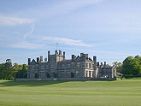
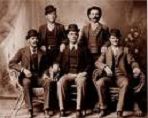





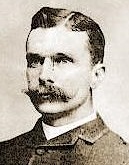






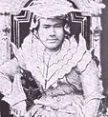













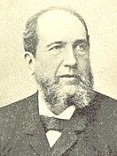
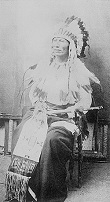







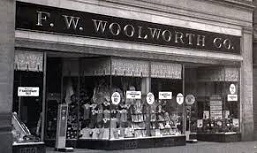


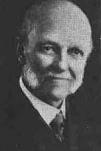

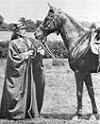


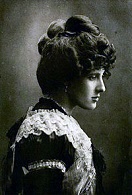


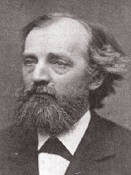

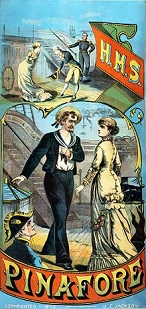






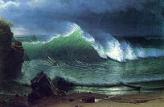

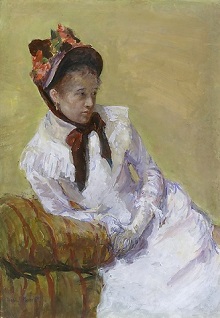
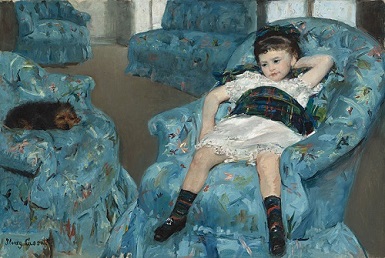
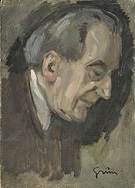
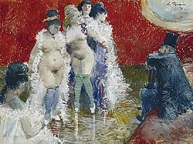

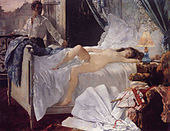
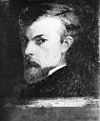




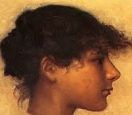
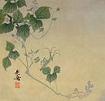
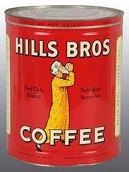
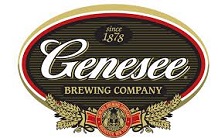
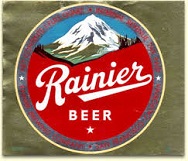
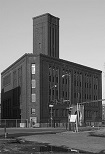

1878 The Gilded Age begins in the U.S. (ends 1889). There is a yellow fever epidemic (Safron Scourge of 1878) in the Lower Miss. River Valley from St. Louis, Mo. S to New Orleans, La., Vicksburg, Miss., and Memphis, Tenn., which loses 5K, depopulating it and causing it to lose its charter, after which it is not reorganized for 14 years; a total of 3,227 are killed and thousands flee, turning Beechland (near Vicksburg), Miss. into a ghost town. The Balk Balk Balkans start pull pull pulling the entire civilized world down the toilet of world war by destabilizing the comfy old Ottoman Empire? On Jan. 5-9 the Fourth (last) Battle of Shipka Pass is a crushing V for the Russkies over the Turks, who appeal for an armistice, while Russian troops take Adrianople and close in on Constantinople, defeating the Turks again on Jan. 17 at the Battle of Plovdiv (Philippopolis); too bad, just as they are closing in, on Jan. 31 a British fleet arrives at the sultan's request in Constantinople amid "jingoist war fever" in Britain, and on Mar. 3 the 1877-8 Russo-Turkish War (begun Apr. 24, 1877) ends with the Peace Treaty of San Stefano (Stephano), which enlarges Bulgaria and gives it autonomy and a territory stretching from the Black Sea to the Aegean Sea under nominal Turkish control, but really puts it under the Russian sphere of influence (incl. a large part of Macedonia), makes Montenegro, Romania, and Serbia independent (until 1918), and secures admin. reforms for Bosnia and Herzegovina under Russian-Austrian supervision; stick-it-with-a-form Turkey is left with only a small strip of territory in Europe, plus a huge indemnity to pay, alarming Britain at Russia's ambitions and causing it to demand that any treaty between Russia and Turkey which alters the treaties of 1856 and 1871 should be with their consent; when Russia refuses, Britain increases armaments and prepares for war, causing Russia to back down and enter the Congress of Berlin (June 13-July 13) to revise the Treaty of San Stefano; on June 4 the Turks cede Cyprus to Britain in return for guarantees of the integrity of Turkey's Asiatic dominions; as they debate how to carve up the Balkans, Bismarck utters the soundbyte that no one had asked the locals involved their opinion; on July 13 the Treaty of Berlin reduces Bulgaria in size and cuts it up into three parts, an autonomous principality N of the Balkans, the semi-autonomous province of Eastern Rumelia S of the Balkans, and Macedonia, which is restored to Turkey; Bosnia and Herzegovina are placed under the admin. control of Austria alone, while remaining nominally parts of Turkey; the Three Emperors' League is disbanded; Britain recommends that Turkey give Greece a more northerly border, and it refuses, pissing-off the Greeks and causing them to declare war; the Ottoman Empire loses 210K sq. km territory (40%) and 5.5M pop. (20%); back home "Dizzy" Disraeli scores a diplomatic triumph, "peace with honour", even though the independent Balkan states fume at the return of Christian-Slav-filled Macedonia to the Muslim Turks, and the Orthodox Serbs in Bosnia and Herzogovina never get along with the Roman Catholic Austrians; Sultan Abdul Hamid II, looking for a way comes up with pan-Islamism to rally the faithful behind him, and assumes the title of caliph - is there an international Jewish Zionist conspiracy running Britain by controlling the press and finances and using it to weaken the Ottomans and permit Jewish resettlement of Israel, while the dumb Muslims who ain't that dumb begin to unite against them, causing the Jews to work to keep them at each other's throats to neutralize them? On Jan. 9 Italian king #1 (since 1861) Victor Emmanuel II (b. 1820) dies, and his son Umberto (Humbert) I (1844-1900) becomes king #2 of Italy, becoming noted for his tranquil and popular reign (until 1896). On Jan. 16 Samoan chiefs sign a Treaty of Friendship and Commerce with the U.S., securing the harbor of Pago Pago as a coaling and naval station, pissing-off Britain and Germany - another large bucket, ten dollars? On June 18 the U.S. Posse Comitatus Act is signed by Pres. Hayes, forbidding the U.S. Army from being used for law enforcement; in 1956 the USAF is added; it does not apply to the nat. guard or U.S. Coast Guard - except when it suits their purposes? On Jan. 28 the first commercial telephone exchange opens in New Haven, Conn. in the Boardman Bldg. On Jan. 31 steamship Metropolis sinks off the coast of N.C. below Whaleshead (Currituck) Light, killing all 102 aboard, causing year-round beach control by the U.S. Coast Guard. In Jan. the 70-ft.-long. 200-ton Egyptian obelisk Cleopatra's Needle (built in Heliopolis in -1460) is towed by the steamship Anglia up the Thames River to cheering crowds after being moved from Alexandria, Egypt at a cost of $75K in the specially designed cigar-shaped 93-ft.-long container ship Cleopatra (built around the needle in Alexandria), towed by the steamship Olga; it almost sunk in the Bay of Biscay, causing six seamen from the Olga to die trying to rescue the crew, and after the Cleopatra was spotted floating off N Spain, it was towed to the port of El Ferrol; in Sept. it is winched into position on the Thames River Embankment to commemorate Britain's glorious Vs over Napoleon 63 years earlier - you had to be there? On Feb. 7 Pope (since 1846) Pius IX (b. 1792) dies, becoming the longest-reigning pope (31.6 years) (until ?), and on Feb. 20 Cardinal Count Gioacchino Vincenzo Pecci is elected Pope (#256) Leo XIII (1810-1903), going on to end the practice of castrating boys for the papal choir - he likes to swallow? On Feb. 16 the silver dollar becomes U.S. tender; too bad, since the early 20th cent. Americans prefer the $1 bill. On Feb. 18 after organized crime boss Lawrence Murphy (1831-78) tries to oust new English-born dry goods store owner John Henry Tunstall (1853-78), the latter is murdered by a sheriff's posse, launching the Lincoln County War in N.M., with Tunstall's cowhands forming the Regulators, incl. Billy the Kid (William F. Bonney) (1859-81) to avenge him; on July 19 they are trapped in a house by U.S. Army troops, who set it on fire, causing a night breakout, with three incl. the Kid escaping and becoming fugitives; on Oct. 1 novelist Lew Wallace becomes gov. of N.M., proclaiming an amnesty for all those involved; too bad, when the Kid surrenders, he is told he will be charged for killing Sheriff William J. Brady (1829-78) on Apr. 1 in an ambush, after which he escapes, trying to hit up cattle baron John Simpson Chisum (1824-84) for $500, and when he refuses he steals his cattle and becomes a rustler with a new gang, causing Chisum to get Patrick Floyd "Pat" Garrett (1850-1908) elected sheriff of Lincoln County in 1880, who wipes them out one by one. On Feb. 22 Rodman, N.Y.-born Frank Winfield "F.W." Woolworth (1852-1919) opens his first five-cent store in Utica, N.Y.; it folds, and in June he opens another in Lancaster, Penn. which prospers, then on July 18, 1979 he changes it to a five-and-dime store, expands nationwide and worldwide, and incorporates as F.W. Woolworth Co. in 1912, with 496 stores in the U.S. and Canada and a market capitalization of $30M; on Nov. 11, 1911 ground is broken for the F.W. Wooloworth Bldg., tallest bldg. in the world (finished 1913); too bad, its lunch counters are segregated in 1960?; the co. goes defunct in July 1997. On Feb. 23 the U.S. Bland-Allison Act (Grand Bland Plan of 1878) passes over Pres. Hayes' veto, requiring the U.S. Treasury to buy a set amount of silver and put it into circulation as silver dollars; since the silver content of the new silver dollars are worth less than a dollar, they begin disappearing from circulation as the wise use them for paying their taxes. On Mar. 13 British radical George Jacob Holyoake (1817-1906) pub. a letter in the Daily News which coins the term "jingoism" based on a song by G.W. Hunt and G.H. MacDermott sung in British pubs during the Russo-Turkish War of 1877-8: "We don't want to fight but by Jingo if we do/ We've got the ships, we've got the men, we've got the money too/ We've fought the Bear before, and while we're Britons true/ The Russians shall not have Constantinople." On Mar. 20 Jewish babe Hannah de Rothschild (1851-90), daughter of Mayer de Rothschild and richest woman in England marries handsome educated up-and-coming blonde Anglo-Saxon blueblood Archibald Philip Primrose, 5th Earl of Rosebery (1847-1929), becoming the biggest social event of the year in Britain, making people face their anti-Semitism as one of the fairest of the Christian Anglo-Saxons begins fathering half-Jewish upper-class breeders and launching them into society from her fabulous mansion Mentmore Towers in Buckinghamshire (built 1852-4) and his fabulous Scottish mansion Dalmeny House (built 1817) on the Firth of Forth; too bad, the Jewish side of her family stands the marriage up, but Disraeli and the Prince of Wales make it a smash; she goes on to become his driving force in politics as an anti-Socialist Liberal Imperialist, helping him rise in Gladstone's Liberal Party with her genuine Jewish money. On Mar. 24 British training frigate Eurydice sinks off the Isle of Wight, killing 300. In Mar. NASA records show this as the hottest month on record (until ?). On Apr. 22 (Easter Mon.) after Congress outlaws the popular practice of Easter egg rolling on the grounds of the U.S. Capitol as too messy, Pres. Rutherford B. Hayes and his wife "Lemonade" Lucy (who bans alcohol and cigar smoking in the White House, but permits alcohol at an 1877 reception for the grand duke of Russia) host the first White House Easter Egg Roll on the White House lawn. On May 1-Nov. 10 the the Exposition Universelle in Paris is visited by 13M. On May 3 the $82M Colo. Silver Boom begins with a strike at Little Pittsburg Mine in Leadville, and lucky Vt.-born Denver, Colo. merchant Horace Austin Warner "Haw" Tabor (1830-99), who had grubstaked its two miners August Riche and George Hook with $17 worth of supplies in return for a one-third share in their future earnings, sells out next year for $1M in cash, using $117K of it to buy the profitable Matchless Mine, becoming a Colo. celeb known as "Silver Dollar Tabor" and "Bonanza King of Leadville", getting elected as Colo. Lt. gov. in 1878-84; too bad, the 1893 repeal of the U.S. Sherman Silver Purchase Act ruins him, but he lucks out with a job as postmaster from Jan. 4, 1898 until he croaks. On July 2 the Crabbet Arabian Stud is established in England when poet-writer Wilfred (Wilfrid) Scawen Blunt (1840-1922) and his wife Lady Anne Blunt (daughter of Ada King, Countess Lovelace, and maternal granddaughter of Lord Byron) bring them from Aleppo, Syria to their Crabbet Park estate in Sussex, later buying more studs from Egyptian breeder Ali Pasha Sherif (-1897) after horse sickness kill thousands in the late 1870s and only the ones he had moved to upper Egypt were saved; their daughter Judith Anne Dorothea Blunt-Lytton, 16th Baroness Wentworth (1873-1957) inherits the horses and became an authority. On July 19 after robbing $60K in gold from the Union Pacific Railroad in Big Springs, Neb. last year (largest single robbery of the Union Pacific until ?), and being betrayed to the Texas Rangers led by Capt. Junius Peak, the Sam Bass Gang is cornered in Round Rock, Tex., and Mitchell, Ind.-born leader Samuel "Sam" Bass (b. 1851) is fatally wounded, dying on July 21, but wounded member Frank "Blockey" Jackson (1856-1930) vanishes and is never apprehended, creating a legend. On July 22 the Spanish-Sulu War (begun 1876) ends with a V for Spain, which establishes suzerainty but never manages admin. control; Sulu's possessions in North Borneo are leased to Britain; Spanish Col. Juan Arolas coins the term "Ajuramentado". On July 29 America's First Great Eclipse is visible in NW Asia, Alaska, W Canada, and Mont. through Tex. in the U.S.; it is observed by author Steve Ruskin from the top of Pikes Peak in Colo., becoming the last time Colo. is in the direct path of a solar eclipse (until ?); the next solar eclipse visible from coast to coast in the U.S. is in 1918. In July German-born Jewish educator Maximilian Berlitz (1852-1921) founds Berlitz Language Schools in Providence, R.I., based on total immersion teaching, going on to expand to 500+ locations in 70+ countries. On Aug. 21 the Am. Bar Assoc. (ABA) is founded in Sarasota, N.Y., with 75 members. In Aug. Nubar Pasha (1825-99) becomes PM #1 of Egypt (until Feb. 23, 1879, then Jan. 10, 1884-June 9, 1888, and Apr. 16, 1894-Nov. 12, 1895). On Sept. 1 in Boston, Mass. Emma Nutt becomes the first female telephone operator - I'm a nut? On Sept. 3 British passenger paddle steamer SS Princess Alice collides with collier Bywell Castle off Tripcock Point on the Thames River, killing 650, becoming the greatest Thames shipping disaster (until ?). On Sept. 10 after being ordered to move to Ft. Reno in WC Okla. to be with the Southern Cheyenne while suffering from starvation and measles, the Northern Cheyenne Exodus (ends Apr. 1879) begins as they flee up the North Canadian River in Okla., crossing the Cimarron River before stopping at St. Jacob's Well in Clark County, Kan. before being attacked on Sept. 27 by 238 U.S. infantry and cavalry under Lt. Col. William H. Lewis, who avoid an ambush at Turkey Springs but see Lewis bleed to death from a shot in the leg, while the Cheyenne lose 60 horses and their food and baggage, going out foraging for supplies and capturing 80 cattle on Sept. 30-Oct. 3 while engaging in a running battle across Kan. and Neb. with 10K soldiers and 3K settlers before splitting into two groups after six weeks; on Oct. 23 the 150-member band of Dull Knife (Morning Star) (1810-83) surrenders, reaching Ft. Robinson in NW Neb. on Oct. 25, only to be starved and deprived of wood ordered on Jan. 3, 1879 to return to the Southern Cheyenne Rez, causing them to attempt an escape on Jan. 9, resulting in the Ft. Robinson Massacre of the last 32 escapees on Jan. 22 by 150 soldiers, after which the remaining Cheyenne in Pine Ridge incl. Dull Knife and Red Cloud are permitted to move to Ft. Keogh in SE Mont. on the S bank of the Yellowstone River; meanwhile the other band led by Little Wolf (Coyote) (1820-1904) make it to the Sand Hills of Neb., enjoying plentiful game until they are discovered by troops from Ft. Keogh, who get them to surrender and become Army scouts; in 1884 the 440K-acre Northern Cheyenne Indian Rez is founded in SE Mont. On Oct. 1 Burmese king (since 1853) Mindon Min (b. 1808) dies, and after he massacres all his rivals, his Buddhist monk son Thibaw Min (1859-1916) becomes the last Konbaung Dynasty king of Burma (until Nov. 29, 1885). On Oct. 15 Thomas Edison founds the Edison Electric Light Co. In Oct. the Halepa Pact provides for a nat. assembly in Ottoman-controlled Crete with a Christian majority. On Nov. 2 after Afghanistan accepts a Russian diplomatic mission led by Maj. Gen. Stoletov, the antsy British demand the acceptance of a resident British adviser; after Afghan ruler Shir Ali ignores the ultimatum, the Second Anglo-Afghan War begins (ends 1880); in Nov. the British invade Afghanistan, and force the Khyber Pass, then force Ali into exile in Russian territory after naming his son Mohammed (Muhammad) Yaqub Khan (1849-1923) as regent. On Nov. 13 Natchez, Miss.-born coloratura soprano Marie Selika Williams (1849-1937) becomes the first African-Am. artist to perform in the White House (Green Room) for Pres. Rutherford B. Hayes and First Lady Lucy Webb Hayes. On Nov. 27 Candido (Cándido) (Sp. "white") Bareiro Caballero (1833-80) is elected pres. of Paraguay (until Sept. 4, 1880), getting U.S. pres. Rutherford B. Hayes to support the country's claim to the Chaco, setting up an arbitration that hands Paraguay 60% of its land, after which Hayes becomes a big hero in Paraguay, with a province, a town, a museum, and a soccer team eventually named for him. In Nov. the Nat. Greenback Party gets 14 U.S. congressmen elected. On Dec. 10 The Truth Seeker ed. D.M. Bennett is arrested by U.S. postal inspector Anthony Comtock for mailing the free love pamphlet Cupid's Yokes: or, The Binding Forces of Conjugal Life: An Essay to Consider Some Moral and Physiological Phases of Love and Marriage, Wherein is Asserted the Natural Right and Necessity of Sexual Self-Government under the 1873 U.S. Comstock Act, after his highly publicized trial he served 13 mo. in Albany Penitentiary, which ruins his health; meanwhile a campaign to get Pres. Hayes to pardon him fizzles after he pardons the pamphlet's author Ezra Hervey Heywood (1829-93) (who was arrested last Nov. 3 for mailing the pamphlet) instead, who on July 2 decides to begin calling the year 1873 "Y.L. (Year of Love) 1", and years before that "B.L." On Dec. 18 French steamship Byzantin collides with British steamship Rinaldo in the Dardanelles and sinks, killing 210. An attempt is made on the life of German Kaiser Wilhelm I; Bismarck's Kulturkampf begins to gradually fade away, and his Anti-Socialist Law causes another mass emigration from Germany to the U.S. Gen. Charles George "Chinese" Gordon appoints Emin Pasha (1840-92) (birth name Eduard Schnitzer, a German surgeon who converted to Islam in 1865 and joined the Turkish army) as gov. of Sudan's equatorial province. In Britain the 65-folio-page Factory and Workshop Act codifies the legislation with regard to the hours and conditions of British labor. John Alexander Macdonald becomes PM of Canada again (#1 and #3) (until 1892). The Irredentists in Italy begin agitating to obtain Trieste and South Tirol from Austria. The Greeks declare war on Turkey, but before major hostilities begin the great Euro powers intervene and tell Turkey to give Thessaly and part of Epirus to Greece to shut them up, but Turkey later reneges at giving all of it up, pissing-off the Greeks yet again. Rrebel leader Calixto Garcia Iniguez is released, returns to Cuba and resumes the Ten Years' War, then is captured again and taken back to Spain (until 1895), ending the Ten Years' War (begun 1868). The Commission for Refugees is established by the Ottoman govt. to deal with 1.5M-2M Muslim refugees from the Balkans that began arriving in 1876, followed in 1881-1914 by 500K Circassians from the Caucasus, plus thousands more from Crete in 1897. A constitutional amendment giving women the right to vote in all elections is introduced in the U.S. Congress by Repubs., and is regularly defeated through 1915 mainly because of opposition by Dems. After her hubby (since 1860) William Weldon (1837-1919) begins hooking up with mistress Annie Stanley Dobson Lowe (1843-) in 1863 and she takes up spiritualism and allegedly hooks up with Charles Gonoud, famous English amateur soprano Mrs. Georgina Weldon (1837-1914) is attempted to be committed to a lunatic asylum run by famous English psychiatrist Lyttleton Stewart Forbes Winslow (1844-1913), and she fights back by filing numerous libel cases, becoming one of the most notorious court cases of the cent. The town of Berkeley, Calif. on the E shore of San Francisco Bay is founded, named after Anglican bishop George Berkeley (1685-1753). The Norwegian city of Christiania (founded 1624) is extended to the site of the old Oslo and incorporated as Kristiania (until 1925). Bishkek S of the Ala-Too Mts. in Kyrgyzstan is founded as the Russian fortress of Pishpek. Petah Tikva (Heb. "Opening of Hope") (from Hosea 2:17) (modern-day pop. 194K) in the Anchor Valley near Jericho in C Israel is founded as the first modern Jewish agricultural settlement in Ottoman-controlled Palestine; too bad, the sultan kicks them out, and they resettle near the source of the Yarkon River in the middle of a malarial swamp 7 mi. E of Tel Aviv, which forces them out until 1883 after Baron Edmond de Rothschild pays to drain it; the first Arab attack on Jews in Palestine occurs here in 1886, followed by Arab rioting in May 1921. The Tokyo Stock Exchange in Japan is founded. Roman Catholic Duquesne U. (originally Pittsburgh Catholic College of the Holy Ghost) in Pittsburgh, Penn. is founded in Oct.; is founded it becomes the first Roman Catholic univ. in Penn. The English journal Brain is founded by Sir John Charles Bucknill et al. German historian Heinrich Gotthard von Treitschke (1834-96) founds the German white racist anti-Semite movement. Berlin court preacher Adolf Stocker (Stöcker) (1835-1909) founds Christlich-Soziale Arbeiterpartei. "General" William Bramell Booth (1829-1912) founds the Salvation Army, known in 1865 as the Christian Revival Assoc. (Mission), and before that as the East London Revival Society. U.S. Gen. John Pope (1822-92) (loser of 2nd Bull Run in 1862) delivers an Address about the Indian Question to the Social Science Assoc. in Cincinnati, Ohio. Prince Peter Kropotkin (1842-1921), who left a Siberian Cossack regiment in 1867 to work for the Russian Geographic Society in St. Petersburg, became an anarchist, ended up in prison from 1874-6, then moved to Switzerland via London, finally gets a job, becomiing ed. of Le Revolte, official organ of the Jurassic Federation (until 1881). Hungarian Jewish immigrant Joseph "Joey the German/Jew" Pulitzer (1847-1911), who arrived in Boston, Mass. in 1864 and joined the Lincoln Cavalry, riding with Gen. William Tecumseh Sherman, becoming a naturalized U.S. citizen on Mar. 6, 1867 then started in 1868 as a reporter on the Westliche Post in St. Louis, Mo., joining the Repub. Party in 1869 and becoming a Mo. state rep. on Jan. 5, 1870 before switching to the Dem. Party in 1872 buys the St. Louis Evening Dispatch and St. Louis Evening Post, merging them into the St. Louis Post-Dispatch, its initial ed. of 4,020 4-page copies appearing on Dec. 12, turning it into the first modern newspaper to focus on scandals, pioneering yellow journalism; after acquiring the New York World in 1883, he has a breakdown from overwork in 1887 and goes blind, but just hops onto cruise ships and continues supervising his empire; on Apr. 10, 1907 he pub. the paper's platform: "I know that my retirement will make no difference in its cardinal principles, that it will always fight for progress and reform, never tolerate injustice or corruption, always fight demagogues of all parties, never belong to any party, always oppose privileged classes and public plunderers, never lack sympathy with the poor, always remain devoted to the public welfare, never be satisfied with merely printing news, always be drastically independent, never be afraid to attack wrong, whether by predatory plutocracy or predatory poverty." Jesuit Creighton College in Omaha, Neb. is founded. The first Sicilian immigrants arrive in East Harlem, Lower East Side, N.Y., followed by more Sicilians and Italians, becoming known as Italian Harlem, reaching 100K pop. in the 1930s, becoming the start of Lower Italy in Lower Manhattan, bounded by Soho and Tribeca on the W, Chinatown on the S, Nolita on the N, and Lower East Side and the Bowery on the E, reaching 10K pop. by 1910; Italian Harlem becomes home to Mafia gangs incl. the Black Hand and the Genovese crime family; after WWI the W side of East Harlem becomes known as Spanish Harlem for its Puerto Rican and Latin Am. immigrants, who push the Italians out of all of Italian Harlem by the 1970s, renaming it El Barrio. Shiites and Sunnis in Doshipura, Varanasi, India begin a court fight over a graveyard, which becomes the world's longest litigation, not settled until ? U.S. Gen. William Tecumseh Sherman builds a fort on the future site of Coeur d'Alene (Fr. "heart of an awl"), Idaho on the N shore of 25-mi.-long Lake Coeur d'Alene 30 mi. E of Spokane, Wash. (modern-day pop. 50K/679K), attracting miners and settlers after gold, silver, and lead are discovered in 1883. P.T. Barnum's secy. Julius Gorham purchases Villa Park in W Denver, Colo., and his daughter Helen manages it with her TB-stricken husband William Buchtel, and since it's on the wrong side of the tracks and the elite fail to move in, it goes middle class and is incorporated in 1887 as the town of Barnum, then annexed by Denver in 1896; Denver Mile High Stadium is later built 1 mi. to the N. Marian Evans (George Eliot) (d. 1880) loses her constant companion and adviser Mr. Lewes. Novelist Bret Harte (1836-1902), having moved to New York City to write for the Atlantic Monthly, and squandered his fortune, is appointed U.S. consul at Crefeld, Prussia, transferring to Glasgow, Scotland in 1880-5, then becoming a hack writer in London. After experiencing financial difficulties, French painter Claude Monet moves his family to Vetheuil (until 1883), moving in with Ernest Hoschede's family then cranking out paintings of his garden. Edward Wyllis Scripps (1854-1926) founds the "Penny Press" in Cleveland, Ohio, which later becomes the "Cleveland Press", launching the E.W. Scripps Co. media empire by lending money to new newspapers in return for 51% of the stock. Mannlicher of Germany begins manufacturing a repeating rifle. English-born mathematician James Joseph Sylvester (1814-97) of John Hopkins U. founds the Am. Journal of Mathematics. After seeing them at the 1876 Philadelphia Exposition, Boston, Mass.-born U.S. Civil War vet Albert Augustus Pope (1843-1909) begins importing European Penny Farthings and manufacturing the first bicycles in the U.S. Cocaine is introduced from coca plants in the Andes into the U.S. as a treatment for morphine addiction. The U.S. Mint in New Orleans, La. begins striking Morgan Silver Dollars (until 1904); too bad, in 1918 the U.S. govt. melts almost half of the mintage, making it into a big collector's item. The word "bug" is first used to describe a defect by Thomas Edison in a letter, with the soundbyte: "It has been just so in all of my inventions. The first step is an intuition, and comes with a burst, then difficulties arise - this thing gives out and [it is] then that "Bugs" - as such little faults and difficulties are called - show themselves and months of intense watching, study and labor are requisite before commercial success or failure is certainly reached." The Silver Street Free Kindergarten, first free kindergarten in San Francisco, Calif. is founded by Philly-born Kate Douglas Wiggin (1856-1923), who in 1903 pub. the novel "Rebecca of Sunnybrook Farm". The first crematorium in Europe is built in Gotha, Germany. Trading cards and coupons begin to be widely used in cigarette packs. Hills Brothers Coffee (originally Arabian Coffee and Spice Mills) is founded in San Francisco, Calif. by the three sons of clipper shipbuilder Austin Hills (1823-1905), incl. Austin Herbert Mills (1851-1933), Earnest Hills, and Reuben Wilmarth Hills I (1856-1934); in 1900 they begin selling their roasted coffee in vacuum-sealed cans, incorporating in 1906, and moving to a Romanesque-revival bldg. on the Emarcadero designed by George W. Kelham in 1926; in 1906 they begin using a logo of an Arab named Taster drinking coffee, which in 1990 is replaced by the original founders; during WWII they replace the cans with glass jars; in 1984 they acquire Chase & Sanborn; in 1985 the brand is acquired by Nestle, who sells it to Sara Lee in 1999, which sells it in 2006 to Massimo Zanetti Beverage USA. Genesee Brewing Co. is founded on the Genesee River in Rochester, N.Y. from the acquisition of Reisky & Spies (founded 1857); in 1960 it introduces Genesee Cream Ale, which wins two straight gold medals at the Great Am. Beer Festival; in Dec. 1984 it acquires the Fred Koch Brewery from Vaux Breweries of Sunderland, England, reaching 3.2M barrels/year; in 2000-9 it is renamed the High Falls Brewing Co.; in 2009 it is acquired by KPS Capital, which merges with Labatt USA to form North Am. Breweries, which in Oct. 2012 is acquired by Cerveceria Costa Rica S.A., becoming the 6th largest brewing co. in the U.S. Rainier Brewing Co. (originally the Washington Brewery, then Seattle Brewery in 1872)) (Seattle's first commercial brewing co.) is founded in Seattle, Wash. by A.B. Rabbeson to produce Rainier brand beer; in 1916 Wash. enacts prohibition, causing them to move to San Francisco, Calif., only to close in 1920 when nat. Prohibition is enacted; after Prohibition ends, the co. is acquired by Fritz Slick and Emil Slick of Lethbridge, Alberta, Canada, and production of Rainier beer is resumed in 1935 at a site that ends up being crossed by interstate highway I-5, making it a city landmark with its red neon R sign on top of the bldg.; in 1977 it is acquired by Heileman; in 1990 it wins a gold medal for best Am.-style lager at the Great Am. Beer Festival; in 1997 it is acquired by Stroh's, who sells it to Pabst, who closes it in 1999. The Peter Schoenhofen Brewing Co. is founded in the Pilsen neighborhood of Lower West Side, Chicago, Ill. by brewer Peter Schoenhofen, using a 1.6K-ft. deep artesian well for its water supply, and locating not in the city center but along the new railway lines, causing a boom, after which there are 60 breweries in Chicago by 1900 producing a total of 100M gal./year. Sports: The Bicycle Touring Club is founded in England. The Deutscher Fussballverein is founded in Hanover. Architecture: French architect Jean-Louis Charles Garnier (1825-98) designs the Monte Carlo Casino. Inventions: Wasserburg am Inn, Bavaria-born Lorenz Adalbert Enzinger (1849-97) of Worms, Germany patents a filtration device for beer, giving it clarity and longer shelf life; on Nov. 9, 1880 U.S. patent #519,513 is issued for a machine that dispenses beer with carbon dioxide rather than air, extending shelf life. Upper and lower case letters are added to the Sholes typewriter (invented 1867). The first Telephone Directory is issued by the District Telephone Co. of New Haven, Conn. on Feb. 21; it lists 50 names. German engineer Karl Benz (1844-1929) builds a motorized tricycle with a 2-cycle internal combustion engine and a top speed of 7 mph; he later develops a light 4-cycle engine and the differential drive. English chemist-physicist Sir William Crookes (1832-1919) invents the Cathode Ray (Crookes) Tube (CRT), which requires a vacuum of one twenty-thousandth of atmospheric pressure (0.03 mm Hg), and shows that the rays travel in straight lines that can be deflected by a magnet, then uses the beam to heat metals, turn a small wheel, and excite fluorescence - Star Trek coming right up? Stephen Dudley Field (1846-1913) of Stockbridge, Mass. invents an electric elevator. Internat. Standard Time (IST) is invented by Scottish-born Sir Sandford Fleming (1827-1915) of Canada. Williams College grad Granville Stanley Hall (1844-1924) receives the first Ph.D in a psychological subject from Harvard U. (in philosophy); in 1883 he opens the first experimental psychology research lab in the U.S. at John Hopkins U.; in 1887 he founds the Am. Journal of Psychology, and in 1892 becomes pres. #1 of the Am. Psychological Assoc. (APA), founded at Clark U. in Worcester, Mass. in July by 26 men with a $500 contribution by Robert Pearsall Smith of the Am. Society for Psychical Research. Welsh inventor David Edward Hughes (1831-1900) uses a "clockwork transmitter" to transmit and receive Morse code using radio waves; he also invents the carbon microphone. Litchfield, Conn.-born Frederick Eugene Ives (1856-1937), dir. since age 18 of the Cornell U. photo lab invents the Half-Tone Photoengraving Process, patenting it in 1881 - where's Currier? Sir Joseph Wilson Swann (1828-1914) of England, who invented the carbon-filment incandescent lamp in 1860 puts it in an all-glass hermetically sealed glass bulb, and patents it one year before Edison. Science: Iodoform is first used as an antiseptic. The Carrion (Corpse) Flower (Titan arum) is discovered in the rainforests of Sumatra, with the world's largest flower head, which generates a rotten flesh odor to attract carrion-eating beetles and flies. In 1871 Russian-born German mathematician Georg Cantor (1845-1918) proposes the Continuum Hypothesis, that there is no set whose cardinality is strictly between that of the integers and that of the real numbers, which his teacher Leopold Kronecker vehemently opposes, causing him to spend the rest of his life vainly trying to prove it, driving him insane. Swiss chemists Marc Delafotaine (1837-1911) and Jacques-Louis Soret (1827-90) discover rare-earth element Holmium (Ho) (#67) (43rd most abundant element in the Earth's crust) in the spectrum of gadolinite; in 1879 Swedish chemist Per Teodor Cleve (1840-1905) chemically separates it from thulium and erbium - so rare it would take a Holmes to find it? Felix Hoffman rediscovers aspirin after 41 years of research. Swiss chemist Jean Charles Galissard de Marignac (1817-94) isolates soft silver metallic rare earth element Ytterbium (Yb) (#70) from pure erbia, and names it after Ytterby, the Swedish town where he found it. Nonfiction: A.W. Ambros, Geschichte der Musik (1862-78). Paul Bert (1833-86), La Pressions Barometrique (Barométrique); describes and diagnoses Decompression Sickness after discovering that decompression bubbles are mostly nitrogen. W.L. Blackley (1836-1902), National Insurance in the Nineteenth Century; a British churchman proposes a scheme for old-age pensions. Rev. William Eugene Blackstone (1841-1935), Jesus Is Coming; internat. Christian bestseller. Oscar Browning (1837-1923), Modern England, 1820-1874. Sir John Charles Bucknill (1817-97), Habitual Drunkenness and Insane Drunkards. Samuel Butler (1835-1902), Life and Habit; study in Darwinism. Moncure D. Conway (1832-1907), Demonology and Devil Lore (2 vols.). Thomas McIntyre Cooley (1824-98), A Treatise on the Law of Torts or the Wrongs Which Arise Independently of Contract; becomes a std. textbook. Andrew Jackson Davis (1826-1910), Views of Our Heavenly Home. William Henry Draper (1811-82), Scientific Memoirs. Urbain Dubois (1818-1901), Nouvelle Cuisine bourgeoise pour la ville et pour la campagne. Elisha Gray (1835-1901), Experimental Researches in Electro-Harmonic Telegraphy and Telephony. Sir George Grove (1820-1900), Dictionary of Music and Musicians (1878-89); by the ed. of Macmillan's Mag.; becomes a std. reference; a rev. ed. "New Grove" is pub. in 1980. William Stanley Jevons (1835-82), Commercial Crises and Sunspots; finds a correlation. Fanny Kemble (1809-93), Records of a Girlhood. Stanley Lane-Poole (1854-1931), The People of Turkey. W.E.H. Lecky (1838-1903), History of England in the Eighteenth Century (8 vols.) (1878-90); devotes half of his space to Irish affairs. Bon Louis Henri Martin (1810-83), History of France from 1789 to the Present Time (Histoire de France Depuis 1789 Jusqu'a Nos Jous) (6 vols.) (1878-83); finishes his asterpiece on French history, becoming the definitive one of the 19th cent.; too bad, he relies on romanticized descriptions of the Gauls, and his knowledge of the Middle Ages is inadequate, causing his magnum opus to be superseded. William Morris (1834-96), The Decorative Arts. Eadweard Muybridge (1830-1904), The Horse in Motion. John Henry Newman (1801-90), Essay on the Development of Christian Doctrine; tries to explain and excuse the absorption of pagan doctrines, rituals, and symbols by the Roman Catholic Church by "the power of Christianity to resist the infection of evil, and to transmute the very instruments and appendages of demon worship to an evangelical use" - is that like upgrading from analog to digital? Friedrich Wilhelm Nietzsche (1844-1900), Human, All Too Human: A Book for Free Spirits (Menschliches-Allzu Menschliches) (2 vols.) (1878-80); dedicated to the 100th anniv. of the death of Voltaire on May 30, 1778 - raising the bar? William O'Brien (1852-1928), Christmas in the Galtees (Freeman's Journal); describes the "shock horror" conditions in which the Irish are forced to live by the English, based on the tenants of the Buckley Estate on the S slopes of the Galtee Mts., writing the book after being acquitted of a libel action brought by the land agent Patten Bridge; "The Widow Condon spent Christmas night, having begged a meal of bread and tea from her neighbours as her Christmas dinner. Her holding is one swampy field upon which the rent has been raised from 2/6 to 25/-. She spent 30/- for manure and 10/- for labour in an attempt to grow a quarter of an acre of potatoes, but it produced not a stone... She hasn't a cow, sheep or even a hen... As I drove away this evening to Cahir, past Lord Lismore's ample demesne, past the rich expanses of luxuriant grass and deep corn... it was hard to think that I still breathed the air of the same county." Charles Sanders Peirce (1839-1914), How to Make Our Ideas Clear; introduces the philosophy of Pragmatism, which bases the validity, importance, significance, and truth of an object or concept solely on its use or application; based on an article in the Jan. 1878 issue of "Popular Science Monthly" - it's no use? Raoul Pictet (1846-1929), Mémoire sur la liquefaction de l'oxygène, la liquefaction et la solidification de l'hydrogène: et sur les théories des changement des corps (Memoir of the liquefaction of oxygen and hydrogen, and theories about their changes of state). Walter Herries Pollock (1850-1926), The Modern French Theatre. Ernest Renan (1823-92), Caliban; analysis of William Shakespeare's "A Midsummer Night's Dream"; Caliban represents democracy, Prospero autocracy, and Ariel the religious establishment, which flourishes in the service of Prospero under the govt. of the many-headed brute Caliban. George John Romanes (1848-94), A Candid Examination of Theism. Philip Schaff (1819-93), Through Bible Lands: Notes of Travel in Egypt, the Desert, and Palestine. Sir John Robert Seeley (1834-95), Life and Times of Stein: Or, Germany and Prussia in the Napoleonic Age (3 vols.). Ainsworth Rand Spofford (1825-1908), American Almanac and Treasury of Facts (1878-89); compiled by a librarian with a lot of time on his hands. Henry Morton Stanley (1841-1904), Through the Dark Continent: The Sources of the Nile Around the Great Lakes of Equatorial Africa and Down the Livingstone River to the Atlantic Ocean (2 vols.); coins the term "dark continent" for Africa. Sir Leslie Stephen (1832-1904), Samuel Johnson. Eugene Emmanuel Viollet-le-Duc (1814-79), Histoire d'un Hotel de Ville et d'une Cathedrale. Julius Wellhausen (1844-1918), Prolegomena to the History of Israel, Vol. 1 (Prolegomena zur Geschichte Israels, Bd. 1) (2nd ed. 1883) (3rd ed. 1886) (5th ed. 1899) (English trans. 1883, 1891) (2nd vol. in 1894); advances the Graf-Wellhausen (Documentary) Hypothesis for the Torah, namely, that it is a compilation of independent works by the Jahwist (J), Elohist (E), Deuteronomist (D), and Priestly (P) sources, dating J to the Solomonic period (950 B.C.E.), E to the 9th cent. B.C.E., D just before the reign of King Josiah in the 7th-8th cent. B.C.E., and P to Ezra's day in the 5th cent. B.C.E., which becomes the std. for Bible scholars until the mid-1970s, which date J to the Baylonian captivity (597-539 B.C.E.) at the latest, and reject the E source, finding the D and P sources doubtful. Music: James Alan Bland (1854-1911), Carry Me Back to Old Virginny; becomes the Va. state song in 1940-97; a Victor recording by Alma Gluck in 1916 sells 1M copies. Johannes Brahms (1833-97), Concerto No. 2 for Piano and Orchestra (1878-81). Antonin Dvorak (1841-1904), The Peasant Rogue, Op. 35 (comic opera) (Jan. 27) (Czech Theatre, Prague); libretto by J.O. Vesely; story cloned from Figaro, about a prince who wants to seduce Betuska, who is in love with Jenik, after which the princess dresses up as Betuska to trap him; Slavonic Dances, Op. 46 (1st series) (2nd series 1886); incl. Slavonic Dance No. 1, Slavonic Dance No. 2 in E minor, Slavonic Dance No. 3, Slavonic Dance No. 4 in F major, Slavonic Dance No. 5 in A major, Slavonic Dance No. 6 in D major, Slavonic Dance No. 7. Sir William Schwenck Gilbert (1836-1911) and Sir Arthur Sullivan (1842-1900), H.M.S. Pinafore; or, The Lass That Loved A Sailor (comic operetta #4) (May 25) (Opera Comique, London) (571 perf.); their first big hit; Royal Navy Capt. Corcoran's daughter Josephine is in love with low class foremast hand Ralph Rackstraw, "smartest lad in all the fleet", while her daddy wants her to marry the incompetent first lord of the admiralty Sir Joseph Porter; features the songs He Is an Englishman, I Am the Monarch of the Sea. the debut of actress-singer Lillian Russell (1861-1922), who becomes the Anglo-Am. ideal of beauty for the rest of the cent. Charles Gounod (1818-93), Polyeucte (opera) (Oct. 7); Armenian noble Polyeucte and his wife Pauline and her ex-beau gen. Severe. Naphtali Herz Imber (1856-1909), Hatikvah (Heb. "The Hope"); the Jewish hope for return to Israel; becomes the Israeli nat. anthem. Bedrich Smetana (1824-84), The Secret (opera); Bezdez town councilor Malina refuses fellow councilor Kalina permission to marry his sister Roza for being too poor, and he marries another, who dies, while she fends off old fart soldier Bonifac; meanwhile friar Barnabas has a map to a secret treasure that makes Kalina rich enough to finally marry her, namely, her. Art: Alfred Bierstadt (1830-1902), Emerald Sea. Arnold Bocklin (1827-1901), Medusa. Charles-Francois Daubigny (1817-78), Return of the Flock - Moonlight. Mary Cassatt (1844-1926), Self-Portrait; Little Girl in a Blue Armchair. Luis Falero (1851-96), Vision of Faust; Witches on the Sabbath; The Enchantress. Jean-Louis Forain (1852-1931), Le Client o Maison Close. Henri Gervex (1852-1929), Rolla; based on a poem by Alfred de Musset; a naked ho stretches in bed after servicing a client; rejected by the Salon de Paris for immortality, making it more popular? George Inness (1825-94), Autumn Oaks. Jozef Israels (1824-1911), We Grow Old. Jule Joseph Lefebvre (1836-1911), Mignon; Graziella. Frederick Leighton (1830-96), Nausicaa. Jean-Louis Meissonier (1815-91), Cuirassiers of 1805; Moireau and His Staff before Hohenlinden; Road to La Salice; Portrait of a Lady; The Outpost of the Grand Guard; The Two Friends; A Scout; Dictating His Memoirs. Mihaly Munkacsy (1844-1900), The Blind Milton Dictating Paradise Lost To His Daughters. Odilon Redon (1840-1916), To Edgar Poe: The Eye Balloon (The Eye, Like a Strange Balloon, Mounts Toward Infinity. Felicien Rops (1833-98), Pornocrates. John Singer Sargent (1856-1925), Head of Anacapri Girl; his favorite model Rosina Ferrara (1861-1934) of Ancapri, Capri. Hamo Thornycroft (1850-1925), Lot's Wife (statue). Shibata Zeshin, Praying Mantis on Vine. Plays: Sir Francis Burnand (1836-1917), Proof; Our Club. Bronson Crocker Howard (1842-1908), The Banker's Daughter (romance); proves popular enough to convince him to go full-time as a playwright; Old Love Letters. Maurus Jokai (1825-1904), Milton. Catulle Mendes (1841-1909), Le Capitaine Fracasse; based on the novel by Theophile Gautiers. Poetry: Robert Browning (1812-89), The Agamemnon of Aeschylus. Giosue Carducci (1835-1907), Odi Barbare (1877-89). Henry Austin Dobson (1840-1921), Proverbs in Porcelain likes to use French verse forms (rondeau, triolet, ballade) in English. Emanuel von Geibel (1815-84), Spatherbstblatter. Olindo Guerrini (1845-1916), Postuma; pub. under alias Argia Sbolenfi; criticized for obscenity. Victor Hugo (1802-85), L'Art d'Etre Grandpere. Lewis Morris (1833-1907), The Epic of Hades. Jan Neruda (1834-91), Cosmic Songs; Ballads and Romances (1878-83). Joaquin Miller (1837-1913), Songs of Italy. George Moore (1852-1933), Flowers of Passion; written in Paris. Coventry Patmore (1823-96), The Unknown Eros. Jean Richepin (1849-1926), Les Caresses. Algernon Charles Swinburne (1837-1909), Poems and Ballads, 2nd ed.; tones down the 1866 first ed. Bayard Taylor (1825-78), Prince Deukalion: A Lyrical Drama (Boston). Novels: William Harrison Ainsworth (1805-82), An Open Verdict. Louis May Alcott (1832-88), Under the Lilacs; children's novel about Bab, Betty, circus runaway Ben Brown, his dog Sancho, neighbor Miss Celia and her brother Thornton. Sarah Bernhardt (1844-1923), In the Clouds; her only novel, based on a hot-air balloon trip in 1877 with balloonist Louis Godard and French painter Georges Clarin; she calls herself Doña Sol. Walter Besant (1836-1901) and James Rice (1843-82), Celia's Arbour: A Tale of Portsmouth Town (3 vols.); The Monks of Thelema (3 vols.). Mary Elizabeth Braddon (1837-1915), An Open Verdict. Bankim Chandra Chatterji (1838-94), Krishna Kanta's Will. Wilkie Collins (1824-89), The Haunted Hotel. Theodor Fontane (1819-98), Vor dem Sturm. Arne Garborg (1851-1924), A Freethinker. Benito Perez Galdos (1843-1920), Marianela; man regains sight lost since infancy, and turns on his best friend Marianela because she's ugly. Thomas Hardy (1840-1928), The Return of the Native; "A Saturday afternoon in November was approaching the time of twilight, and the vast tract of unenclosed wild known as Egdon Heath embrowned itself moment by moment" (opening line); Diggory Venn the reddleman (a marker of sheep flocks with red ochre, causing his skin to turn red, making him the man no woman wants, of course?) and his unobtainable love Thomasin Yeobright leave Egdon Heath in Dorsetshire on Guy Fawkes (Bonfire) (Fireworks) Night (Nov. 5) in a dog cart to marry her to horny innkeeper Damon Wildleve of the Quiet Woman (whose sign shows a decapitated woman holding her own head), who is gaga about raven-haired babe Eustacia Vye from fashionable Budmouth, but decides to marry Thomasin after finding out that Eustacia's in love with Thomasin's cousin diamond merchant Clym Yeobright, a native who just returned from Paris, and thinks he will take her away from the cruddy heath; too bad, after the two marriages, Clym decides to stay and become a lowly schoolmaster, loses his sight, and takes up furze cutting to make ends meet, while Damon inherits some dough, causing Eustacia to consider switching horses in midstream; enter Clym's Bible-thumping mother, who visits just as Damon is sneaking by to make a proposition, causing a panic attack by Eustacia, who hides Damon in the back while refusing to answer the door, causing mom to get pissed and walk back home to Bloom's End flustered, then get bit by an adder and croak, causing Clym to blame Eustacia, allowing Damon to talk her into leaving him on guess what night, not to be his wife but his mistress, but Anglo-Saxon sex guilt causes her to drown herself in Shadwater Weir, while Damon drowns trying to save her, and Diggory saves Clym's life, after which Clym becomes an itinerant preacher and Diggory marries his babe Thomasin and becomes a dairy farmer and whitens his skin and makes big milk, becoming the true returning native? Margaret Wolfe Hungerford (1855-97), Molly Bawn; coins the phrase "Beauty is in the eye of the beholder." Gottfried Keller (1819-90), Zuricher Novellen Conrad Ferdinand Meyer (1825-98), The Shot from the Pulpit (Der Schuss von der Kanzel). Petroleum V. Nasby (1833-88), A Paper City. Jan Neruda (1834-91), Stories of the Little Quarter (short stories); establishes him as the Czech Dickens? Jose Maria Eca de Queiroz (1845-1900), Cousin Basil. Raffi (1835-88), Jallaleddin. Jean Richepin (1849-1926), Madame Andre. Edward Payson Roe (1838-88), A Face Illumined. Leopold von Sacher-Masoch (1836-95), The New Hiob; Jewish Stories; The Republic of Women's Enemies. Rene Sully-Prudhomme (1839-1907), La Justice. Jaroslav Vrchlicky (1853-1912), Spirit and the World. Births: Danish queueing theory mathematician Agner Krarup Erlang (d. 1929) on Jan. 1 in Lonborg. Am. "On the Mall" bandleader-composer (Jewish) Edwin Franko Goldman on Jan. 1 in Louisville, Ky.; father of Richard Franko Goldman (1910-80). Welsh Post-Impressionist painter-etcher Augustus Edwin John (d. 1961) on Jan. 4 in Tenby, Pembrokeshire; settles in Martigues, Provence in 1910-28, where he seeks out the Gypsies (Roma). Am. "City of the Big Shoulders", "Chicago Poems", "Cornhuskers", "Smoke and Steel" poet-writer-children's writer-ed. and urban folk singer (Socialist) Carl August "Charlie" "Charles" Sandburg (d. 1967) on Jan. 6 in Galesburg (near Chicago), Ill.; Swedish descent parents August Sandberg and Clara Johnson; leaves school at age 13, serves in the Spanish-Am. War, graduates from Lombard College, works as a hotel servant in Denver, Colo. and coal-heaver in Omaha, Neb. before joining the Chicago Daily News, going on to wax lyrical about stinkin' Chicago before moving to Connemara in Flat Rock, N.C. in 1945 and cranking out more hits; first white man to be honored with the NAACP's Silver Plaque Award as a "major prophet of civil rights in our time". Am. psychologist (founder of Behaviorism) John Broadus Watson (d. 1958) on Jan. 8 in Travelers Rest, S.C.; grows up in Greenville, S.C.; educated at Furman U., and Chicago U. (their first Ph.D in psychology). Am. "Johnny Belinda" playwright-screenwriter Elmer Blaney Harris (d. 1966) on Jan. 11 in Chicago, Ill.; educated at UCB. Greek PM (1925-6) and pres. (1926) Lt. Gen. Theodoros Pangalos (d. 1952) on Jan. 11 in Salamis. Hungarian "Carousel" playwright-novelist (Jewish) Ferenc Molnar (Molnár) (Neumann) (d. 1952) on Jan. 12 in Budapest; emigrates to the U.S. in 1940. Am. "Pres. of the Senate in Mr. Smith Goes to Washington" actor Harry Carey Sr. (Henry DeWitt Carey II) (d. 1947) on Jan. 16 in Bronx, N.Y.; husband (1920-47) of Olive Carey (1896-1988); father of Harry Carey Jr. (1921-); appears with his son in "Red River" (1948). Scottish "Balthazar in Ben Hur", "Abel Magwitch in Great Expectations" actor Finlay (Gael. "fair-haired courageous") Jefferson (William Finlay) Currie (d. 1968) on Jan. 20 in Edinburgh; husband of Maude Courtney (1884-1959); educated at George Watson's College. English lyricist Percy Greenbank (d. 1968) on Jan. 24 in London; brother of Harry Greenbank (1865-99). French "The Nyctalope" comic book writer Jean de La Hire (Comte Adolphe d'Espie) (d. 1956) on Jan. 28 in Nice. Am. electrical engineer (inventor of the high frequency alternator) Ernst Frederick Werner Alexanderson (d. 1975) on Jan. 25 in Uppsala, Sweden; emigrates to the U.S. in 1902. French chemist Louis Camille Maillard (d. 1936) on Feb. 4 in Pont-a-Mousson; educated at the U. of Nancy. French automobile manufacturer (Jewish) Andre-Gustave Citroen (André-Gustave Citroën) (d. 1935) on Feb. 5 in Paris; Dutch immigrant father, Polish immigrant mother; cousin of Sir A.J. Ayer (1910-89); citroen is Dutch for lemon. Am. "Life Begins at Forty" psychologist Walter Boughton Pitkin (d. 1953) on Feb. 6 in Ypsilanti, Mich. Australian-Israeli "Ich und Du" ("I and Thou") theologian-philosopher (Jewish) (Zionist) Martin (Mordechai) Buber (d. 1965) on Feb. 8 in Vienna, Austria; grandson of Solomon Buber (1827-1906); relative of Karl Marx. Japanese PM #32 (1936-7) Koki (Jotaro) Hirota (d. 1948) on Feb. 14 in Chuo-ku, Fukuoka. Swiss Ritz Method theoretical physicist Walther Ritz (d. 1909) on Feb. 22 in Sion. Russian painter (founder of the Suprematist school) Kasimir Severinovich Malevich (d. 1935) on Feb. 23 near Kiev; Polish Roman Catholic parents. French last Am. Napoleon dynasty heir Jerome Napoleon Charles Bonaparte (d. 1945) on Feb. 26 in Paris. Dutch low temp physicist-mathematician Wander Johannes de Haas (d. 1960) on Mar. 2 in Lisse. Am. auto racing enthusiast William Kissam Vanderbilt II (d. 1944) on Mar. 2 in New York City; eldest son of William Kissam Vanderbilt Sr. and Alva Erskine Smith; brother of Harold Stirling Vanderbilt and Consuelo Vanderbolt. Am. actress (Jewish) Florence Kahn (Lady Beerbohm) (d. 1878) on Mar. 3 in Memphis, Tenn.; German Jewish immigrant father; 1st wife (1910-56) of Max Beerbohm (1872-1956). English poet-journalist Philip Edward Thomas (d. 1917) on Mar. 3 in Lambeth, London; of Welsh descent; educated at Lincoln College, Oxford U. Russian mystic-journalist Peter Demianovitch Ouspensky (d. 1947) on Mar. 4 in Moscow; emigrates to the U.S. in 1940. Swiss Hispano-Suiza co-founder Marc Birkigt (d. 1953) on Mar. 8 in Geneva. Turkish Kurdish conservative anti-Ataturk pro-sharia Muslim leader (Nur Movement founder) ("the Wonder of the Age") Bediuzzaman Said Nursi (Sa'id-i Kurdi) (d. 1960) on Mar. 12 in Bitlis Province, Turkey. Persian shah (1925-41) Reza Shah Pahlavi (the Great) (Khan) (d. 1944) on Mar. 15 in Alasht; father of Mohammed Reza Pahlavi (1919-80). Am. stage-film actor Henry Brazeale Walthall (d. 1936) on Mar. 16 in Shelby County, Ala. Austrian composer-conductor (Jewish) Franz Schreker (d. 1934) on Mar. 23; Jewish father, Catholic Styrian mother. Am. Dem. Tex. gov. #27 (1917-21) William Pettus Hobby (d. 1964) on Mar. 26 in Moscow, Tex.; husband (1931-) of Oveta Culp Hobby (1905-95). Am. "Take Me Out to the Ball Game" songwriter (Jewish) Albert Von Tilzer (Gumm) (Guminski) (d. 1956) on Mar. 29 in Indianapolis, Ind.; brother of Harry Von Tilzer (1872-1946); collaborator of John Norworth (1879-1959). Am. 6'1" "Great White Hope NOT" heavyweight boxing champ #6 (1908-15) (black) ("the Galveston Giant") John Arthur "Jack" Johnson (d. 1946) on Mar. 31 in Galveston, Tex.; begins his pro boxing career in 1899; defeats Great White Hopes James Jeffries, Jim Flynn, Frank Moran, and Jim Johnson, then loses to Great White Hope Jess Willard in the 26th round at age 37; "For more than thirteen years, Jack Johnson was the most famous and the most notorious African-American on Earth." (Ken Burns) German "Die Hose" Expressionist playwright (Jewish) Carl Sternheim (d. 1942) on Apr. 1 in Leipzig; Jewish father, Protestant mother. Am. actress Ethel Wales (d. 1952) on Apr. 4 in Passaic, N.J.; wife of Mary Pickford's business mgr. Wellington E. Wales (1886-1954), and Hal Taliaferro (1895-1980); mother of Wellington Charles Wales (1918-66). Hungarian mathematician (geometrician) (Jewish) Marcel Grossmann (d. 1936) on Apr. 9 in Budapest; classmate-friend of Albert Einstein; educated at the U. of Zurich. Danish "Himmelskibet" film dir.-writer-actor Holger-Madsen (d. 1943) on Apr. 11 in Copenhagen. English "elderly ornithologist in The Birds" stage-screen actress Ethel Griffies (nee Woods) (d. 1975) on Apr. 26 in Sheffield, Yorkshire. Am. 5'11" world heavyweight champion wrestler (1908-13) Frank Alvin "the Iowa Farmer" Gotch (d. 1917) on Apr. 27 in Humboldt, Iowa. Am. "Young Dr. Kildare", "Mr. Potter in It's a Wonderful Life" actor (Roman Catholic) Lionel Barrymore (Lionel Herbert Blythe) (d. 1954) on Apr. 28 in Philadelphia, Penn.; son of Maurice Barrymore and Georgiana Drew Barrymore; brother of actors Ethel Barrymore (1879-1959) and John Barrymore (1882-1942); grandson of Louisa Lane Drew; nephew of John Drew Jr.; husband (1904-23) of Doris Rankin and (1923-36) Irene Fenwick. German chancellor (1923) Gustav Stresemann (d. 1929) on May 10. Am. "John Risca in Stella Maris" actor Conway Tearle (Frank Levy) (d. 1938) on May 17 in New York City; half-brother of Godfrey Tearle (1884-1953) and Malcolm Tearle (1888-1935); raised in England; educated at West Point Academy. Am. aviator-inventor ("Father of Naval Aviation") Glenn Hammond Curtiss (d. 1930) on May 21 in Hammondsport, N.Y.; recipient of Aero Club of Am. pilot's license #1 is founded, with Orville Wright getting #5. English "Pack Up Your Old Kit Bag" lyricist-playwright Felix Powell (d. 1942) on May 23 in St. Asaph, Wales; brother of George Henry Powell (1880-1951). Am. liberal Baptist minister Henry Emerson Fosdick (d. 1969) on May 24 in Buffalo, N.Y.; educated at Colgate U., and Union Theological Seminary; brother of Raymond Blaine Fosdick (1883-1972). Am. "The Little Colonel", "Rebecca of Sunnybrook Farm" tap dancer (black) Luther "Bill" "Bojangles" Robinson (d. 1949) on May 25 in Richmond, Va. French Sinologist Paul Pelliot (d. 1945) on May 28; pupil of Silvain Levi; speaks 13 languages. English "Sea-Fever" novelist-playwright-writer and poet laureate (1930-67) John Edward Masefield (d. 1967) on June 1 In Ledbury, Herefordshire. Am. biologist-chemist-philosopher-sociologist Lawrence Joseph Henderson (d. 1942) on June 3 in Lynn, Mass.; educated at Harvard U. Am. auto racer (first man to drive a car at 60 mph in an oval) Berna Eli "Barney" Oldfield (d. 1946) on June 3 near Wauseon, Fulton County, Ohio. Am. Lutheran clergyman Frank Nathan Daniel Buchman (d. 1961) on June 4 in Pennsburg, Penn.; founder (1938) of Moral Re-Armament. Mexican rev. leader Pancho (Francisco) Villa (Doroteo Arango) (d. 1923) on June 5. Am. ML baseball catcher (worst hitter of all time, .170 batting avg.?) William Aloysius "Bill" Bergen (d. 1943) on June 13 in North Brookfield, Mass. German "Storm in a Teacup" humanist playwright-poet (Jewish) Bruno Frank (d. 1945) on June 13 in Stuttgart; emigrates to the U.S. in 1937. German Gen. Otto von Stuelpnagel (Stülpnagel) (d. 1948) on June 16 in Berlin. Am. "Beggar King Clopin in The Hunchback of Notre Dame" 6'4" actor Ernest Torrence (Torrance-Thomson) (d. 1933) on June 26 in Edinburgh, Scotland; educated at the Royal Academy of Music; emigrates to the U.S. is founded. Dutch-English "The Barretts of Wimpole Street" playwright Rudolf Wilhelm Besier (d. 1942) on July 2 in Blitar, East Java, Dutch East Indies. Am. "King of Broadway", "the Man Who Owned Broadway" actor-playwright-producer-songwriter George Michael Cohan (d. 1942) on July 3 in Providence, R.I.; Irish-descent Vaudeville parents Jeremiah (Jerry) and Helen Costigan (Nellie) Cohan; his father changes his birthday to July 4, bolstering his patriotic Yankee Doodle Dandy image; the Four Cohans, incl. him, his parents Jerry and Nellie, and sister Josephine go on the vaudeville circuit when he is 11, and he closes their shows with the line "Ladies and gentlemen, my mother thanks you, my father thanks you, my sister thanks you, and I thank you"; in 1899 they switch to the stage, and he goes on to become the Father of Am. Musical Comedy. U.S. Adm. Claude Charles Bloch (d. 1967) on July 13 in Woodbury, Ky.; CIC of the U.S. Fleet. Am. actor Donald Meek (d. 1946) on July 14 in Glasgow, Scotland. French historian Lucien Febvre (d. 1956) on July 22 in Nancy. Irish "The Glittering Gate", "If" playwright-poet and sportsman-soldier Edward John Moreton Drax Plunkett, 18th Baron Dunsany (d. 1957) on July 24 in London; Irish parents; educated at Eton College. Am. film dir.-playwright (Jewish) William Churchill de Mille (d. 1955) on July 25 in Washington, N.C.; son of Episcopal minister Henry Church De Mille (1855-93) and converted Jew Matilda Beatrice Samuel (1853-1923); brother of Cecil B. DeMille (1881-1959); educated at Columbia U.; husband of Henry George's daughter Anna Angela George; father of Agnes de Mille and Peggy George de Mille. Am. "I AM" religious movement co-founder Guy Warren Ballard (d. 1939) on July 28 in Newton, Kan.; husband (1916-) of Edna Anne Wheeler Ballard (1886-1971). Am. "Archy and Mehitabel" writer-journalist Don Marquis (d. 1937) (pr. MARK-wis) on July 29 in Walnut, Ill. Am. historian Joseph Gregoire de Roulhac Hamilton (d. 1961) on Aug. 6 in Hillsboro, N.C.; educated at the U. of the South, and Columbia U.; student of William Archibald Dunning (1857-1922); Greek PM (1935) Maj. Gen. Georgios Kondylis (the Thunderbolt) (Keraunos) (d. 1936) on Aug. 14 in Proussos. White Russian gen. Baron Peter (Piotr) Nikolyaevich Wrangel (d. 1928) on Aug. 15 in Zarasai, Lithuania. Philippine pres. #2 (1935-44) Manuel Luis Quezon y Molina (d. 1944) on Aug. 19 in Baler, Aurora. teacher of Fletcher Melvin Green (1895-1978). Polish "Sufferings of Prince Sternenhoch" existentialist philosopher Ladislav Klima (d. 1928) on Aug. 22 in Domazlice, Bohemia. Am. old-time country musician Singleton Lafayette "Fate" Norris (d. 1944) (Gid Tanner and the Skillet Lickers) on Aug. 23 in Chattooga County, Ga. Am. theater owner (Jewish) Samuel S. "Sam" Shubert (d. 1905) on Aug. 27 in Vladislavov, Poland; emigrates to the U.S. in 1882; brother of Lee Shubert (1871-1953) and Jacob Shubert (1879-1963). Am. pathologist George Hoyt Whipple (d. 1976) on Aug. 28 in Ashland, N.H.; educated at Phillips Academy, Yale U., and John Hopkins U.; co-discoverer (1926) of the liver treatment for pernicious anemia. British "Nine Principles of War" military historian (occultist) Maj. Gen. John Frederick Charles "Boney" Fuller (d. 1966) on Sept. 1 in Chichester, West Sussex; pioneer in tank wafare; inventor of artificial moonlight; most decorated British Army soldier in WWI; disciple of Aleister Crowley. Italian opera conductor Tullio Serafin (d. 1968) on Sept. 1 in Rottanova (Carvazere) (near Venice). Gen. Nazi war minister (1933-8) field marshal Werner Eduard Fritz von Blomberg (d. 1946) on Sept. 2 in Stargard; first field marshal appointed by Hitler (1936); resigns after marrying a former ho and getting blackmailed by his rival Hermann Goering. Austrian physicist (Jewish) (inventor of the cathode-beam relay) Robert von Lieben (d. 1913) on Sept. 5 in Vienna. Am. poet Adelaide Crapsey (d. 1914) on Sept. 9 in Brooklyn, N.Y.; inventor of the cinquain (2-4-6-8-2 syllable lines). Philippine pres. #4 (1944-6) Sergio Osmena (d. 1961) on Sept. 9 in Cebu; Chinese-Spanish descent. Am. "The Jungle" writer-novelist-reformer (youngest, greatest and last of the muckrakers?) Upton Beall Sinclair Jr. (d. 1968) (AKA Lt. Frederick Garrison) on Sept. 20 in Baltimore, Md. Garrison. Am. Pearl Harbor Adm. James Otto Richardson (d. 1974) on Sept. 18 in Paris, Tex. Japanese PM #45 (1946-7), #48-#51 (1948-54) Shigeru Yoshida (d. 1967) on Sept. 22 in Yokosuka (near Tokyo). English "Flannan Isle" Dymock poet Wilfrid Wilson Gibson (d. 1962) on Oct. 2 in Hexham, Northumberland. Am. "Empress Elizabeth in The Scarlet Empress" actress Louise Dresser (Louise Josephine Kerlin) (d. 1965) on Oct. 5 in Evansville, Ind.; friend of Buster Keaton; names herself after songwriter friend Paul Dresser; wife (1899-1907) of Jack Norworth and (1908-50) Jack Gardner. English anti-modernist painter Sir Alfred James Munnings (d. 1959) on Oct. 8 in Mendham, Suffolk; knighted in 1944; known for his horse paintings. Am. actor Robert Warwick (d. 1964) on Oct. 9 in Sacramento, Calif.; brother-in-law of Francine Larrimore (1898-1975). German "Yellow Flag" expressionist painter Karl (Carl) Hofer (d. 1955) on Oct. 11 in Karlsruhe; pupil of Hans Thomas. French PM #118 (1940) Paul Reynaud (d. 1966) on Oct. 15 in Barcelonnette. Am. "Epic of America" historian James Truslow Adams (d. 1949) on Oct. 18 in Brooklyn, N.Y.; educated at Brooklyn Polytechnic Inst., and Yale U.; starts out as a stockbroker (1900-12) then as a capt. in U.S. military intel in WWI; not related to the family of U.S. pres. John Adams (1735-1826), but ends up an expert on it. Polish "Sanin" anti-Bolshevik Naturalist novelist Mikhail Petrovich Artsybashev (d. 1927) on Oct. 24; emigrates to Poland in 1923; father of Boris Arzybaheff (1899-1965). Am. country musician "Aunt" Samantha Bumgarner (d. 196) on Oct. 31 in Dillsboro, N.C. Argentine diplomat Carlos Saavedra Lamas (d. 1959) on Nov. 1 in Buenos Aires; first Latin Am. to receive Nobel Peace Prize (1936). English "The Loves of Joanna Godden" film composer-conductor Ernest Irving (d. 1953) on Nov. 6 in Godalming, Surrey. Austrian nuclear physicist (in Germany, Sweden, and the U.S.) (Jewish) Lise Meitner (d. 1968) on Nov. 7 in Vienna; educated at the U. of Vienna. Am. child labor activist Grace Abbott (d. 1939) on Nov. 17 in Grand Island, Neb.; sister of Edith Abbott (1876-1957). Am. bacteriologist Hans Zinsser (d. 1940) on Nov. 17 in New York City; German immigrant parents; educated at Columbia U. Am. "The Tragic Era" Dunning School historian-journalist, U.S. ambassador (to Spain and Chile), and Dem. politician Claude Gernade Bowers (d. 1958) on Nov. 20 in Westfield, Ind. U.S. Fleet Adm. Ernest Joseph King (d. 1956) on Nov. 23 in Lorain, Ohio; CIC of the U.S. fleet and CNO in 1942-5. Am. Orange County Register newspaper publisher Raymond Cyrus "R.C. Hoiles (d. 1970) on Nov. 24 in Alliance, Ohio. German "The Burghers of Calais" Expressionist dramatist Friedrich Carl Georg Kaiser (d. 1945) on Nov. 25 in Magdeburg. Irish portraitist (in London) Maj. Sir William Newenham Montague Orpen (d. 1931) on Nov. 27 in Stillorgan, County Dublin, Ireland; knighted in 1918. French Vichy Adm. Jean de Laborde (d. 1977) on Nov. 29 Russian last czar (1917-18) Grand Duke Michael Alexandrovich (d. 1918) on Dec. 4 (Nov. 22 Old Style) in Anichkov Palace, St. Petersburg; youngest son of Alexander III; younger brother of Nicholas II. Am. "When Ladies Meet", "Susan and God" dramatist Rachel Crothers (d. 1958) (rhymes with brothers) on Dec. 12 in Bloomington, Ill. Polish philosopher Jan Lukasiewicz (d. 1956) on Dec. 21 in Lwow, Galicia; educated at Lwow U. Irish pacifist Francis Sheehy "Skeffy" Skeffington (d. 1916) on Dec. 23 in Bailieborough, County Cavan. Am. auto racer-manufacturer Louis Joseph Chevrolet (d. 1941) on Dec. 25 in La Chaux-de-Fonds, Neuchatel, Switzerland; brother of Gaston Chevrolet (1892-1920) and Arthur Chevrolet (1884-1946); emigrates to the U.S. in 1901. Am. film exec (Jewish) (co-founder of 20th Cent.-Fox and pres. #1 of United Artists) Joseph Michael Schenck (d. 1961) on Dec. 25 in Rybinsk, Russia; brother of Nicholas M. Schenck (1881-1969); emigrates to the U.S. in 1893; husband of Norma Talmadge; mentor of Buster Keaton and Marilyn Monroe. Am. geographer Isaiah Bowman (d. 1950) on Dec. 26 in Waterloo, Ont., Canada; educated at Harvard U., and Yale U.; pres. of John Hopkins U. (1935-48). Canadian-Am. cosmetics queen (bi?) Elizabeth Arden (Florence Nightingale Graham) (d. 1966) on Dec. 31 in Woodbridge, Ont.; of Cornish descent; migrates to the U.S. in 1909; coins her name from beauty culturist Elizabeth Hubbard and Tennyson's poem "Enoch Arden" and/or a nearby farm. Am. pioneer filmmaker Louis Burstein (d. 1923) in Russia. Am. historian William Henry Schofield (d. 1940) in South Boston, Mass.; educated at Harvard U. French chef (in England) Xavier Marcel Boulestin (d. 1943) in Poitiers. Am. chemist and U.S. Army Capt. W.L. Lewis (d. 1943); inventor of the arsenic compound lewisite, used as a blistering poison gas in WWI. French paleontologist Edgar Dacque (Dacqué) (d. 1945). Belgian poet-biographer Emile (Leon) Cammaerts (d. 1953) in Brussels; settles in England in 1908 but remains a Belgian citizen. Am. mathematician (Jewish) Edward Kasner (d. 1955); first Jew on the science faculty of Columbia U.; coins the term "googol" in 1920. French "The Nyctalope" novelist Jean de La Hire (Adolphe d'Espie de La Hire) (d. 1956). Deaths: French physicist (electrochemistry pioneer) Antoine Cesar Becquerel (b. 1788) on Jan. 18 in Paris. Scottish engineer Robert Stirling (b. 1790). English artist George Cruikshank (b. 1792) on Feb. 1. Italian pope (1846-78) Pius IX (b. 1792) on Feb. 7 in Rome. English PM Lord John Russell (b. 1792) on May 28. Am. New York Evening Post literary giant William Cullen Bryant (b. 1794) on June 12 in New York City. Swiss statesman-journalist James Fazy (b. 1794)on Nov. 6 in Petit-Saconnex. French politician-marshal Louis-Achille Baraguey d'Hilliers (b. 1795) on June 6 in Amelie-les-Bains. Am. Bonneville Salt Flats explorer Benjamin Louis Eulalie de Bonneville (b. 1796). French statesman Gen. Charles Cousin-Montauban, Comte de Palikao (b. 1796) on Jan. 8 in Paris. Am. physicist-inventor Joseph Henry (b. 1797) on May 13 in Washington, D.C. Am. theologian Charles Hodge (b. 1797) on June 19. Am. naval explorer Capt. Charles Wilkes (b. 1798) on Feb. 8 in Washington, D.C. Irish telescope maker Thomas Grubb (b. 1800). English-born Am. Gothic Revival architect Richard Upjohn (b. 1802) on Aug. 16 in Garrison's, Putnam County, N.Y.; designed Trinity Church in New York City. English comedian Charles James Mathews (b. 1803) on June 24 Italian PM #6 (1864-6) Gen. Alfonso Ferrero La Marmora (b. 1804) on Jan. 5 in Florence. Am. diplomat Townsend Harris (b. 1804) on Feb. 25 in New York City. Have a Dead Harrison, boys? Am. politician John Scott Harrison (b. 1804) on May 25 in North Bend, Ohio; son of Pres. William Henry Harrison, and father of Pres. Benjamin Harrison; found accidentally by his son soon after burial lying on a dissecting table of an Ohio medical college, the ensuing scandal causing legislatures across the U.S. to pass strict grave-robbing laws. English actor-theater mgr. Samuel Phelps (b. 1804) on Nov. 6 in Coopersae (near Epping), Essex. Irish physician William Stokes (b. 1804) on Jan. 10. Dutch surgeon Antonius Mathijsen (b. 1805) on June 15 in Hamont. Burmese king (1853-78) Mindon Min (b. 1808) on Oct. 1 in Golden Palace, Ava. English preacher Octavius Winslow (b. 1808) on Mar. 5 in Brighton. Prussian-born U.S. Civil War Union gen. August Willich (b. 1810) on Jan. 22 in St. Marys, Ohio. English Bird's Custard inventor Alfred Bird (b. 1811) on Dec. 15 in Kings Norton, Worcestershire. German novelist-dramatist Karl Gutzkow (b. 1811) on Dec. 16 in Sachsenhausen. English historian-jurist Sir Edward Shepherd Creasy (b. 1812) on Jan. 17 in London. German economist Bruno Hildebrand (b. 1812) on Jan. 29. French physiologist Claude Bernard (b. 1813) on Feb. 10 in Paris. Am. Mormon hitman Porter Rockwell (b. 1813) on June 9 in Salt Lake City, Utah; "They say he was a murderer; if he was he was the friend of Joseph Smith and Brigham Young, and he was faithful to them, and to his covenants, and he has gone to Heaven and apostates can go to Hell... Porter Rockwell was yesterday afternoon ushered into Heaven clothed with immortality and eternal life, and crowned with all glory which belongs to a departed saint. He has his little faults but Porter's life on Earth, taken altogether, was one worthy of example, and reflected honor upon the church. Through all his trials he had never once forgotten his obligations to his brethren and his God." (Joseph F. Smith) German scientist Julius Robert von Mayer (b. 1814) on Mar. 20 in Heilbronn (TB). Am. ether pioneer surgeon Crawford Williamson Long (b. 1815) on June 16. French landscape painter Charles-Francois Daubigny (b. 1817) on Feb. 19 in Paris. Italian Jesuit astronomer Pietro Angelo Secchi (b. 1818). Italian king (1861-78) Victor Emmanuel II (b. 1820) on Jan. 9 in Rome; dies right after his excommunication by Pope Pius IX is lifted. English "Black Beauty" novelist Anna Sewell (b. 1820) on Apr. 25 in Old Catton, Norfolk (hepatitis); dies 5 mo. after the pub. of "Black Beauty". Russian poet Nikolai Nekrasov (b. 1821) on Jan. 8 (Dec. 28 Old Style) in St. Petersburg. Prussian-born Swiss military writer Wilhelm Rustow (b. 1821) on Aug. 14 in Aussersihl (near Zurich) (suicide after losing a teaching post to Emil Rothpleta). Am. New York City Tamany Hall Boss William Marcy Tweed (b. 1823) on Apr. 12 in Ludlow Street Jail, New York City (pneumonia) . German-born Am. brewer Gottlieb Heileman (b. 1824) on Feb. 19 in La Crosse, Wisc. Am. poet-journalist-translator Bayard Taylor (b. 1825) on Dec. 19 in Berlin, Germany. Am. sheriff William J. Brady (b. 1829) on Apr. 1 in Lincoln County, N.M.; killed by Billy the Kid. Am. Phoenix, Ariz. co-founder Jack Swilling (b. 1830) on Aug. 12 in Yuma, Ariz; dies in an unsanitary federal jail on wrongful charges of robbing a stagecoach near Wickenburg. Am. cattle rancher John Wesley Iliff (b. 1831) on Feb. 9 in Denver, Colo. Irish-born Am. Civil War Union Col. John Charles O'Neill (b. 1834) on Jan. 7 in Holt County, Neb. (stroke). Paraguayan pres. #4 (1870-1) Cirilo Antonio Rivarola (b. 1836); stabbed to death during a meeting with pres. Candido Bareiro. English-born Am. actor Henry James Montague (b. 1846) on Aug. 13 in San Francisco, Calif. (pulmonary hemorrhage). Am. outlaw Sam Bass (b. 1851) on July 21 in Round Rock, Tex. (KIA).











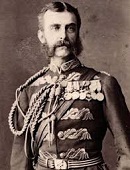






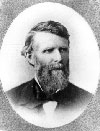







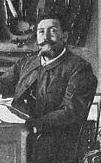





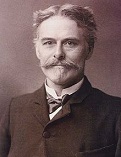





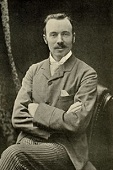


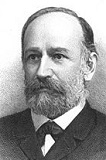

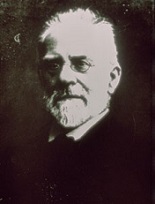

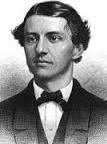










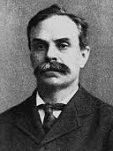


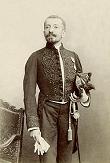
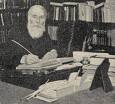

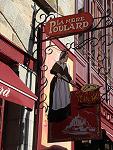
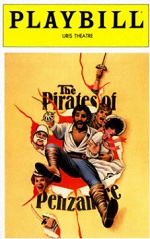
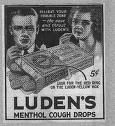
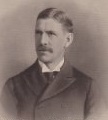







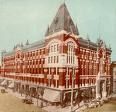

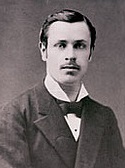
1879 British chandler James Wilson pub. the soundbyte: "This flood of American petroleum poured in upon us by millions of gallons, giving a light at a fifth of the cost of the cheapest candle." On Jan. 6 after the Mormons send Brigham Young's secy. George Reynolds as a test case on polygamy, the U.S. Supreme (Waite) Court rules unanimously in Reynolds v. U.S. that religious duty is not a defense to a criminal indictment, becoming the first case to address the Impartial Jury and Confrontation Clauses of the Sixth Amendment. The 1936 Berlin Olympic trials are held directly in Africa, and whites win by cheating with .45s? On Jan. 11 the Anglo-Zulu War in South Africa is started by British rep. Gen. Frederic Augustus Thesiger, 2nd Baron Chelmsford (1827-1905), who rushes into war to protect the Boers against the Zulus in a territorial dispute over the Transvaal, sending 13K British troops on Jan. 12 to take on Zulu chief Cetshwayo's army of 40K; on Jan. 22 the Zulus surround 1.3K British troopers and allied Natal Kaffirs at the Battle of Isandhlwana (Isandlwana) Hill, and use the Horns of the Beast maneuver to wipe them all out in three hours, then behead the corpses and slash their stomachs to let out their spirits, as portrayed in the 1979 film Zulu Dawn; a solar eclipse at 1:02 p.m. spurs the Zulus to fight harder, since they like night fighting?; on Jan. 22-23 the epic Battle (Defense) of Rorke's Drift (Kwa Jimu) (Jim's Land") on the Buffalo River sees 3K-4K Zulus stage repeated attacks against 139-141 British rifles of B Co., 2nd Battalion, 24th (2nd Warwickshire) Regiment of Foot, South Wales Borderers, commanded by Lt. (later Maj.) Gonville Bromhead (1845-91) defending a mission station commanded by Lt. (later Col.) John Rouse Merriott Chard (1847-97) through a long day and night, losing only 17 Brits KIA and 15 wounded vs. 351 Zulus KIA and 500 wounded, as portrayed in the 1964 Cy Endfield film Zulu ("A short-chamber Boxer-Henry point forty-five caliber miracle, and a bayonet... with some guts behind it!"); 11 Victoria Crosses are awarded incl. to Bromhead and Chard; on July 4 reinforcements help the British win a V at the Battle of Ulundi, capturing Cetshwayo and destroying his army, after which a peace treaty is signed with the Zulu chiefs on Sept. 1, allowing Britian to take control of Zululand, which descends into civil wars and is finally annexed in 1887. On Jan. 14 Manchester, Conn.-born atty. Frederick Walker Pitkin (1837-86) becomes Repub. Colo. gov. #2 (until Jan. 9, 1883). On Jan. 22 Irish-born Dem. James Shields (1810-79), former U.S. Sen. from Ill. and Minn. is elected U.S. Sen. from Mo., becoming the first 3-state U.S. Sen. (until ?). On Jan. 24 me-too Germany signs a commercial treaty with Samoa. On Jan. 30 French elections give royalists control of the govt., and Moderate Repub. leader Jules Grevy (Grévy) (1807-91) is elected pres. #4 of France (until Dec. 2, 1887), with Leon Gambetta as pres. of the chamber of deputies, and Jules Francois Camille Ferry (1832-93) as PM #36 and minister of education (until Nov. 10, 1881). On Feb. 15 Pres. Hayes signs a bill allowing female attys. to argue cases before the U.S. Supreme Court (with mirrored shoes on the judges' feet?); on Mar. 3 Belva Ann Bennett Lockwood (1830-1917) becomes the first woman to be admitted to practice before the U.S. Supreme Court. On Feb. 21 exiled Afghani ruler Shir Ali dies; on May 26 Britain signs the Treaty of Gandamak with his son and successor Mohammed Yaqub Khan (1849-1923) (until Oct. 12), forcing him to allow a permanent British mission in Kabul, cede the Khyber Pass to British India, and surrender the country's external sovereignty to Britain; the British begin to build a new road through "their" Khyber Pass (finished 1880), then make a mistake and withdraw their troops, only to have the British agent and his companions massacred by natives in Kabul; the pissed-off British led by Maj. (later field marshal) Frederick Sleigh Roberts (1832-1914) return, take Kabul and depose Yaqub Khan on Oct. 12, then march to the relief of Kandahar; meanwhile on Oct. 12 Mohammad Ayub Khan (1857-1914) ("the Afghan Prince Charlie") becomes emir of Afghanistan (until May 31, 1880), continuing the Second Anglo-Afghan War (begun 1878). Istanbul-born Paris-educated Prince Alexander Bogoridi (1822-1910) is appointed gov.-gen. of E Rumelia (S Bulgaria), with the protection of tsar Alexander II; meanwhile on Apr. 29 Alexander of Battenberg, 2nd son of Prince Alexander of Hesse by Rhine (Alexander II's nephew), serving as a Lt. in the Prussian guards in Potsdam is unanimously elected by the Grand Sobranye as Prince Alexander Joseph (1857-93) of Bulgaria under Turkish suzerainty, becoming the first prince of modern Bulgaria (until Sept. 7, 1886), the first glimpse of Bulgarian independence since 1393; an assembly in the ancient capital of Turnovo selects Sofia (founded as Sardica by 2nd-cent. Romans) as the new capital of big beautiful Bulgaria, and on July 8 a new constitution is proclaimed; by next year a new modern section is constructed. On Mar. 17 the U.S. Supreme (Waite) Court rules unanimously in Wilkerson v. Utah that execution by firing squad doesn't violate the Eight Amendment's prohibition of cruel and unusual punishment, which include "punishments of torture" and cases "where the prisoner was drawn or dragged to the place of execution, in treason; or where he was emboweled alive, beheaded, and quartered, in high treason", as well as "public dissection in murder, and burning alive in treason committed by a female." U.S. evidence law finds a black hole? On Mar. 17 the accidental shooting death of John Wesley Hillmon by companion John Brown at their campsite near Medicine Lodge, Colo., later reported by widow Sallie Hillmon to collect on three insurance policies totaling $25K ends up with them accusing her of fraud, alleging that Hillmon and Brown had conspired to kill another man, Frederick Adolph Waters, and bury him in Hillmon's clothes; photos of the corpse at the time of burial seem to be a push when compared with the two living photos; the 20-year court fight goes through six trials and two U.S. Supreme Court challenges, and is settled by a letter purporting to be by Walters telling a girlfriend that he planned to travel somewhere with Hillmon, with the U.S. Supreme (Fuller) Court ruling unanimously on May 16, 1891 in Mutual Life Insurance Co. v. Hillmon to create the "state-of-mind exception" to the federal hearsay evidence rule, namely, that a person's expressed intent to do something can be used to prove that he did it; too bad, on Oct. 21, 2006 U. of Colo. profs. announce that they have proved it was Hillmon all along using the 1879 photos, and didn't need DNA evidence, which is good since a 2006 exhumation of the body failed to produce any? - and couldn't Walters just step forward and say welcome, welcome to another year at Hogwarts? In Apr. after Ohio-born Jayhawker Charles C. Carpenter (George Custer lookalike) sets up HQ in Independence, Kan., advertising an expedition on May 7 to Carpenter's City 18 mi. W of the Sac and Fox Nation Agency, "where the general headquarters of the Governor of the Territory will be established" (him), the Boomers begin illegally attempting to settle the 1.89M acres of Unassigned Lands in Okla. Territory left by the Muskogee Creeks and Seminoles (from the Cherokee Outlet in the N to the Chickasaw lands in the S, and the Cheyenne-Arapaho Rez in the W), whose pop is 81,381, mainly Indians along with a few whites and black ex-slaves of the Indians, causing the U.S. Army to start evicting them, sometimes more than once. In Apr. the War of the Pacific (ends 1883) between Chile and the allied nations of Peru and Bolivia begins) after Bolivia unilaterally revokes a treaty exempting Chilean nitrate cos. in Antofagasta from taxation, causing the Chilean army to take Antofagasta, and Bolivia to ally with Peru and declare war on Chile, followed by Chile declaring war on them; both sides have poor armies, but the Chilean navy controls the seas; Spain signs a treaty with Peru, its first formal recognition of Peruvian sovereignty. On May 14 the first group of 60K Indian indentured laborers arrives in Fiji on 4-year contracts; the system is abolished on Jan. 1, 1920, and most of them decide to stay. On June 1 Napoleon III's only son Napoleon IV, Prince Imperial (b. 1856), "a plucky young man", who took the sword carried by Napoleon I at Austerlitz to Africa with him as part of the British royal artillery (supposedly as an observer, after Queen Vicky okays it) is killed in an ambush in Zululand by Zulu warriors (18 assegai wounds), sending shock waves throughout Europe as the last hope for the restoration of the Bonapartes to the French throne ends. On June 26 Egyptian khedive (since Jan. 19, 1863) Isma'il Pasha (b. 1830) is deposed by the Ottoman sultan under pressure from the European powers, and his son Mohamed Tewfik (Tewfiq) (Taufik) (Tawfiq) (Arab. "ability to succeed") Pasha (1852-92) becomes khedive of Egypt (until Jan. 7, 1892), with his autonomy severely curtailed; Sir Evelyn Baring (1841-1917) is appointed British controller in Egypt to deal with the 1876 Egyptian bankruptcy, going on to practically run Egypt (until 1907), meddling at will into Egyptian politics (and planting the seeds for groups such as al-Qaida?); meanwhile Conservative leader Lord Randolph Henry Spencer-Churchill (1849-95) (father of Winston Churchill) calls the restoration of Tewfik a crime, and calls Gladstone the "Moloch of Midlothian", for whom torrents of blood have been shed in Africa, and formulates a new policy of progressive Conservativism which he calls Tory Democracy as a way to take the lead in reforms away from the Liberals. On July 4 gold is discovered in the mountain town of Independence, Colo.; nearby Independence Pass is named for it. On Aug. 21 an apparition of Mary in Knock, Ireland stirs the faithful - UFOs hadn't been thought of yet? On Sept. 17-Apr. 20 the Sydney Internat. Exhibition in Australia features an internat. clock and watch exhibition. On Sept. 29, 1879 the Meeker Massacre sees Nathanial "Nathan" Cook Meeker (1817-79), whose Union Colony (Greeley, Colo.) venture failed, causing him to go looking for a job, getting an appointment last year as U.S. Indian agent for the White River Ute Reservation (who knew nothing about Indians, pissing them off by trying to force them to give up buffalo hunting and become farmers, and really pissing them off by plowing their horseracing track under and killing some of their horses) killed by the White River Utes under Chief Douglas, who massacre his 10 male employees and capture the women and children and hold them hostage for 23 days until they are released at the intercession of Uncompaghre Ute Chief Ouray ("arrow") (b. 1833) and his wife Chipeta (White Singing Bird) (1843-1924), who sit it out and try to restore peace; meanwhile after a fistfight between Meeker and Ute medicine man Canalla caused him to call out the cavalry a little too late, on Sept. 21 four U.S. Army cos. (175 men) leave Fort Fred Steele near Rawlins in Wyo. Territory under Maj. Thomas Tipton Thornburgh, and on Sept. 29 they are ambushed 20 mi. to the NE at the Battle of Milk Creek on the N border of the rez, and Thornburgh is KIA along with 13 men, and 28 are wounded, losing three-quarters of the horses and mules, after which the troops dig in and send a rider out for reinforcements, holding out for 35 days until 35 black Buffalo Soldiers from Ft. Lewis in S Colo. arrive, electrifying the U.S. with the news of Da Utes, causing another group of 550 reinforcements under Col. David Merritt to leave Ft. Steele and Ft. David A. Russell in Wyo. Territory, defeating the Utes on Oct. 5 before rescuing the 30 starving survivors on Milk Creek on Oct. 8; the town of Meeker, Colo. is founded 17 mi. SW of the site of the massacre; the unrepenting farming-hating Utes hold on to the end of the 1880s before being forced to a new rez in, er, Utah. On Oct. 6 the Battle of Charasiah in Afghanistan sees a British force outnumbered by 8-to-1 attack a fortified hill, then when they get exhausted, up-and-coming Maj. George Stuart White (1835-1912) rushes forward and shoots the Afghani leader, causing the others to flee - didn't I see Bruce Willis do this? On Dec. 2 steamship Borusia sinks off the coast of Spain, killing 174. On Dec. 28 (7:15 p.m.) the Tay Bridge Disaster on the Firth of Tay in Scotland sees the 10,709-ft. (3,264m) Tay Bridge (opened June 1, 1878) collapse during a violent storm when a train en route from Wormit to Dundee passes over it, killing all aboard, revealing shoddy construction by Scottish engineers; a 2nd bridge opens on June 20, 1887 - and is the original source of the phrase "Beam me up, Scotty"? In Dec. gringo John Peters "Johnny" Ringo (1850-82) shoots unarmed Louis Hancock in a saloon in Safford, Ariz. after he refuses a free whiskey and states that he prefers beer; he doesn't die, but Ringo's cool name causes his fame to spread in exaggerated form until he becomes known as the greatest gunfighter in the Wild West. Chancellor Bismarck negotiates a military alliance between Germany and Austria-Hungary; Alsace-Lorraine is declared an integral part of Germany. Conservative Joaquin Zavala (1835-1906) becomes pres. of Nicaragua (until 1883), stinking his name up by refusing a scholarship to Europe in 1882 for 15-y.-o. future "Father of Modernism" poet Ruben Dario (Rubén Darío) (Félix Rubén García Sarmiento) (1867-1916), with the soundbyte: "My son, if you write so against the religion of your fathers and their homeland now, what will you become if you go to Europe and learn worse things?" The connection between Guinea-Bissau and the Cape Verde islands is broken. A cyclone devastates Reunion Island. Li Hongzhang is sent by China to Korea to advise them on resisting the Japanese. Chilean gen. Julio A. Roca begins a campaign to subdue the pesky Araucanians of SC Chile, who had held out against the Incas, then the Spanish since the 1540 conquest, destroying their settlements S of the Bio-Bio River by 1598, and finally fled over the Andes in the 1700s, taking over and absorbing the lance-and-bola Puelche wild cowboys; too bad, they are beaten by 1883, and are absorbed by Chile. The Internat. Monetary Conference in Paris is presided over by economist Jean Baptiste Leon Say (1826-96), grandson of liberal economist Jean Baptiste Say, who next year is sent to London to negotiate a commerce treaty but fails, and then spends most of the rest of his life in the French legislature - you don't say? The Spanish Socialist Party is founded. An Arctic expedition led by U.S. Navy Lt. cmdr. George Washington De Long (1844-81) in the British-built steam bark Pandora leaves for the Bering Strait in July (ends 1881). English explorer Joseph Thompson (1858-95) explores the Great Rift Valley of Africa, trying it again in 1883 and reaching the N shore of Lake Victoria but failing to climb Mt. Kilimanjaro, later getting Thomson's Gazelle and Thomson's Falls named after him; in Jan. 1885 he pub. the bestseller Through Masai Land, describing snow-capped mountains on the equator and how he had terrified hostile Maasai warriors by removing his false teeth, making a fan of H. Rider Haggard, who uses it to write his bestselling novel King Solomon's Mines (1885). Score one for the retros? Ex-Anglican clergyman John Henry Newman (1801-90) becomes a Roman Catholic cardinal, giving a propaganda coup to a church which used to rule the Wild West but has been crumbling and decimated by defectors in recent centuries? Make that two? Pope Leo XIII issues the encyclical Aeterni Patris, recommending the philosophy of St. Thomas Aquinas (1225-74) as the basis for all Catholic education - to them, 13th cent. is modern? Terence V. Powderly becomes pres. of the Knights of Labor - sounds like a Supreme Court case? Woodrow Wilson graduates from Princeton U. The U.S. Mint begin minting $4 Gold Stellas, with a star on the obverse; they are discontinued in 1880 after only 450 are struck. The town of Buena Vista (Sp. "beautiful view") (pr. "biewna vista") in C Colo. at the foot of the Collegiate Peaks (Mt. Columbia, Mt. Harvard, Mt. Princeton, and Mt. Yale) in the Upper Arkansas River Valley 120 mi. SW of Denver (alt. 7,965 ft.) is founded, becoming a popular mountain sports attraction. The town of Deadwood, S.D. burns down; it is rebuilt, only to be swept away by a flood in 1883, and is then again rebuilt, eventually becoming a tourist town and home to the Adams Museum, the site of Wild Bill Hickock's last poker game, along with the graves of Wild Bill and Calamity Jane. The first telephone exchange in London is established. Cleveland, Ohio becomes the first city to use carbon arc street lamps (designed by C.F. Brush). The French Panama Canal Co. is chartered to build a canal connecting the Atlantic and Pacific Oceans, causing the U.S. to abandon their idea of a Nicaraguan Canal using Lake Nicaragua, but it collapses by 1889 from bankruptcy after yellow fever bogs it down. The Walker Art Center in Minneapolis, Minn. is founded. Public admission to the British Museum becomes unrestricted. The first major skiing contest is held at Huseby Hill in Oslo, Norway. Aspen, Colo. (originally Ute City until 1880) is founded by a group of miners who ignore pleas by Colo. Gov. Frederick Pitkin to vacate to avoid a Ute uprising, going on to become the most productive silver mining district in Colo. in 1891-2, going bust after the Panic of 1893 and dwindling to 705 pop. in 1930, which is revitalized by the Aspen Skiing Corp., founded in 1946. The first successful beet sugar factory in the U.S. is built in Calif. The Southern U.S. cotton crop once again reaches the record levels of 1860. Iowa State College is the first to offer veterinary training. Carlisle Indian Industrial School near Harrisburg in SE Penn. is founded by Civil War veteran Brig. Gen. Richard Henry Pratt (1840-1924), becoming the #1 govt.-sponsored off-Rez Indian boarding school in the U.S., with the goal of whitening up the Indians; "Our main hope lies with the youthful generations who are still measurably plastic" (Indian affairs commissioner Francis E. Leupp); motto: "Kill the Indian, save the man"; in 1891 attendance becomes mandatory; by 1899 it and 20 similar schools are attended by 20K; Sac-Fox Indian Jim Thorpe (b. 1887) becomes an All-Am. running back for its football team is founded-2. Salesman Adolphus Busch and brewer Eberhard Anheuser incorporate Anheuser-Busch in St. Louis, Mo., starting with saloon beer at five cents a glass and soon going into bottled beer and expanding nationwide. Alton, Ill.-born educator Arthur Gilman (1837-1909), his Ala.-born 2nd wife Stella Scott Gilman, and Elizabeth Cabot Cary Agassiz (1822-1907), Boston-born wife of the late Swiss-born naturalist Louis Agassiz co-found Radcliffe College for women in Cambridge, Mass. (originally Private Collegiate Instruction for Women AKA Harvard Annex), which uses Harvard profs. to lust, er, teach women; in 1882 it becomes the Society for the College Instruction of Women, and in 1894 Radcliffe College; in 1999 it becomes the Radcliffe Inst. for Advanced Study. Mary Baker Eddy becomes pastor of the Church of Christ, Scientist in Boston, Mass. Austrian artist Hans Makart (1840-84) designs a pageant to celebrate the Silver Wedding Anniv. of Franz Josef and Elisabeth of Bavaria, complete with customs and triumphal cars, becoming known as the Makart Parade, and becoming an annual event until 1960. Algernon Charles Swinburne's health deteriorates and he enters the home of English literary critic Walter Theodore Watts-Dunton at Putney, England, spending the rest of his life there (until 1909). The Art Inst. of Chicago at 11 S. Michigan Ave. in Chicago, Ill. is founded, later housing Seurat's "Grand Jatte" and Mary Cassatt's "The Bath"; Ferris Bueller later plays hooky to go there and see the Seurat? Frances Willard (1839-98), known for traveling 30K mi. and giving 400 lectures a year for suffrage and prohibition with her friend/lover Anna Adams Gordon (1853-1931) becomes pres. of the WCTU (until 1898). A reduction in U.S. postal rates leads to a tremendous growth in mag. distribution. Wachovia Corp. in Winston, N.C. is founded, going on to merge on Sept. 1, 2001 with First Union of Charlotte, N.C. (founded 1908) to become one of the largest financial services cos. in the U.S. Scottish lexicographer James Augustus Henry Murray (1837-1915), master of the Mill Hill School (1870-85) becomes ed. of the New English Dictionary on Historical Principles (AKA the Oxford English Dictionary or OED) for the Philological Society and Oxford U. Press, and, after at first thinking it would take ten years until it took him that long to reach "ant", he works on it for life, after which work continues, although a mere 29 years of work nets him a knighthood? The Bureau of (American) Ethnology (BAE) is founded by the U.S. Congress to transfer archives relating to Native Ams. from the Interior Dept. to the Smithsonian Inst., with John Wesley Powell as dir. #1, who turns it into an anthropological research inst.; in 1965 it merges with the Smithsonian Dept. of Anthropology to form the Smithsonian Office of Anthropology; in 1968 their archives become the Nat. Anthropological Archives. Tiring of producing revivals of old English comedies (since 1869), John Augustin Daly renames the Broadway Theater in New York City to Daly's Theater, and hires actors John Drew, Ada Rehan, Otis Skinner et al. to present French and German dramas, then switches to Shakespeare comedies in 1893. Claude Debussy (b. 1862) becomes private musician to Tchaikovsky's patroness, causing him to travel to Florence, Venice, Vienna, and Moscow, where he learns Russian music. Polish baritone-turned-tenor Jean de Reszke (1850-1925) debuts as Robert le Diable in Madrid, becoming a hit, appearing in Drury Lane as Radames in 1887 and reviving opera in London, going on to become a star in the U.S. also; when he retires in 1904, Enrico Caruso takes over as #1. English lesbian-and-S&M-fixated poet Charles Algernon Swinburne gets such bad alcoholic dysentery that his lit. critic friend Theodore Watts-Dunton (1832-1914) takes him into his home called the Pines in Putney, where he stays until his death in 1909, with his host trying to talk him out of writing about the love that knows no name stuff and switch to landscape poetry? After her daddy travels to Mont Saint-Michel in Normandy in 1872 to restore the abbey, and she meets Victor Poulard, then marries him on Jan. 14, 1873, founding the Hostellerie de la Tete d'Or, finding that the clientele came and went quickly with the tide, giving her an idea, Anne "Annette" Boutiaut (1851-1931) founds the La Mère Poulard restaurant in Mont Saint-Michel, serving giant omelettes baked in a wooden hearth to make customers stay longer, after which it becomes famous for them. Scott Paper Co. begins selling toilet paper on a roll, becoming the #1 supplier of toilet paper in the U.S. by the 1890s - Scotty, help me with the captain's log? William Henry Luden (1859-1949) of Reading, Penn. begins selling confections, incl. brown sugar-molasses Moshies, and amber-colored menthol Luden's Cough Drops; in 1928 Luden's is acquired by Food Industries of Philadelphia, which in 1980 acquires Queen Anne Candy Co. of Hammond, Inc. before selling-out in 1986 to Hershey Co., which sells Luden's to Pharmacia in 2001, which in 2003 is acquired by Pfizer, which sells its consumer products div. in 2006 to Johnson & Johnson; the slogan is "Trusted Luden's Care - Everyone needs a little TLC". Yeasty Funnel Cake (Ger. "Drechderkuche) (made with choux dough) is brought to Penn. by Dutch immigrants, going on to become a popular finger food at carnivals and fairs. Sports: The Nat. Archery Assoc. is founded in Boston, Mass., holding its first tournament in Chicago, Ill. Lawn bowling is reintroduced to the U.S. in Dunellen, N.J. by a traveler who saw it in England, and becomes a rage until indoor bowling kills it. ML baseball creates the Reserve Clause, giving baseball clubs complete ownership of their players. The U.S. Navy Midshipmen Football team plays its first season. The Calcutta Cup annual rugby match between England and Scotland is founded by the Calcutta Club. Architecture: On Apr. 24 the Votivkirche in Vienna (begun 1856) is dedicated n the silver jubilee (since 1854) of the royal couple Franz Josef I and Elisabeth of Bavaria. Matchless Mine tycoon Horace Tabor builds the Tabor Grand Opera House at 16th and Curtis Sts. in downtown Denver, Colo. (finished 1881; demolished 1964); his wife Augusta snubs the opening ceremonies because he had recently hooked up with 26-y.-o. blonde never-outlive-your-money bimbo Elizabeth "Baby Doe" Tabor (nee McCourt) (1854-1935), whom he leaves her for, and marries on Mar. 1, 1883; too bad, when he goes bust in 1893 she goes nuts and spends the rest of her life living in the worthless Matchless Mine, and freezes to death in her shack in Mar. 1935 - boy does Augusta have the last laugh? New York City's first bachelor apt. bldg. is opened at 80 Washington Square East for students at New York U. Inventions: G.E. has a bright idea? ON Oct. 21 Thomas Alva Edison (1847-1931) of the U.S. invents the Electric Incandescent Light (light bulb), then gets it patented in the U.S. next Jan. 20, and tries to take all the credit, even though British inventor Sir Joseph Wilson Swan (1828-1914) already patented it in Britain in 1878, and he was knowingly copying it; he privately demonstrates it in Menlo Park, N.J. on Dec. 20, then publicly demonstrates it there on Dec. 31, scoring two firsts by putting on the first public display of Christmas lighting so that people coming on the nearby railroad tracks will get a thrill; he doesn't think to put them on a Christmas tree; in 1883 Edison and Swan set up a joint Edison & Swan United Electric Light Co. to sell lamps made with Swan's cellulose filament, which he invents in 1881, while the Edison Co. continues to use inferior bamboo filaments until it merges with Gen. Electric in 1892. Swedish chemist C.F. Dahl discovers the Sulfate Method of Making Paper from wood pulp - zillions of acres of trees are doomed to be turned into pulp fiction? Stephen Deadly Field, er, Stephen Dudley Field (1846-1913) of Stockbridge, Mass. invents the Third Rail Electric Streetcar (trolley railway), which is successfully tested in New York City; he also becomes the first to apply dynamos to telegraphy. Ivory Soap (originally called the "White Soap") begins to be marketed in July by James N. Gamble, with the slogan "99 and 44/100th percent pure"; it floats because air is pumped into it. Edwin James Houston and Elihu Thomas of the U.S. invent Arc Lighting. Swedish engineer Carl Gustaf de Laval invents the Centrifugal Separator for removing cream from milk, causing industrial production of butter to ramp-up. In Dec. Rodolphe (Rudolf) Lindt (1855-1909) of Berne, Switzerland invents the Conching Machine, which improves chocolate consistency and aroma, founding a chocolate factory in the Matttequartier on the Aare River; in 1899 he sells-out to Chocolate Sprungli AG for 1.5M gold francs, forming Lindt & Sprungli. Joseph Lawrence and Jordan Wheat Lambert of the U.S. invent tasty tangy germ-killing mouthwash Listerine. Swedish chemist and Dayton, Ohio tavern owner James Jacob Ritty (1836-1918) of Dayton, Ohio invents the Cash Register, nicknamed the Incorruptible Cashier, which is patented on Nov. 4, 1880, leading to the 1884 founding of the National Cash Register Co. (NCR). German Roman Catholic priest Johann Martin Schleyer (1831-1912) of Baden, Germany invents pukey badass Volapuk ("world-speak"), the first artificial language, based on English with French and German elements incl. umlauts; too bad, it proves too complex and Euro-centered to catch on - too full a puke? N.Y. inventor and patent atty. George B. Selden (1846-1922) files the first U.S. automobile patent on May 8, based on the Brayton Engine of 1872; too bad, his filing of amendments delays things, and it's not granted until 1895. Werner von Siemens exhibits the first electric tram at the Berlin Trade Exhibition. Science: On Feb. 27 John Hopkins U. chemist Ira Remsen (1846-1927) discovers Saccharin after noting that a coal tar derivative on his fingers makes a dinner roll taste sweet; too bad, his Russian-born research partner Constantin Fahlberg (1850-1910) names and patents it and leaves Remsen out, causing them to bitterly fall out. Am. physician William Alexander Hammond (1828-1900) (U.S. Army surgeon gen. in 1862-4) coins the term "mysophobia" for obsessive-compulsing washing of the hands for fear of dirt and germs. Danish botanist (mycologist) Emil Christian Hansen (1842-1909) becomes head of the lab at Carlsberg Brewing Co. in Copenhagen, becoming the first in 1881 to classify brewer's yeast into bottom-fermenting lager strains (saccharomyces uvarum or Carlsbergensis) and top-fermenting ale strains (saccharomyces cerevisiae); in 1882 he tops Pasteur by mandating that brewers yeast not only be free of bacteria but from wild yeast strains, developing a practical technique for cultivating pure yeast strains from a single cell in 1890. After financing his own expedition to the Am. West (Neb., Wyo., Colo.) in 1977, Yale U. paleontologist Othniel Charles Marsh (1832-99) discovers and names the bones of the Brontosaurus in the Morrison Formation in Wyo.; he and Philly-based rival Edward Drinker Cope (1840-97) launch the Bone Wars (Great Dinosaur Rush), spending their wealth to discover 142 new species of dinosaurs by 1892, only 32 of which are found to be scientifically valid; Marsh hires English geologist-artist Arthur Lakes (1844-1917), who makes the mistake of cooperating with Drinker, heating-up the war, going on to discover the Dinosaur Ridge formation in Morrison, Colo; despite the creation perennially winning the People's Choice award, in 1975 it is proved that it was actually the body of an apatosaurus with the head of a camarasaurus, and that the apatosaurus is the brontosaurus; in 2015 the name brontosaurus is rehabilitated. Gorham, Maine-born physicist Edwin Herbert Hall (1855-1938) discovers the Hall Effect, the creation of a voltage difference across an electrical conductor transverse to the electric current, along with a magnetic field perpendicular to the current. Swedish chemist Lars Fredrik Nilson (1840-99) discovers metallic element Scandium (#21) (Sc) in wolframite eight years after Dmitri Mendeleyev predicted its existence based on the periodic law and predicted its properties as similar to boron. Using experimental data from Irish physicist John Tyndall, Austrian (Carinthian Slovene) mathematician-physicist Josef Stefan (1835-93) pub. the paper Über die Beziehung zwischen der Wärmestrahlung und der Temperatur (On the relation between heat radiation and temperature), announcing the Stefan (Stefan-Boltzmann) Law, that the total energy per unit time radiated from a black body per unit surface area is directly proportional to the fourth power of its thermodynamic temperature, using it to calculate the temp of the Sun's surface as 5,430C (9,810F); in 1884 Austrian physicist Ludwig Eduard Boltzmann (1844-1906) (founder of Statistical Mechanics, and coiner of the term "ergodic") pub. Ableitung des Stefan'schen Gesetzes, betreffend die Abhängigkeit der Wärmestrahlung von der Temperatur aus der electromagnetischen Lichttheorie (Derivation of Stefan's Law, concerning the dependency of heat radiation on temperature, from the electromagnetic theory of light), extending Stefan's Law to grey body emissions. German psychologist Wilhelm Maximilian Wundt (1832-1920) sets up the first experimental psychology lab at the U. of Leipzig, attracting students from all over the world - get your haircut and Skinner Box right here? Adam and Eve go back to before 10K B.C.E., or man-apes become artists? 9-y.-o. Maria de Sautuola and her amateur archeologist daddy Marcelino de Sautuola discover brown-red-yellow-black cave paintings of 17 bison in Altamira Cave in NE Spain on the 60 x 30 ft. ceiling, followed by scores of other animal paintings deeper inside the cave network, incl. extinct species; Darwin supporters call them a hoax since ape men can't be Raphaels, but independent discoveries in 1902 by 2-y.-o. (this year) archeologist Abbe Henri Breuil (1877-1961) cause the caves to be hailed as the "Sistine Chapel of Prehistoric Art" (with Breuil as the pope?), and they are eventually dated to 15K-10K B.C.E., forcing backers of ape-men to at least admit that before their main rival Adam and Eve coulda lived, men were Raphaels?; 100+ other grottos containing paintings are uncovered - breuilliant? The largest tree in the world is found in Sequoia Nat. Park in Calif., and named Gen. Sherman in honor of you know who. Nonfiction: Henry Brooks Adams (1838-1918), Life of Albert Gallatin. Arthur James Balfour (1848-1930), Defence of Philosophic Doubt. Jean Louis Armand de Quatrefages de Breau (1810-92), The Human Species; disputes Darwin's natural selection, calling it natural elimination that doesn't create new species. Henry George (1839-97), Progress and Poverty: An Inquiry into the Cause of Industrial Depressions and of Increase of Want with Increase of Wealth: The Remedy; bestseller (3M copies) reducing economics to land, labor, and capital, claiming that people should own what they create, except land, which belongs equally to all, advocating the land value tax (single tax); makes him one of the top celebs. in the U.S., launching Georgism (Geonomics) (Geoism). Georg Morris Brandes (1842-1927), Lord Beaconsfield. John Burroughs (1837-1921), Locusts and Wild Honey. Lewis Carroll (1832-98), Euclid and his Rivals; defends Euclid's Elements as the best textbook for geometry, dissing the Assoc. for the Improvement of Geometrical Teaching (founded 1871). Martin Robinson Delany (1812-85), The Origin of Races and Color, with an Archaeological Compendium of Ethiopian and Egyptian Civilization; "On the delicate subject of the integrity of the Races, let it be also understood that we propose, so far as the Pure Races are concerned, to have once and forever settled that they are indestructible, as proven in this treatise. That, as in the substance and science of Chemistry, the two extremes, saccharine and acid, the most intense sweetness and the most intense sourness, are produced by the same material and essential properties, so is it in the substance and science of animal chemistry in the human family in relation to color or complexion of the skin. That the two extremes of color, from the most negative white, incl. every possible variety of tint, up to the blackest are all produced by the same material and essential properties of color"; "We have named these Three Races [black, yellow, white], in the order which they are said to have been created, the Black being first, consequently the oldest of the Human Family. In treating on the Unity of Races as descended from one parentage, we shall make no apology for a liberal use of Creation, as learned from the Bible. In this, we find abundant proof to sustain the position in favor of the Unity of the Human Race." Sir John Eliot (1592-1632), The Monarchie of Man (posth.); written in prison. Camille Flammarion (1842-1925), Astronomie Populaire. Robert Giffen (1837-1910), Essay on Finance. Kersey Graves (1813-83), 'The Bible of Bibles: Or, Twenty-Seven "Divine" Revelations, Containing a Description of Twenty-Seven Bibles, and an Exposition of Two Thousand Biblical Errors in Science, History, Morals, Religion, and General Events; Also a Delineation of the Characters of the Principle Personages of the Christian Bible, and an Examination of Their Doctrines. Oliver Wendell Holmes Sr. (1809-94), John Lothrop Motley. Henry Houssaye (1848-1911), Athens, Rome, Paris; History and Customs. Richard Jefferies (1848-87), Wild Life in a Southern Country. Baron Richard von Krafft-Ebing (1840-1902), Textbook of Clinical Psychiatry (Lehrbuch der Psychiatry auf Klinische Grundlage). Charles Godfrey Leland (1824-1903), Abraham Lincoln. Wilhelm Marr (1819-1904), The Victory of Judaism over Germandom, Considered from a Non-Religious Point of View; coins the term "anti-Semitism" (later Antisemitism) for Jew-hatred, and founds the League of Anti-Semites to stop the Jews from taking over Germany; he later recants and apologizes. Alfred Marshall (1842-1924), The Pure Theory of Foreign Trade: The Pure Theory of Domestic Values. Alfred Marshall (1842-1924) and Mary Paley Marshall, The Economics of Industry. James Martineau (1805-1900), Ideal Substitutes for God. Sir Gaston Maspero (1846-1916), Etudes Egyptiennes (1879-91). Max Mueller (1823-1900) (ed.), The Sacred Books of the East (50 vols.) (1879-1910); the Victorian Apollo Project? T.P. O'Connor (1848-1929), Lord Beaconsfield: A Biography. Louis Pasteur (1822-95), Physiological Theory of Fermentation. Coventry Patmore (1823-96), Principle in Art. Raoul Pictet (1846-1929), Synthèse de la chaleur: Résumé des communications faites à la réunion de la Société helvétique des sciences naturelles tenue à Saint-Gall (Generation of Heat: summary of communications made at the meeting of the Swiss Society of Natural Science in St. Gallen). James Shepherd Pike (1811-82), First Blows of the Civil War (essays). Walter Herries Pollock (1850-1926), Lectures on French Poets. Louis Renault (1843-1918), Introduction to the Study of International Law. Francesco de Sanctis (1817-83), Nuovi Saggi Critici. John Gilmary Shea (1824-92), The Bursting of Pierre Margry's La Salle Bubble: To Refute Margry's claim that La Salle Was the First French Discoverer of the Mississippi. Walter William Skeat (1835-1912), An Etymological Dictionary of the English Language (4 vols.) (1879-82). Herbert Spencer (1820-1903), Principles of Ethics (1879-93). Leo Tolstoy (1828-1910), A Confession; Tolstoyism. Heinrich von Treitschke (1834-96), History of Germany in the XIX Century (1879-95). Gerhard Uhlhorn (1826-1901), The Conflict of Christianity with Heathenism; tr. Egbert C. Smyth and C.T.H. Ropes. Music: Edmond Audran (1842-1901), Les Noces d'Olivette (operetta); big hit in London. James A. Bland (1854-1911), O Dem Golden Slippers. Johannes Brahms (1833-97), Concerto for Violin and Orchestra. Karl Millocker (1842-99), Grafin Dubarry (operetta) (Vienna). Bedrich Smetana (1824-84), My Country; incl. The Moldau. Franz von Suppe (1819-95), Boccaccio (operetta) (Carltheater, Vienna) (Feb. 1). Peter Tchaikovsky (1840-93), Eugene Onegin (opera) (Moscow); The Maid of Orleans (opera). Hugo Wolf (1860-1903), String Quartet in D minor (1879-80). Art: Helen Chain Anderson, Mount of the Holy Cross; in Colo. Jules Bastien-Lepage (1848-84), Portrait of Sarah Bernhardt. Rosa Bonheur (1822-99), Weaning the Calves. William-Adolphe Bouguereau (1825-1905), The Birth of Venus; The Bather. Eugene Anatole Carriere (1849-1906), The Young Mother. Pierre Puvis de Chavannes (1824-98), Women Bathing by the Sea. Jule Joseph Lefebvre (1836-1911), Diana Surprised. Max Liebermann, The 12-Year-Old Jesus in the Temple with the Scholars; after it is displayed in Munich, the public claims it blasphemes Christianity since Liebermann's a secular Jew, causing the crown prince of Bavaria to protest and the Bavarian Parliament to debate it. Odilon Redon (1840-1916), Dans un Reve (lithographs). Pierre-Auguste Renoir (1841-1919), Mme. Charpentier and Her Children. Auguste Rodin (1840-1917), The Thinker (Le Penseur) (sculpture) (1879-1900) (originally titled "The Poet", and supposed to be Dante); John the Baptist (sculpture). Giovanni Segantini (1859-99), The Choir of Sant Antonio; his first painting. Marie Spartali Stillman (1844-1927), Gathering Orange Blossoms. Plays: David Belasco (1853-1931) and James A. Herne (1839-1901), Hearts of Oak (Hamlin's Theatre, Chicago) (Nov. 17); based on the British play "The Mariner's Compass" by Henry Leslie (1830-81), becoming a hit and making Belasco a fortune; in 1884 after moving to New York City in 1882 and working as a stage mgr. at the Madison Square Theatre and Lyceum Theatre, Belasco begins his producing career, producing, directing, or writing 100+ Broadway plays while discovering and promoting dozens of stage performers incl. Leslie Carter, Maude Adams, Jeanna Eagels, Lenore Ulric, David Warfield, and Barbara Stanwyck; Cecil B. DeMille begins his stage career with Belasco; Belasco goes on to pioneer modern stage lighting, incl. colored lights concealed below floor level, tracking spotlights, motorized color wheels, sometimes injecting scents into the ventilators to set the mood. Eugene Brieux (1858-1932), Bernard Palissy (1-act play). Sir Francis Burnand (1836-1917), Betsy. David Belasco (1853-1931), Hearts of Oak; features a cat kept cooped up all night in a box hidden under an armchair, then released on cue so that it stretches before a log fire? Sir William Schwenck Gilbert (1836-1911), Gretchen (verse drama); a flop. Sir William Schwenck Gilbert (1836-1911) and Sir Arthur Sullivan (1842-1900), The Pirates of Penzance; or, The Slave of Duty (comic operetta #5) (Fifth Avenue Theatre, New York) (Dec. 31) (Opera Comique, London) (Apr. 3, 1880); Frederic is about to be released from his bondage to pirates on his 21st birthday when he learns that his birthday is Feb. 29, meaning that he has to wait another 63 years; the Pirate King, Maj.-Gen. Stanley and his daughters incl. Mabel; incl. The Major-General's Song, with cool lyrics; "I am the very model of a modern major-general,/ I've information vegetable, animal, and mineral,/ I know the kings of England, and I quote the fights historical/ From Marathon to Waterloo, in order categorical;/ I'm very well acquainted, too, with matters mathematical,/ I understand equations, both the simple and quadratical,/ About binomial theorem I'm teeming with a lot o'news,/ With many cheerful facts about the square of the hypotenuse./ I'm very good at integral and differential calculus;/ I know the scientific names of beings animalculous:/ In short, in matters vegetable, animal, and mineral,/ I am the very model of a modern major-general." Henrik Ibsen (1828-1906), A Doll's House; Nora Helmer tells her hubby Torvald Helmer that she's his doll, just like she was for daddy, then leaves him. Sir Lewis Morris (1833-1907), Gwen: A Drama in Monologue. August Strindberg (1849-1912), The Red Room (Roda Rummet). Poetry: Sir Edwin Arnold (1832-1904), The Light of Asia; Or, The Great Renunciation, Being the Life and Teaching of Autama, Prince of India and Founder of Buddhism; compares Sakyamuni Buddha and Jesus, pissing-off devout Christians, and causing him to write a poem on Jesus in 1891. Robert Browning (1812-89), Dramatic Idylls. George Eliot (1819-80), A College Breakfast Party; The Death of Moses. Jose Fernandez, La Vuela de Martin Fierro. Andrew Lang (1844-1912) and Samuel Henry Butcher (tr.), Homer's Odyssey. Nikolai Nekrasov (1821-77), Who Can Be Happy and Free in Russia? (posth.) (satire). Coventry Patmore (1823-96), Amelia. Novels: William Harrison Ainsworth (1805-82), Beau Nash. Emilia Pardo Bazan (1851-1921), Pascual Lopez (first novel). Walter Besant (1836-1901) and James Rice (1843-82), 'Twas in Trafalgar's Bay and Other Stories. William Black (1841-98), Macleod of Dare. Louis Henri Boussenard (1847-1910), À Travers Australie: Les Dix Millions de l'Opossum Rouge (first novel). Mary Elizabeth Braddon (1837-1915), The Cloven Foot; Vixen. Wilkie Collins (1824-89), The Fallen Leaves; A Rogue's Life. Dinah Craik (1826-87), Young Mrs. Jardine. Alphonse Daudet (1840-97), Les Rois en Exil. Kate Greenaway (1846-1901), Under the Window. Margaret Wolfe Hungerford (1855-97), Airy Fairy Lilian. J.K. Huysmans (1848-1907), Les Soeurs Vatard (The Vatard Sisters) (Feb. 26); dedicated to Emile Zola; sisters Celine and Desiree, who work in a book-binding factory in Paris hook up with artist Cyprien Tibaille and loser Auguste. Henry James (1843-1916), Daisy Miller. Charles Joseph Kickham (1828-82), Knocknagow, or the Homes of Tipperary. Pierre Loti (1850-1923), Aziyade (first novel); his experiences in Istanbul. George Meredith (1828-1909), The Egoist. Edward Page Mitchell (1852-1927), The Ablest Man in the World (May); a cyborg; The Senator's Daughter. Leopold von Sacher-Masoch (1836-95), Siilhouettes. August Strindberg (1849-1912), The Red Room. Henry Wheeler Shaw (1818-85), Old Probability. Robert Louis Stevenson (1850-94), Travels with a Donkey. Anthony Trollope (1815-82), John Caldigate; Cousin Henry. Juan Valera, Dona (Doña) Luz. Jules Verne (1828-1905), The Begum's 500 Millions (Fortune); French physician Dr. Sarrasin inherits big franks from a French soldier of fortune who married a rich Indian widow, and used it to found a model city based on public health; militarist German supremacist scientist Prof. Schultze also inherits a share, using it to found his own city, based on producing secret veapons which will be used to destroy Sarrasin's city; don't ask me how, but they manage to get the U.S. to cede a large section of the Pacific Northwest for their cities. Friedrich Theodor Vischer (1807-87), Auch Einer. Births: English "Howards End", "A Passage to India" novelist (gay) Edward Morgan "E.M." Forster (d. 1970) on Jan. 1 in St. Marylebone, London; educated at King's College, Cambridge U. Am. Fox Film Corp. movie mogul (Jewish) William Fox (Wilhelm Fuchs) (Wilmos Fried) (d. 1952) on Jan. 1 in Tolcsva, Hungary; emigrates to the U.S. at age 9 mo. English psychoanalyst (first) (Sigmund Freud's official biographer) Alfred Ernest Jones (d. 1958) on Jan. 1 in Gowerton, Swansea; educated at Cardiff U., and Univ. College London. U.S. First Lady (1923-9) Grace Anna Goodhue Coolidge (d. 1957) on Jan. 3 in Burlington, Vt.; wife of Calvin Coolidge. Am. "Take Me Out to the Ball Game", "Shine On, Harvest Moon" songwriter (Jewish?) Jack Norworth (d. 1959) on Jan. 5 in Philadelphia, Penn.; husband (1899-1907) of Louise Dresser (1878-1965) and (1908-) of Nora Bayes; collaborator of Albert Von Tilzer (1878-1956). Am. New York Daily News publisher Joseph Medill Patterson (d. 1946) on Jan. 6; son of Robert W. Patterson Jr; brother of Cissy Patterson (1884-1948); grandson of Joseph Medill (1823-99); father of Alicia Patterson (1906-63); educated at Yale U. (Scroll & Key). Am. race car driver (winner of the first Indy 500 is founded) Ray Harroun (d. 1968) on Jan. 12 in Spartansburg, Penn. Canadian "Whiteoaks of Jalna" novelist-dramatist Mazo de la Roche (Mazo Louise Roche) (d. 1961) on Jan. 15 in Toronto, Ont. - Amazon without the man? English "Dr. Septimus Pretorius in Bride of Frankenstein" actor Ernest Frederic Graham Thesiger (d. 1961) on Jan. 15 in London. French gen. Henri Honore (Honoré) Giraud (d. 1949) on Jan. 18; of Alsatian descent; educated at St. Cyr. Am. dancer-choreographer Ruth St. Denis (d. 1968) on Jan. 20 in Newark, N.J.; dance partner of Ted Shawn (1891-1972); teacher of Martha Graham (1894-1991). English Social Credit economist-engineer Maj. Clifford Hugh Douglas (d. 1952) on Jan. 20 in Edgeley (Manchester?). French "I Am a Beautiful Monster" Cubist-Dada-Surrealist painter-poet Francis (Francis-Marie Martinez de) Picabia (d. 1953) on Jan. 22 in Paris; Spanish-Cuban father, French mother; friend of Guillaume Apollinaire (1880-1918) and Marcel Duchamp (1887-1968). French astronomer (inventor of CinemaScope) Henri Jacques Chretien (Chrétien) (d. 1956) on Feb. 1 in Paris. French theatrical dir.-producer-actor-writer Jacques Copeau (d. 1949) on Feb. 4 in Paris; uncle of Michel Saint-Denis (1897-1971). French Fauvist painter Achille-Emile (Achille-Émile) Othon Friesz (d. 1949) on Feb. 6 in Le Havre; friend of Raoul Dufy (1877-1953). Am. "The Tortoise", "Modes and Morals" writer Katharine Elizabeth Fullerton Gerould (d. 1944) on Feb. 6 in Brockton, Mass.; educated at Radcliffe College. British Liberal politician (Jewish) (3rd practising Jew in the British Cabinet) Edwin Samuel Montagu (d. 1924) on Feb. 6; 2nd son of Samuel Montagu, 1st baron Swaythling; educated at Univ. College London, and Trinity College, Cambridge U. French Germanophobic historian-journalist (founder of Action Francaise) Jacques Bainville (d. 1936) on Feb. 9 in Vincennes, Val-de-Marne. Am. Watts Towers creator Sabato "Simon" "Sam" Rodia (d. 1965) on Feb. 12 in Serino, Italy; emigrates to the U.S. in 1894. Ottoman Prince (Young Turk) Sabahaddin de Neuchatel (Sultanzade Mehmed Sabahaddin) (d. 1948) in Istanbul. Am. "Understood Betsy" children's writer Dorothy Canfield Fisher (d. 1958) on Feb. 17 in Lawrence, Kan.; educated at Columbia U. Am. "For Art's Sake" actor Philip Lord (d. 1968) on Feb. 20 in Ill. Australian "The Magic Pudding" artist-writer Norman Alfred William Lindsay (d. 1969) on Feb. 22 in Creswick, Victoria; known for his erotic nude sculptures, paintings and etchings, and for being a good boxer; subject of the 1994 film "Sirens" - come up and see my etchings? Am. "Movers and Shakers" writer and art patron (bi) Mabel Dodge Sterne Luhan (nee Ganson) (d. 1962) on Feb. 26 in Buffalo, N.Y. Am. Carmichael's Totient Function Conjecture mathematician Robert Daniel Carmichael (d. 1967) on Mar. 1 in Goodwater, Ala.; educated at Lineville College, and Princeton U.; student of G. David Birkhoff. Bulgarian PM (1919-23) Alexander (Aleksandar) Stamboliyski (d. 1923) on Mar. 1 in Slavovitsa. Am. biochemist (co-discoverer of Vitamins A and D) Elmer Verner McCollum (d. 1967) on Mar. 3 in Redfield (near Fort Scott), Kan.; Scottish immigrant parents; educated at Yale U.; colleague of Marguerite Davis (1887-1967). German "The Ninth of November" novelist (Jewish) Bernhard Kellermann (d. 1951) on Mar. 4 in Furth, Bavaria. English Beveridge Report economist William Henry Beveridge, 1st Baron Beveridge (d. 1963) on Mar. 5 in Rangpur, India (Bangladesh); educated at Charterhouse School, and Balliol College, Oxford U. Am. conservationist (Appalachian Trail founder) Emile Benton MacKaye (d. 1975) (pr. mak-EYE) on Mar. 6 in Stamford, Conn.; educated at Harvard U.; coins the term "geotechnics". German radiochemist (Jewish) ("Father of Nuclear Chemistry") Otto Hahn (d. 1968) on Mar. 8 in Frankfurt-am-Main; educated at the U. of Marburg, and U. of Munich. Danish pH chemist Niels Janniksen Bjerrum (d. 1958) on Mar. 11. Am. business mogul (builder of the Empire State Bldg.) John Jakob Raskob (d. 1950) on Mar. 12. German Extreme-Ultimate physicist (Jewish) (lefty) (IQ 160?) Albert Einstein (d. 1955) on Mar. 14 (Pi Day) in Ulm; drops out of h.s. but finishes college; follows the tradition of Edgar Allan Poe and Charles Darwin by marrying his 1st cousin; refuses to wear socks; develops a nebulous philosofro hairdo? British Sykes-Picot Agreement Conservative MP Col. Sir Mark Sykes, 6th Baronet (Tatton Benvenuto Mark Sykes) (d. 1919) on Mar. 16; educated at Beaumont College, and Jesus College, Cambridge U. Am. Grauman's Chinese Theater showman (Jewish) Sidney Patrick "Sid" Grauman (d. 1950) on Mar. 17 in Indianapolis, Ind. English "Uncle" children's writer (Methodist minister) J.P. (John Percival) Martin (d. 1966) on Mar. 4 in Scarborough, North Riding of Yorkshire. Am. auto exec William Signius (Signius Wilhelm Poul) "Big Bill" Knudsen (d. 1948) on Mar. 25 in Denmark; emigrates to the U.S. in 1900; father of Semon "Bunkie" Knudsen (1912-98). Am. George Washington Bridge, Bayonne Bridge, Verrazano-Narrows Bridge civil engineer Othmar Hermann Ammann (d. 1965) on Mar. 26 in Schaffhausen, Switzerland; emigrates to the U.S. in 1904. Am. "Photo-Secessionist" photographer-artist Edward Jean Steichen (d. 1973) on Mar. 27 in Luxembourg; brother-in-law of Carl Sandburg; immigrates to the U.S. in 1882. Irish politician-playwright (Sinn Fein lord mayor of Cork in 1920) Terence James MacSwiney (d. 1920) on Mar. 28 in Cork. Albanian "Hamlet" stage actor (Christian) Alexander Moissiu (Aleksander Moisiu) (d. 1935) on Apr. 2 in Trieste. Am. businessman John Daniel Hertz Sr. (Sandor Herz) (d. 1961) on Apr. 10 in Sklabina, Martin, Slovakia; emigrates to the U.S. in 1884. German optician Bernhard Woldemar Schmidt (d. 1935) on Apr. 11 (Mar. 30 Old Style) in Naissar Island, Estonia (Russia); educated at Chalmers U. of Tech., and the U. of Mittweida; loses his right hand to a gunpowder experiment. Am. educator (Pace U. co-founder) Homer St. Clair Pace (d. 1942) on Apr. 13 in Rehoboth, Ohio; brother of Charles Ashford Pace (-1940). Am. "Jurgen" novelist James Branch Cabell (d. 1958) on Apr. 14 in Richmond, Va; educated at William and Mary College; likes to write about the medieval land of Poictesme. French fashion designer Paul Poiret (d. 1944) on Apr. 20 in Paris. English historian of diplomacy Harold William Vazeille Temperley (d. 1939) on Apr. 20; educated at King's College, and Peterhouse, Cambridge U.; father of Harold Neville Vazeille Temperley (1915-). English physicist Sir Owen Willans Richardson (d. 1959) on Apr. 26 in Dewsbury, Yorkshire; educated at Trinity College, Cambridge U. English London and Royal Philharmonic Orchestra conductor Sir Thomas Beecham (d. 1961) on Apr. 29 in St. Helens, Lancashire; grandson of Thomas Beecham (1820-1907); educated at Wadham College, Oxford U. U.S. Supreme Court justice #81 (1941-2) James Francis Byrnes (d. 1972) on May 2 in Charleston, S.C.; Irish-Am. dressmaker mother; never attends high school, college, or law school, but is admitted to the bar in 1903. Am. atty. (Woodrow Wilson's personal secy., 1911-21) Joseph Patrick "Joe" Tumulty (d. 1954) on May 5 in Jersey City, N.J.; educated at Saint Peter's college. Ukrainian nationalist leader Symon Vasylyovych Petliura (Petlura) (d. 1926) on May 10 in Poltava. Russian grand duke Andrei Vladimirovich (d. 1956) on May 14 in Tsarskoye Selo; husband (1921-) of Matilda Kshesinskaya (1872-1971). Canadian "Mr. Wu", "Carnival", "The Purple Mask" actor-playwright (in Britain) Matheson Alexander Lang (d. 1948) on May 15 in Montreal; educated at Inverness College, and U. of St. Andrews; wife (1903-) Nelly Hutin Britton (1876-1965). Am. "Charles E. Eliot" biographer Henry James (d. 1947) on May 18 in Boston, Mass.; educated at Harvard U. British MP (1919-45) viscountess Lady Astor (Nancy Witcher Langhorne) (d. 1964) on May 19 in Danville, Va.; first female member of the British House of Commons; daughter of railroad tycoon Chiswell Dabney Langhorne (1843-1929) and Anne Mitcher Keene; sister of Irene Langhorne (1873-1956) (wife of Charles Dana Gibson); wife of Robert Gould Shaw and (1906-) Waldorf Astor II (1879-1952); aunt of Joyce Grenfell (1910-79) and Nancy Lancaster (1897-1994). British Conservative MP (1910-) Waldorf Astor II, 2nd Viscount Astor (d. 1952) on May 19 in New York City; educated at New College, Oxford U.; son of William Waldorf Astor (1848-1919) and Mary Dahlgren Paul (1858-89); educated at Eton College, and New College, Oxford U.; husband (1906-) of Lady Nancy Witcher Langhorne Astor (1879-1964); father of William Waldorf Astor, 3rd viscount Astor (1907-66). Russian-Am. "Marguerite Gautier in Camille", "Dona Maria in The Bridge of San Luis Rey" actress-screenwriter-producer (lesbian) Alla Nazimova (Alia Nasimoff) (Mariam Edez Adelaida Leventon) (d. 1945) on May 22 in Yalta, Crimea; emigrates to the U.S. in 1905; becomes a U.S. citizen in 1927; coiner of the lesbian term "sewing circle". Am. Reese's Peanut Butter Cups inventor Harry Burnett "H.B." Reese (d. 1956) on May 24 in York County, Penn.; moves to Hershey, Penn. in 1917. British newspaper mogul and statesman William Maxwell "Max" Aitken, 1st Baron Beaverbrook (d. 1964) on May 25 in Maple, Ont., Canada; son of a Presbyterian minister; created baron in 1917; moves to London in 1910 after gaining a monopoly with his Canada Cement and selling it for a ton of dough, going on to build a newspaper empire. German chief of the Reich Chancellery Hans Heinrich Lammers (d. 1962) on May 27 in Lublinitz, Upper Silesia. Canadian "Mrs. Fanny Farrelly Watch on the Rhine", "Aunt March in Little Women" actress Lucile Watson (d. 1962) on May 27 in Quebec; wife (1928-33) of Louis E. Shipman (-1933). Serbian scientist Milutin Milankovic (d. 1958) on May 28 in Dalj. Swedish physician Hans Christian Jacobaeus (d. 1937) on May 29 in Skarhult; father of Anton Christian Jacobaeus (1911-88). Am. "Poor Butterfly" composer-lyricist John Raymond Hubbell (d. 1954) on June 1 in Urbana, Ohio. Swedish explorer-aviator Count Carl Gustaf Bloomfield Eric von Rosen (d. 1948) on June 2 in Stockholm; brother-in-law of Hermann Goering. English philanthropist (Jewish) Sir Robert Mayer (d. 1985) on June 5 in Mannheim, Germany; emigrates to Britain in 1896; co-founder of the London Philharmonic Orchestra (1932). Danish arctic explorer-ethnologist ("Father of Eskimology") Knud Johan Victor Rasmussen (d. 1933) on June 7 in Jakobshavn (Ilulissat), Greenland. Am. baseball hall-of-fame catcher-mgr. ("the Duke of Tralee") Roger Philip Bresnahan (d. 1944) on June 11 in Tralee, Kerry County, Ireland; inventor of catcher shin guards. Am. publisher Ralph Pulitzer (d. 1939) on June 11 in St. Louis, Mo.; son of Joseph Pulitzer (1847-1911); educated at Harvard U.; husband (1928-) of Margaret Leech Pulitzer (1893-1974). Am. Sears, Roebuck & Co. chmn. (1939-54) and Brig. Gen. Robert Elkington Wood (d. 1969) on June 13 in Kansas City, Mo. English medieval historian Sir Frederick Maurice Powicke (d. 1963) on June 19 in Alnwick; educated at Owens College, Manchester U., and Balliol College, Oxford U. Croatian Peasant Party nationalist politician Vladimir "Vladko" Macek (d. 1964) on June 20 in Kupinec (near Jastrebarsko). Am. "After You've Gone" songwriter (black) Henry Creamer (d. 1930) on June 21 in Richmond, Va.; collaborator of Turner Layton (1894-1978). British diplomat Auckland Campbell-Geddes, 1st Baron Geddes (d. 1954) on June 21; brother of Sir Eric Campbell-Geddes (1875-1937). Egyptian nationalist feminist leader Hoda (Huda) Shaarawi (d. 1947) on June 23 in Minya. Am. stage actor-mgr. Walter Hampden (Dougherty) (d. 1955) on June 30 in Brooklyn, N.Y; educated at Brooklyn Polytech, and Harvard U.; debuts at Brighton in 1901; noted for his Hamlet and Cyrano de Bergerac. French anti-Communist labor leader Leon Jouhaux (d. 1954) on July 1 in Paris. Am. "Science and Sanity", "The map is not the territory" philosopher (founder of Gen. Semantics) Alfred Habdank Skarbek Korzybski (d. 1950) on July 3 in Warsaw, Poland; educated at Warsaw U. of Tech.; emigrates to Canada in 1916; becomes U.S. citizen in 1940. Am. Davis Cup founder and U.S. war secy. #49 (1925-9) Dwight Filley Davis (d. 1945) on July 5 in St. Louis, Mo. Italian "Roman Trilogy", "Belfagor", "Ancient Airs and Dances" composer Ottorino Respighi (d. 1936) on July 9 in Bologna. French Egyptologist Gustave Lefebvre (d. 1957) on July 17. Am. historian-archivist Waldo Gifford Leland (d. 1966) on July 17 in Newton, Mass.; educated at Brown U., and Harvard U. Am. suffragist Lucy Burns (d. 1966) on July 28 in Brooklyn, N.Y.; educated at Vassar College, Yale U., and Oxford U.; collaborator of Alice Paul (1885-1977). Italian brig. gen. Giuseppe "Peppino" Garibaldi II (d. 1950) on July 29 in Melbourne, Australia; grandson of Giuseppe Garibaldi (1807-82). German art historian-archeologist (Jewish) Margarete Bieber (d. 1978) on July 31 in Schonrau, West Prussia (modern-day Drzonowo, Poland); 2nd woman univ. prof. in Germany (1919, U. of Giessen); emigrates to the U.S. in 1934. Am. "G in MGM" Hollywood movie mogul (Jewish) Samuel Goldwyn (Goldfish) (Szmuel Gelbfisz) (d. 1974) on July ? in Warsaw, Poland; emigrates to the U.S. in 1898; starts out as a glove salesman in Minsk and becomes more American than apple pie?; busts the Edison patents monopoly in 1915, followed by the Hollywood studio oligopoly in 1948, and founds Paramount Pictures and Metro-Goldwyn-Mayer. Norwegian Lutheran pietist bishop Ole Kristian Hallesby (d. 1961) on Aug. 5 in Aremark. Mexican "Viva Zapata!" rev. leader Emiliano Zapata Salazar (d. 1919) on Aug. 8 in Anenecuilco, Morelos; of mestizo descent. Japanese Field Marshal Count Hisaichi Terauchi (d. 1946) on Aug. 8 in Yamaguchi. Am. "None But the Lonely Heart", "That's all there is, there isn't any more" actress (Roman Catholic) Ethel Barrymore (Ethel Mae Blythe) (d. 1959) on Aug. 15; daughter of Maurice Barrymore and Georgiana Drew Barrymore; sister of Lionel Barrymore (1878-1954) and John Barrymore (1882-1942); grand-aunt of Drew Barrymore (1975-); named after Ethel in William Makepeace Thackeray's "The Newcomes". Am. animator John Randolph Bray (d. 1978) on Aug. 25 in Detroit, Mich. U.S. rear adm.a href="https://en.wikipedia.org/wiki/Adolphus_Staton">Adolphus Staton (d. 1964) on Aug. 28 in Tarboro, N.C. Austrian composer (Jewish) Alma Maria Mahler-Werfel (nee Schindler) (d. 1964) on Aug. 31 in Vienna; daughter of Emil Jakob Schindler; wife (1902-11) of Gustav Mahler (1860-1911), (1915-20) Walter Gropius (1883-1969), and (1929-45) Franz Werfel (1890-1945); becomes U.S. citizen in 1946. Japanese Yamato emperor #123 (1912-26) Taisho (Tai-Sho) (Yoshihito) (d. 1926) (AKA Crown Prince Togu) on Aug. 31 in Aoyama Palace, Tokyo; son of Meiji (1852-1912) and Yanagiwara Naruko; contracts meningitis in infancy. German Catholic Centre Party chancellor (1921-2) Karl Joseph Wirth (d. 1956) on Sept. 6 in Freiburg. Am. nurse and birth control educator (founder of Planned Parenthood) Margaret Louise Sanger (nee Higgins) (Slee) (d. 1966) on Sept. 14 in Corning, N.Y.; Irish-Am. parents. Am. baseball hall-of-fame pitcher-mgr. (Negro Leagues founder) (black) Andrew Rube Foster (d. 1930) on Sept. 17 in Calvert, Tex.; "Rube" starts out as a nickname that he officially adopts in middle age. Am. "Michael Lanyard the Lone Wolf" novelist Louis Joseph Vance (d. 1933) on Sept. 19 in Washington, D.C.; educated at the Brooklyn Polytechnic Inst. Am. "Vinson & Elkins" atty. James Anderson Elkins Sr. (d. 1972) on Sept. 25 in Huntsville, Tex. Austrian Hans-Banach Theorem mathematician (Jewish) Hans Hahn (d. 1934) on Sept. 27; teacher of Kurt Godel; his eldest sister marries Otto Neurath. Norwegian novelist Johan Falkberget (Lillebakken) (d. 1967) on Sept. 30 in Roros. Finnish foreign minister (1940-3) Rolf Johan Witting (d. 1944) on Sept. 30 in Viipuri. Am. "Harmonium" Modernist poet Wallace Stevens (d. 1955) on Oct. 2 in Reading, Penn.; educated at Harvard U., and New York Law School; insurance exec with Hartford Accident and Indemnity Co. who writes poetry in his spare time, doesn't travel in lit. circles, and gets in a fistfight with Ernest Hemingway in Key West in 1936. Swedish "Charlie Chan" actor Warner Oland (Johann Werner Ohland) (d. 1938) on Oct. 3. Am. physician Francis Peyton Rous (d. 1970) on Oct. 5 in Baltimore, Md.; educated at Johns Hopkins U. Am. "The Preacher and the Slave" labor activist-songwriter-cartoonist (Wobbly) Joe Hill (Joel Emmanuel Hagglund) (Joseph Hillstrom) (d. 1915) on Oct. 7 in Gavle, Sweden; emigrates to the U.S. in 1902; coiner of the phrase "pie in the sky". Indonesian freedom fighter Ernest Francois Eugene Douwes Dekker (d. 1850) on Oct. 8 in Pasuruan (Pasoeroean), East Java; relative of Multatuli (1820-87). German physicist Max von Laue (d. 1960) on Oct. 9 in Pfaffendorf. Australian "My Brilliant Career" novelist (feminist) Stella Maria Sarah Miles Franklin (d. 1954) on Oct. 14 in Talbingo, N.S.W. Am. "Ma Joad in The Grapes of Wrath", "bird woman in Mary Poppins" actress Jane Darwell (Patti Woodard) (d. 1967) on Oct. 15 in Palmyra, Mo. German serial murderer (gay) ("the Butcher of Hanover") ("the Vampire of Hanover") ("the Wolf Man") Friedrich Heinrich Karl "Fritz" Haarmann (d. 1925) on Oct. 25 in Hanover. Russian Communist leader (Stalin's hot-to-trotsky on-again-off-again comrade) (Jewish) Leon Trotsky (Lev Davidovich Bronstein) (d. 1940) on Oct. 26 in Elisavetgrad; war commissar in 1918-24; exiled in 1929. German chancellor (1932) and vice-chancellor (1933-4) (Roman Catholic) Franz Joseph Hermann Michael Maria von Papen (d. 1969) on Oct. 29 in Werl, Westphalia; Hitler's ambassador to Turkey. Hungarian PM (1920-21, 1939-41) Paul Teleki (Pál Janos Ede Count Teleki de Szék) (d. 1941) on Nov. 1 in Budapest. Spanish flamenco guitarist Ramon Montoya (d. 1949) on Nov. 2 in Madrid; father of Carlos Montoya (1903-93); of Romany (Gypsy) heritage. Am. homespun humorist-entertainer ("Oklahoma's Favorite Son") William Penn Adair "Will" Rogers (d. 1935) on Nov. 4 in Oologah, Okla. Territory; 10/32 Cherokee father Clement, 8/32 Cherokee mother Mary; starts out transporting pack animals across the Atlatnic from Buernos Aires to South Africa during the Boer War - his ancestors watched the Mayflower arrive? U.S. postmaster gen. #46 (1921-) and Hays Code czar William Harrison "Will" Hays Sr. (d. 1954) on Nov. 5 in Sullivan, Ind. Am. "The Scarlet Letter", "Dr. Jekyll and Mr. Hyde", "Ivanhoe" film actor-writer-dir. William King Baggot (d. 1948) on Nov. 7 in St. Louis, Mo.; father of King Baggot Jr. (1914-). Am. "The Congo" poet ("Prairie Troubador") Nicholas Vachel Lindsay (d. 1931) on Nov. 10 in Springfield, Ill.; discoverer of Langston Hughes. Irish Gaelic scholar and nationalist leader Padhraic (Patrick Henry) Pearse (d. 1916) on Nov. 10 in Dublin. Am. "Judge James Hardy in Andy Hardy" actor Lewis Shepard Stone (d. 1953) on Nov. 15 in Worcester, Mass.; goes gray at 20, then white. Swedish economist (Jewish) Eli Filip Heckscher (d. 1952) on Nov. 24 in Stockholm; teacher of Bertil Ohlin; father of Gunnar Heckscher (1909-87); grandfather of Sten Heckscher. Am. "The Immortal Alamo" actress Fanny Midgley (Fanny B. Frier) (d. 1932) on Nov. 26 in Cincinnati, Ohio. Norwegian-Am. race car driver Gilbert "Gil" Andersen (d. 1930) in Horten, Vestfold County, Norway. Am. Unitarian clergyman and anti-war activist John Haynes Holmes (d. 1964) on Nov. 29. Am. aircraft designer Clyde Vernon Cessna (d. 1954) on Dec. 5 in Hawthorne, Iowa; collaborator of Walter Beech (1891-1950). Canadian-Am. hall-of-fame NHL Detroit Red Wings owner (1932-52) Jack E. Norris (d. 1952) on Dec. 10 in Montreal, Quebec; father of James D. Norris (1906-66) and Bruce Norris (1924-86). Am. anti-New Deal Dem. politician Jouett Shouse (d. 1968) on Dec. 10 in Midway, Ky.; educated at the U. of Mo.; husband of Catherine Filene Dodd (1896-1994). Am. automobile manufacturer August Samuel Duesenberg (d. 1955) on Dec. 12 in Kirchheide, Lippe-Detmold; brother of Frederick Duesenberg (1876-1932); emigrates to the U.S. at age 5. English actress (Metropolitan Opera Guild founder) Eleanor Robson Belmont (d. 1979) on Dec. 13 in Wigan, Lancashire; daughter of Madge Carr Cook; George Bernard Shaw writes "Major Barbara" for her; wife (1910-) of August Belmont Jr. (1853-1924). German-Swiss abstract painter Paul Klee (d. 1940) (pr. KLAY) on Dec. 18 in Munchenbuchsee (near Bern). Am. tennis hall-of-fame player Beals C. Wright (d. 1961) on Dec. 19 in Boston, Mass. Soviet Communist dictator Joseph Vissarionovich Stalin (Vissarionovich Djugashvili) (b. 1953) (Rus. "man of steel") (nicknames "Soso" and "Koba") in Gori, Tiflis, Georgia on Dec. 21; alcoholic father and doting mother both like to beat him?; smallpox leaves facial scars; has beautiful singing voice, pub. poetry, and fathers several illegitimate children - the youngest of the Holy Commie Trinity of Lenin-Trotsky-Stalin? English "Kaspar Gutman the Fat Man in Maltese Falcon" 300 lb. actor Sydney Hughes Greenstreet (d. 1954) on Dec. 27 in Sandwich, Kent. Am. gen. and military aircraft designer ("Father of the U.S. Air Force") William Lendrum "Billy" Mitchell (d. 1936) on Dec. 28 in Nice, France; son of Wisc. Sen. John Lendrum Mitchell (1842-1904). Indian guru Ramana Maharshi (d. 1950) on Dec. 30 in Venkataraman Iyer. Chinese women's activist Qiu Jin (d. 1907). Bulgarian PM (1919-23) Alexander Stambolisky (d. 1923). English "Solitude" poet-critic Harold Edward Monro (d. 1932) in Brussels, Belgium. Am. film producer Morris R. Schlank (d. 1932) in Omaha, Neb. Am. "New York Globe" music critic Pitts Sanborn (d. 1941) in Port Huron, Mich. Am. Chautauqua Inst. pres. (1904-44) Arthur Eugene Bestor Sr. (d. 1944) in Dixon, Ill.; father of Arthur Eugene Bestor Jr. (1908-94). Am. "The Iron Heart", "The Faithless Sex" actress Leonore (Lenore) Harris (d. 1953) in New York City. Am. theatre owner (Jewish) Jacob J. Shubert (d. 1963) in Vladislavov, Poland; brother of Lee Shubert (1871-1953) and Sam S. Shubert (1878-1905); emigrates to the U.S. in 1882. Am. Methodist missionary-educator (in China and Pakistan) (founder of Literacy House) Welthy Honsinger Fisher (d. 1980) in Rome, N.Y. Deaths: English Buckingham Palace, Lambeth Palace architect Edward Blore (b. 1787) on Sept. 4. Am. "Mary Had a Little Lamb" writer Sara Josepha Hale (b. 1788) on Apr. 30. Swiss painter Georg Ludwig Vogel (b. 1788) on Aug. 21 in Zurich. Am. economist Henry Charles Carey (b. 1793) on Oct. 13. Spanish countess Maria Manuela Kirkpatrick, countess of Montijo (b. 1794) on Nov. 22 in Carabanchel. English penny postage inventor Sir Rowland Hill (b. 1795) on Aug. 27 in Hampstead, London; buried in Westminster Abbey. Am. statesman-gen. John Adams Dix (b. 1798) on Apr. 21 in New York City. Am. Mormon leader Phineas Young (b. 1799) on Oct. 10 in Salt Lake City, Utah. U.S. politician-diplomat Caleb Cushing (b. 1800) on Jan. 2 in Newburyport, Mass. U.S. Dem. Sen. William Allen (b. 1803). German scientist Heinrich Wilhelm Dove (b. 1803) on Apr. 4. British adm. Lord George Paulet (b. 1803) on Nov. 22. German architect Gottfried Semper (b. 1803) on May 15 in Mecklenburg. Am. Joseph Smith Jr.'s 1st wife (1827-44) Emma Smith (b. 1804) on Apr. 30 in Nauvoo, Ill. Am. abolitionist William Lloyd Garrison (b. 1805) on May 24 in New York City (kidney disease). Am. abolitionist-suffragist Angelina Grimke (b. 1805). Scottish-born German astronomer Johann von Lamong (b. 1805) on Aug. 6 in Bogenhausen (near Munich). Am. railroad magnate Asa Packer (b. 1805) on May 17 in Philadelphia, Penn. French utilitarian economist Michel Chevalier (b. 1806) on Nov. 18 in Montpellier. English inventor Sir William Fothergill Cooke (b. 1806) on June 25 in Farnham, Surrey. English-born Kiwi PM #1 (1856) Henry Sewell (b. 1807) on May 14 in Cambridge, England. French caricaturist Honore Daumier (b. 1808) on feb. 10 in Valmondois; goes blind in 1873. British banker-politician Lionel Nathan de Rothschild (b. 1808) on June 3. English naval engineer William Froude (b. 1810) on May 4 in Simonstown, South Africa. Icelandic leader Jon Sigurdsson (b. 1811) on Dec. 7. Am. industrialist Erastus Brigham Bigelow (b. 1814) on Dec. 6 in Boston, Mass. German physicist Heinrich Geissler (b. 1814) on Jan. 24. Am. Union Gen. Joseph Hooker (b. 1814) on Oct. 31 in Garden City, N.Y. French Minie ball inventor C.E. Minie (b. 1814). U.S. Sen. (R-N.J.) (1859-65) John Conover Ten Eyck (b. 1814) on Aug. 24 in Mount Holly, N.J. French architect Eugene Emmanuel Viollet-le-Duc (b. 1814) on Sept. 17. Am. Civil War Confed. Gen. Douglas Hancock Cooper (b. 1815) on Apr. 29 in Bryan County, Okla. French painter Thomas Couture (b. 1815) on Mar. 30 in Villiers-le-Bel, Val-d'Oise: "Biography is the exaltation of personality, and personality is the scourge of our time." English painter Edward Matthew Ward (b. 1816) on Jan. 15. Am. agricultural expert Nathan Meeker (b. 1817) on Sept. 30 in Meeker, Colo. Am. Texas celeb Joanna Troutman (b. 1818) on July 23 in Knoxville, Ga. Russian historian Sergey Solovyov (b. 1820) on Apr. 16 (Apr. 4 Old Style) in Moscow. Am. painter William Morris Hunt (b. 1824) on Sept. 8 in Isle of Shoals, N.H. (suicide). Am. Civil War Confed. Gen. Richard Taylor (b. 1826) on Apr. 12 in Plymouth, England. Belgian novelist-poet Charles de Coster (b. 1827) on May 7. Korean scholar O Kyong-sok (b. 1831). Scottish physicist James Clerk Maxwell (b. 1831) on Nov. 5 in Cambridge, England; "The most profound and fruitful [work] in physics since Newton" (Albert Einstein). U.S. surgeon gen. #1 (1871-9) John Maynard Woodworth (b. 1837) on Mar. 14 in Washington, D.C. French Roman Catholic nun (of Lourdes fame) St. Bernadette Soubirous (b. 1844) on Apr. 16 in Nevers; her body remains "incorruptible", and on Dec. 8, 1933 she is canonized. Hungarian dramatist Istvan Toldy (b. 1844). English mathematician-philosopher William Clifford (b. 1845) on Mar. 3; coiner of the term "mind-stuff". French celeb Camille Monet (b. 1847) on Sept. 5 (TB) (pelvic cancer?). French Prince Imperial Napoleon IV Eugene (b. 1856) on June 1 in Zululand (KIA); the last dynastic hope for the restoration of the Bonapartes on the throne of France is disemboweled by Zulus?